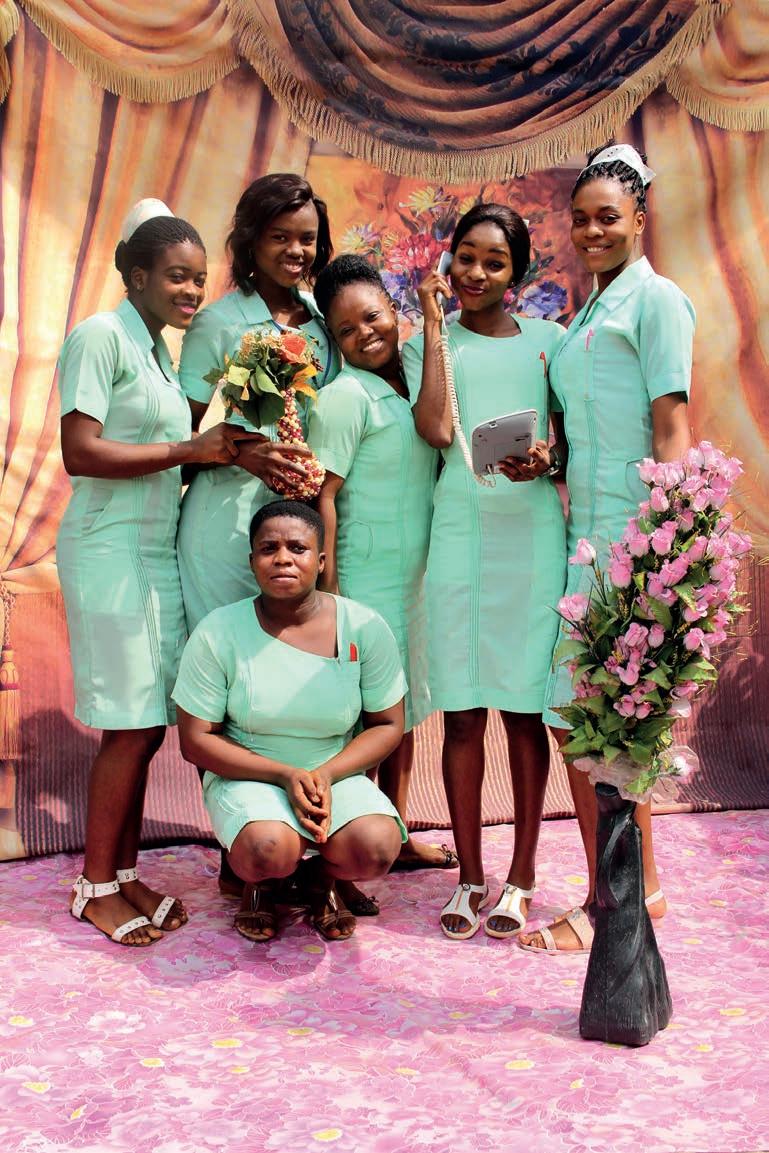PROUD TO BE BLACK... BUT NOT BRITISH
















Just












































































THE LARGEST and most comprehensive survey of Black British opinion was inspired by Black Lives Matter protests in the UK after George Floyld’s racist murder.
e Voice joined forces with Cambridge University and the i-Cubed consultancy to truly re ect the condition of the Black British community today.

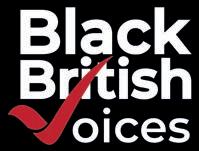

We keep hearing about racial disparities in housing, employment, policing and health
yet mainstream social attitude surveys consistently fail to ask the community how we actually felt.
Our aim was to tell an authentic story across a range of topics.
We thank the 10,000 Black Brits who took part in the poll, and the 90-plus people who gave their insights in the in-depth interviews and focus groups.
Some ndings will come as no surprise, although the strength of feeling on issues like racism in education, work and the criminal
justice system are so strong it was almost as if Britain’s African and Caribbean community were speaking with one voice.
e message is that we have completely had enough of systemic racism and we demand urgent action from the government and institutions.
Our poll laid bare the psychological impact of living in a hostile environment. Only 12 percent ‘de nitely’ feel proud to be British, and 39 percent don’t see Britain as their permanent
home. is shows that of systemic racism has caused a disconnect between Black British people and the country most of us were born in. is should be a wake-up call to Britain.
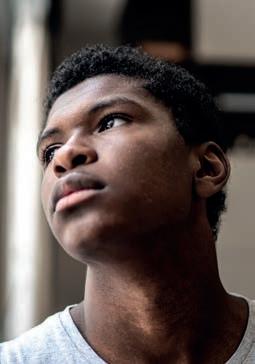
ere were positive messages from the survey too. Almost everyone (94 percent) said as consumers they consciously supported Black business. is ‘doing-for-self’ trend is welcome.

lifetime of being Black in Britain.
is is the side of the Black experience which the mainstream do not see, but it is important to tell our story, to re ect and move forward.


HOUSING IS a Black issue. Of course, it’s an issue for everyone but the facts don’t lie; Black families are three times more likely to be homeless. We are massively overrepresented in the rental sector with council, housing association and private landlords. And we are much less likely to own our own home.
We carefully crafted our research in partnership with thought leaders, and began the study with eight focus groups involving 50 participants.
depth interviews conducted by Cambridge who combining ‘quant’ (polling) ‘qual’ (interviews) with analysis.
e results paint a bleak picture, but where do we go from here? We will be running a series of roundtables across the country in the coming months to explore policy solutions to the issues agged in the study.
In this edition, we highlight the frustration of Somali women who are out on the streets protesting against what they see as Tower Hamlets council “de-prioritising” their families in need of rehousing due to damp and mould.

Some participants broke down during in-depth interviews as they told us about impact of a
e next stage was the online survey of 80 multiple-choice questions.
is was followed by 40 in-


A survey earlier this year found a third of homes have mould. Social housing campaigner Kwajo Tweneboa has done wonders to highlight the issue, and it is notable how most of the families he visits are Black. Not because he seeks them out, but because that is the reality.



Please pick up a copy and share it widely.
The tragic death of toddler Awaab Ishak in Rochdale due to mould sent shockwaves through Britain and led to a new law. Yet the measures are weak, and the issue of racism is largely unacknowledged. It is commonplace for co ncil officers to dismiss mo ld as eing ca sed by ‘cultural practices’, telling the tenants to just open the windows or giving a lick of paint which mould simply grows through.
The private rented sector is no better, with non-white tenants being twice as likely to report having experienced “illegal acts” from landlords. The Government has, to its credit, outlawed no-fault evictions, which is a major cause of homelessness. But more action is needed.
With private rents rocketing and landlords effectively a ctioning ats to the highest idder for rents Blac families are once again likely to lose out due to having less income as a result of systemic racism in the jobs market.

So what are the solutions? We need to raise the rates of home ownership to have more assets to pass down the generations. And we need to look at pooling our resources to buy property, as other communities have done and the Caribbean community used to do with pardners.
We also need a massive social house-building programme from the Government, and a revival in Black housing associations to run our fair share of homes in order to deal with the racial disparities.
Black mothers, fearing for the lives of their children, should not have to come out on the streets with placards for society to wake up to the Black housing crisis. It
for
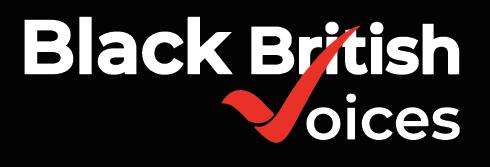

partnership with Cambridge University and i-Cubed, which experience. Here is what we















73% ‘interested in politics’



94% say the government is not delivering for Black people


Just 1% trust the system

79% say stop and search used unfairly
























87% say mental health not discussed enough




89% say Black patients get worse healthcare



















74% want to bin the term

Theatres and book publishing industry failing to reflect Black talent

80% say racism is biggest barrier to educational achievement



















39% don’t see Britain as their permanent home
56% say LGBTQ+ acceptance higher than decade ago
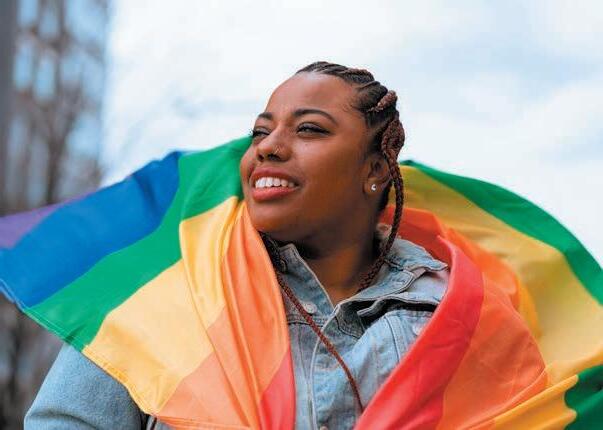
75% say Black people with disabilities ‘not adequately considered’
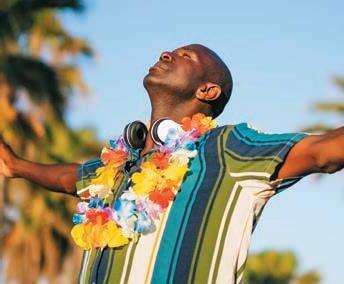




































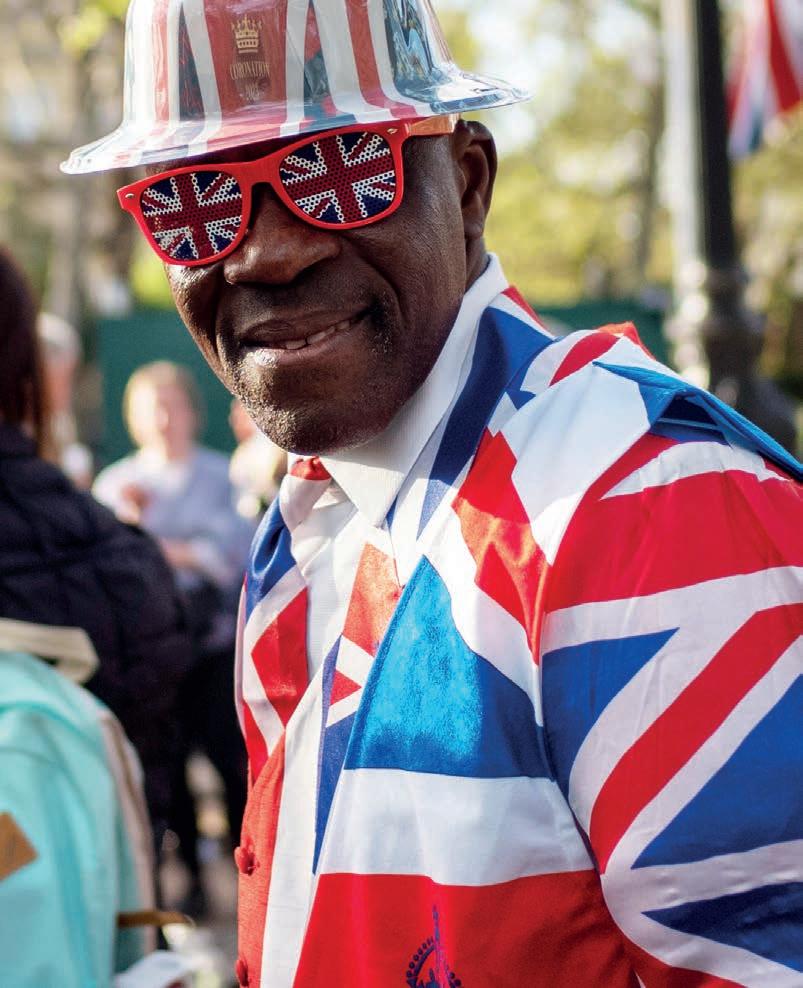
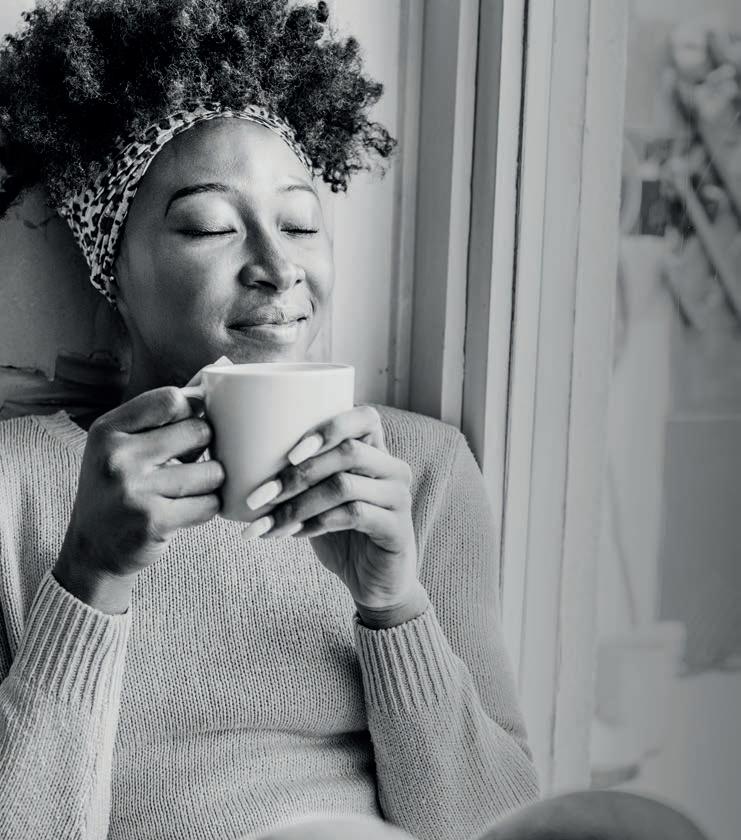
ONLY ONE in 10 Black Brits feel proud to be British, according to the new Voice and Cambridge poll.
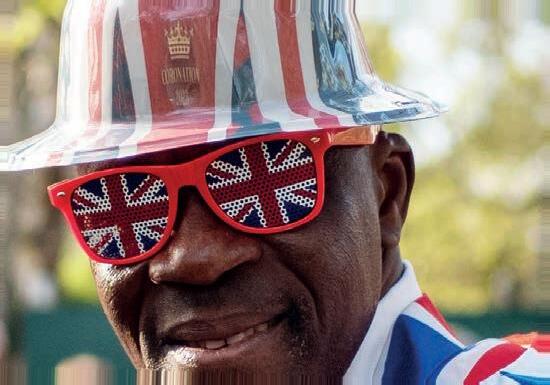
e Black British Voices study found that just 12 per cent were ‘de nitely’ proud to be British, and less than half (49 per cent) felt British at all.
e biggest social attitudes survey of Black Brits showed the impact that lived experiences of racism has on identity and belonging.
As a Black person, claiming British identity has been a complicated and multifaceted experience. From the arrival of the Windrush generation from 1948 to the political abyss of Brexit in 2016, British identity for those of African and Caribbean heritage continues to be a topic of deep internal struggle.
e Black British Voices Project polled over 11,000 and carried out in-depth interviews with dozens of British-born Black people. A total of 9,893 people answered questions on Britishness.
A substantial 81 per cent identi ed themselves as either “de nitely” or “somewhat” British, compared to a smaller 16 per cent of participants who described themselves as “not really” or “not at all” British.
e results describe the notions around “Britishness” as




a combination of “multiple and often con icting elements that exist in constant ux”.










e term “Brit-ish” was coined by journalist and writer
Afua Hirsch in her 2018 book that explored this very di cult existence for people living in the shadow of the Empire.
While other ethnic groups operating in similar situations and societal structures also deal with this complexity, the report makes it clear that Black British identity and concepts around truly belonging are “undergoing signi cant and rapid social change”.
One BBV participant aptly described choosing to call themselves Black British as “a journey, it’s not a destination”.

For Benjamin Zephaniah, 65, his journey discovering his own identity began when he was growing up in the Britain of the 70s and 80s, where he recalls the “open racism” from the police and the public “ e rst time I ever had a racist attack, I was eight years old, and a guy smacked me in the head with a brick and said, ‘Go home you Black bastard!” he told e Voice
“I remember going home to my mom and I was really confused and I said mom was coming home anyway. en, she had to sit me down and explain to me that he didn’t mean home. He meant Africa, or Jamaica, or somewhere else.”
In a time when the Race Relations Act had not yet been passed and Enoch Powell’s Rivers of Blood speech rippled across the country, the renowned dub poet and writer believes the very rst wave of rst and second generation migrants look at Britishness very di erently due to the racism of yesteryear.
Zephaniah, who famously turned down an OBE in 2003 because of its links to British colonialism, says he’s seen countless people have mental breakdowns over their struggle to nd their identity.
Black Britons have gone back to Jamaica but ran out of the
Only 12 % of respondents felt they were e nitely proud to be itis
ur ey fi ndings show identity i pact o li ing in a racist society y Leah Mahon
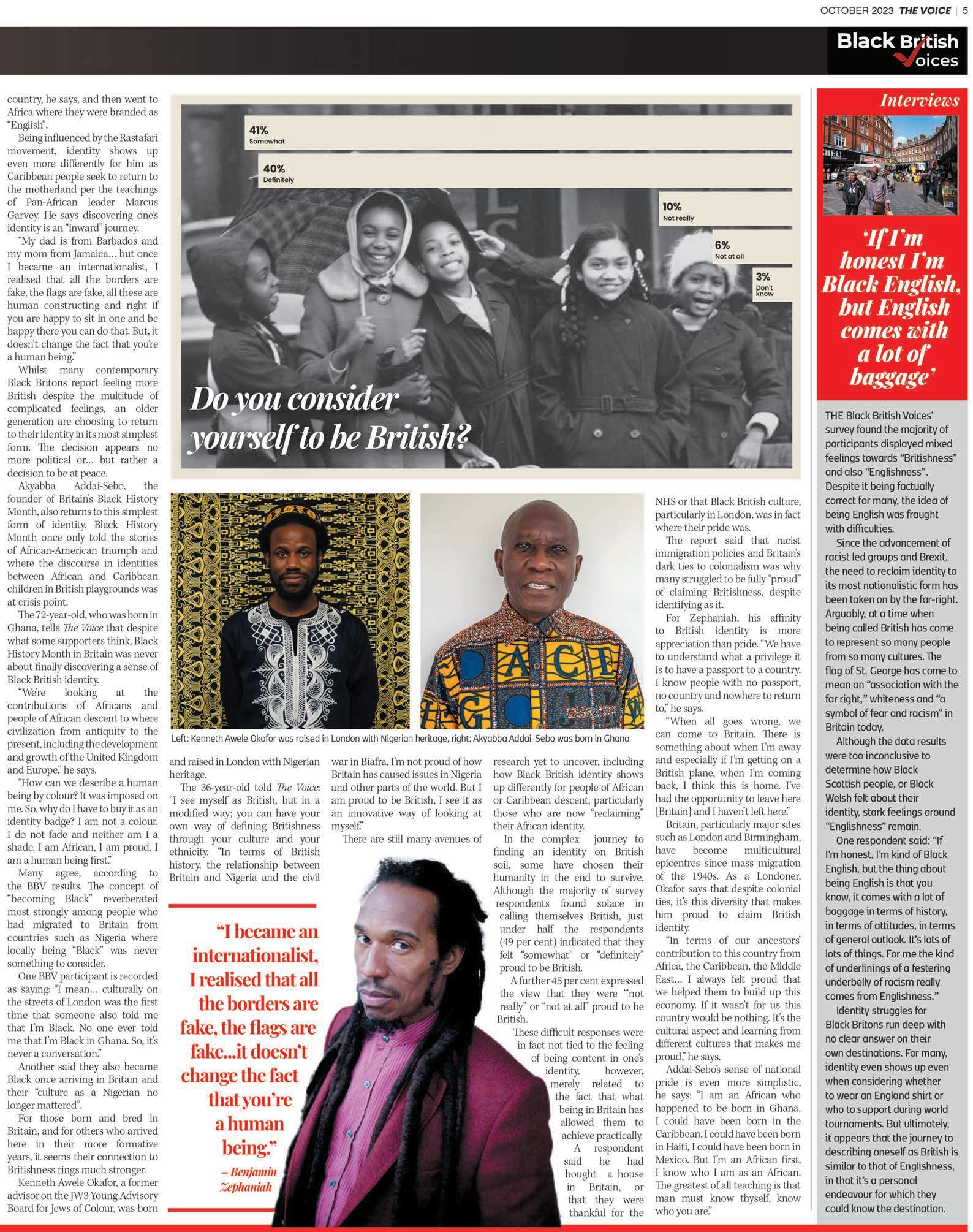

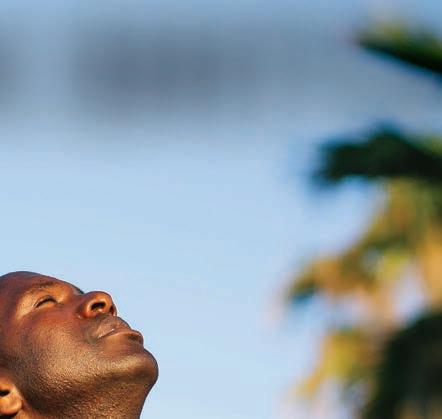
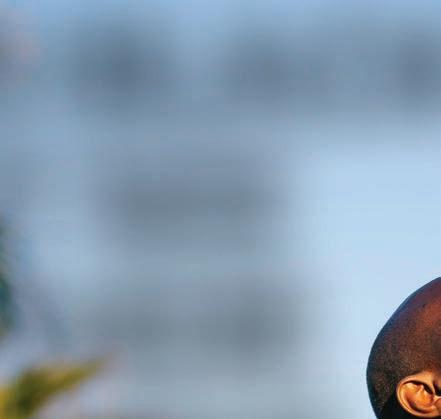
OVER a third of Black Britons do not see Britain as their permanent home and desire to live elsewhere in the future, according to the ndings of a new survey.
Polling from the Black British Voices (BBV) project shows even though 45 per cent of young respondents said they do see Britain as their permanent home, this was closely followed by 39 per cent who expressed a desire to live elsewhere.
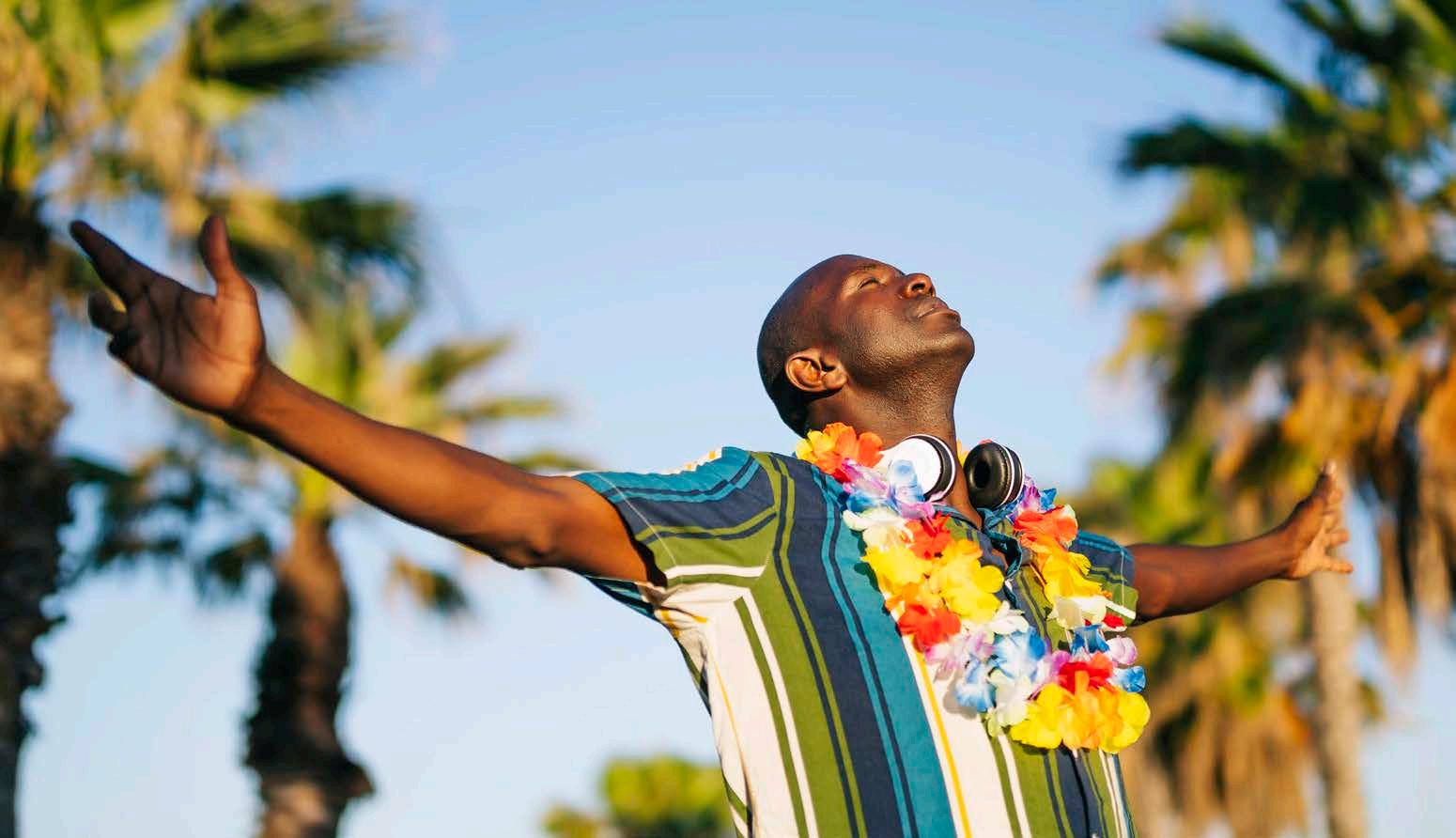
For those who have already left the United Kingdom to build a new life ‘back home’ in the Caribbean or Africa, they say the ndings suggest a new generation of Black Brits are not going to “stay and suck it up” in Britain anymore. e idea of returning to Africa is not a new phenomenon. In 1919, Marcus Garvey, a Jamaican Black nationalist and Pan-Africanist, advocated for Black people to physically return to the African continent. He founded the Black Star Line, and purchased two ships to provide transportation for those wanting to return.
Almost three decades later in 1948, Ethiopia’s Emperor Haile Selassie donated land in Shashamane, to members of the Rastafari movement in Jamaica and other African-Caribbean people wishing to settle in Ethiopia.
Speaking to e Voice from
Grenada, Zoe Smith said the pandemic and social media has shifted the mindset of young people who realise they have alternatives.
She said: “Rather than feeling like they have to stay in the UK and suck it up, they are more aware that they have options.
“ ey will use the power of their
passport — whether it is a UK passport or a diaspora passport — and choose somewhere where they have a better chance of being treated better.”
Smith said the rise in remote working due to COVID-19 pandemic may also be in uencing young people’s future decisions, as they realise “they no longer have
to be in an o ce” but can work anywhere in the world.
Having moved to Grenada in July 2021 because the British education system continuously failed her son, she said more Black families will leave if there is not “massive structural change.”
Other ndings from the survey paint a bleak picture, with an



overwhelming 90 per cent of the young respondents saying they expect to experience some sort of racial prejudice during adulthood while living in the UK.
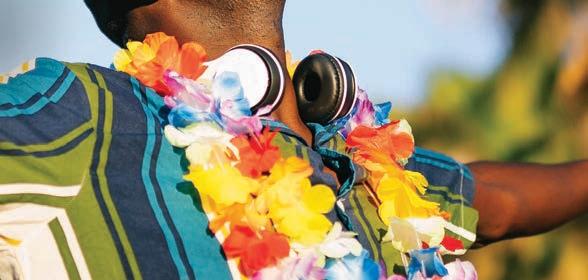
Smith commented: “It would be nice to say the ndings make me feel shock or horror, but I’m Black I was born in the UK, so I know fully well what the experience is like.”
She added: “ e fact that the younger generation know that they don’t have to stay and take it, is perhaps a lesson to the older folks. How long are we going to bang our heads against a brick wall?”
Smith said the next government needs to do more than just “performative” gestures otherwise we will continue to see more young Black people feel disconnected with those who lead the country.
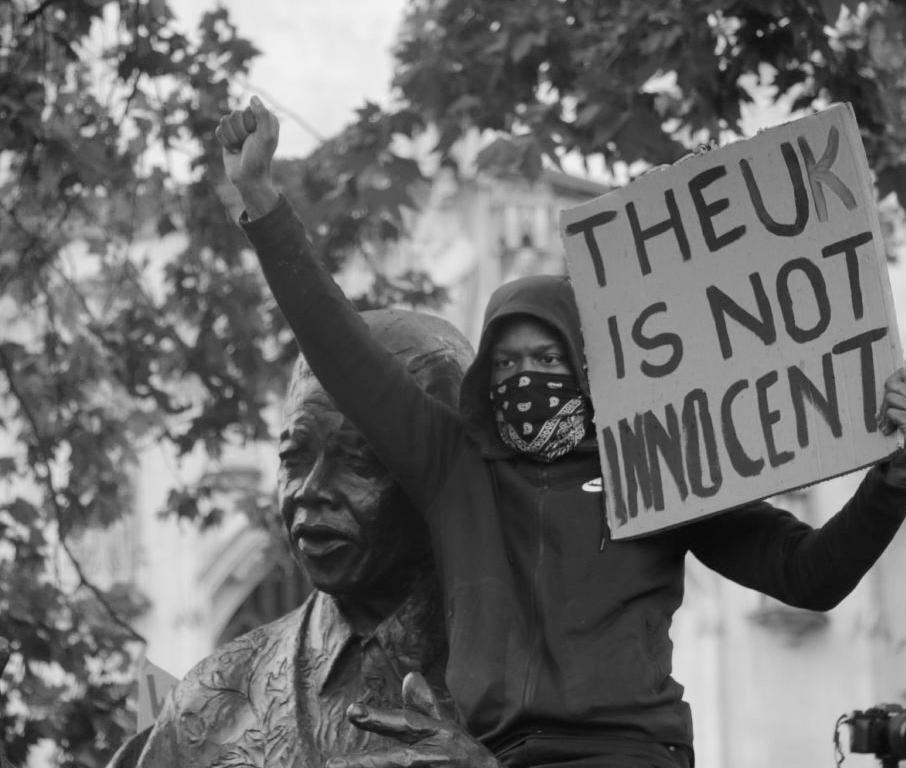
e writer from Watford started a YouTube series called e Exodus Collective which shares stories from those in the Black community, who made their ‘Blaxit’ — meaning moving to di erent parts of the Caribbean and Africa to nd a sense of peace.
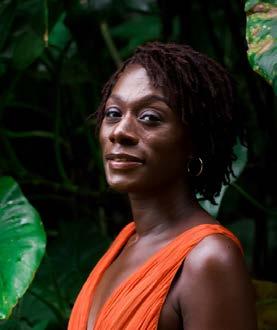
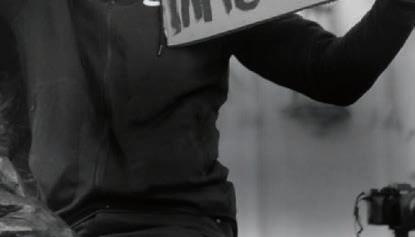

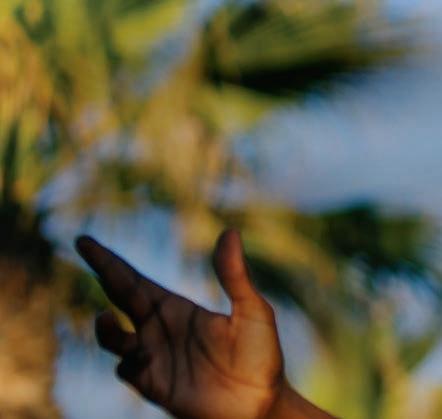

She said initially she thought the trend was just a “blip” but three years on, the movement is still growing, which is a sign the UK is failing Black families.
She added: “When I started in 2020, it was a response to the murder of George Floyd and racism being a main driving factor.
“But in the years that have followed, the cost of living, the insanity that is going on in the Conservative government, there’s so many factors that are making people feel the UK is not the best place to be if you are invested in a sustainable future.
“Rather than feeling like they have to stay in the UK and suck it up, [Black Britons] are more aware that they have options.”
- Zoe Smith, who moved to Grenada in 2021
“People who are talented, able and ambitious are wanting to go to countries where they can ful l their dreams rather than go up against an old and complicated system.”
Professor Shawn-Naphtali
Sobers is a professor in Cultural Interdisciplinary Practice at the University of the West of England.
He said the Rastafari community had been championing repatriation for decades.
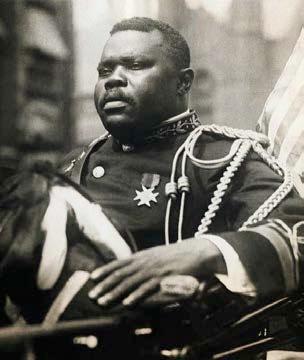
“Rastafari has always talked about the need for repatriation to the motherland, as the safe haven for the global peoples of the Black diaspora.
“It is clear that Rastafari had this prophetic vision, which this research shows to clearly be still relevant today, but it has to be said, this is not through the lack of trying, to try and build integrated and peaceful lives in what Rastafari call Babylon.
“Evidently, the younger generations still feel the sense of rejection and are essentially proving the Rastafari prophecy to be correct.”
Professor Sobers added many Black British people born in Britain in the 1960s and 70s had a challenging relationship as seeing themselves as British and wanting to permanently live here due to “witnessing the hostility and racism shown to us by the services of the British state, whether that be in education, health, the justice system and all other areas of British society.”
He said he is saddened to see feelings of “disconnect” still present in younger generations in 2023.
Juliet Ryan, has lived in e Gambia for four years, and moved from the UK after her sons were
to do PR for the rst ever Jamaican feature lm e Harder ey Come
It sparked a deeper calling for her to return to the Caribbean and nd out more about the Rastafari movement and Reggae music — which were also heavily featured in the lm.
She left Britain decades ago and never looked back.
Hannah wants Jamaicans in the diaspora to seriously consider returning using their skills and experience to help the next generation in Jamaica.
always is, come and help build Jamaica.
“ e Windrush generation helped rebuild Britain. Let’s do a Windrush-in-reverse and help make our paradise greater.”
Since her return, Hannah has had a glittering career and has worked in the Jamaican lm industry and was also the rst Rastafarian to have been appointed Opposition Senator in Jamaican parliament in 1984.
She is currently the cultural consultant for the Ministry of Culture and is an adviser on Rastafari matters.
She added: “We need all the help














we can get and there is no racism
have already made the leap away from “oppressive Britain”, it is clear have split feelings about the BBV ndings.
On the one hand, they welcome the fact that young Black Brits see their future in diaspora countries where they may get more opportunities and less racism. On the other hand, they remain frustrated that systemic racism in Britain continues to be all-pervasive. It is clear that without far reaching change in Britain, another generation will look for a place called ‘home’ outside of where they were born and grown up.
subjected to vile racial abuse at school.
In 2018, her 15-year-old son was celebrating the last day of school in Essex.
Students wrote farewell messages on his shirt, but when he arrived home his mother saw there were some racist slurs, including the N word, written on her son’s uniform. She realised “enough was enough”.

While working in Britain, Ryan says she was also treated di erently and even ended up at employment tribunals.
Ryan said the fact that almost 40 per cent of young Black people want to live somewhere else in the future shows there is still a deep “dissatisfaction” and a feeling of “displacement” and “non belonging” for some Black people in Britain — a feeling she sadly knows very well.
Speaking from e Gambia, she said: “I grew up in racist England and that is what I call it, because that is exactly what it was.
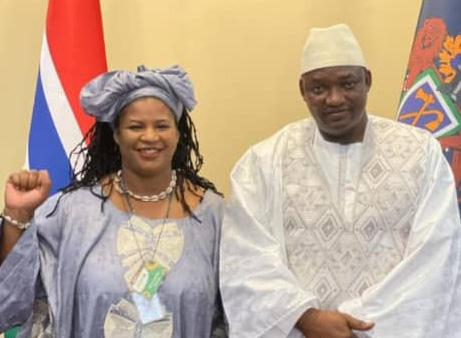
“I didn’t feel like I belonged from when I was a child, and once I started to socialise I de nitely felt like I was othered. When I saw it now happening to my own children, it bothered me as their mother.”
Ryan is the founder of Blaxit — a leading online platform that helps those in the diaspora resettle in e Gambia, in West Africa.
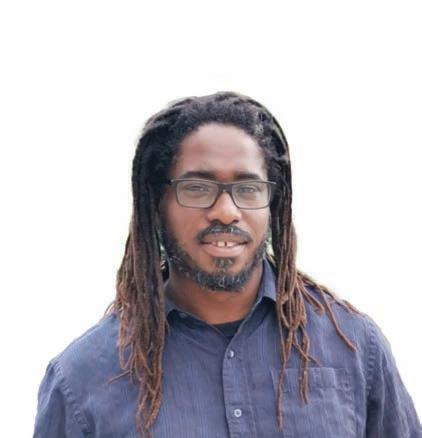
ose who once lived in England, but have moved to the Caribbean are encouraging others to do the same.
Barbara Blake Hannah was born and raised in Jamaica, but later moved to England to work as a
lm extra.





She settled in Notting Hill, in west London, and continued her journalism career.
She settled in Notting Hill, in west London, and continued her journalism career.
Ms Blake Hannah made history in 1968, when she made her TV debut as the UK’s rst Black TV
Ms Blake Hannah made history in 1968, when she made her TV reporter.
blossoming
But her blossoming career was cruelly cut short when she was sacked and driven out of her job because some viewers could not accept seeing a Black reporter on British television.
calls from viewers were
Several angry phone made with some saying “get that N***** o the TV screen”.

After being dismissed, Blake Hannah was asked

ALMOST ALL Black employees have had to ‘compromise who they are’ to t in at work, our new Black British Voices study has found.
A stunning 98 per cent of 8,558 Black Brits who answered this question revealed they felt compelled to tone down their Black identity to avoid negativity from coworkers and bosses.
Experts say this shows that many workplaces were “hostile environments” for Black workers, and this could be having a detrimental impact on employees mental health.

e nding comes amid growing concern over Afro hair discrimination at work with a recent survey of employers by World Afro Day nding that 84 percent insisted on straight hair for women ‘in all circumstances.’


e new Black British Voices (BBV) poll, by e Voice and Cambridge University, also
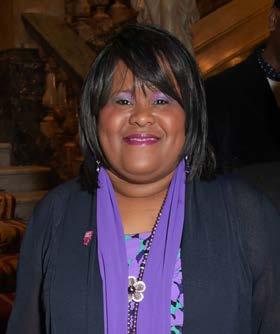

found that e orts by African and Caribbean workers to t in was not improving their position in the workplace with 88 per cent reporting having experienced racial discrimination at work.
e BBV report said: “Survey participants suggested that initiatives such as Equality, Diversity and Inclusion workshops are often oriented toward the needs of the dominant group and often feel most uncomfortable for those employees whose exclusion they are allegedly designed to remediate.”
evidence that diversity is good for business.
“What this is showing is how racism plays out in the labour market, making it harder for Black workers to gain employment and have access to promotion. We’ve seen a massive increase in Black men in part-time employment, on zero hours contracts, being subject to re and rehire, and disciplinary and competence procedures.
“ e message has been ‘keep your head down and don’t challenge the system because if
government was contributing to a “hostile environment” at work by their denial of racism as an issue.
He said Black workers having to leave their identity at home was “having a profound impact on physical and mental wellbeing of Black workers and can have catastrophic impact.”
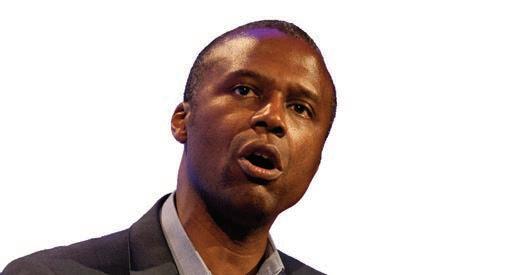
Black job seekers have to send 60% more applications to get a positive response from employers

you call out your experience at work you could be next [out the door’.
A government commissioned report in 2017 by Conservative peer Baroness Ruby McGregorSmith found the British economy was losing £24 billion a year — or 1.3 per cent of Gross Domestic Product - as a result of lost potential due to racism in employment.
Just 13 of the top FTSE 100 companies have published ethnicity pay monitoring data
were having to leave their
Dr Patrick Roach, general secretary of teachers union NASUWT and former Chair of the TUC’s Anti Racism Taskforce, said it was no surprise that Black workers were having to leave their culture at home despite
Dr Patrick Roach
“Clearly employers have a responsibility to recognise what’s going on, correct their practices and take racism at work seriously.”
Dr Roach said the
Campaigners accuse the government of ignoring the report, titled e Time For Talking Is Over. Now Is e Time To Act.
data shows
Analysis of O ce for National Statistics quarterly data shows that from 2001 to 2021, Black unemployment has never dropped lower than twice as high as white unemployment.
In August, TUC analysis found that Black unemployment had risen again between April and June this year, the largest single rise in any quarter since the Covid pandemic.
Sandra Kerr CBE, race director at Business in the Community, said the BBV poll chimed with evidence which her ‘Race at Work’ project had collected.
Kerr said having to compromise identity at work was “exhausting”, and the onus was on bosses to listen to Black workers and involve them in devising solutions.
She said: “It’s the weathering e ect; it does wear you down constantly not being able to be yourself.

“We’ve been running surveys over a number of years and it consistently shows that ethnicity is a barrier, including having to
wait longer to get a promotion. We encourage employers to do listening exercises to hear about the challenges and, after those conversations, allow Black workers to be part of implementing the decisions… and nally get credit from their peers.”
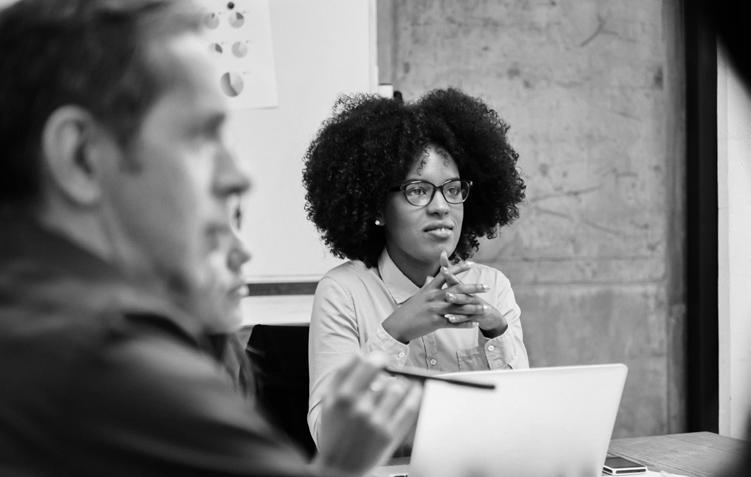
Experts say Black workers have been disproportionately hit by several trends over the past 40 years, starting with privatisation of public utilities under Margaret atcher which accelerated de-unionisation and the erosion of pay and workplace rights from 1979.
Outsourcing of parts of the remaining public services — such as street and o ce cleaning and catering in councils, schools and universities — under the Labour governments of Tony Blair and Gordon Brown further undermined terms and conditions.
And the mushrooming of the gig economy under Conservative governments from David Cameron on, also disproportionately hit Black workers who are twice as likely to be trapped in low-paid insecure work.
Unions fear the advent of re and rehire is the next wave to impact Black employees.
Read Cynthia Davis’ column on page 46
Black households (54%) were most likely out of all ethnic groups to have a weekly income of less than £600
Pay disparities stand in contrast to the fact that over half of Black people live in London, the region with the highest pay.
Pay penalties are highest for Black male graduates (-24% vs white men) with Caribbean male graduates most likely to e lue coll st job after graduating.
Black workers are the lowest group for earnings at ‘peak earning potential’ (ages 40-49), an indication of lack of career progression.
r s rvey finds leave identity at home t are still s ect to racism in em loyment. By Lester Holloway
Do you believe Black workers compromise who they are at work?
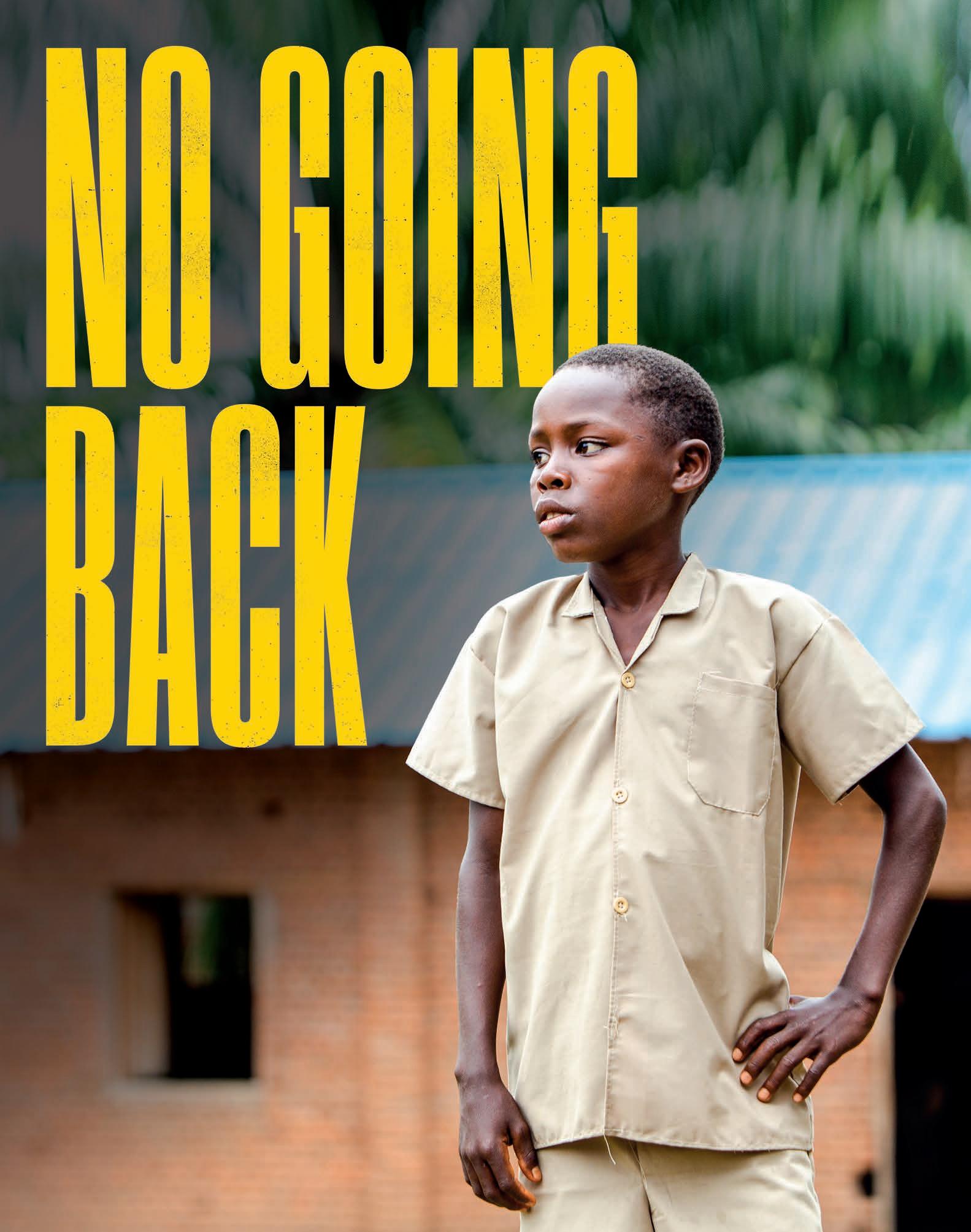





 By Richard Sudan
By Richard Sudan
IT’S TIME to bin the term
‘BAME’ (Black, Asian and Minority Ethnic), say three quarters of Black Brits.
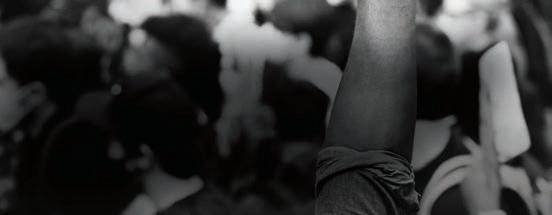
Our new Black British Voices survey, which has a sample of over 11,000, gave an overwhelming thumbs-down to the umbrella term embracing all people of colour. e survey found that older African and Carribean respondents were less bothered by the terminology, but there was an overwhelming rejection of ‘BAME’ from younger generations.
e term has been heavily criticised in recent years over criticism it disguises levels of racial disparities impacting the Black community speci cally, and ignores the dynamics of anti-Black racism.
Maternal deaths of mothers in and around childbirth is one of many areas where Black women are impacted far more than other minority ethnic women.
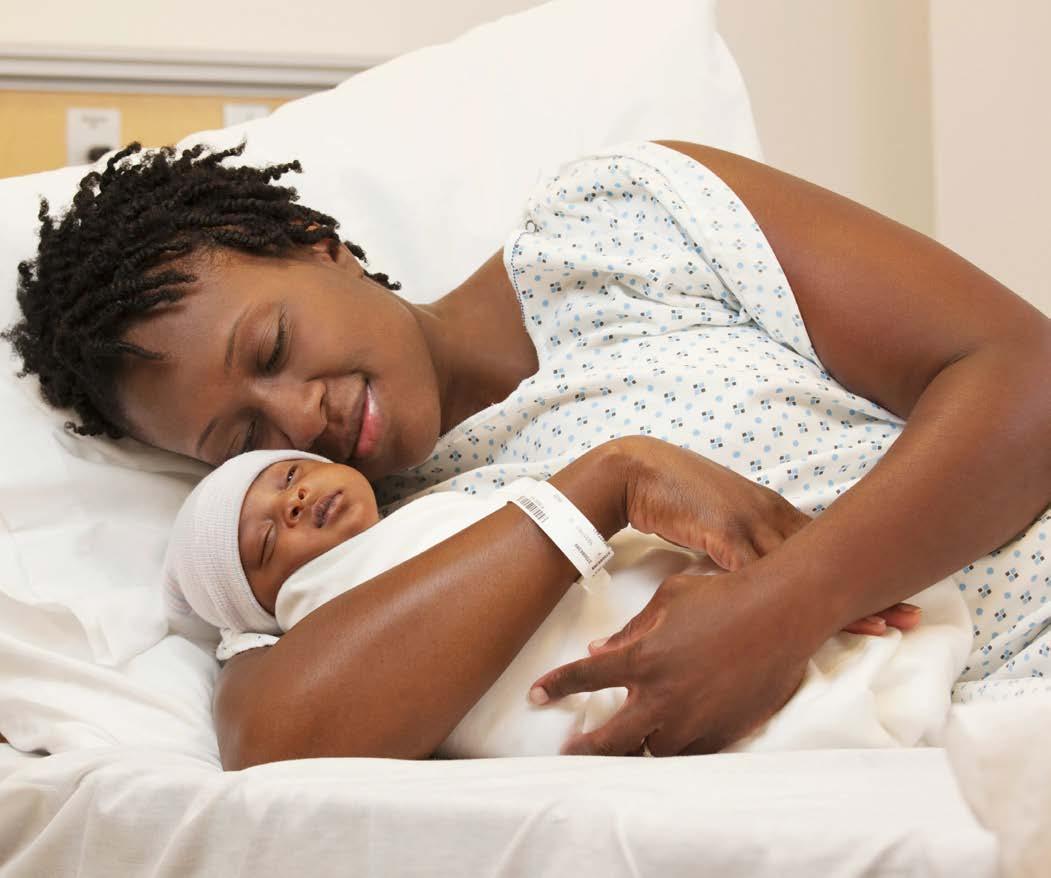
While 21 per cent of respondents recognise BAME’s importance in data collection, the term is nonetheless viewed as outdated.
A total of 74 per cent think that BAME is reductive and homogenizing and unhelpful.
Many see the de nition as a symbolic band aid, re ecting decades of failure in tackling systemic racism. Others agree but recognise BAME, in the past at least, speaks to common
experiences of racism among nonwhite people regardless of their di erences; racial discrimination.
BAME originated from the term BME and the concept of political Blackness emerging in the 1970s.
ese periods saw both solidarity between Black and Asian communities as well as fractures and tensions.
Professor and author Kehinde Andrews argues that the BAME label paints a misleading picture, suggesting less overall racism in society, when in reality the lived experiences of certain groups tells a di erent story.
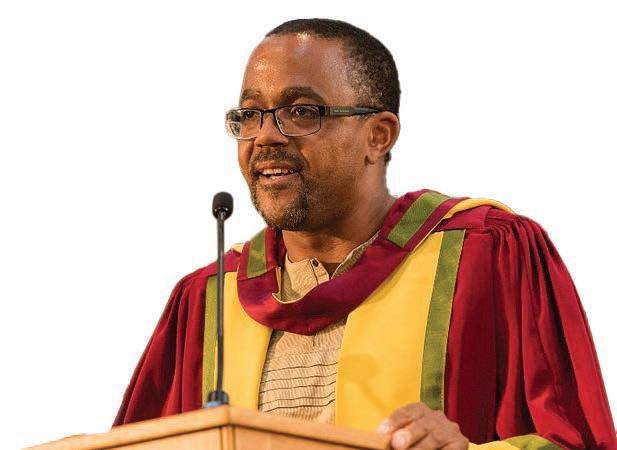
“It’s a top down approach which is particularly anti-black, but also bad generally” he told e Voice

“When we rst came to Britain there were some shared experiences. But they pretty
much dissipate after the second generation.
“ ere are hierarchies of racism, and there are di erent ways we get treated racially. For example, there are certain stereotypes about black people and certain stereotypes about Asian people that we have to deal with.”
Rather than accepting a one size ts all category, Andrews advocates acknowledging our di erences while campaigning and unifying together on the common causes that matter.
“Political Blackness and BAME is the idea that all non-white people experience racism in the same way which is not true and has never been true.
“It completely and utterly obscures the problem and the solutions. e best solidarity is around the issues.
“ e idea that we are all the same is nonsense. e stats tell you it’s a much more complicated picture than Black and non-white.”
Anti-racist activist Saqib Deshmukh, who is of Pakistani origin, grew up in South London in the 1980s. He says BAME was created by white people and needs to go.
“BAME and BME never came from
our communities” he told e Voice
“It didn’t come from grassroots organising movements of the 70s and 80s. It’s the language of race equality not the language of antioppressive practice, anti-racism or pro-black struggles.
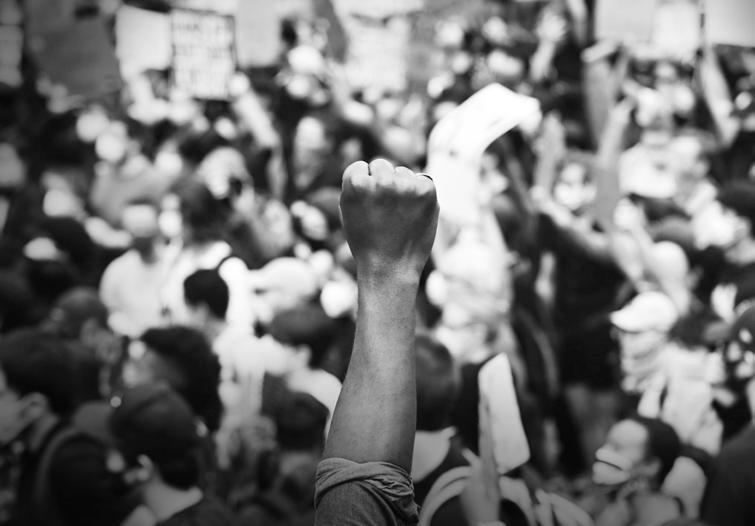
“We’re forced to use it because that’s the language of the system.”
According to Deshmukh, BAME is generalised and ignorant of the complexities and cultural nuances in Black and Asian communities.
“I argue for speci city”, Deshmukh said. “ ere are massive di erences between rich middle class Indians, for example, and Pakistani and Bangladeshi communities. ere are di erences between African and African Caribbean communities. And many people are mixed and fall within the cracks.”
Dianne Greyson, an ethnicity pay gap campaigner, is all too aware of the critical need for gathering hard data exposing racial disparities. Her work has shed light on the unfair disproportionate gaps in rates of pay between
black and white communities. But Greyson also believes that speci city is now needed to gain a more holistic understanding of non-white communities. ere’s no reason that disaggregated data can’t be collected.
She argued for a deeper dive and more sophisticated analysis regardless of whether the BAME term goes.
“Each group should have its own discussion because if you continue to put all the groups together you’re just skewing the gures. e word BAME is hiding a lot of things and we need to be absolutely clear about that.”
idea we are all the same is ‘nonsense’, say leading commentators.
Are you comfortable with the term ‘BAME’ (Black, Asian and Minority Ethnic)?Professor Kehinde Andrews
74 % of respondents think BAME is homogenizing “reductive and unhelpful.”
“It’s a top down approach which is particularly anti-black, but also bad generally”
– Professor Kehinde AndrewsMaternal deaths of mothers in and around childbirth is one of many areas where Black women are impacted far more than other minority ethnic women (photo: Getty Images)
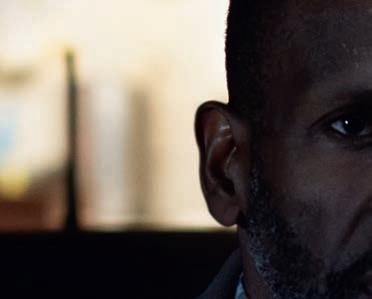

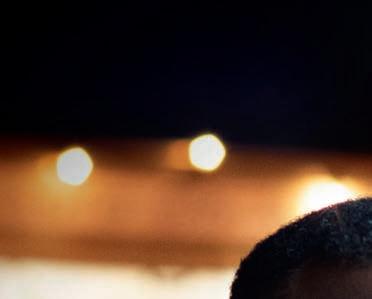
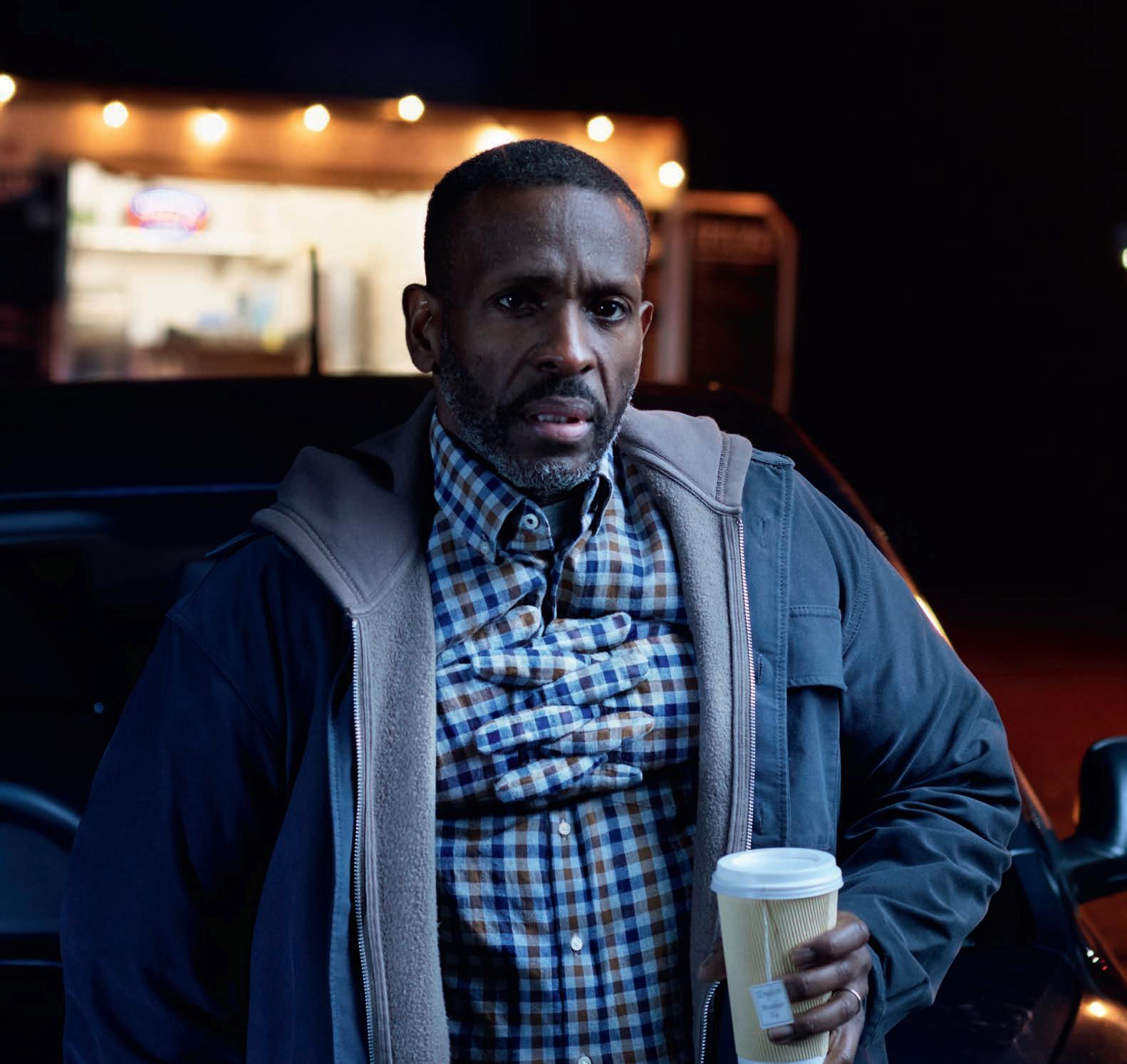
A squeezing across the chest. A feeling of unease.


It’s never too early to call 999 and describe your symptoms.

BEING YOUNG, Black and British today means that you expect your future to be marred with racism.
e Black British Voices poll results revealed many young people born and raised in Britain still feel estranged from wider society with great fears for how racial discrimination will impact their lives. Some are even contemplating leaving Britain for good.
A total of 90 per cent of the young people who participated expected to experience racial prejudice as adults compared to only seven per cent who did not. Overall, the experts who commented on the ndings were “not surprised” with how new generations of future leaders feel about their prospects.
Sayce Holmes-Lewis, founder of Mentivity, provides one-to-one mentoring for young men and
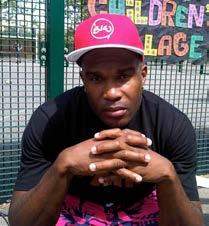
system, whether it’s policing through disproportionate stop and search, whether it’s in the sporting context, they feel very disempowered.
“It actually allows them to feel more negative about themselves. It looks more inwardly, rather than looking outwardly, and actually understanding what’s going on in and around them.

“We have a duty, and we have failed in this as a community to prepare young people for the di erent nuances around racism.”
e research acknowledges that many young people who still live at home can see it as a place of refuge away from the harsh realities of racism, however, a large number of them anticipate di culties in environments where they need to be nurtured the most: higher education and the workplace.
When asked about whether employers and businesses are

doing enough to address gaps for young Black people, 87 per cent of respondents answered either ‘De nitely Not’ or ‘Somewhat no’ in contrast to only ve per cent who answered ‘de nitely’ or ‘somewhat’ yes.

Larissa Kennedy, President of Students Organising for Sustainability, believes that society is taking “one step forward and two steps back” when it comes to young Black people.
“We’ve got the culture wars kind of going on, where anyone who talks about racism is essentially told that they hate the UK, they’re not displaying British values.
“We’ve seen the violent reactions in the media, from the government, and so on when people talk about racism in education and talk about decolonising the curriculum,” she says.
According to BBV, 93 per cent of young Black people said the government was not supporting
government needs to be held to account for being behind the diminishing of youth clubs and projects like Manhood Academy to help young people.
Holmes-Lewis says the responsibility doesn’t lie with the government to change the lives of Black British young people, but instead the community needs to come together to galvanise change for the new generation.
“It’s our responsibility. We have to strategise, we have to come together in a way that we are creating our own ecosystems, which can create our own employment, for young people, because what’s happening is that we’re trying to conform and integrate to a system that doesn’t want us here,” he says.
“We’ve got to be realistic and understand the government is doing what’s best for itself, and the people that it seeks to bene t, and those that are going to continue to uphold this system of imperialism, of colonialism, and oppression.”
Kennedy, a former President at the National Union of Students, encouraged young people to get involved with their students’ unions where students can lead the change on causes like antiracism.
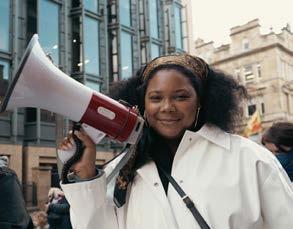
“For those students who are experiencing racism, perhaps for the rst time or for the rst time so boldly when they go to university, it can be incredibly hard to navigate that not knowing who to turn to, not wanting to say to people back home because they might be worried and so on,” she said.

“Make sure you nd people you can trust, that you can share this with, make sure that you’re accessing mental health services if you need them.”
young Black Britons compared to just three per cent who thought they were.
e government’s position on helping young people has been in freefall with rising university tuition fees and the 2021 Sewell Report that tried to claim Britain was not an institutionally racist country.
Davis Williams, founder of Manhood Academy which mentors young boys and girls in the London community, said that the community shouldn’t resort to blame those higher up.
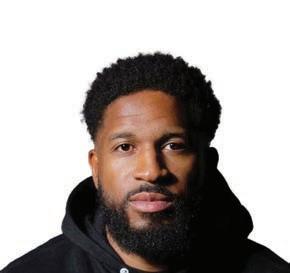
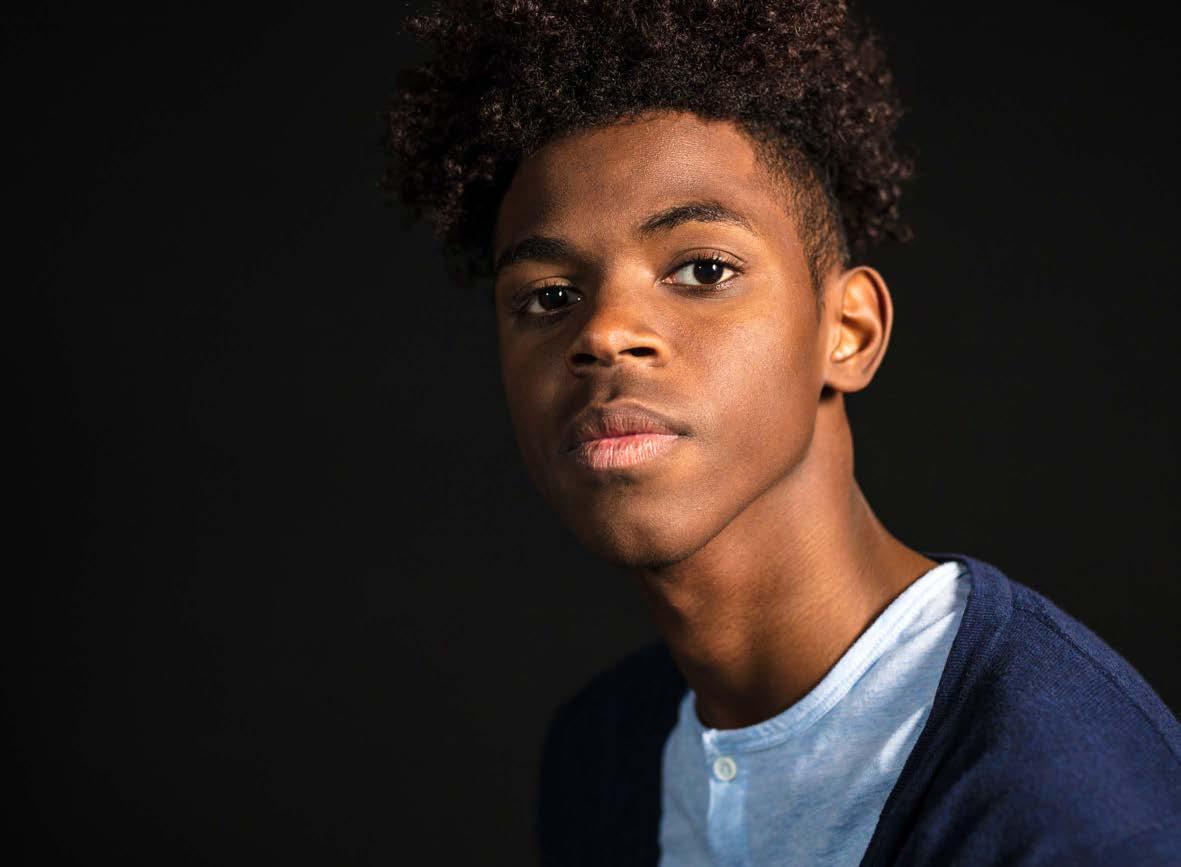
“ ey’re doing what they’ve always done. ey take from the poor, and they feed themselves. We’re always telling young boys don’t let the system monetise you: if excluded, someone’s getting paid; if you get arrested, someone’s getting paid,” he
However, Davis added the

Holmes-Lewis says that the community needs to instil con dence in young Black Britons and in a world where being Black seems at your disadvantage. He added that teaching self-pride is a part of inspiring a new generation of leaders.
“We want to bring back the Saturday supplementary school communities. We want to get young black boys and girls to feel proud of the history but an accurate history. And obviously, often hidden history around who they actually are.”
Black British goes back as far as 1,000 years but that young people today are at risk of being “clueless” about who they are and where they’ve come from because they may “fallen into the narrative of slavery”, he added.
“We have to invest time in other people’s children because our voices as parents or elders, for people in our family sometimes become just monotonous.
“But if I go to somebody else’s child and say, ‘Look, this is what I think you should do, this is how I can help you and support you’, it holds far more weight, because they know that you’re not obligated to be there. ey know that you actually care about them — young people see time as love.”

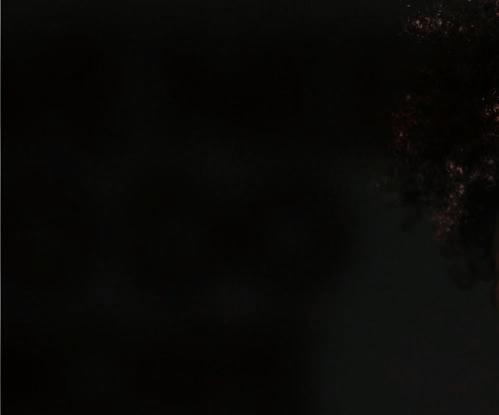
“We have a duty, and we have failed in this as a community to prepare young people for the i e ent nu nces around racism.”
– Mentivity founder Sayce Holmes-LewisLeft: Larissa Kennedy, President of Students Organising for Sustainability. Right: Davis Williams, founder of Manhood Academy
Young people don’t have the skills to handle racism in different facets of their life. By Leah Mahon

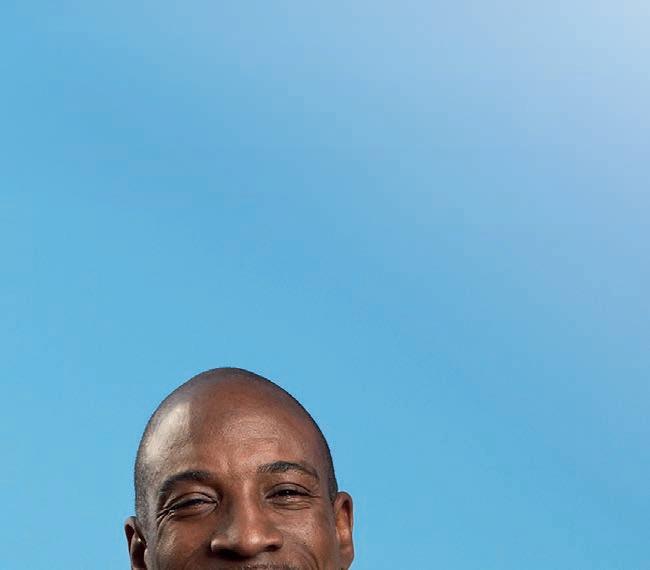



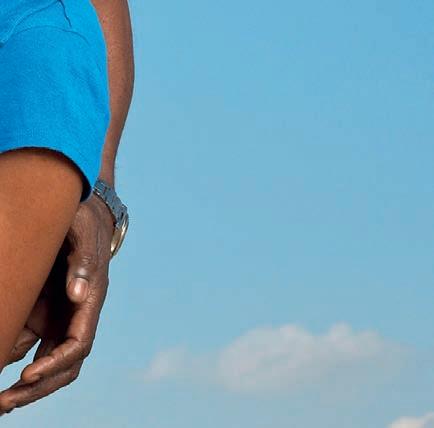


































This year, as others before, we want to bring Westminster City Council, our partners and communities together to celebrate and support our staff, communities and Black-led businesses.
The Global Majority Staff Network working in conjunction with the Equality Diversity and Inclusion team are facilitating the council’s 2023 Black History Month programme.
In recognition of the national theme, ‘In celebration of our sisters, with appreciation for all who support them’ we are keen to highlight and celebrate Black women both within our organisation, our partners and community organisation leads.
“Black History Month is significant as it s a ti e to focus not only the great work of those who came before us but also those working now.
“The month gives us the opportunity to increase our knowledge and under-
standing of diversity while confronting racism that still exists today.
It is a starting point for many conversations, and a chance to listen to unheard voices and acknowledge people’s experiences. I am very proud that we celebrate Black History Month at Westminster, and it serves as a reminder of the work we must continue to do throughout the year to address social injustices.
I look forward to marching with the similar energy of those before me and making an impact greater than myself.”
Jennifer Samuels, Head of Diversity and Inclusion and Serena Simon, Chair of the Global Majority Network.To mark Black History Month, the Global Majority Network in conjunction with the Equality, Diversity and Inclusion team, has arranged a series of events for staff that will
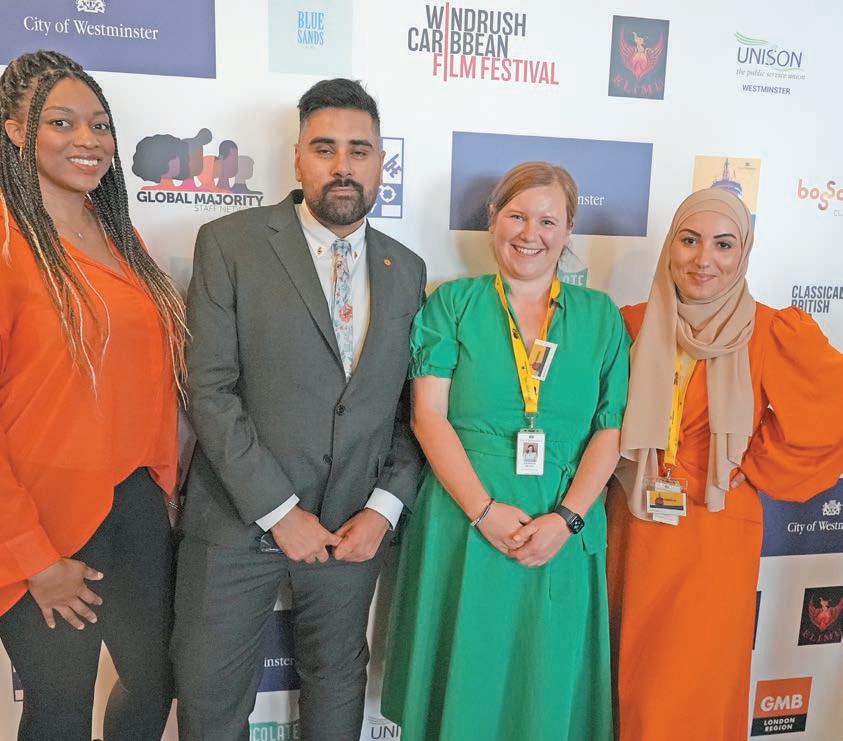
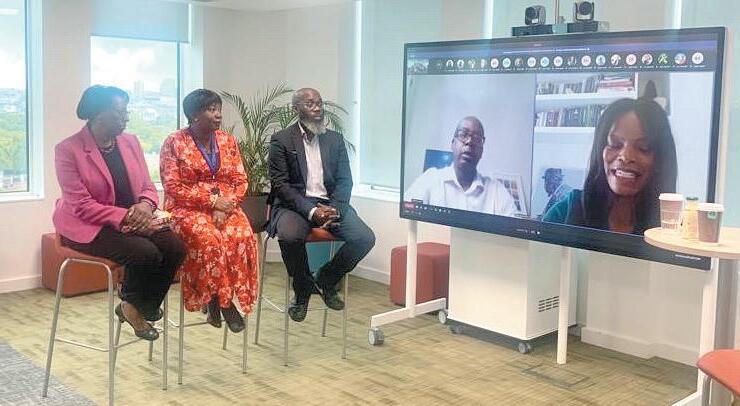
give them the opportunity to learn about and celebrate the contributions from the Black community to Westminster.
Key events include; an evening of celebration of Black excellence that includes community members and non-senior staff members.
At our Annual General Meeting we will seek to expand on the organisational anti-racism commitments we set out last year.
This is an opportunity for staff to come together to speak with senior leaders in the council about what they are doing to ensure inclusion and diversity.
History walks around Westminster will give staff the opportunity to learn a out the historical figures who have made a significant contri ution to the borough.
National Inclusion
Week 2023
National Inclusion week runs from Monday 25 September until Sunday 1 October and is an op-
portunity for employers to take action to create inclusive workplaces. This year’s theme is ‘Take Action Make Impact’ with organisations being asked to demonstrate how they are progressing in their inclusion journey.
Inclusion is important as it will ensure that everyone feels valued and adds value.
What we’re doing
As part of National Inclusion Week, we are hosting a session on disability, a series of webinars on topics such as cultural awareness and best practice, and anti-racism training with Rosemary Campbell-Stephens MBE.

All our services will be encouraged to demonstrate to our communities the Council’s everyday commitment to inclusion. Our continued focus is to ensure equity and when our staff feel valued it makes space for further inclusivity and creates innovation and growth in the organisation.
What our staff say:
“With the creation and implementation of the inclusive Apprenticeship Advisor role at Westminster City Council, we have ensured an effective delivery of our disability confident agenda within diversity and inclusion.”Simon Wheeler, Inclusive Apprenticeships Advisor
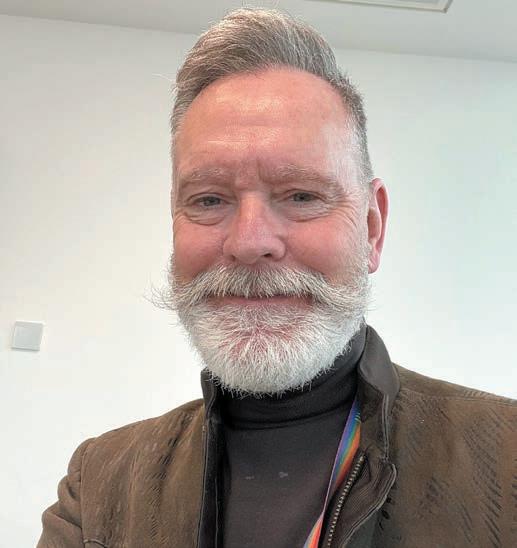
“The Kickstart Scheme at Westminster City Council allowed room for roles that were not typically accessible through standard application. I was able to acquire skills and experiences that enabled me to secure the permanent position I am in now.” - Paige Gambrah, Senior Internal Communications ficer

Our commitment to being an anti-racist organisation
In November 2022, Westminster City Council committed to becoming an anti-racist organisation. The commitment to anti-racism is a call to action to every employee
in the organisation to combat all forms of racism and discrimination. An important part of the Council’s commitment to becoming an anti-racist organisation is helping colleagues to feel empowered to address concerns about behaviour. When they witness barriers to equity and inclusion, we have created safe spaces to re ect and ha e di ficult conversations.
Pan London Event taking place on the 30 October from 2-4pm.
‘We are hosting the Pan London event- Creating racial equity – learning from different industries- Monday 30th October 2-4pm. Presentations will be on initiatives to create racial equity, the challenges and the progress. This event will be hybrid and open to a Pan London and beyond.
This is an event for decision makers within organisations, those responsible for actions to improve outcomes for all communities. More information will be available on our website soon Events | Westminster City Council
We believe inaction is not an option and have set out a range of actions which we are already putting in place which include:
• The creation of a corporate charter
• a review of our policies & strategies
• ensuring that staff attend anti-racist training and our leading an anti-racist sessions
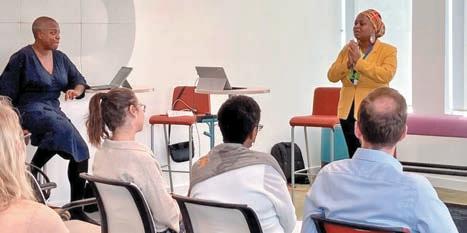
• establishing a multi-agency anti-racist partnership to focus on promoting equity, fairness and opportunity for global majority community.
These actions and other priorities are now incorporated into an action plan to drive change throughout the organisation.
Find out more www.westminster.gov.uk
1. Councillor Adam Hug, Leader of the Council, Serena Simon, Director of Communities and Bernie Flaherty, Deputy Chief Executive and Executive Director, Adult Social Care and Health
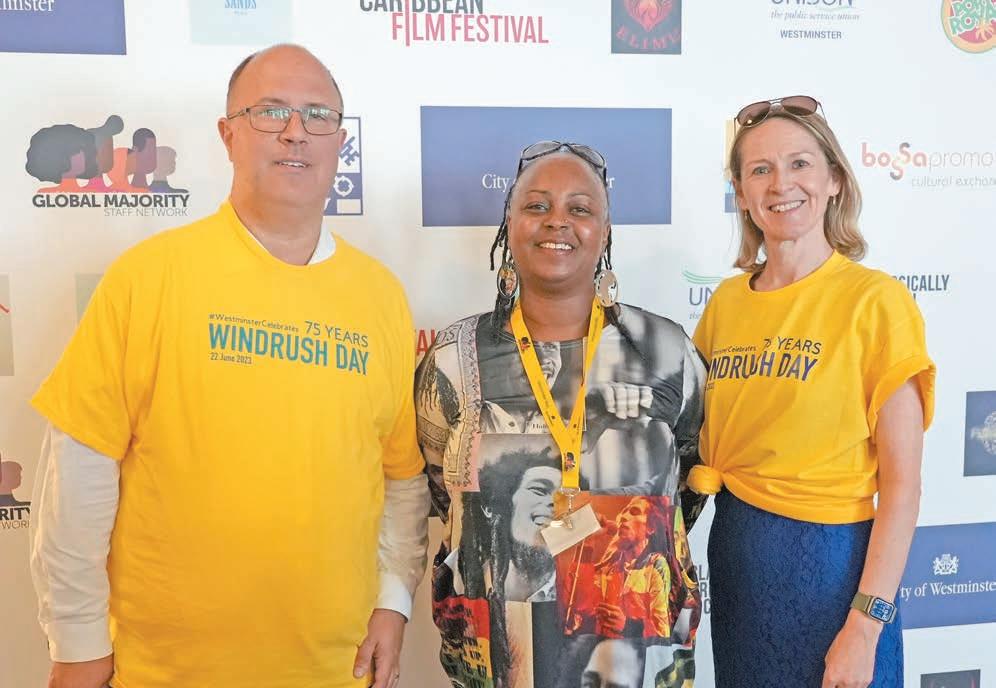
2. Councillor Aicha Less with community members at the Black History Month celebration event at the Abbey Centre last year.
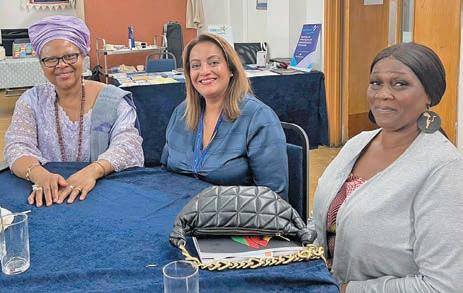
3. Serena Simon, Director of Communities at last year’s Annual General Meeting where it was announced the council’s commitment to becoming an anti-racist organisation.
4. Paige Gambrah, Senior Internal CommunicationsOfficer
5. Simon Wheeler, Inclusive Apprenticeships Advisor
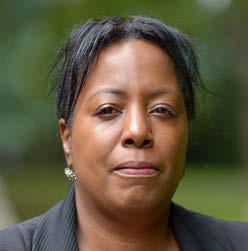
BRITAIN’S Black community remains deeply unhappy about the criminal justice system and police use of stop and search, according to our new Black British Voices survey.
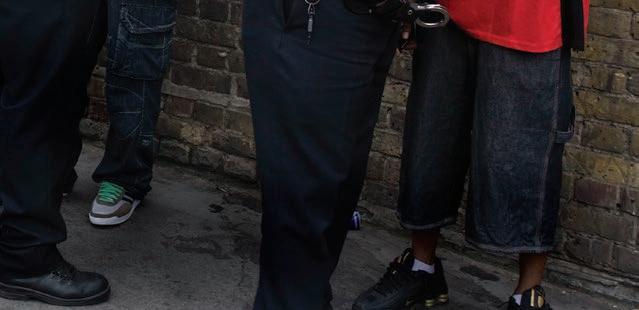
e biggest survey of Black opinion in Britain — which was conducted by e Voice and Cambridge University — found that 88 per cent of those surveyed did not trust the criminal justice system. 79 per cent believe stop and search is not being used fairly.
e Black British Voices (BBV) study, which combined polling and interviews, has shone a much needed spotlight on the critical need for criminal justice reform

e overwhelming vote of no con dence in policing and the justice system in general should be a catalyst for debate and change, experts say.
Over 10,000 Black Brits responded to the BBV poll, with 8,263 answering questions on criminal justice.
One interviewee told researchers: “We need to get rid of all the bad apples, or the rogue police o cers, we need them out. We need the police o cers to be more accountable”
Andrew Morris, a former prisoner on an indeterminate sentence who served 12 years instead of the ve he was handed and who campaigns for the fair treatment of prisoners, knows all too well how easily people fall victim to a system which often works against Black people rather than for them.
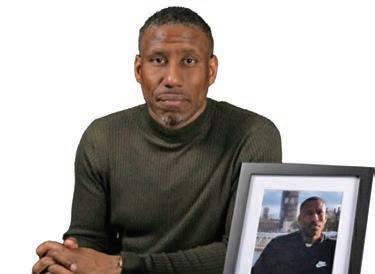
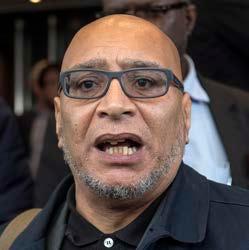
“I’m amazed it’s not 100 per cent” he told e Voice At the moment you have a 1.4 percent chance of having a complaint against the police upheld. e disparities in the criminal justice system, when it comes to Black and brown people are glaringly obvious.”
One of the major sources of

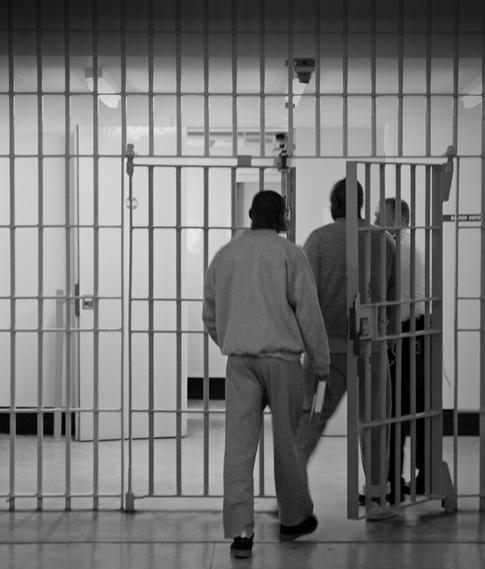
sentences but to hear this gure is incredibly high.”
McKenzie went on to say that restoring trust is essential. “87 per cent is a crisis. It’s frightening.
“I don’t know if all of those people have encountered the criminal justice system or had dealings with it themselves but this situation needs to be monitored closely.
“We need an investigation and we need training across the board.”
distrust remains stop and search and the over policing of Black communities.
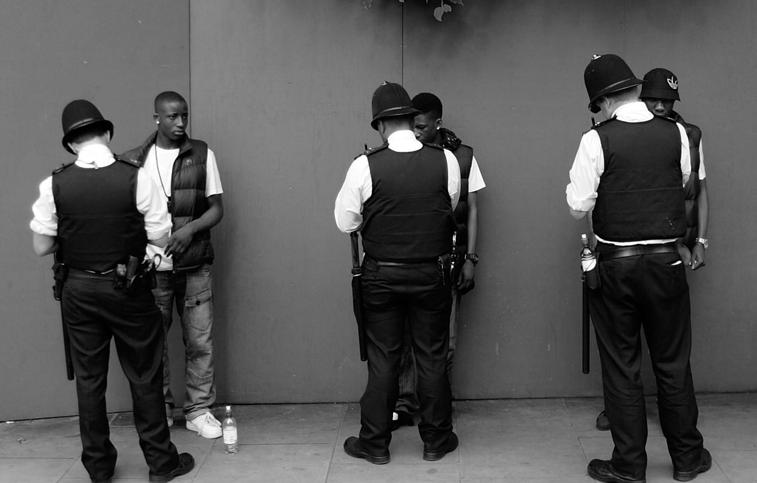
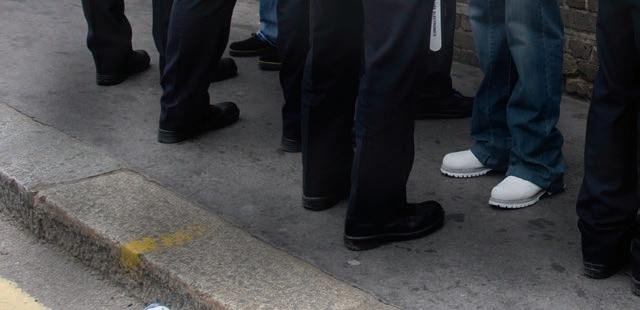
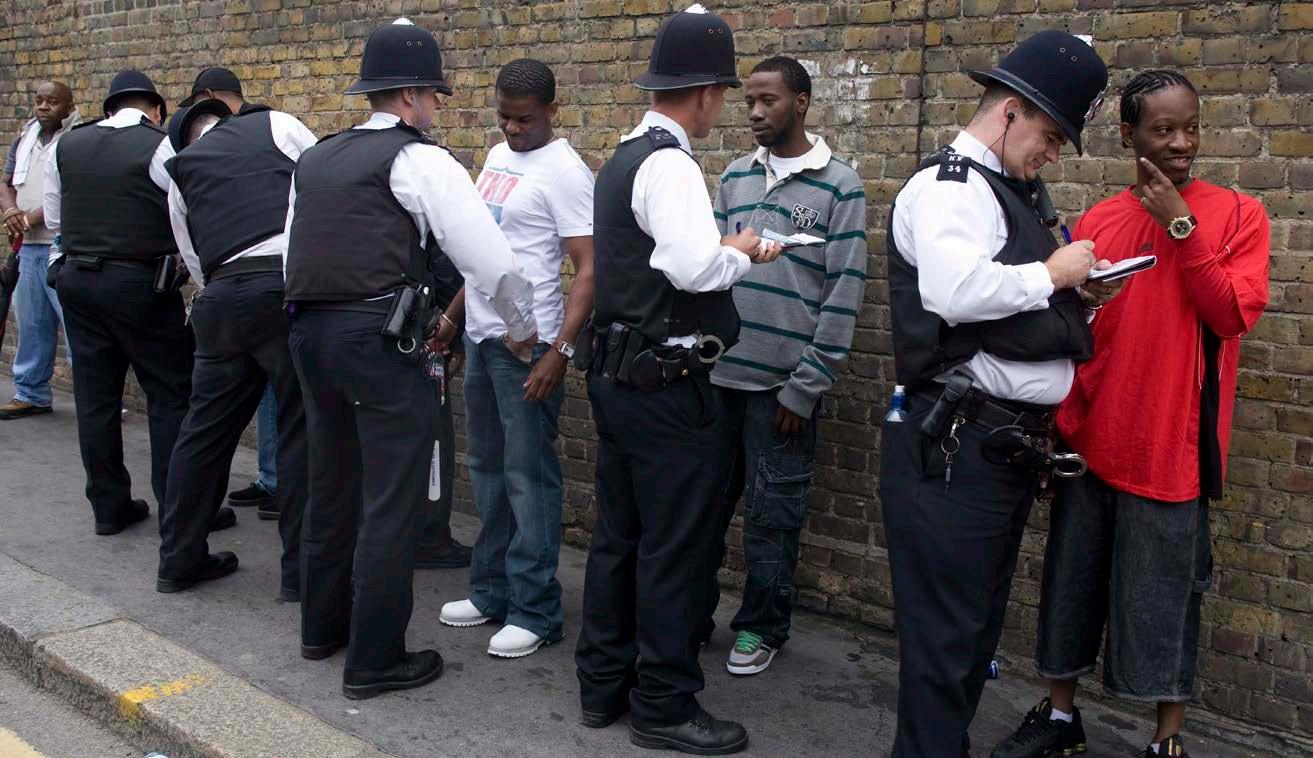
Unsurprisingly, the vast majority of BBV participants believe the practice is used unfairly against Black communities.
Morris says that stop and search is a necessary evil but targets the wrong people. He’s also mindful of the long term consequences.
“I think there’s a link between a young person who has a bad
Immigration lawyer Jacqueline McKenzie described the strong lack of trust in the criminal justice system as a whole as a crisis.
“It’s shocking” McKenzie told e Voice. “You’d always expect the gure to be high but 87 percent is nearly everyone. We all know that Black men are more likely to be charged and to receive longer
Although 33 per cent of respondents seemed ambivalent on the notion that more Black o cers “might or might not” restore trust in the system, McKenzie maintains that representation remains important.
“We want to see representation but it’s not the whole picture. It’s about changing cultural norms.
“What we’re seeing is that these organisations are rotten to the core like we’ve seen with the Black Police Association and other examples of marginalisation.”
Veteran race equality campaigner Lee Jasper, who formerly worked in City Hall, says that the views re ected in the BBV survey, especially the near unanimous distrust, must become a wake up call.
“ e vast overwhelming majority of Black communities feel this way and it’s in total contrast to the perspective of this government which has criticised, turned its back, and is in complete denial about the realities of institutionalised racism.
“It points to a profound crisis in the legitimacy of democracy.”
Similarly with stop and search, Jasper argues things have become worse. e data on policing can sometimes be misleading.
“We started o in 1999 as


25 per cent of 100,000 people being stopped and searched, to now being 25 per cent of two million people being stopped and searched. e stats might be the same but the number of people a ected is bigger.”
Jasper says that the Black community must now embark on the biggest ever campaign demanding constitutional and civil rights. “We need to guarantee Black people’s protection from systemic racism in policing and criminal justice”
he said, adding “no other solution will do.”
Overall the ndings suggest a strong consensus that the criminal justice system is stacked against Black people.
While some respondents acknowledge the need for policing by consent, an overwhelming majority view stop and search as unfairly targeting Black people. In 2023, the notion that better Black representation will tackle the root cause is viewed with ambivalence, rather than conviction, but still seen as a necessary step in 2023.
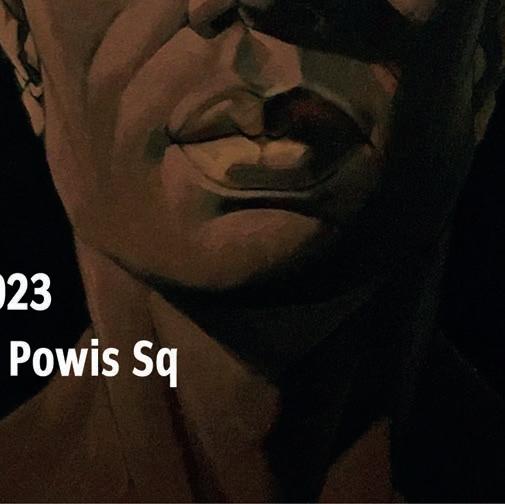
GLORIA DANIEL says TTEACH Plaques are “a call to action to ght back as we always have.”
Over the past three years, Daniel has researched her family history with the initial help of her late cousin, Johnny Daniel, who had traced as far back to their great, great, grandfather John Isaac Daniel, born a slave to the slave owner and slave trader, omas Daniel.
is Black History Month, Daniel is curating ‘50 Plaques & Places’, the rst exhibition in the UK to place a spotlight on 50 sites incontrovertibly tied to the transatlantic slave economy.
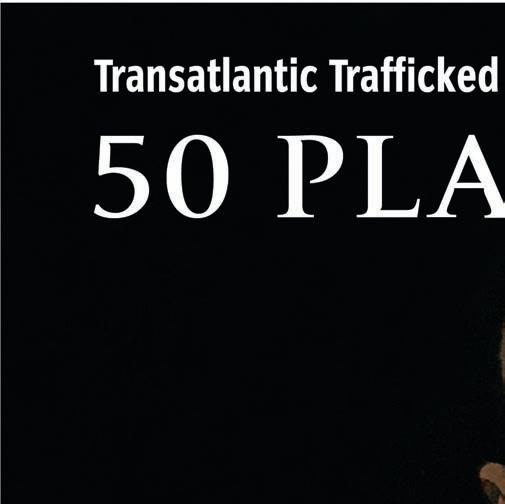
e sites were nominated by leading academics, artists, activists, politicians and African and Caribbean descendants, who bear the burden of a plantation name.
ose who share contemporary responsibility for these places will be invited to acknowledge their past role and commit to permanently displaying their donated plaque.
Speaking to the Voice on how she saw the national monument in Britain, which TTEACH Plaques seeks to establish, contributing to restorative justice and education about the history of enslavement, Daniel said: “ e 1833 Act for the Abolition of Slavery created 47,000 receivers of compensation.
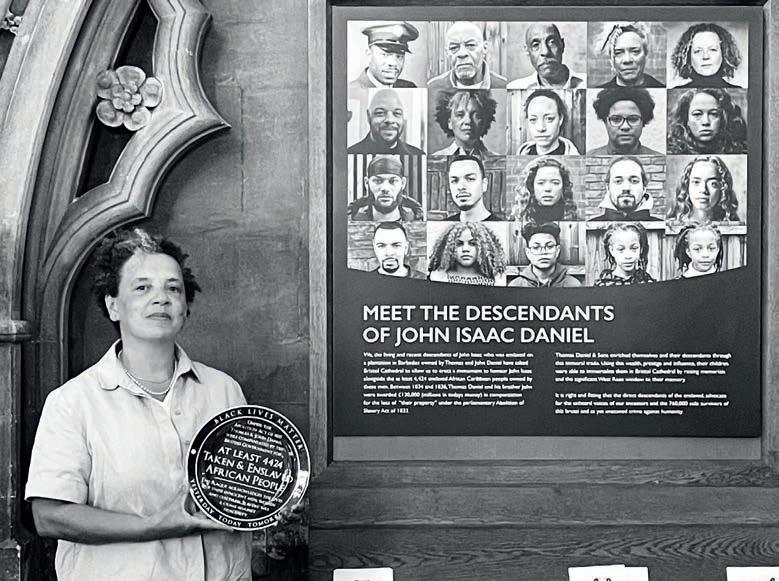
“Most of these people, have
must be permanent national memorials with the names of the SOLE survivors in the cities of Great Britain that pro ted for centuries for this crime against humanity.”
Detailing her own personal journey and what inspired her to research her family history and embark on the TTEACH initiative, Daniel said: “My father emigrated from Christchurch, Barbados, to England in 1957.
“My father’s last name is Daniel, and his mother’s last name was Walcott. In 1981, e Walcotts of Barbados and the United States held a family reunion in Cleveland, Ohio.
into the families enslaved by ancestors and showed the family who received compensation for John Isaac was one of the largest receivers of compensation under the 1833 Compensation Act.”
e exhibition is supported by SOAS School of Law, Gender and Media and will be held at e Tabernacle in London (W11) from October 2 - 29.
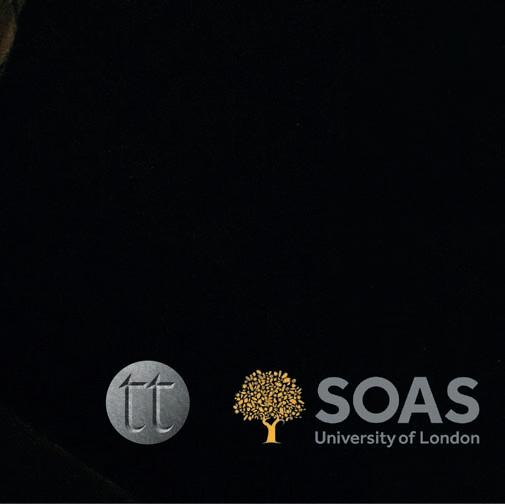
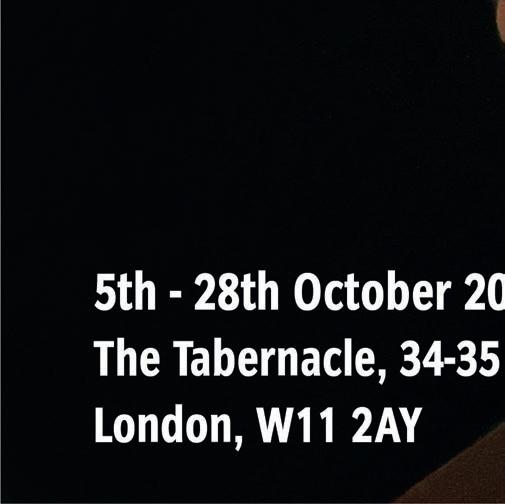
You can nd out more
about TTEACH (an acronym for Transatlantic Tra cked Enslaved African Corrective Historical) Plaques, via the website https://tteachplaques. org
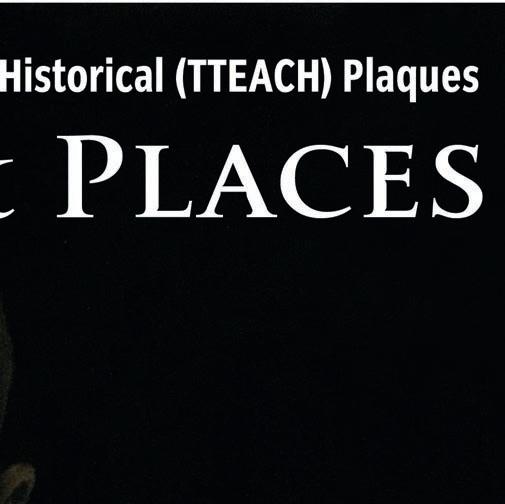
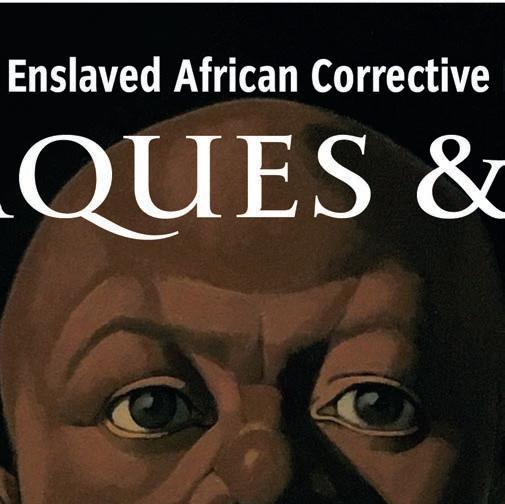
glorious memorials to their memory in the churches of Britain. ese memorials are carved in stone, polished in brass and enriched in stained glass.
“We want each and every one of these memorials permanently contextualised in the built environment and nally, there
“ is was a fantastic introduction to my wider Barbadian family. My cousin Jon Daniel created my family tree for the Walcott family reunion, did our earliest family research into the Daniels, and found our last enslaved ancestor on my father’s side, John Isaac Daniel. My cousin Jon Daniel died in 2017.”
She added: “ e events of 2020 propelled me to dig further
The events of 2020 propelled me to dig further into who received compensation
THE stigma around mental health in the Black community has long been an issue that prevents those who need it from getting vital treatment.
But new gures from e Voice’s Black British Voices (BBV) survey reveals a major shift in the way that people of African Caribbean origin view mental health compared to previous generations.
According to the data, modernday Black Britons feel there needs to be more openness and honest conversations about the issue.
Young Black people, particularly members of Generation Z, are more likely to seek help from mental health professionals compared to earlier generations who felt they had no choice but to cope without complaining or risk being seen as ‘weak’.

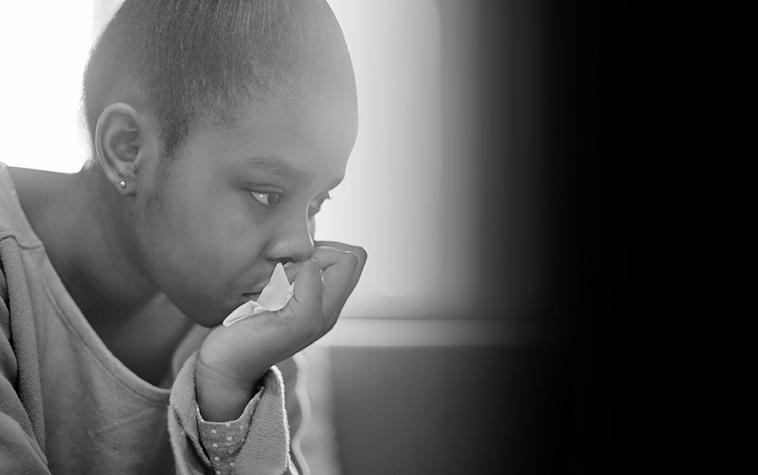

e BBV research found that nearly 70 per cent of those questioned said they or members of their family had battled with mental health issues.
However, marking an important change, 87 per cent of respondents felt that mental health was not discussed enough in the home — indicating a desire to tackle the stigma that prevents people from talking about the issue.
By Vic MotuneInstagram have really boosted openness around the issue and de nitely helped to open conversations about mental health.”
One person who was interviewed as part of the study said: “When we grew up, we never used to see our parents complain. ey’ll just take it on the chin, like slavery. So I feel like it’s just embedded in us. But I feel like we need to actually speak up about it and make sure things are going a di erent way.”
A number of factors have contributed to this greater willingness to talk about mental health. Black celebrities have played a key role.
In recent years high-pro le gures such as Jay-Z and Michelle Obama have opened up about their struggles with mental health and encouraged those struggling to get help.
In November 2017, former world heavyweight boxing champion Frank Bruno won several plaudits following an exclusive interview with e Voice in which he highlighted his battle with mental illness, the impact it had on his family and his road back to health.

Hashtags like #BlackMental HealthMatters have helped to create safe spaces for opening up discussions.
Ariel Breaux-Torres, Head of Race Equity at Mind, said: “Platforms like Tiktok, and
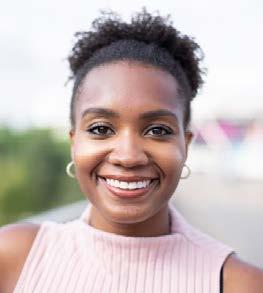



Social media is a key tool for R’n’B singer JayJayBorn2Sing who uses his music to raise awareness about mental health issues.
Earlier this year, he wrote and released a single called ‘Champion’ after a traumatic period in his life.
He said: “Someone very close to me made three suicide attempts. I’ve also had my fair share of battles in terms of suicidal thoughts.
“My life hasn’t been the greatest.
So I was writing the song about myself and about my friend. e day after I recorded it another close friend of mine died.
“I needed to express how I felt through the song. Many of us who’ve grown up in the Black community have been taught to suppress emotions.
“Champion’ challenges the perception of suicide as weakness, and the tendency we have in the Black community to not talk about these issues.
“I wanted to acknowledge those who’ve survived suicide as champions because they’re still
70% of respondents said they or their family members had battled mental with health issues.
here, still carrying on. It celebrates their resilience and courage despite their mental health struggles.”
He continues: “When I released the track on Instagram and other social media platforms the response was phenomenal. People started posting their own videos in response, explaining why they too were champions.”
However, although Black Britons now talk more openly about mental health compared to earlier generations, stigma around the issue remains.
More than two-thirds (68 per cent) of those polled con rmed that either they or a member of their family had struggled with mental health issues.
One interviewee highlighted the issue by speaking about his father who went through traumatic experiences growing up as a Black man in 1960s Britain.
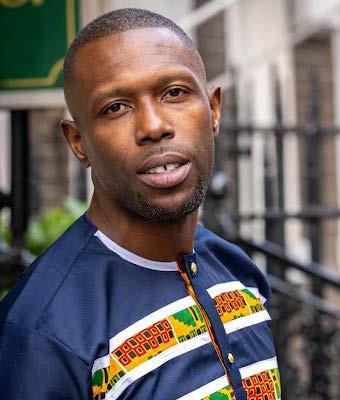
“My dad doesn’t really talk about it (mental health). I look at him and think here’s a Black man who lives on his own in his mid-50s, and I re ect on some of the conversations we’ve had together, and it’s clear that he’s got something going on.
“ e stories he tells me, I’m like, ‘you should really talk to someone at some point Dad!’ But I know he would never say a word.”
Another BBV participant said: “People used to laugh and say


‘Black people don’t have mental health problems, that’s a white people thing, we can just tough it out.’”


e reasons behind the high numbers of Black people experiencing mental ill-health are complex but a growing body of other research points to the substantial psychological toll of everyday racism.

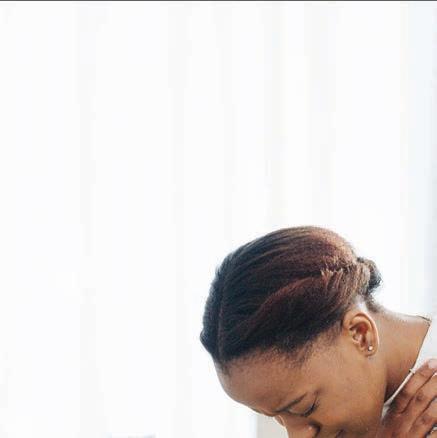
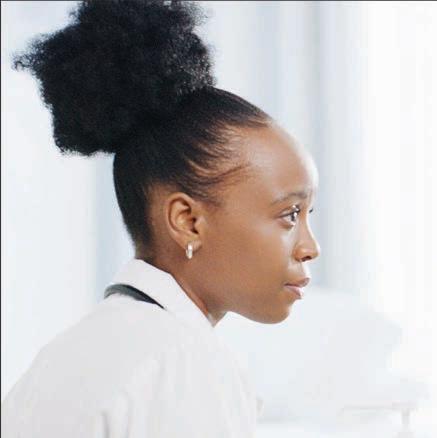
Mental health problems are also more likely to occur among people who are struggling nancially or living in poverty.
When racism is added to these other societal factors such as poor housing or school exclusions it can have a major impact on mental health.
Our research found that 81 percent of BBV participants felt that the mental health system was inadequate for the community’s needs.
Despite facing higher rates of



Nearly
Culturally-sensitive services are increasing, but concern remains about mainstream system.
Is the UK healthcare system suitably equipped to support Black people with mental health requirements?
severe mental health diagnoses Black people, especially men, often avoid seeking help due to a historical mistrust of the system, which has a record of misdiagnosis among Black patients.
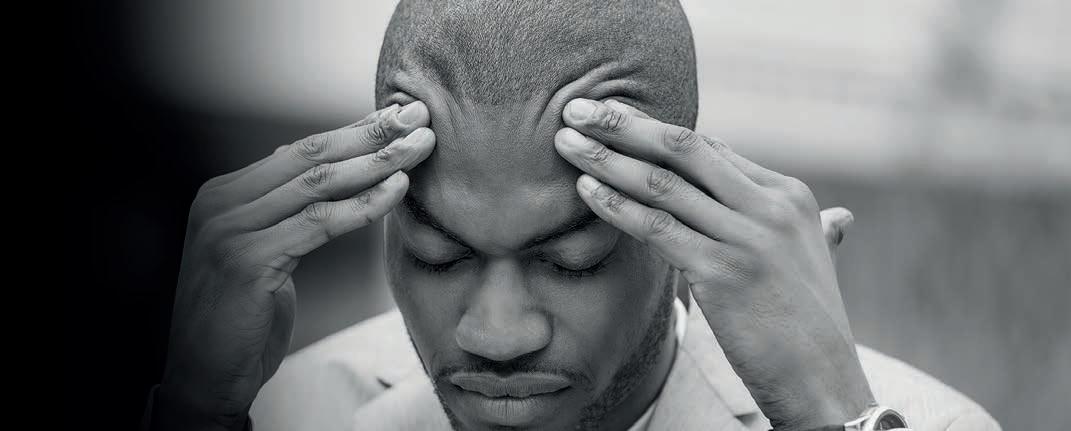
Eighty-eight per cent of BBV survey respondents answered either ‘de nitely’ or ‘somewhat’ yes when asked the question of whether they ‘feel there is a problem with misdiagnosis, over-medication, or unfair treatment towards Black people in the provision of mental health care in the UK.



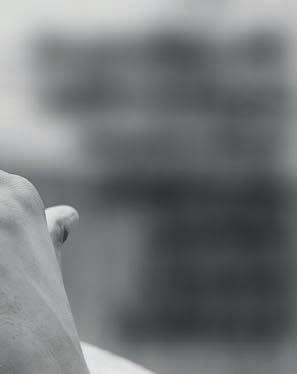
e high-pro le deaths in police custody cases of Kingsley Burell-
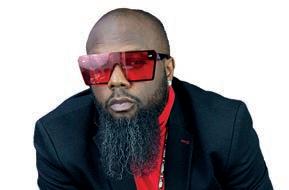
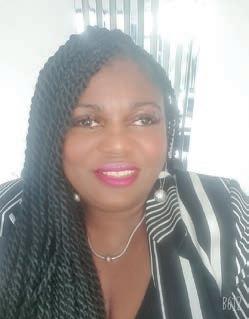
Brown, Sean Rigg,
Lewis,
and


— who were all su ering mental ill-health — have reinforced the view that mental health struggles will be met with force rather than treatment.
Since the tragic death of David ‘Rocky’ Bennett in 1998, which led to a public inquiry in 2004, it seems as though little has changed for Black people in the mental health

system. NHS mental health services have also been slow to adopt culturally competent mental health care, something that campaigners have long called for.

Author and mental health therapist Jarell Bempong, who recently published the book ‘White Talking erapy Can’t ink in Black’ says that diverse, tailored approaches are essential to delivering culturally competent care and addressing inequalities in service delivery.
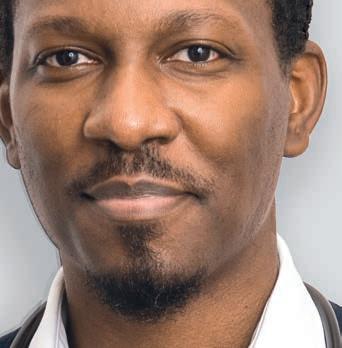
“White-led talking therapy often fails



MANY organisations have been launched during the past decade to support Black people who are experiencing mental ill-health with culturallycompetent care.
One such organisation is the Black Health Initiative, a charity in Leeds which emphasises what it calls cultural intimacy as a way of helping to create a space where people can open up.
are in crisis music and food can be very soothing.
“They can be symbols of something familiar, a connection to happier times, which can be important to a person’s recovery.
Black people because the people delivering it often lack cultural empathy due to societal power dynamics and privilege. I struggled to nd a therapist who understood my cultural experiences. is leads many Black individuals to only ever accessing mental health treatment through the criminal justice system, resulting in worse outcomes.”
Bempong continues: “Modern psychology was shaped in an era of white supremacy, neglecting Black experiences. We need to integrate culturally relevant approaches to make therapy inclusive and relevant for Black and minority people.”


Chief executive Heather Nelson said: “Our service users say that when they come to a Black counsellor, they don’t have to explain mannerisms.
“So, for example, if a Black person kisses their teeth, we wouldn’t be asking for an interpretation of that because culturally we are aware of what that means.
“At group discussions, we’ll always have Caribbean food. We’ll have music such as reggae or RnB. It sounds really simple but when people
“A big part of the group discussions is asking people what they do to cope when they’re feeling unwell. Some are honest and say they’ll smoke a spli .
“Others might tell the group how they play squash. I’ve heard the discussions where someone will come and say ‘what you doing with squash? It’s a white man’s sport.’ But before you know it peer support, and sharing of ideas to support recovery, is happening right in front of them.”
Olaseni Colin Holt, Mikey Powell Roger SylvesterIs a problem with unfair treatment towards Black people in the provision of mental healthcare? Dr Seun Bakare
BLACK British people overwhelmingly believe they receive unfair treatment from healthcare professionals because of their race.
e ndings from the landmark Black British Voices (BBV) study found a staggering 87 per cent of participants said that Black people receive a substandard level of healthcare because of their race.


Alarmingly, only seven per cent of participants felt that Black people in Britain receive fair treatment within the health sector.
Equality campaigners say the health and wellbeing of the Black British community is at risk and there is an urgent need for investment in culturally competent services to tackle the racial health inequalities.
Speaking to e Voice, Professor Patrick Vernon OBE, Interim Chair of Birmingham and Solihull NHS Integrated Care Board (BSOL ICB), said: “ ere is a growing network of Black clinicians, health practitioners and new generation of Black-led health projects and community organisations.
“We need investment and funding to test new ideas, products and services which are culturally relevant and sensitive to our needs and aspirations.”
Prof Vernon, who has over 20 years senior experience working across public and mental health, heritage and inequality, said the ndings of the report are longstanding.
“ e health section of the BBV report re ects negative experiences including sta experiences since the establishment of the NHS in 1948 when the Windrush generation



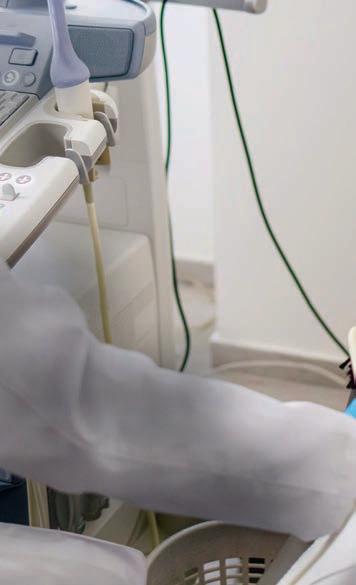
also came to work for the health service.”

e low expectations of fair treatment could also apply to “other aspects of health care such as diabetes, stroke, cancer, sickle cell, blood transfusion and organ donation” for the Black community, according to the renowned campaigner. e gures from the survey, conducted by e Voice and Cambridge University highlight there is still a deep sense of mistrust of the national healthcare system within the Black British community – despite the fact the NHS has a high number of Black employees.
Sadly for many, the distrust is fuelled by negative experiences
and interactions between Black patients and healthcare professionals.
Critically, some interviewees and focus group participants expressed racially discriminatory practices and anti-black stereotypes have frequently occurred in their presence.
Wider socio-economic factors such as poverty and high unemployment were all noted to impact the overall health of the black community.
One BBV interviewee linked racism as having a direct impact on health and said racism impacts your con dence, mood, blood pressure and diabetes.

e interviewee added: “ ink about your eating habits because some people eat for comfort because that’s a coping mechanism for the racism that they’ve experienced.”


Prof Vernon is also the Chair
of Walsall Together Partnership Board and Patron of ACCI, a longestablished Black mental health charity in Wolverhampton.
He is urging local government, the NHS and health charities to all create a “new approach” working with the Black community to ensure the health and wellbeing of Black Britons is on the agenda and not ignored.
He added: “ ere is a growing body of public health research which highlights the impact of racism and legacy of enslavement on the health status of the Black community. e NHS in partnership with local government and mainstream health charities need a new approach around cultural competencies and system leadership, around service delivery, commissioning, patient safety and co-production with the Black community around our health and wellbeing.”
One solution that was put forward by participants was for the current and next generation of Black Brits to be “mindful about our health” and to ask healthcare professionals more questions and not think they are “beyond reproach.”
Another area of health that was a huge concern to those surveyed was the racial disparities for Black women during pregnancy and childbirth.
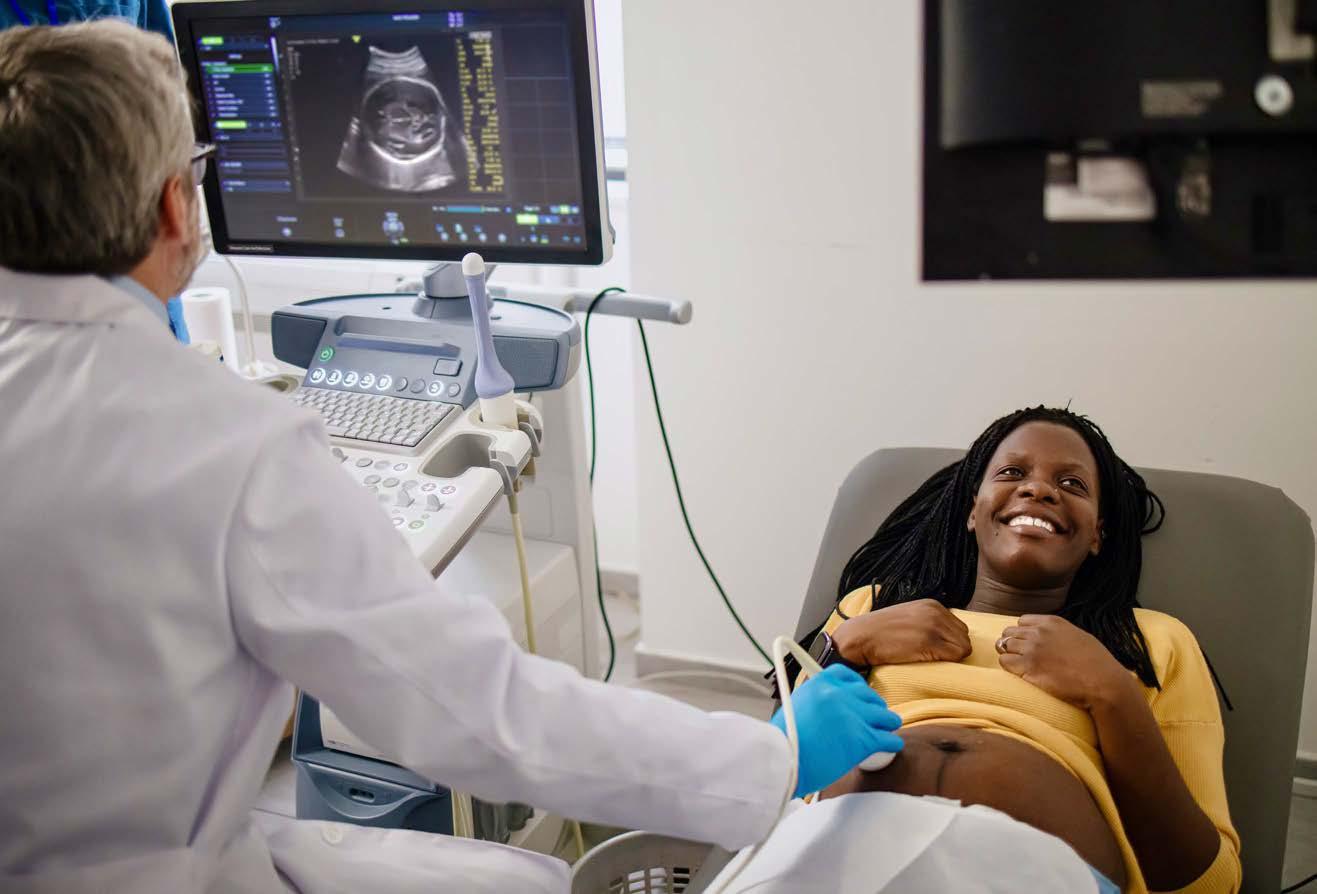
Continued on page 24

Only
7 % of respondents felt Black people in Britain receive fair treatment within the health sector
“There is a growing body of public health research which highlights the impact of racism and legacy of enslavement on the health status of the Black community.”
– Professor Patrick Vernon, OBEThe BBV report reflects negative experiences for Black workers in the NHS
NHS should work with Black communities to improve service after our survey uncovers huge levels of distrust.
By Sinai Fleary
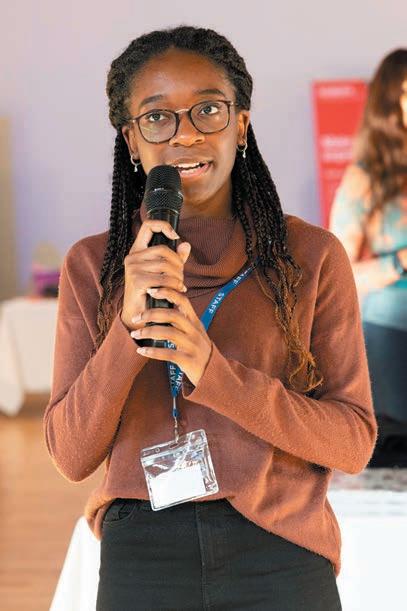

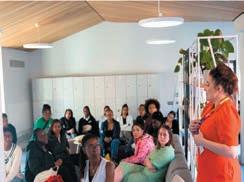

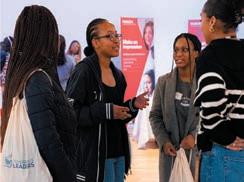

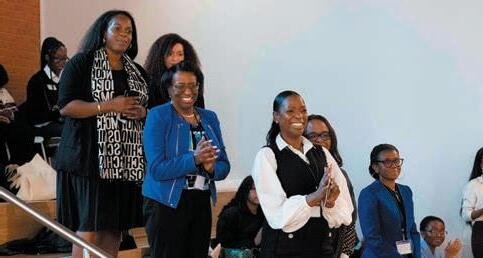
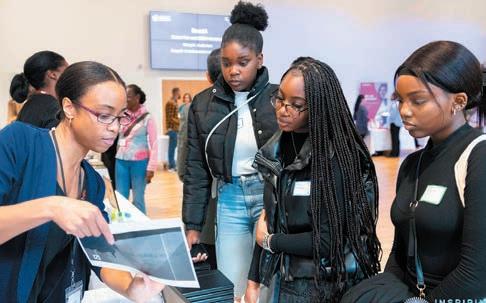
We invite you to be a part of something extraordinary— where dreams are nurtured, pathways illuminated, and potential ignited.
At Inspiring Tomorrow’s Leaders, we’re gearing up for an event that promises to be bigger and better than ever before: the Inspiring Tomorrow’s Leaders Career Fair! This event is a testament to our unwavering commitment to empowering young girls aged 13-18 of African and African-Caribbean heritage.
Our mission is clear: to provide these young girls with invaluable resources and opportunities, free of charge. From academic support and educational guidance to personal and professional skills building, we aim to broaden their horizons and showcase a world of possibilities. The Career Fair is a pivotal moment, offering a chance
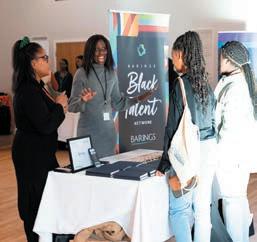
to interact with companies and individuals across various industries, inspiring them to dream big and explore diverse career paths.

One of our Scholars said “This ITL Career Fair will give me clarity on what I like and what I dislike and maybe what I am more likely to go into in the future.”
This year, we’re also taking it a step further. We are introducing an exclusive session for parents, equipping them with insights and advice on navigating the University system, ensuring every aspect of a child’s journey is supported and guided. Your continued support and presence at this event are vital, as we strive to engage and empower these young minds, building bridges towards a brighter future.
Find out more https://tomorrows-leaders.org




RACISM IN education is the single biggest factor holding back Black educational achievement, our Black British Voices survey has found.
Eighty per cent of the 8,236 Black Britons who responded to the education questions said racial discrimination in the education system is the biggest barrier facing young people.
An even higher proportion — 89 per cent — said that schools and colleges failed to adequately support the needs and aspirations of Black students.
And 95 per cent said that Black history and culture was not su ciently represented in the National Curriculum.
e strength of feeling among Britain’s Black community over the failings of the education system should give professionals in the sector pause for reflection over what is going wrong.
e survey’s findings

correlates with more Black parents opting to home school their children as a way to protect them from systemic racism in the educational system.
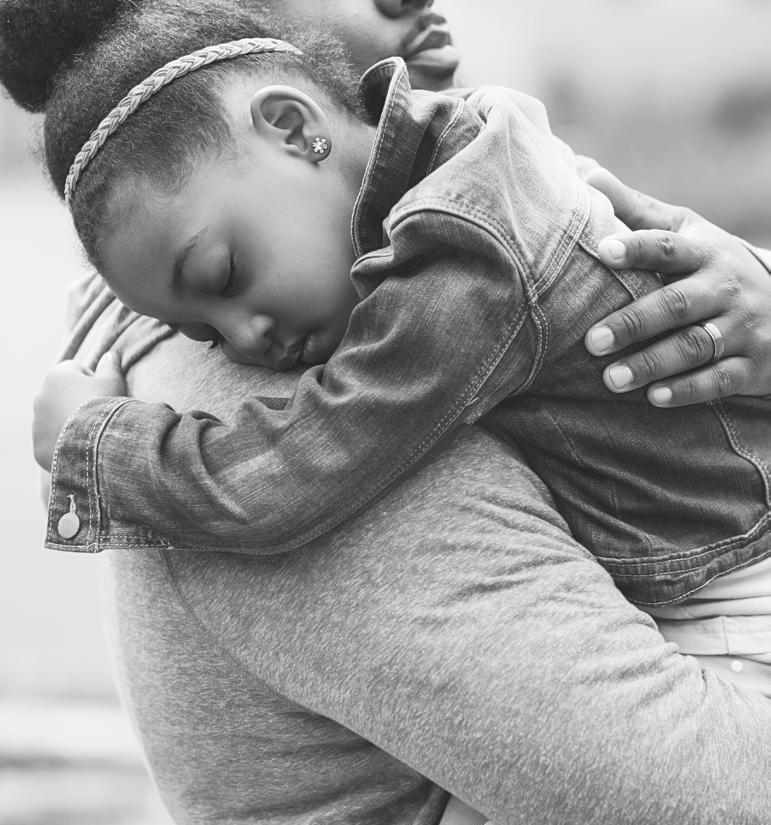
Just four per cent of those surveyed think that racism is ‘de nitely not’ a barrier for Black kids. For Black teachers and campaigners, these ndings come as no surprise and now they are demanding the government take action to address these longstanding issues.
Elisabet Co Rope is an awardwinning teacher at King sher Hall Primary School in En eld, north London.
She said many teaching sta working with Black children have never interacted with Black families before and this is a major problem that impacts the child’s academic performance.
Speaking to e Voice, she said: “Most of these teachers have a view of what they see on the TV, which includes stereotypes or high level of pro ling, but they have never interacted with Black families before — until
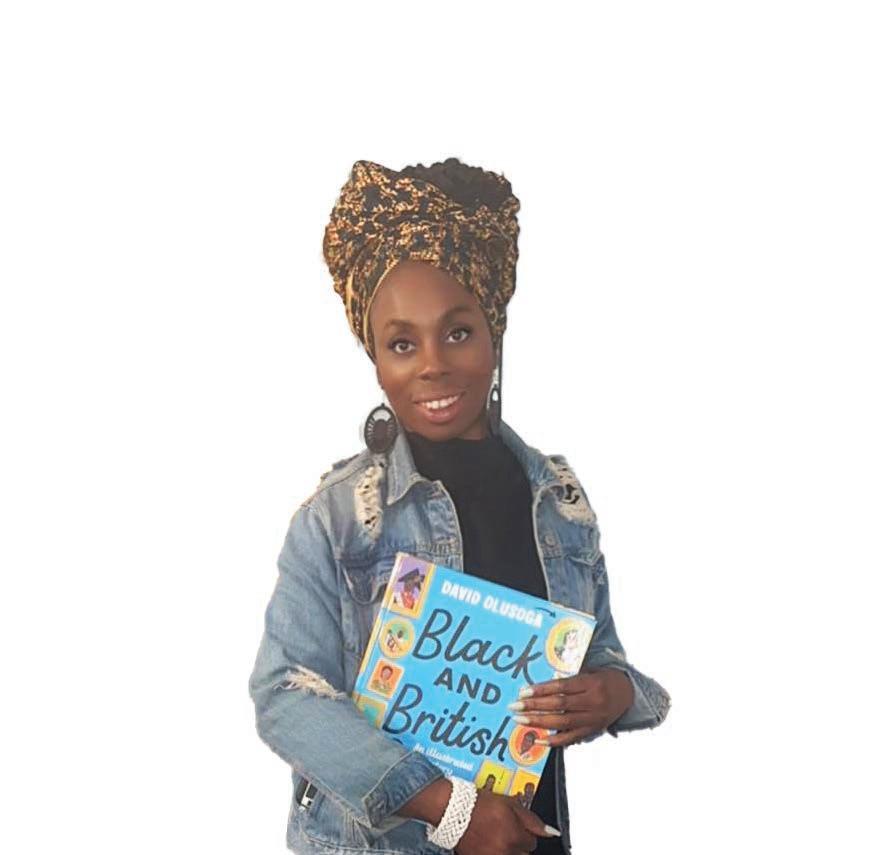
Award-winning teacher Elisabet Co Rope
they come into the classroom.”
Past reports have also cited racism as a possible reason Black students underperform at school.
In the UK, a 2019 study by Oxford University found that Black Caribbean pupils, including those with mixed heritage, are twice as likely to be identi ed as having special needs compared to their white peers.
Racism from teachers and a lack of understanding of cultural di erences are among possible factors cited in this report as
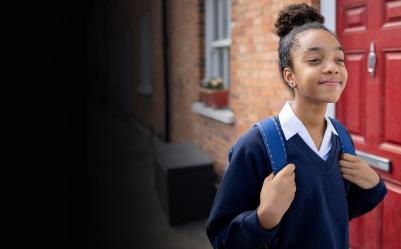
95 % of respondents said that Black history and culture was not sufficiently represented in the National Curriculum
r s rvey finds vast ma ority of Blac Brits dissatisfied ith system.
By Sinai Fleary
you think racial discrimination is the biggest barrier to young Black people’s academic attainment?
possible reasons for the overrepresentation.
Co Rope is advocating for mandatory culturally competent training for all teachers — including Black teachers — to tackle the low expectations some educators have towards Black pupils.
She believes the mandatory training would ensure everyone is equipped to understand the needs of Black children.
According to Co Rope, any potential training should provide educators with key “subject knowledge” on Black histories and be similar to what is required when they are working with children with Special Educational Needs and Disabilities (SEND).
“Our SEND children need to be satis ed, so why not also the needs of our Black children, it’s the same,” she said.
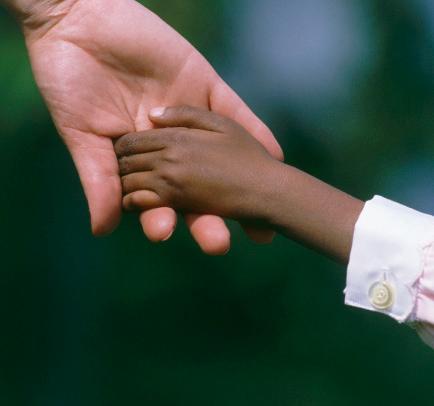
During the 1960s and 70s, hundreds of Black Caribbean children were wrongfully labelled as “educationally subnormal” and were sent to special schools.
Decades later, Ms Co Rope said poor educational expectations that some teachers hold towards Black children, could stem from the educationally subnormal era.
Black households may also have low expectations of their children, based on the negative past school experiences of parents and grandparents.
She said this is having a ripple e ect on the next generation of Black students so much so, that sometimes Black parents do not believe in their children’s potential.
Co Rope revealed that throughout her eight years teaching in England, she has witnessed “a high level of avoidance” by some teachers to speak to Black parents — and often parents evenings happen in school halls and not the classroom because “some teachers would feel intimidated”.
She also urged African Caribbean parents to ensure they are regularly having conversations with educators about their child’s progress.
Racial discrimination in schools came under the spotlight in high pro le cases such as Child Q, the 15-year-old Black girl who was strip searched by police o cers while menstruating at her school in Hackney, east London.
Cheryl Phoenix is the founder of e Black Child Agenda, a wellknown community organisation that helps parents from the African and Caribbean community –whose children are failed by the UK education system.
Phoenix described the ndings of the report as having “con rmed” what Black people have been saying out of the education system for years – that it is “ awed.”
She said: “It is sad that in 2023, going into 2024 that the ndings are still similar to 10, 20 or 30 years ago, not much has changed.”
She said schools need to do more when it comes to teaching Black history and move away from the “default position” of starting at slavery, something that was also highlighted in the report.
Attainment
The latest government GCSE statistics published in March 2022, for pupils at state-funded mainstream schools in England, show 48.9 per cent of Black students got a grade 5 (equivalent to a C) or above in English and maths GCSE.
For Black African students, this figure was 53.6 per cent
For Black Caribbean students was 35.9 per cent, which was the third least likely group of pupils to achieve grade 5 or above in English in maths GCSE.
Gender di erence
In every ethnic group except one, girls are still outperforming boys and are more likely to get a grade 5 or above.
The Black African ethnic group had the biggest gap between boys (48.2 per cent) and girls (58.9 per cent) passing English and maths.
For Black Caribbean boys, 30.9 per cent passed English and maths, compared to 41.0 per cent of Black Caribbean girls

Exclusions
In 2016, the Department for Education (DfE)
found that Black Caribbean children were three-and-a-half times more likely to be excluded, than all other children at primary, secondary and special schools.
Special Educational Needs and Disabilities
A DfE report published in June 2022 into SEND pupils in Britain found Black Caribbean pupils have the second highest percentage (5.4 per cent) of pupils with an Education, Health and Care Plan, with only pupils of an Irish Traveller background having a higher rate.
School workforce
In 2021, 85.1 per cent of all teachers in state-funded schools in England were white British. There were just 1.1 per cent (5,173) Black Caribbean school teachers in England during the 2021/22 academic year, and 1.0 per cent (4,477) teachers were of Black African heritage.
Black headteachers According to School Workforce in England
figures from the DfE, there were just 0.2 per cent (47) Black African headteachers in England and 0.7 per cent (155) Black Caribbean headteachers in England.
buildings at the weekends or their local churches to provide after school classes and activities to help their children.
She added: “Where is our responsibility to our children to say we are not going to allow a system or the system or individuals within a system to fail our children solely based on they are of a di erent skin colour.”
Phoenix said she has seen a stark rise in the number of Black children being the victims of racist bullying and also having mental, social and emotional needs which are not being picked up on or supported in the right way.
She said “Every week we are seeing Black children where there’s a problem with bullying or racist discrimination by other students or even teachers. ese are having a massive impact on children and parents.”
THE African Diaspora Public A airs Committee CIC (ADPAC) created the tailored wraparound service for young people of African and Caribbean heritage between the ages of three and 21.
ADPAC launched the School-to-Industry Pipeline to provide life-changing opportunities for Black youth and describe their work as an African Diaspora response to the crisis some young people are in.
Founded by Dean Okai Snr, the company’s School-to-Industry Pipeline aims to counteract the School-to-Prison pipeline — where Black children are excluded from school and at-risk of being criminally exploited.
Okai said the problems Black children face while in the education system needs to be tackled like a “public health emergency” because their spirit is being “killed” in the classroom when faced with racism and racial discrimination.
Speaking to The Voice, he said: “School is not built to educate you, the school system is there to reduce you into employees.
“What they require is to reduce your spirit, reduce your character, reduce your tenacity, so that you are there to serve the establishment.
a positive change in the students from the very first session, which he feels is partly down to the fact he is a Black man.
This was also a key finding from the survey and interview data, which found having a Black teacher or simply having their presence in the classroom can help students feel comfortable being themselves and this is extremely important for Black students who have experienced feeling ‘trapped’, undervalued, misjudged or stereotyped.
According to Okai, the breakdown of trust in the education system within the Black community stems from disproportionate exclusions and historic injustices such as Black Caribbean children being wrongly labelled Educationally Subnormal (ESN).
As a response to ESN, the Black community mobilised and it was the catalyst for the rise of the Black Supplementary School Movement across the UK, something Mr Okai believes is still needed.
“Educationally Subnormal is now called Pupil Referral Unit, it’s the exact same policy in a
In the interviews, respondents also said they felt let down by the education they had as the curriculum was too narrow and did not include African culture, and the legacies of the empire.
Some Black parents are no longer risking their child’s education and have continued to home school their children after Covid-19 lockdowns because they have seen how their children have “ ourished” in a more “caring and loving environment.”
e education campaigner says one solution to poor outcomes is for the Black community to revive the Black Supplementary School movement and use school
She said the Black community is “left out on a limb” because legal challenges cost between £50,000 and £100,000 and as a result “we are left in a cycle of bullying, failings, children being put in isolation, children are having mental health breakdowns, attempting suicide, self-harming, this is the reality of what is going on right now.”
She added the ndings of the report highlight that “schools are not seeking the help for the children, they are just labelling them as bad, disruptive, violent and aggressive when what they need is care, love, attention and support.”
Continued on page 24
“The establishment has designed an educational system to maintain the status quo and we want to believe it is something else.”
Okai added unless the Black community takes drastic action, Black children will continue to experience the same poor levels of achievement and care.
The founder has been working in schools since 2003 and says he specifically provides critical thinking workshops to African Caribbean boys, to also support them emotionally and spiritually.
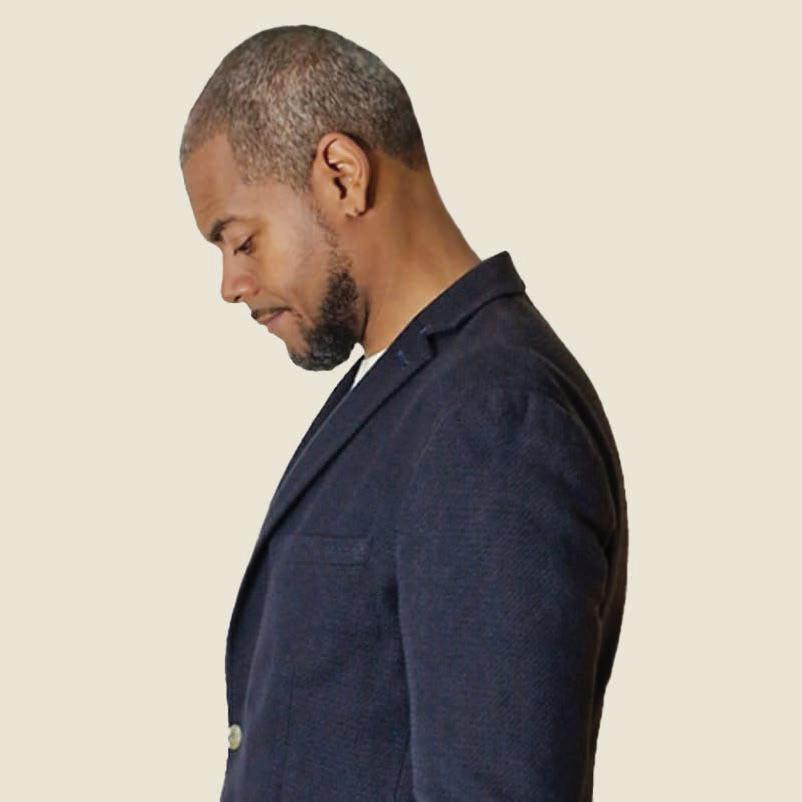
He says he usually notices
di erent blanket,” he added. Okai added the reason Black boys feel alienated is due to the fact the women. He said: “They approach them in a more aggressive way counterparts. Once you no in educational and their and criminal one.”
majority of teachers in school are white and less compassionate way in comparison to their European have alienated them, they now create their own culture and they are no longer interested attainment. If they feel like they do not have a place in this system, they will create and embrace, uphold and promote their own cultural system and it just so happens to be a
Dean Okai“Most teachers have a view of what they see on the TV, but they have never interacted with Black families before – until they come into the classroom.”
lis et ffi e
Phoenix said the speci c needs of Black children have always been “overlooked” and is demanding the government to put in place policies that will end unlawful exclusions of Black children, and end hair discrimination in school.
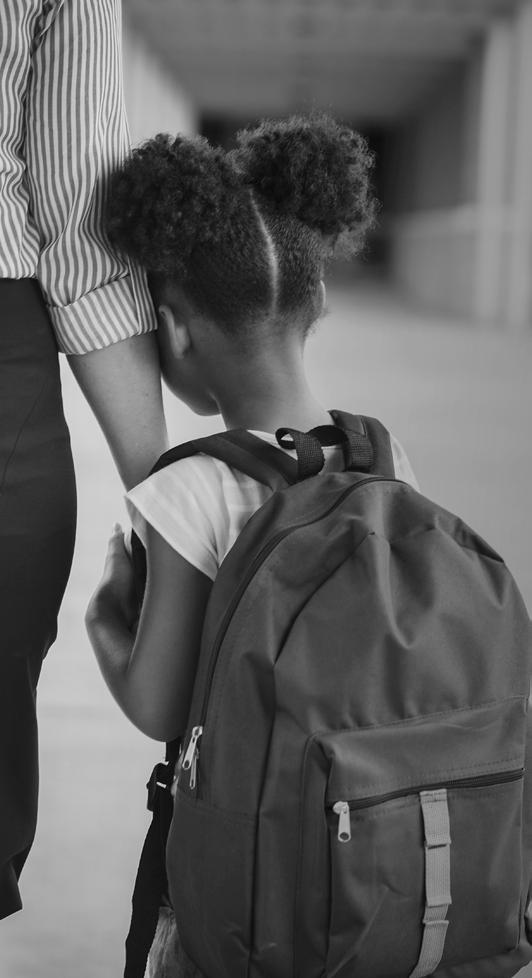
She said: “ ere needs to be policy, not just sound bites because they want votes, not just sound bites because it looks good because we are standing in front of them, but actual real policies that have to be adhered to by all schools.”
She says she would also like to see the end to “schools who use social services as a weapon, when they are being challenged by Black parents whose children have been racially discriminated against.”
She added: “When a Black family asks for help they are ignored and social services may be called and the parents may be threatened.”
THERE is very little that is new about the findings of the BBVP survey. What is concerning, however, is the high percentage of respondents (94 per cent) who believe that teachers have lower expectations of educational attainment from Black students than from non-Black students. Teacher expectations have been correlated with poor schooling outcomes for Black students for more than half a century.
The nature and predominantly Euro-centric content of the curriculum which has predominated despite the annual rise in the number of Black and Global Majority students joining the schooling system is itself linked to low teacher expectations. So, too, is the still relatively low percentage of Black teachers and especially of school managers.
In fact, the survey gave voice to a creditable cross section of Black students and education practitioners who talked freely and forcefully about their schooling and higher education experience and how that related to other areas of their lived experience as Black people in British society.

The importance of this is that the participants demonstrated that while the education sector might still harbour, however subliminally, notions of the relationship between race and intelligence, which biological racists argued as fact for decades, their experience is of systemic and structural racism and the failure of the education system to prioritise tackling racism in education in all its manifestations, so that they could be their best.
This failure is accentuated by the atomising of leadership and accountability through academisation and the absence of statutory mechanisms for holding schools and higher

education to account. The report highlights ‘the need for further research, better data and more e ective data collection’.
However, of paramount importance in my view is the need to ensure that schools and all education providers show credible evidence of compliance with equality legislation and with the United Nations Convention on the Rights of the Child.
How many education organisations, for example, could demonstrate evidence of delivering the Public Sector Equality Duty of the Equality Act 2010 as it relates to sta recruitment and retention, leadership and management, curriculum, complaints, victimisation and ensuring that children of all ethnicities and social backgrounds are being equipped with the knowledge, understanding, skills and aptitudes with which to build a future Britain with the hallmark of racial equity and social justice?
This study should be a lever for us to compel the government to show leadership and clearly define the role of education and schooling in combating racism and the legacy of the empire that still defines this society.”
Continued from page 20
In May 2022, Birthrights published Systemic Racism, not Broken Bodies, the report on the year-long inquiry into racial injustice in the maternity services. e evidence gathered found Black, Brown and mixed ethnicity women often felt ‘unsafe, were ignored and disbelieved, were subject to racism by caregivers, were not given a proper choice or the means to give true informed consent, and were subject to coercion from caregivers… and were regularly dehumanised.’

MBRRACE-UK’s most recent report published in November 2022, found that Black women are still 3.7 times more likely to die during childbirth when compared to white women in Britain. Black women as a group have consistently remained at highest risk and this was a notable concern for participants of the BBV survey. For key Black maternity equality campaigners, the ndings of the BBV survey adds to the urgent growing call that having a baby in Britain even in 2023 could cost you your life – if you are a Black woman.


THE journey to motherhood is a sacred and transformative experience, one that should be marked by joy, anticipation, and the promise of safety.
Yet, for far too many Black pregnant women like myself, this journey has been marred by fear, uncertainty, and the haunting spectre of racism within our healthcare system.
My experience of early motherhood should never have been defined by fear, neglect, or racism within our healthcare system — but it was. And I wanted change.
I urgently wanted to dismantle the deeply rooted structures of systemic racism that plagued healthcare for far too long. And I never wanted to feel my voice dismissed ever again.
This feeling led me to set up The Motherhood Group, a safe space for
Black mothers, and coordinators of Black Maternal Mental Health Week — a grassroot campaign to highlight disparities in maternal healthcare for Black women.
I co-chaired the Birthrights Inquiry, the year-long inquiry into racial injustice in the maternity services which reiterated the deeply disconcerting truth that Black pregnant women have, for generations, felt unsafe, unheard, disbelieved, and subjected to racism by healthcare providers.
Our voices, our pain, and our concerns have been routinely dismissed, resulting in unimaginable consequences for both mother and child.
This isn't a matter of isolated incidents; it's a systemic issue that demands immediate recognition, introspection, and reform.
A total of 85.52 per cent of BBV survey participants believe they are not treated fairly by healthcare
practitioners compared to white patients.
Unfair treatment would make any Black mother feel unsafe.
A lack of feeling safe, creates a bridge between the community and the system.
Black motherhood should be an experience marked by joy
Black pregnant women feel unsafe because of implicit biases, rooted in cultural stereotypes and prejudices, that frequently seep into healthcare encounters.
These biases a ect healthcare providers' decisions, often leading
to misdiagnosis, undertreatment, or the neglect of Black patients' needs.

Unsafe feelings in maternal health care for Black women creates a lack of trust. Previous negative experiences have created a well-earned mistrust of medical institutions and has engendered hesitancy among Black communities.
The glaring racial disparities in maternal morbidity and mortality reveal a stark reality: Black women are more likely to die during pregnancy, childbirth, or postpartum than white women. This alarming discrepancy underscores a healthcare system that systematically fails Black mothers.
Sandra Igwe is the co-chair of the Birthrights Inquiry and CEO of The Motherhood Group — which is a leading support group for Black British mothers

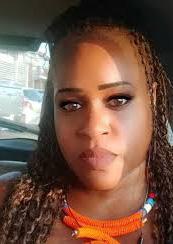
Do you feel the history and culture of Black people is sufficiently represented in the National Curriculum?
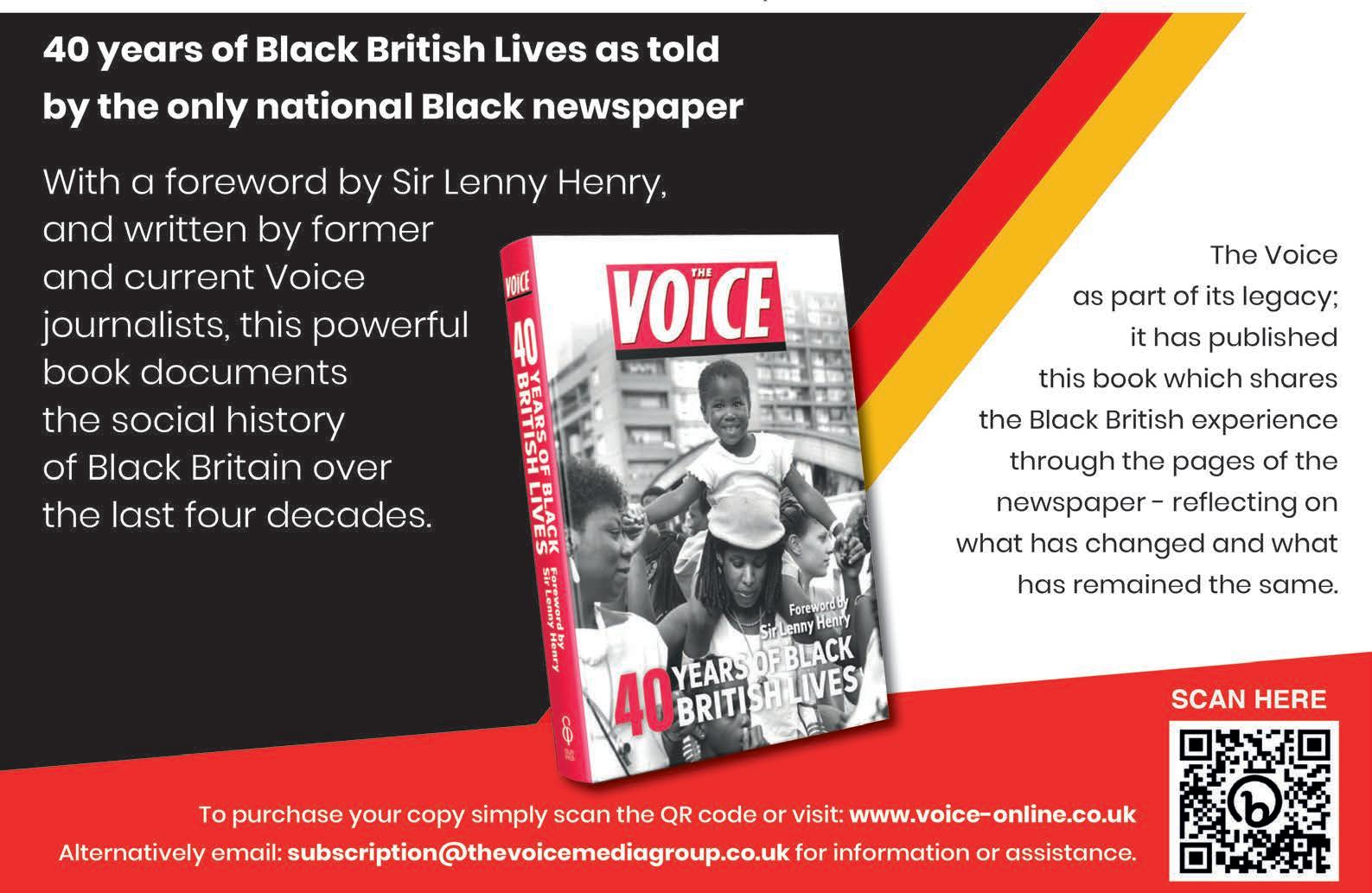
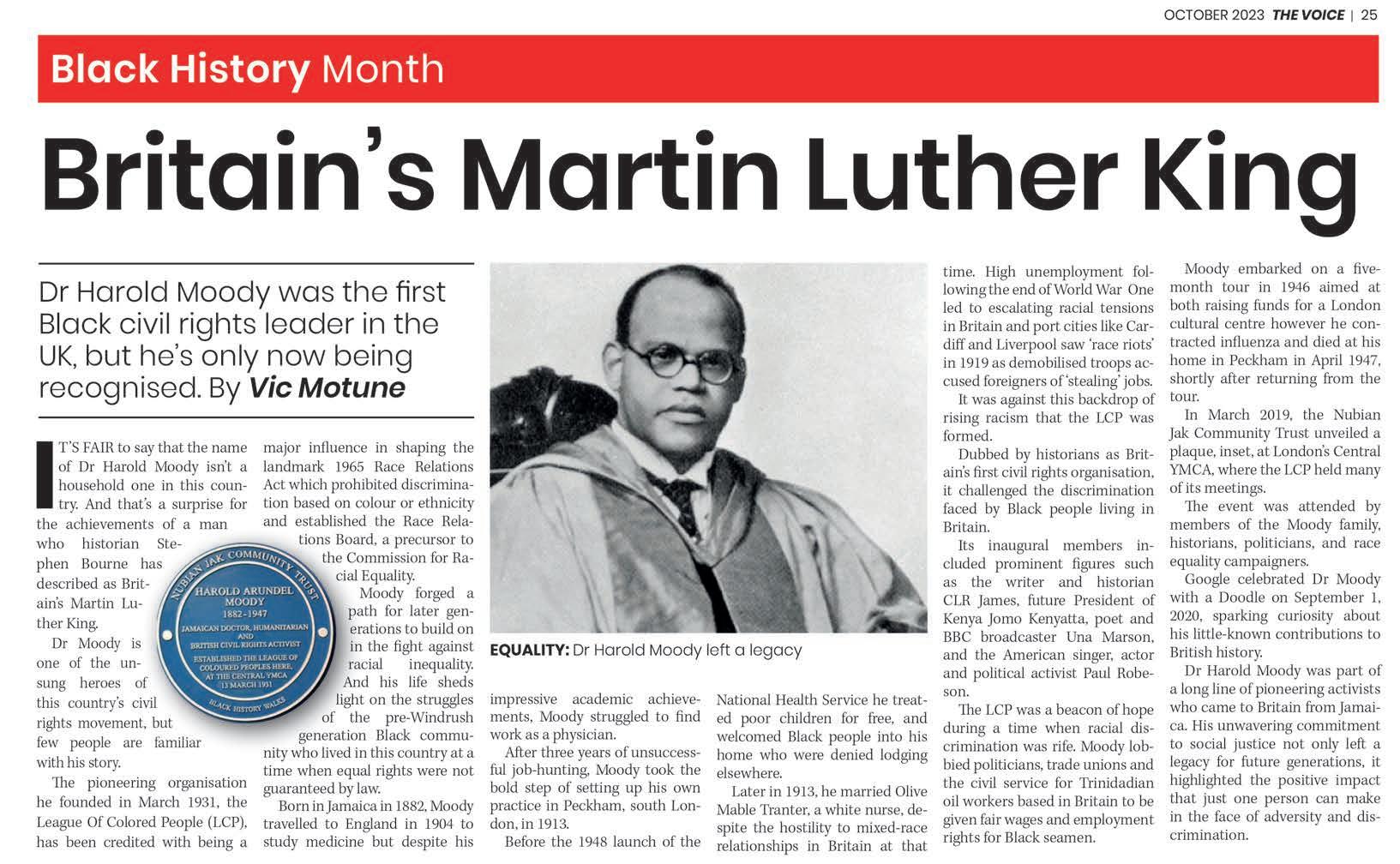
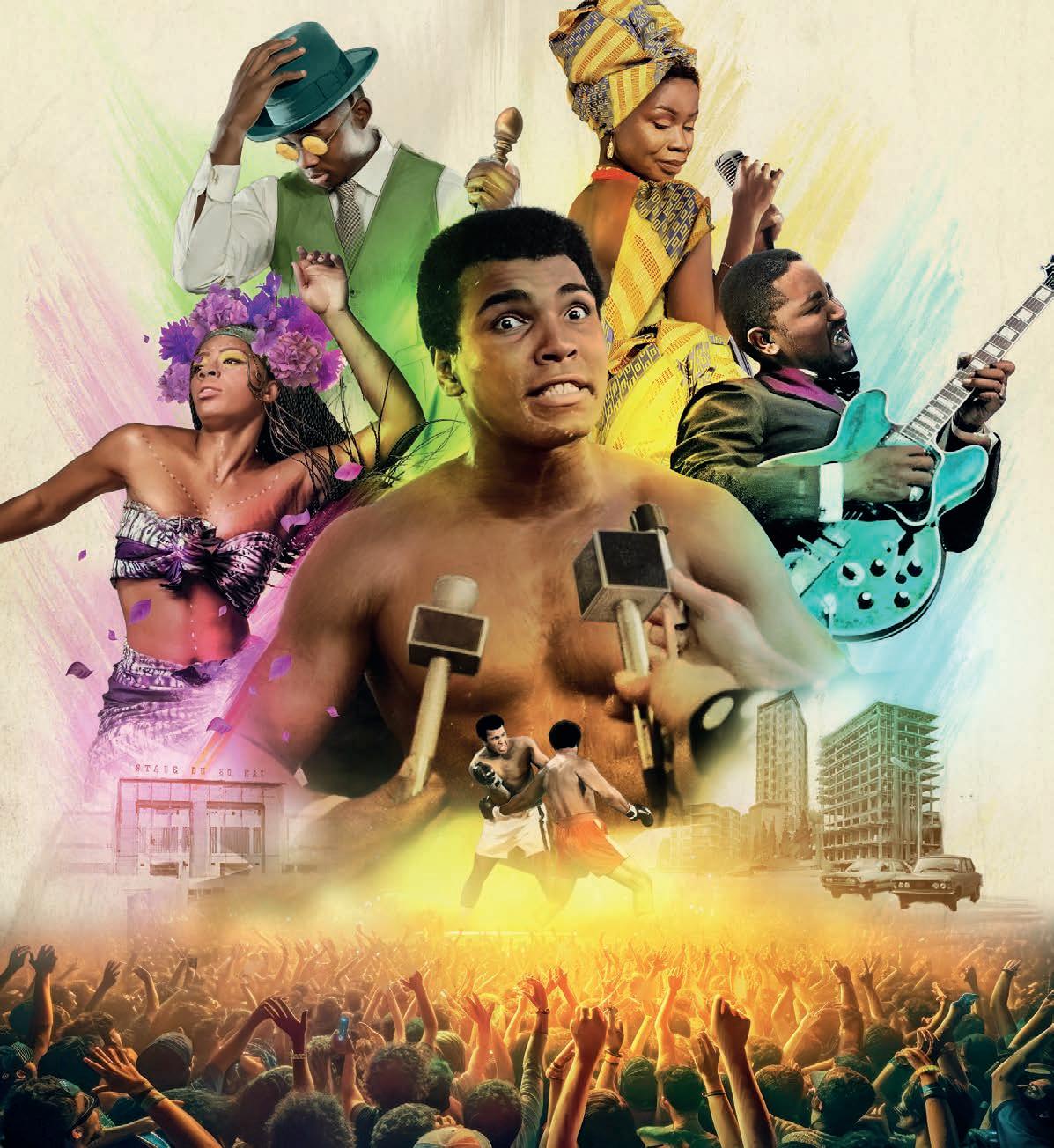


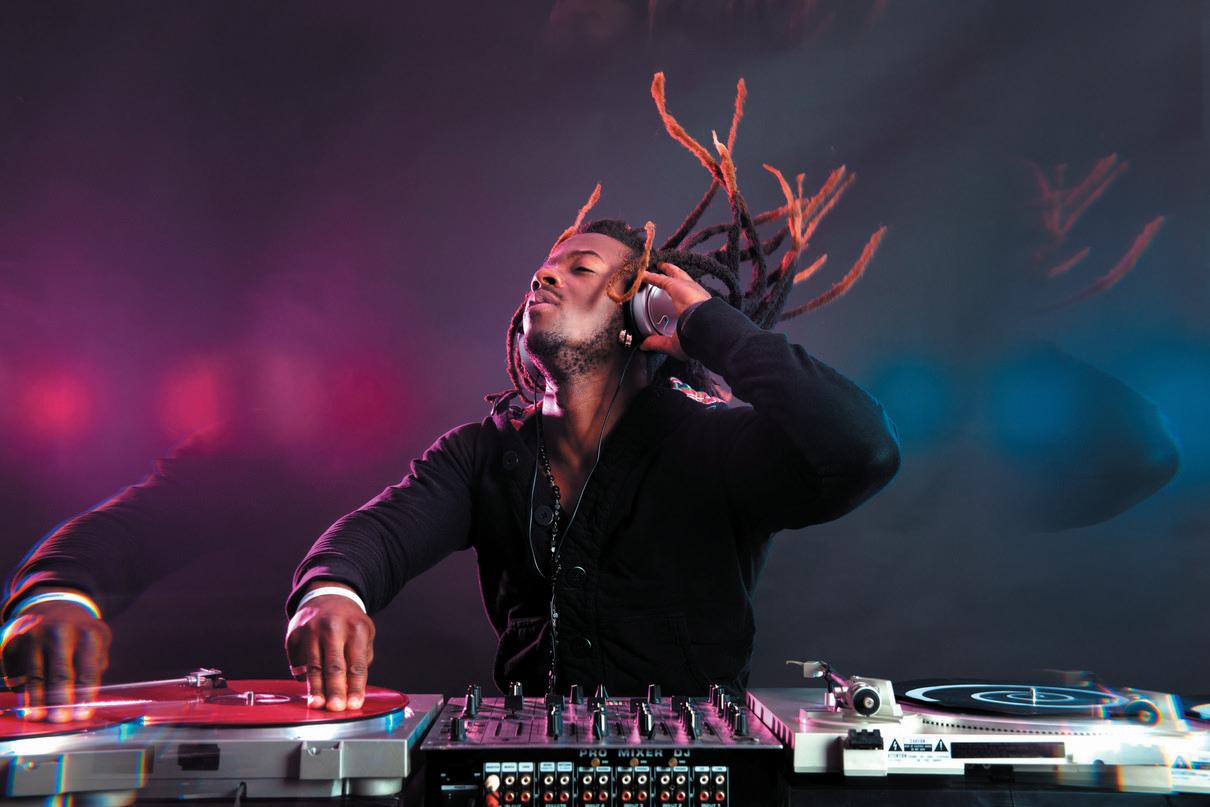








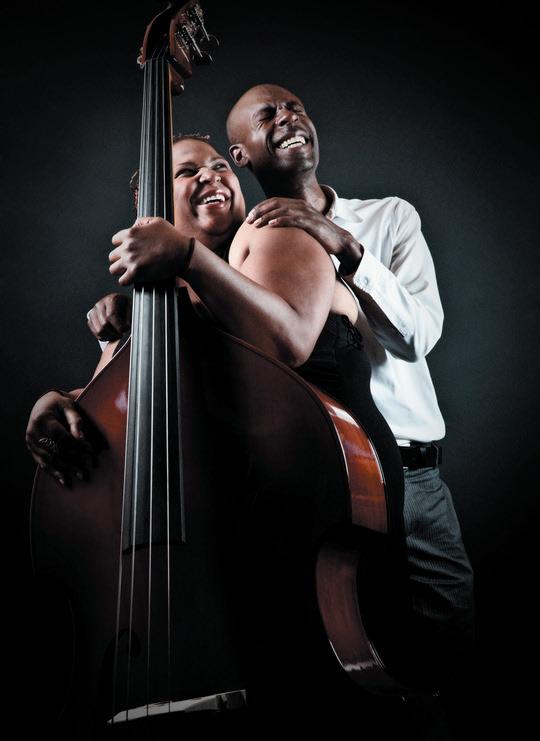
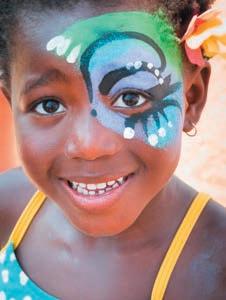


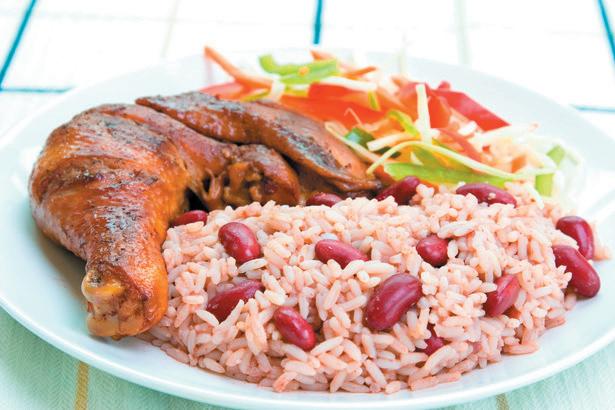



SHOWCASE:
The Apprenticeship magazine, inset right, will help young Black talent get a foot on the first run of the career ladder
Learn about the hospitality industry from one of the most successful companies in the world and earn money while you study. Join us as an apprentice Crew Member, Customer Care Assistant, Customer Experience Leader or Shift Leader and see where your career could go with our award-winning apprenticeship programme. Search McDonald’s Apprenticeships online.
Merlessa joined McDonald’s part-time in 2004, while she was studying at college and after a change of direction, soon became full-time.

She’s currently working as a Shift Leader and is about to finish her Level 3 Hospitality Supervisor apprenticeship and is keen to progress to the next level to continue her development and career progression.
WHAT MADE YOU DECIDE TO DO AN APPRENTICESHIP AT McDONALD’S?
When I first joined McDonald’s I was a fulltime student, but I didn’t feel well supported or comfortable at college and so I ended up dropping out of my course. For a while I worked at the restaurant and just got on with my life. But I’m ambitious, and so when I heard about the apprenticeships I decided to start at Level 2 and see where it took me. I wanted my daughters to see that I could be a success, even though the traditional university route hadn’t been right for me.
HOW DO YOU FIND IT WORKING AND LEARNING AT THE SAME TIME?

It can be tough at times, but it’s really rewarding. There’s so much to learn about the realities of running a business, and I found that the apprenticeship made my day-to-day role much more interesting – suddenly I could see how everything fitted together. I worked as a Crew Trainer for a while and what I was studying really helped me to motivate and encourage the Crew Members, because I could explain to them why, from a business perspective, we asked them to do certain things. The more you learn, the more interesting it gets!
WHAT DO YOU MOST ENJOY ABOUT WORKING AT McDONALD’S?
This team is like my second family. I used to suffer from social anxiety, and the care and support I got from my managers helped me turn everything around. I’ve always felt very accepted here and it’s made into a much more confident person.
I think my experience means I’m also a pretty good people manager, as I want all the Crew Members to feel supported and cared for. It’s a really nice place to work – I tried another job a few years ago but it couldn’t compare so I came back to McDonald’s.
WHAT ARE YOUR CAREER AMBITIONS WITH McDONALD’S?
I want to run my own restaurant, definitely.

I’ve nearly finished my Level 3 and have already decided to go ahead with the Level 4 apprenticeship. Once you start studying, you just want to take it further. I’m working towards an apprenticeship degree that McDonald’s offers managers in the future and I’m getting paid to do it – so why would I stop!
I don’t think there’s a better place to work than McDonald’s for great support and brilliant career opportunities.
WHAT SUPPORT HAVE YOU RECEIVED WHILE DOING YOUR APPRENTICESHIP?
The support is brilliant. The team here work hard to be flexible and that really makes a difference. I also know that between my managers and my mentor there is always someone who is happy to sit down with me and talk through anything I need help with.
WHAT ADVICE WOULD YOU GIVE TO ANYONE THINKING ABOUT DOING AN APPRENTICESHIP WITH McDONALD’S?
Just go for it! Yes it’s more work, but you’re being paid to study and you’re building new skills and gaining experience that will be the foundation of your career.
BLACK YOUNG people are going to university in record numbers yet government figures show securing apprenticeships is a whole different story.
Black students make up at least 8.7 per cent of undergraduates yet just 3.8 per cent of apprenticeships.



In other words, we are less than half as likely to become an apprentice. White graduates, by comparison, are proportionally more likely to get the opportunity. That is why we have launched a new online Apprenticeships supplement; to both showcase companies that are leading the way, and encourage others to follow. We know that ethnicity disparities in the transition from education to work helps shape structural inequalities in the labour market as a whole.
Getting a foot on the first rung of a career ladder can be critical to how the rest of a person’s working life unfolds.
The Runnymede Trust found that the first job for Black graduates from a Caribbean background in particular was more likely to be ‘blue collar’ work.
Of course, there is nothing wrong with manual work as long as it provides dignity and fair pay. But it speaks to desperation to just get a job to pay the bills rather than the first step on a career which will deliver house ownership, a good pension and wealth to pass to the next generation.
Apprenticeships, where Black young talent has the chance to show employers what they can do, is an important means of tackling the problem because the direction a graduate starts out in may end up determining where they end up. So how do we fix this? Making sure apprenticeships are properly advertised
and not ‘word of mouth’ is important.
In selecting apprentices, we need to eradicate the preference for ‘cultural capital’ — say an interest in fine arts or holidays in Tuscany. Cultural biases can also extend to the confidence of the young person. Privilege can breed the ability to blag, but talking a good game does not mean better performance.
Recognising that diversity is a strength, and that talent from different backgrounds bring added value, is important. If a firm only recruits in the image of the recruiter, they will forever be mired in ‘group think’ which fails to challenge traditional ways of working.

Businesses need to holistically assess the applicant to avoid duplicating structural disadvantages from the previous lifestage of a Black young person. That includes not attaching ‘gold stars’ to privately-educated young people. Black households have on average £10,000 less income than white households, and so are less able to afford fee-paying institutions.

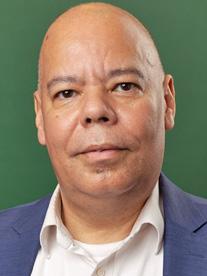



A combination of advertising apprenticeship opportunities; refraining from cultural capital biases and the urge to self-replicate; taking account of disadvantages in the awarding of firsts; and ignoring old school ties will all help.

Apprenticeships offer an opportunity to combat other workplace racial barriers. But companies must try harder.
By Lester Holloway
Cultural biases can extend to the confidence of a young person
■ Black British soldiers in the Napoleonic Wars
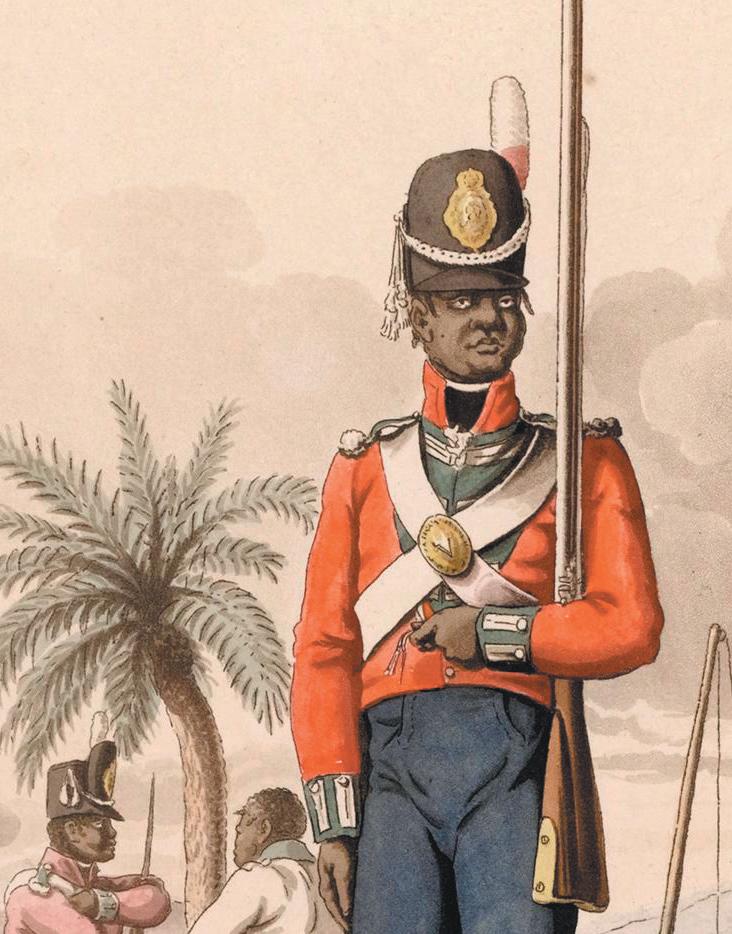
■ Pay workers for organising BHM events
■ Black presence in Tudor England

Africans were part of London society at all levels in the 15th and 16th centuries.
DOCUMENTS FROM the 15th and 16th centuries show that Africans were present in most of the royal courts.
For example, John Blanke, an African trumpeter, served in the court of King Henry VII and King Henry VIII.
Blanke may have come to England as one of the African attendants of Catherine of Aragon in 1501. He is one of the earliest recorded Black people in Britain after the Roman period.
Court records from Queen Elizabeth I’s reign relating to the Basker ville campaign of 1595–96 docu ment a large number of Spanish and African prisoners of war captured in an assault by Sir Francis Drake on a Spanish pearl-fishing settle ment in Rio de la Hacha in the Spanish West Indies during the Anglo-Spanish War.
The prisoners were later traded for the return of English prisoners held in Spain and Portugal. Elizabeth I also employed an African court dancer called Lucy Negro (or Black Lucy) who later ran a brothel in Clerkenwell, north-east London, and is considered to have partly inspired Shakespeare’s Dark Lady sonnets.
Outside of their presence in courts, parish documentation confirms that Africans were part of London society at all levels.
Reasonable Blackman, a silk weaver who probably emigrated from the Netherlands, lived in
By Shirin AguiarSouthwark around 1579–1592. Mary Fillis, a basket weaver’s daughter from Morocco, came to London around 1583–84 and rose from a servant to a dressmaker and reputable Black figure. By the end of the 18th century Britain was the leading slave trader in human lives across the Atlantic, with over a million enslaved Africans in the British West Indies.
This led to Black people arriving in all parts of Britain, unwillingly and willingly, for over two centuries. Current estimates are that at least 10,000 lived in London, with a further 5,000 throughout the country.
The involvement of British merchants in the transatlantic slave trade contributed most to the development of the Black British community. Communities flourished in port cities involved in the slave trade, such as Liverpool and Bristol. Some Liverpudlians can trace their Black heritage in the city back ten generations.
Early Black settlers in the city included seamen, the mixedrace children of traders sent to be educated in England, servants, and freed slaves.
As a result, Liverpool is home to Britain’s oldest Black community, dating at least to the 1730s. By 1795, Liverpool had 62.5 per cent of the European slave trade.
By the mid-18th century, Africans comprised between one to three per cent of London’s population, thanks to the slave
trade. Throughout the 17th and 18th centuries many Black people were brought to London as slaves from plantations in the Caribbean and Americas by slave owners, ship’s captains, colonial officials, merchants, slave traders and plantation owners.
This led to a growing Black presence in the northern, eastern and southern areas of London.
One of the most famous slaves was known as Sambo. He fell ill shortly after arriving in England and was buried in Lancashire where his plaque and gravestone still stand. Freed slaves and seamen also arrived from West Africa. Many of these immigrants were forced to beg due to a lack of jobs, their low social status and racial discrimination.
In 1610, Prince Dederi Jaquoah, 20, was brought to the City of London from Liberia by an English merchant. The prince, whose father ruled a kingdom in today’s Liberia, was baptised in London on New Year’s Day 1611 and stayed in the capital for two years
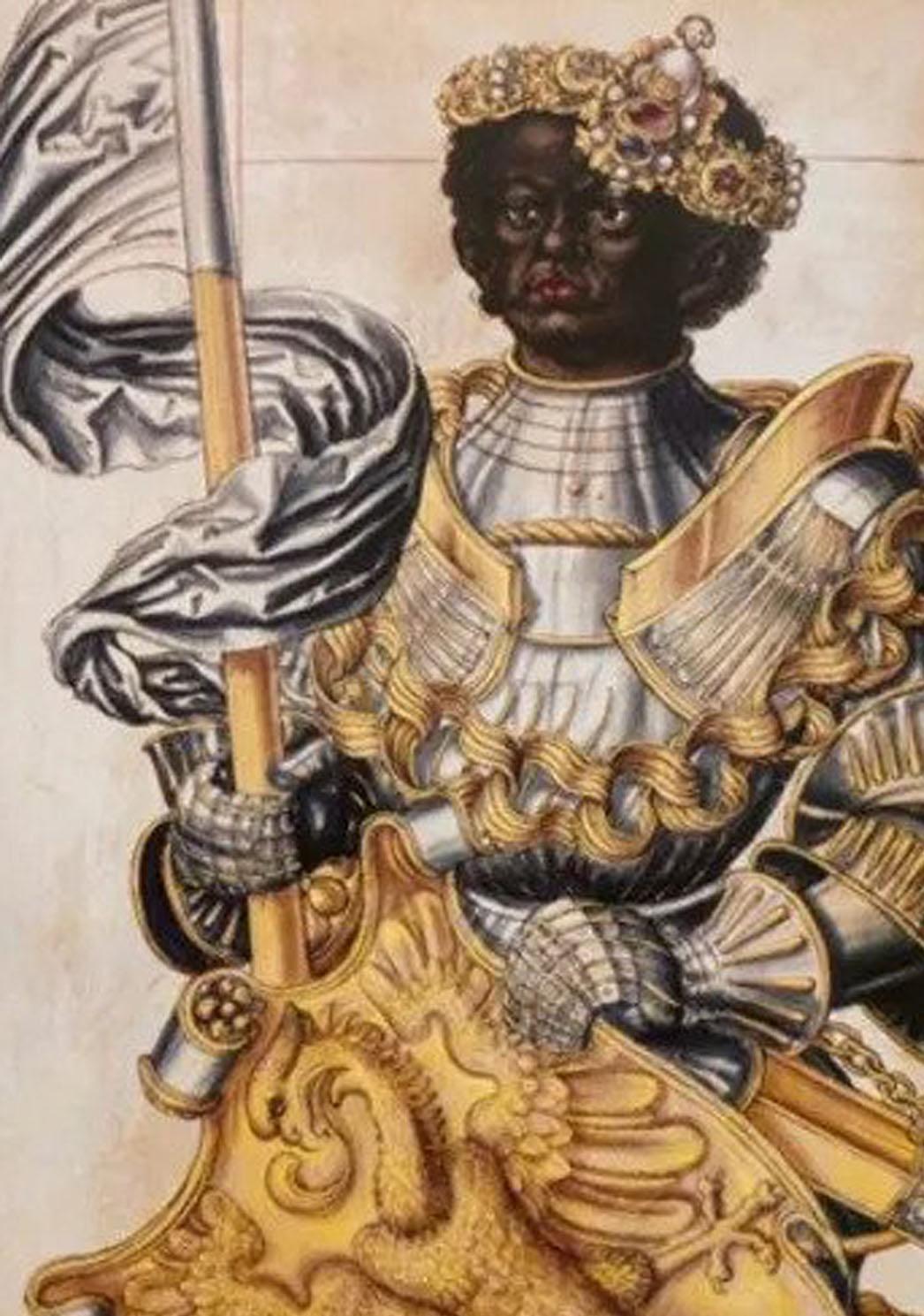
In 1684, Katharine Auker was brought to England from Barbados by her owner Robert Rich, a planter from Barbados.
Following her baptism, Katherine was increasingly maltreated by Rich and eventually turned out of his house. He forbade her from seeking employment; condemning her to destitution. In 1690, she succeeded in a court petition to be discharged from his enslavement. An official record of this is held in The National Archives.
In 1687, a “Moor” was given the freedom of the City of York. He is listed in the freemen’s rolls as “John Moore – blackie”.
Around the 1750s, London became the home of many Africans, with The Gentleman’s
Magazine reporting in 1764 that there was “supposed to be near 20,000 Negroe servants”. The numbers of Black residents in London are also evidenced through registered burials.
In the 1780s, with the end of the American Revolutionary War and the collapse of the British campaigns, several thousandBlack troops (some with their families) fled to British-held territories. Over one thousand made their way to Dublin, Liverpool and London. Many became poverty-stricken and were reduced to begging.
In London, Blacks lived
MAKING THEIR MARK:
Illustrations of Black people who lived in Tudor England
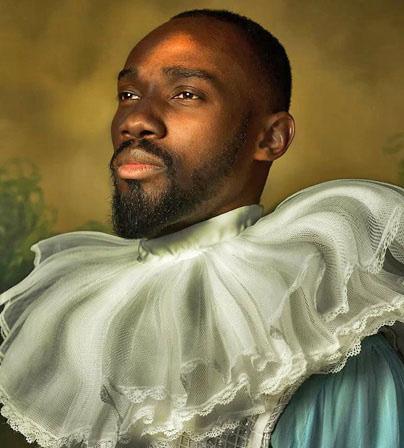
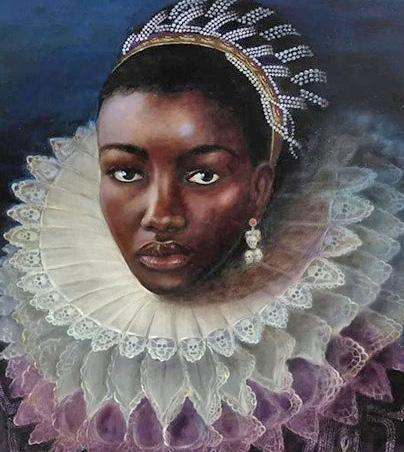
among the white population in Mile End, Stepney, Paddington, Isleworth and St Giles. The majority of these were not slaves but domestic servants to wealthy whites.
Many were labelled as the “Black Poor” defined as former low-wage soldiers, seafarers and former plantation workers.
During the late 18th century there were many publications and memoirs written about the “Black Poor”. One example is the writings of Olaudah Equiano, who became an unofficial spokesman for Britain’s Black community. John Ystumllyn
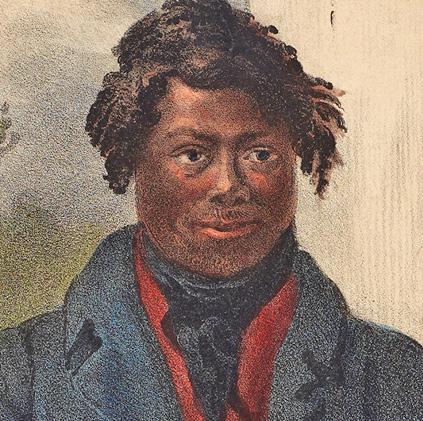
(c.1738-1786) was the first wellrecorded Black person of North Wales. He may have been a victim of the Atlantic slave trade, and was from either West Africa or the West Indies. He was taken by the Wynn family to their Ystumllyn estate in Criccieth, and christened with the Welsh name John Ystumllyn. He married local woman Margaret Gruffydd in 1768.
According to English Heritage, in October 1796, ships from the Caribbean carrying over 2,000 Black and mixed-race prisoners of war docked at Portsmouth Harbour.

ALEADING HISTORY
expert is calling for pre-Windrush Black history to be made compulsory on the National Curriculum.
Dr Tola Dabiri is the National Lead for Arts and Culture at the National Academy for Social Prescribing and previously worked as one of the directors at Museum X CIC, which is home to the Black British Museum Project.
She believes the teaching of Black history must go back before the arrival of the Empire Windrush in 1948, in order to “tell the truth” about the presence of African and Caribbean people in Britain.
She told The Voice: “I think it is essential, otherwise we don’t understand our place in the history of this country and the contributions we have made for centuries and our presence here for centuries.
“Well millennia really, from the Romans and some people even argue before the Romans arrived there were Africans in this country. There have been people of African descent in this country for millennia, for as long as everyone else has been here, but we are made to feel like visitors all the time. The contribution that we have made is more than enslavement and it is more than Windrush.
“It’s important that children
understand that they are not just visitors, they are not just guests and they are not just passing through, but they are part of a very long line of people of African descent in this country.”
Dr Dabiri said a “massive corrective” is needed when it comes to discussions around British history, to ensure it includes Black history and the history of people of South Asian descent –who have been in Britain since 15th and 16th century.
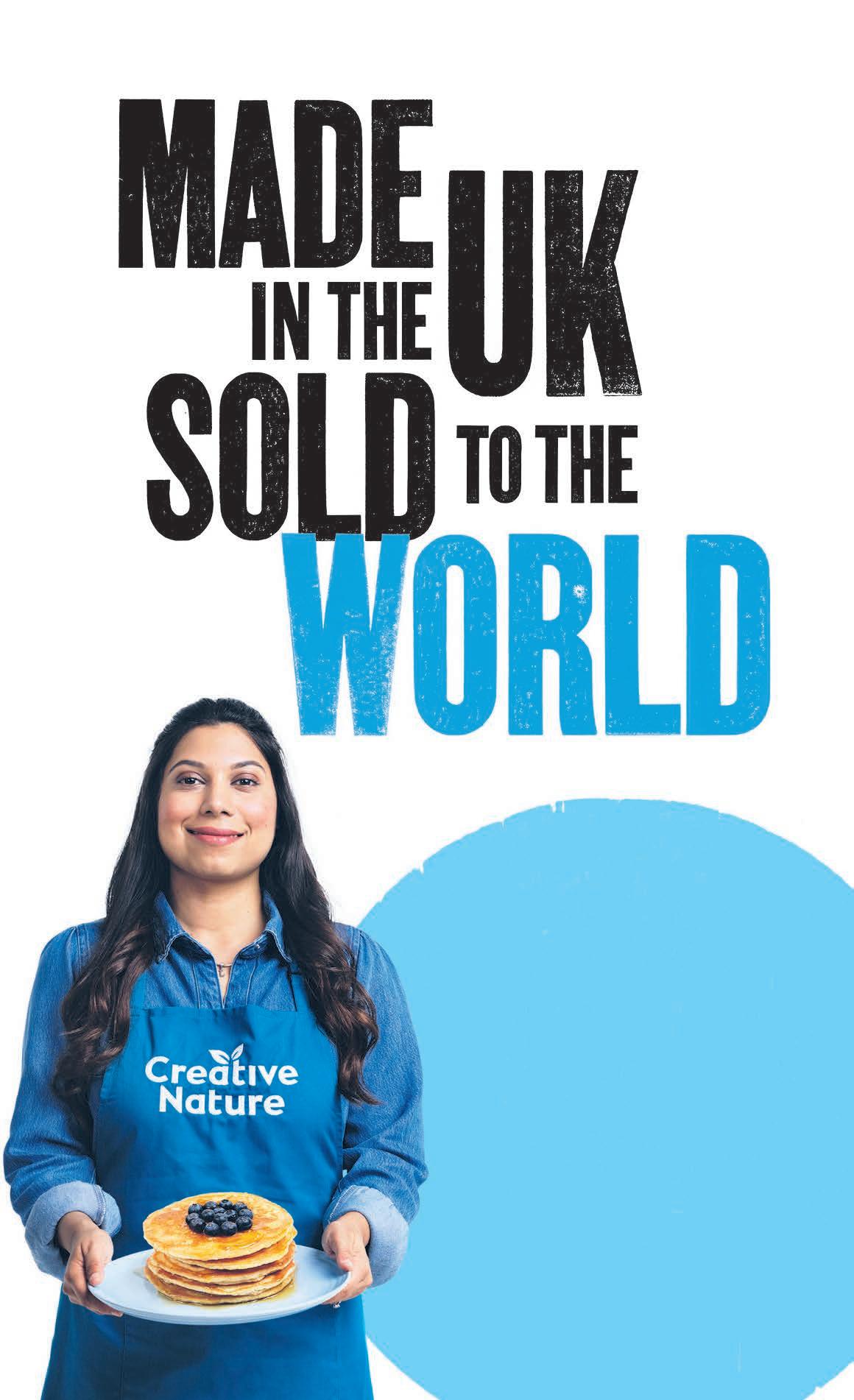
She added: “This is a multicultural society and it has always been a muti-cultural society, but the people of colour in this country have been very successful at assimilating.
“So we seem to disappear and then a new wave of migration comes and if you are a person of colour you are very visible and then we assimilate and we disappear, this is a process that has been going on for millennia now. Telling the truth needs to be compulsory.”
She said any plans for the curriculum going forward must include stories of Black servicemen and women who played a pivotal role in Britain’s defences during the wars.
She said: “The Black sailors who fought with Nelson in the Battle of Trafalgar, who are commemorated around the statues of Nelson’s column but are never mentioned — so are forgotten and airbrushed out.”
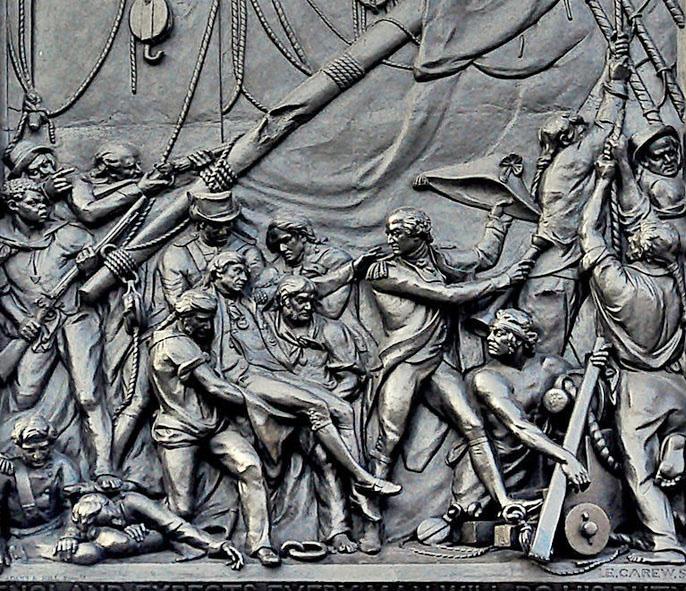
ABRITISH HISTORIAN
has called for William Cuffay, the son of a freed slave from St Kitts, who played a key role in the struggle for democracy in Britain, to be honoured with a statue in Parliament Square.
Writing in Tribune magazine, Tom Scriven, a Chartist historian at the University of Manchester, said: “A country which respected its history would honour him rather than the men who sold his ancestors. There can only be one candidate for a memorial to Chartism’s leaders: William Cuffay.”
Born in Chatham in 1788, Cuffay was the son of a freed slave from St Kitts, himself the son of a man kidnapped from Africa and sold into slavery.
Cuffay’s father, Chatham Cuffay, was a cook aboard a British warship. Born with a shortened spine and legs, Cuffay trained as a tailor and by 1819 had moved to London, settling in Westminster where he lived most of his life.
Twice-widowed in the 1820s, Cuffay married his third wife Mary Ann at St James’s Piccadilly in 1827.
He became drawn, after some initial antipathy, into labour organisation, as increasing competition and a large labour surplus led to low-paid and sweated conditions for tailors.
He joined in the Tailors’ Strike of 1834, but in the aftermath was blacklisted, and would never find regular employment again.
By 1838 working-class radicals
had split from the emerging Liberal Party to form the Chartist movement, and Cuffay became one of the organisers of the Metropolitan Tailors Chartist Association.
In 1840 the National Charter Association (NCA) was formed as the party of the Chartists, and Cuffay became their premier and most trusted organiser, both in London and nationally.
In 1841, he was elected by Westminster’s Chartists to the Metropolitan Delegate’s Council, beginning a long period as one of London Chartism’s chief leaders.
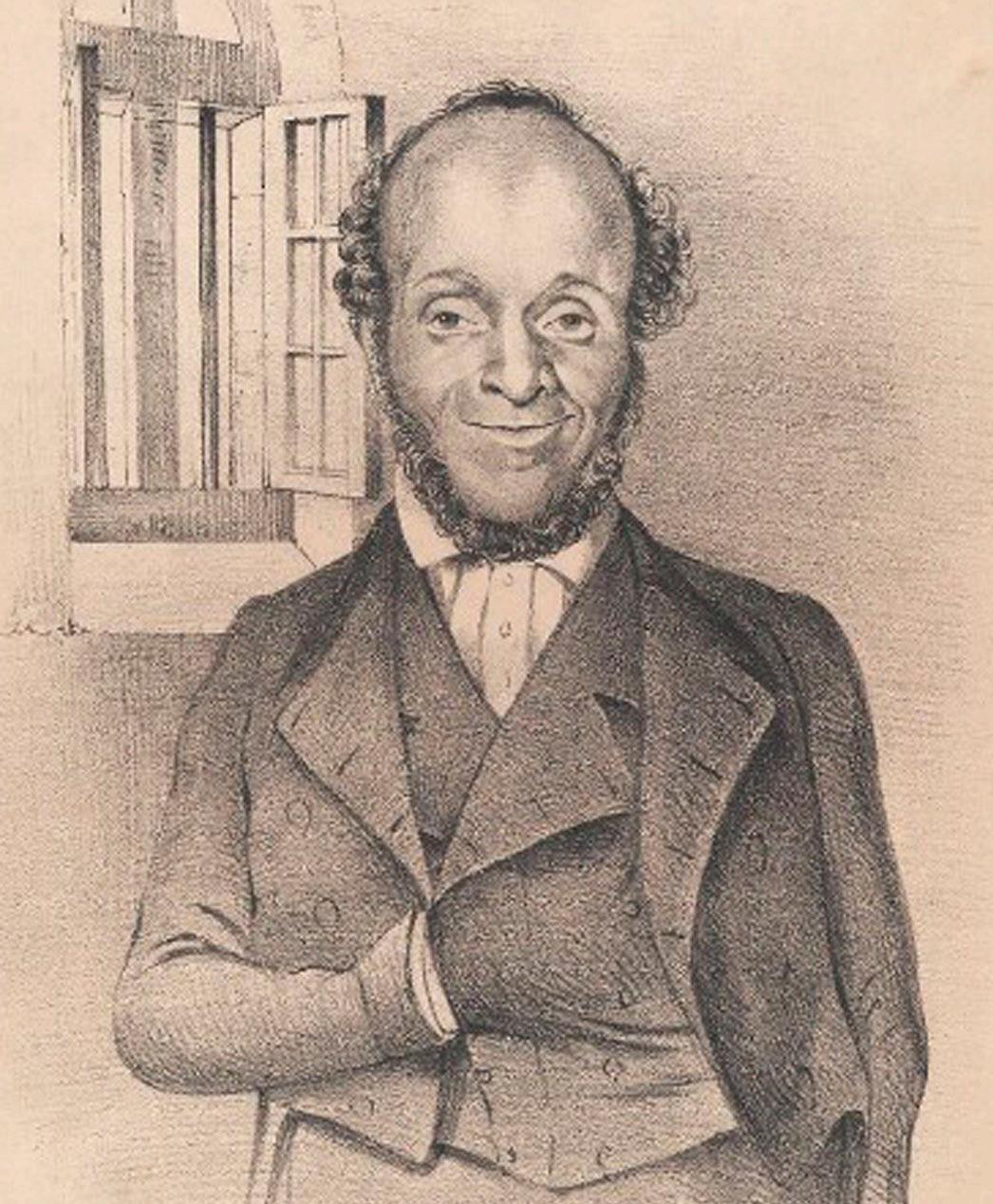
London’s elite directed racist derision at him, with The Times referring to the London Chartists as ‘the Black man and his Party’.
In 1842, Cuffay was elected to the NCA’s National Executive –meaning that within two years of its founding, the world’s first proletarian party had a Black leader.
Cuffay was proud of his African descent, refusing to abandon his surname, an anglicisation of the Akan name Kofi. He was also explicit that internationalism and anti-slavery were integral to his understanding of Chartism.
Along with a number of African-American refugees from slavery resident in Britain from the mid-1840s onwards, Cuf-
fay was part of a broader wave of Black political activism that stressed the need for racial solidarity and the integration of abolition with all other struggles for liberty.
Cuffay was arrested during the revolutionary wave of 1848. At his trial he denounced the racist abuse he had received over the years. Found guilty and sentenced to transportation for life, he was sent to Van Diemen’s Land (now Tasmania) the following year.
He was only reunited with his wife four years later in April 1853. Cuffay was pardoned in May 1856, after which he immersed himself in the Australian labour movement until his death in 1870, aged 82.
Scriven said: “A celebration of Cuffay’s life in Parliament Square would not only challenge the implication that democracy was a gift from the elite, but also confront Parliament directly with the reality of slavery.
“With that it would also demolish two of the right’s core myths: that the Black British population has no long-term history, and that Black people did not fight for their own liberation — and with that the liberation of all.”
PRINCESS Omo-Oba Adenrele Ademola, the dau hter of adapo demola a s n ficant k n n southern er a first came to Britain in 1935 aged 22.
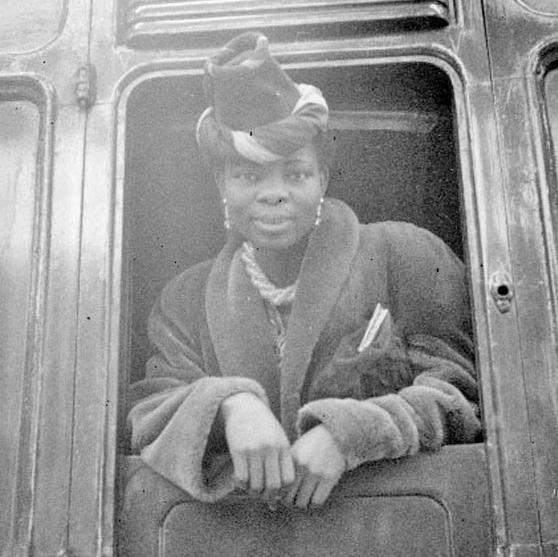
She stayed at the Africa Hostel in Camden Town, London, run by the West African Students’ Union.
According to the National Archives, the space was a haven for Ademola, as for many other African students and visitors during the early 20th century.
She returned to Lagos temporarily in 1936 but came back the following year with her father and brother, Prince Adetokunbo Ademola, for the coronation of King George, staying at London’s Grosvenor Hotel.
From May to July 1937, she attended royal appointments, including garden parties at Buckingham Palace and a royal gathering hosted by her father at the May-
fair Hotel in May 1937. She also conducted royal visits to the Mayor and Mayoress of London at Mansion House and to the Carreras cigarette factory in June 1937. She probably continued attending royal appointments until her father left for Paris in early July 1937.
She attended a school in Somerset for two years, and by January 1938 was training as a nurse at London’s Guy’s hospital, passing her nursing exams and becoming a registered nurse in 1941.
The princess was one of many people from Africa, India and the Caribbean who trained as nurses in British hospitals before the NHS was founded in 1948. Ademola’s patients apparently called her “fairy” as a term of endearment. “Everyone was very kind to me”, she told journalists at the time.
After nurse training, Ademola gained entral M dw es Board ual ficat ons
During World War Two she worked at other London hospitals.
In the mid-1940s, the Colonial Film Unit made a film a out demola s l fe and e per ences as a nurse he s lent film Nurse Ademola, showed “an African nurse at various phases of training at one of the great London hospitals” and is said to have inspired viewers in West Africa to train as a nurse abroad.
adly the film has een lost w th the ational Archives attributing this to “the wider historical absence of African women”.
Despite her royal status, the historical records about Princess Ademola are not detailed or complete.
In 1948, she travelled with the businessman Adeola Odutola. Little is known about her activity after the 1940s, with the last record of her being in 1949 as a nurse in South Kensington.

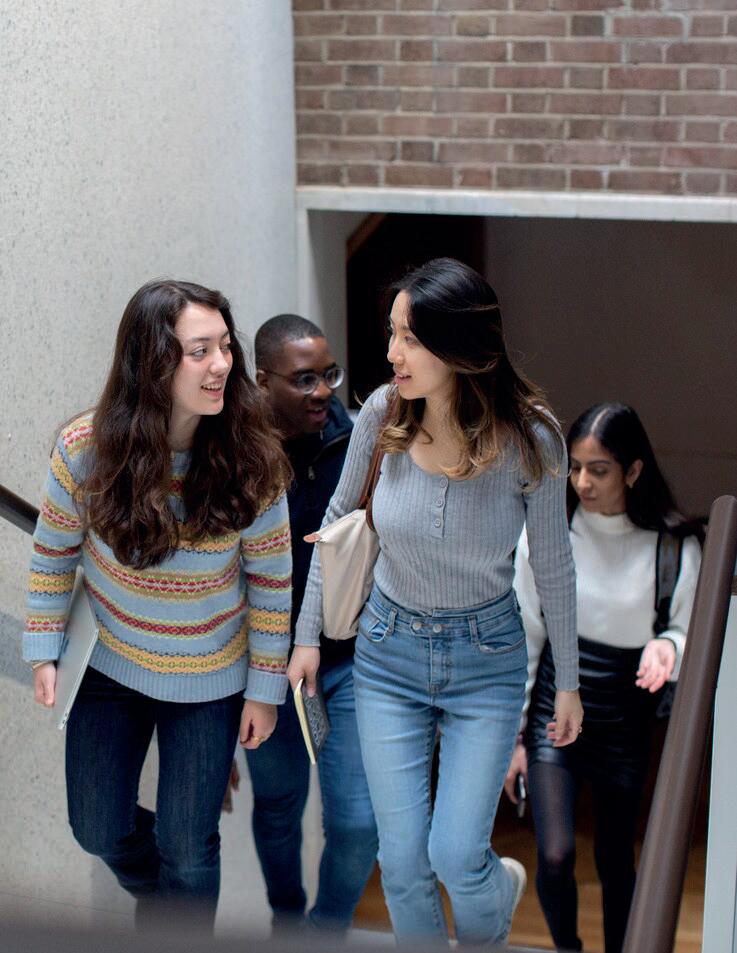
University College London’s Faculty of Laws invites applications from UK candidates for these PhD Scholarships, to start in September 2024 for academic year 2024-25.
This PhD funding opportunity, available only to ethnic groups currently underrepresented as academic staff members in Law Schools at Russell Group Universities, is awarded on the basis of academic excellence and research potential with financial need also an essential criterion for this Scholarship. The Scholarship covers the cost of annual tuition fees throughout the duration of the PhD (3 years full-time, 5 years part-time),
plus an annual maintenance stipend per annum of approximately £20,000 for full-time students.
You simply need to apply for a place on the Faculty of Laws’ 2024-25 PhD programme by: 16TH NOVEMBER 2023 – Visit: https://www.ucl.ac.uk/laws/study/ mphilphd/applying - to be automatically considered for the award. No separate application form is necessary initially
AROUND 20,000 Black people lived in Britain in the 1760s, including up to 15,000 in London.
The Black presence in Britain pre-Windrush is well known, but more evidence continues to emerge about the Georgian era.
There were significant Black communities in major port cities such as London, Liverpool and Bristol but also in market towns and villages across Britain. Most worked in domestic service, both paid and unpaid.
But not all Black people in the latter half of the 18th century were slaves or servants. They were part of English society working as sailors, tradespeople, businessmen and musicians who married and had families.
Examples include Joseph Emidy, George Augustus Polgreen Bridgetower, Cesar Picton, Dido Elizabeth Belle and George Africanus.
Little is known about the lives of the many ordinary men, women and children brought to England as slaves.
Although slavery had no legal basis on English soil, the law was often misinterpreted. Slaves from overseas colonies were brought to England by their owners and often still treated as slaves.
Some former slaves got baptised, believing this would ensure their freedom, while
others absconded. Notices for ‘runaway slaves’ featured in the British press during this period.
Samboo
It is thought Samboo or Sambo was a young African servant or cabin boy to a sea captain or merchant.
Shortly after arriving on a trading ship from the West Indies in 1736 he caught a fever and died. He was buried at Sunderland Point, near Lancaster.
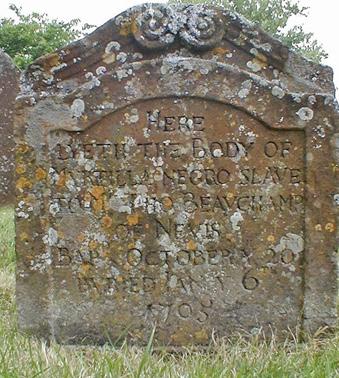
The plaque on his grave was added 60 years later and the site has come to represent other unknown slaves, with visitors today leaving tributes of flowers and coloured stones at his grave.
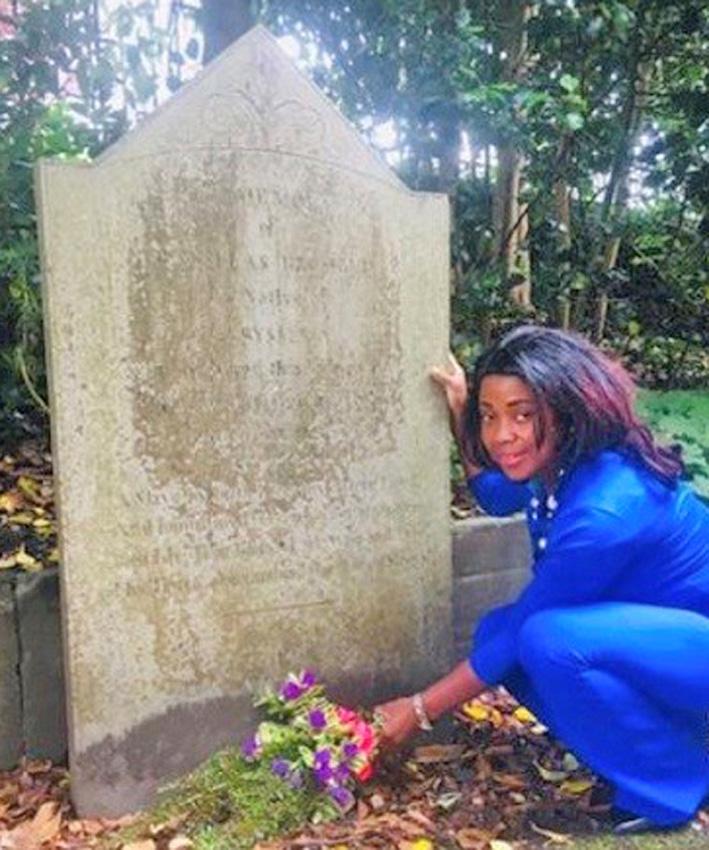
One local wrote: “He lies in a corner of a foreign field that is forever Africa.”

James Somerset
During the latter half of the 18th century the law was tested in the courts, most notably in 1772 with the case of James Somerset. Somerset was an escaped slave who was recaptured and held on a ship bound for Jamaica. The antislavery campaigner, Granville Sharp, helped Somerset to bring his case to court.
MEMORIAL: The grave of Myrtilla in Stratford-upon-Avon
Myrtilla Miner
Myrtilla was a slave owned by Thos Beauchamp, believed to have been a sugar planter. It is thought that Myrtilla, described on her memorial as a ‘Negro slave’, began life on a plantation in Nevis.
She was brought to Warwickshire by her owner to serve his wife but sadly died soon after arriving. Her Grade II-listed grave in St Lawrence’s church, Oxhill, in Stratfordupon-Avon is dated January 6, 1705.
Scipio Africanus was a servant to Charles William Howard, 7th Earl of Suffolk, and lived on the Blaise Estate, Henbury Manor, near Bristol.
How and when Scipio came into the Earl’s service is unknown but the slave trade thrived in Bristol and Scipio may have arrived at Henbury through a local connection. He was named either by the earl or a previous owner.
Scipio died aged just 18 in 1720.
His elaborate headstone and footstone in St Mary’s Churchyard, Henbury, in Bristol suggests he was well regarded by the Earl of Suffolk.
The grave was one of the first in England for a man who was a slave from birth.
The judge, Lord a sfield ave a are lly worded ruling avoiding the question of whether slavery was legal in England: “No master was ever allowed here to take a slave by force to be sold abroad because he deserted from his service, or for any other reason whatever.”
Somerset was freed, but while his case was hailed by many as a victory immediately following the ruling, some slave owners ignored it and continued
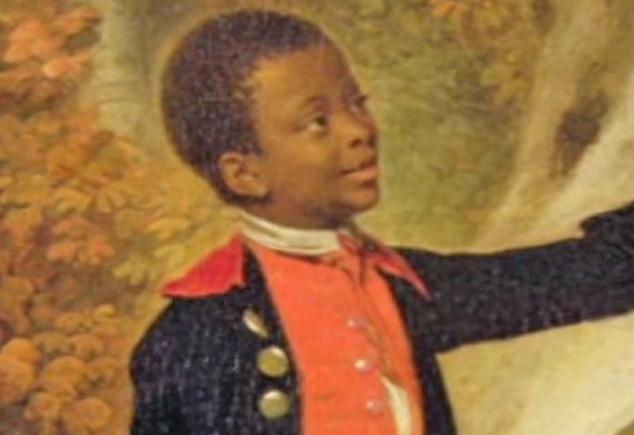
to take Africans abroad forcibly. The case was widely reported in the press and highlighted the question of slavery and British involvement in the slave trade.
Many settlers from West Africa, the Caribbean and America were baptised in St James’ Church, Upper Parliament Street, in Liverpool. Records
and monuments from the church, which was built between 1774 and 1775, provide an insight into transatlantic migration, including Liverpool’s involvement in the slave trade.
Graves also represent one of the few forms of tangible evidence of the existence of slaves in England.
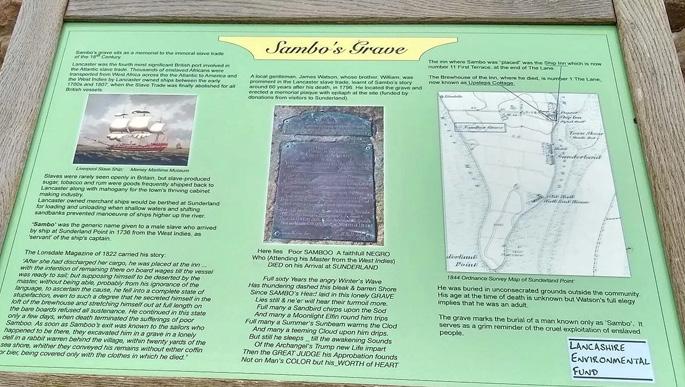
asselas Belfiel asselas elfield a young servant described as “a native of Abyssinia”, died in 1822, aged 32.
He is buried in St Martin’s Church, Bowness on Windermere, in Cumbria. It is thought he was bought during a military campaign.
The inscription on his headstone, which celebrates Britain’s role in ending slavery, and the freedom Rasselas enjoyed in his new country, reads: A Slave by birth I left my native land, And found my Freedom on Britannia’s Strand. Blest Isle! Thou Glory of the Wise and Free, Thy Touch alone unbinds the Chains of Slavery.
Little is known about the lives of the ordinary men women and children brought to England
Philip Scipio
Philip Scipio was a servant to the Duke of Wharton. Later he was personal servant to Lady Lucy Morice who had his memorial stone erected in St Martin’s Church, Werrington, in Cornwall. Philip died in 1784, aged just 18.
ID
Joseph Emidy (ca. 17751835) was born in West Africa from where Portuguese traders enslaved him as a child, taking him to Brazil and then to Portugal. It is unclear where he learned to play violin, but while in Portugal he became a violinist in the Lisbon Opera. In 1795, Emidy was forced into service aboard a British Navy ship as a ship’s fiddler. He was discharged four years
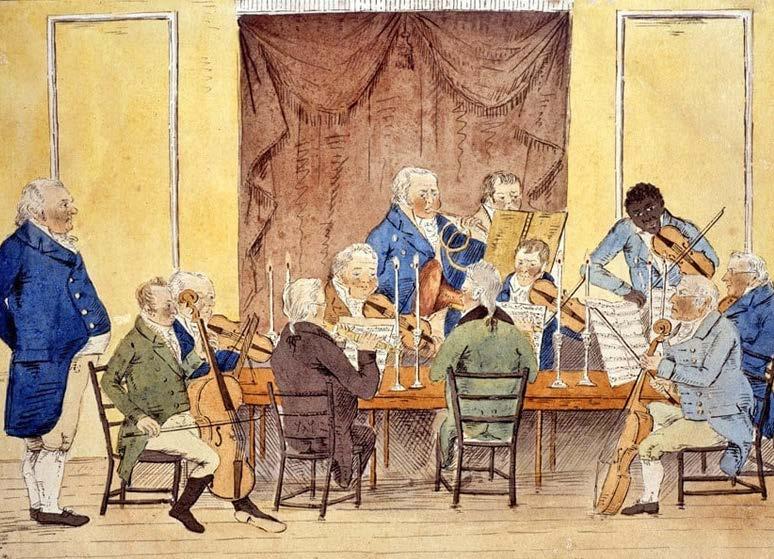
later in Falmouth where he earned his living as a violinist and teacher. He married Jane Hutchengs, a local tradesman’s daughter in 1802 and the couple and their daughters moved to Truro in 1805.
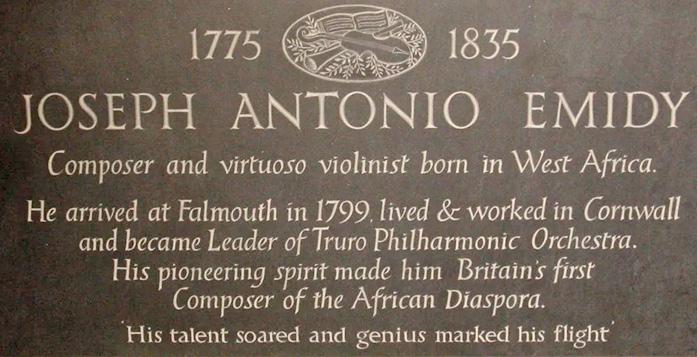
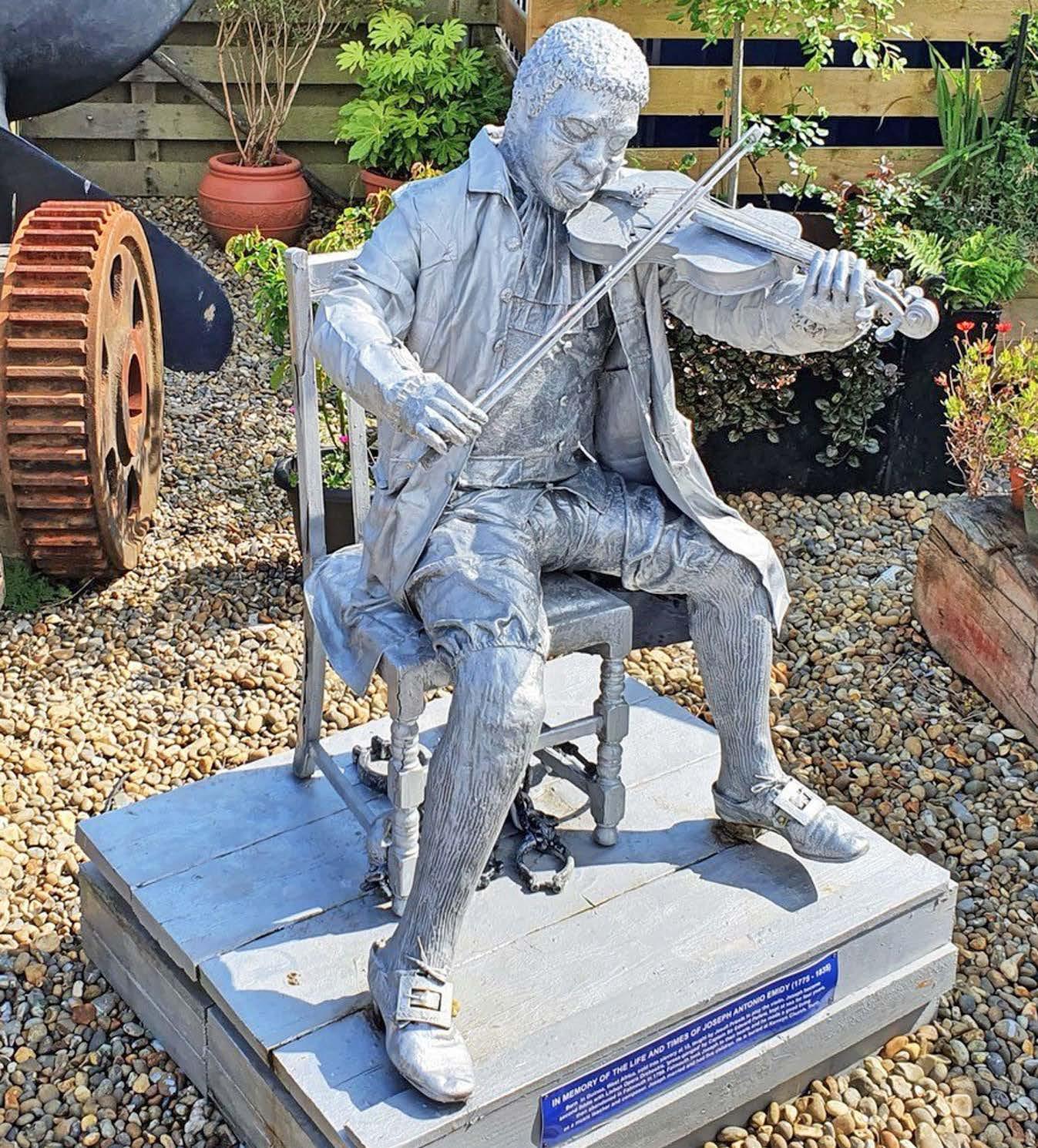
Emidy remained in Cornwall performing, teaching and composing, eventually becoming leader of the Truro Philharmonic Orchestra.
He was buried in Kenwyn Church in Truro.
“Here lies the body of I.D. a native of Africa who died in this town April 19th, 1801”so reads the gravestone in the Church of St John the Baptist, Bishop’s Castle, in Shropshire. It is not known how I.D. came to die in Bishop’s Castle in 1801 but the elegant inscription of the headstone suggests that he held some status.
Also carved on the headstone is: “He hath made of one blood all nations of men.”
Opponents of slavery sometimes quoted these words and so it is possible that abolitionists erected the headstone.
George Edward Doney
George Edward Doney (ca.
1758-1809) was captured from Gambia as a boy and sold into slavery in America, before being brought to England. He worked for the 5th Earl of Essex at Cassiobury in Hertfordshire for 44 years.
The inscription on his gravestone indicates he was highly regarded by the Earl and Countess of Essex, who were subscribers to the first edition of Olaudah Equiano’s
Interesting Narrative, the autobiographical story of Equiano’s slavery and freedom.
Doney’s obituary appeared in The Gentleman’s Magazine. He is buried in St Mary’s Church in Watford. The inscription on his gravestone, an original poetical epigraph, reads:
Poor Edward blest the irate bark which bore His captive infancy from


To where in willing servitude he won Those blest rewards for every duty doneKindness and praise, the wages of the heart; None else to him could joy and pride impart, And gave him, born a pagan and a slave, A freeman’s charter and a Christian grave.
Chloe Gambia
Chloe Gambia, a slave from Gambia, was born ca. 1760 and arrived in Aston by Sutton, Cheshire, in 1767 aged seven. She was probably on a slave ship returning to the port of Liverpool.
She was baptised in St Peter’s Church and spent her life with Henry Hervey Aston and his wife Catherine. At first she was a playmate for their chil-
dren, then a servant before eventually becoming the family’s housekeeper. Chloe Gambia died of breast cancer aged 77 in 1838 and is buried in St Peter’s church, Aston, in Cheshire, where her gravestone still stands.
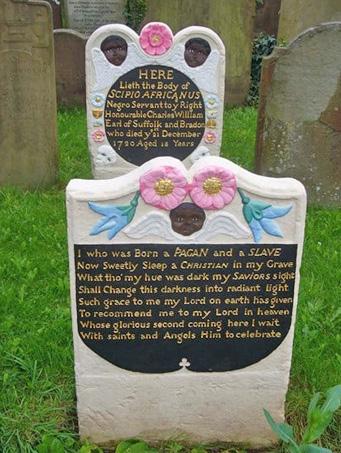
Jacob Walker and Harriet Long
Jacob Walker was a slave in Harriet and George Long’s household in Virginia. In 1828 the Longs returned to England, bringing Jacob with them to help look after their family. By this time he was a servant, earning a wage.
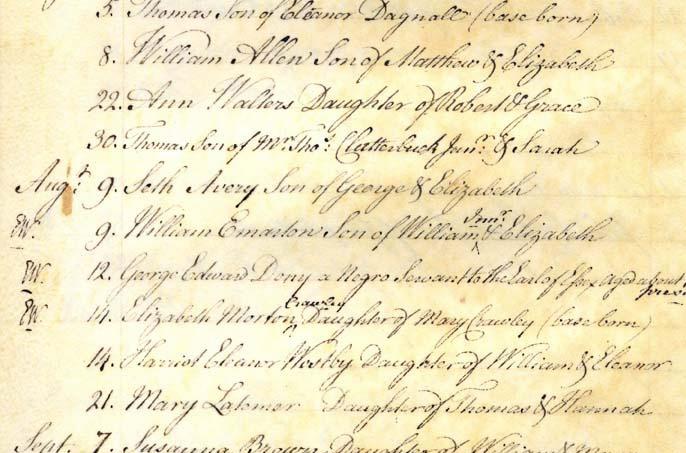
Jacob died aged 40 in 1841 in Highgate, London, where the Longs lived. A month before his death Harriet Long passed away. Distraught by her death, Jacob repeatedly visited her grave.
They are buried together with their names recorded on the same tombstone and are remembered by a Grade II-listed memorial in St Mary’s, Hornsey High Street, in London.
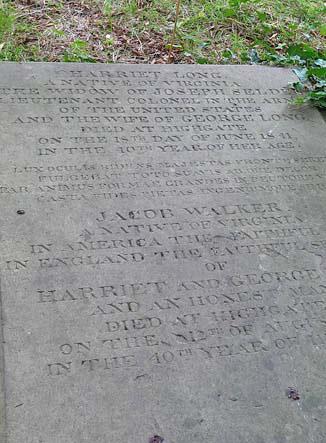 TOP: Emidy playing the violin to musicians in Cornwall ABOVE: The plaque at Kenwyn Church
© Royal Institution of Cornwall
MUSICAL GREAT: Emidy’s statue in Falmouth
© Kenwyn Church
REMEMBERED: Left to right, Scipio Africanus’ grave; George Edward Doney’s Baptism records; Jacob and Harriet Walker’s grave
TOP: Emidy playing the violin to musicians in Cornwall ABOVE: The plaque at Kenwyn Church
© Royal Institution of Cornwall
MUSICAL GREAT: Emidy’s statue in Falmouth
© Kenwyn Church
REMEMBERED: Left to right, Scipio Africanus’ grave; George Edward Doney’s Baptism records; Jacob and Harriet Walker’s grave

IT’S OCTOBER, which means it’s Black History Month. The company you work for hasn’t made any effort to recruit new Black men or women during the time you’ve worked there. There’s no Black representation in the senior management team. And Black members of staff are rarely ever promoted.
But it’s Black History Month. Which means it’s time for the organisation to put on a façade that they “care about diversity and inclusion”.
There are so many ways to observe the month — events, training courses, PR statements, equalities meetings; how can an organisation, with hardly any Black representation in its leadership team, decide which is the best way to promote Black History? By pushing the workload onto the small number of Black employees in the company, of course. The irony.
I bet the above description is way too familiar for most of us.
Now, I’m not saying that Black members of staff shouldn’t engage in Black History Month
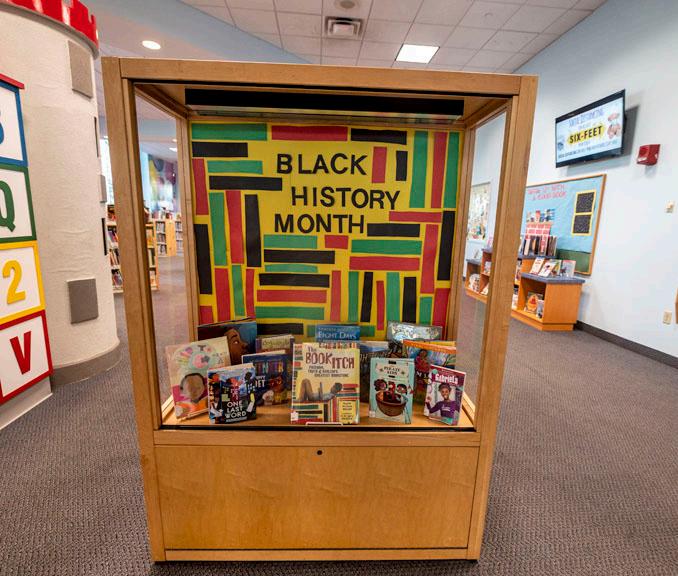
activities in the workplace. Nor am I saying that Black employees shouldn’t use their lived experience to lead these discussions and events.
But what I am saying is that if staff members genuinely want to plan Black History Month activities off of their own free will, and if an employer genuinely cares about race equity and reparative justice, then the least they can do is compensate Black workers for the extra hours they put in to commemorate the month.
For far too long, Black communities have had to work harder than their counterparts for little to no compensation.
This, in many instances, is even the case when trying to get a job in the first place. For example, Black and Asian people have to apply for 80 per cent more job roles to get a positive response.
Research shows that UK Black professional representation has been stagnant since 2014, with only 1.5 per cent of leadership positions being filled by employees of African
or Caribbean heritage. Reportedly, on average Black people are paid 23 per cent less than their white counterparts in similar roles.
Clearly, the ethnicity pay gap remains, and currently, it is not a legal requirement for employers to collate ethnicity data despite prominent public figures pushing for this to be implemented.
So, taking this into account, it seems even more problematic that during a month which aims to celebrate our history, Black communities are expected to carry out even more work with no remuneration.
The issue I’m highlighting is one that I’ve experienced myself too. Before I set up my campaigns organisation (Enact Equality) and became selfemployed, I used to work in the political sector in a variety of different policy roles. As you

can probably imagine, I was really engaged in loads of events and discussions around race equality, and this workload was often tripled during Black History Month. Did all of my employers pay me for the extra hours I worked? No, they did not.
However, what I do remember is that some employers allowed me to carry out the equalities work during my normal working hours, and when I needed to work late to support Black History Month events, they let me take the hours back as time in lieu.
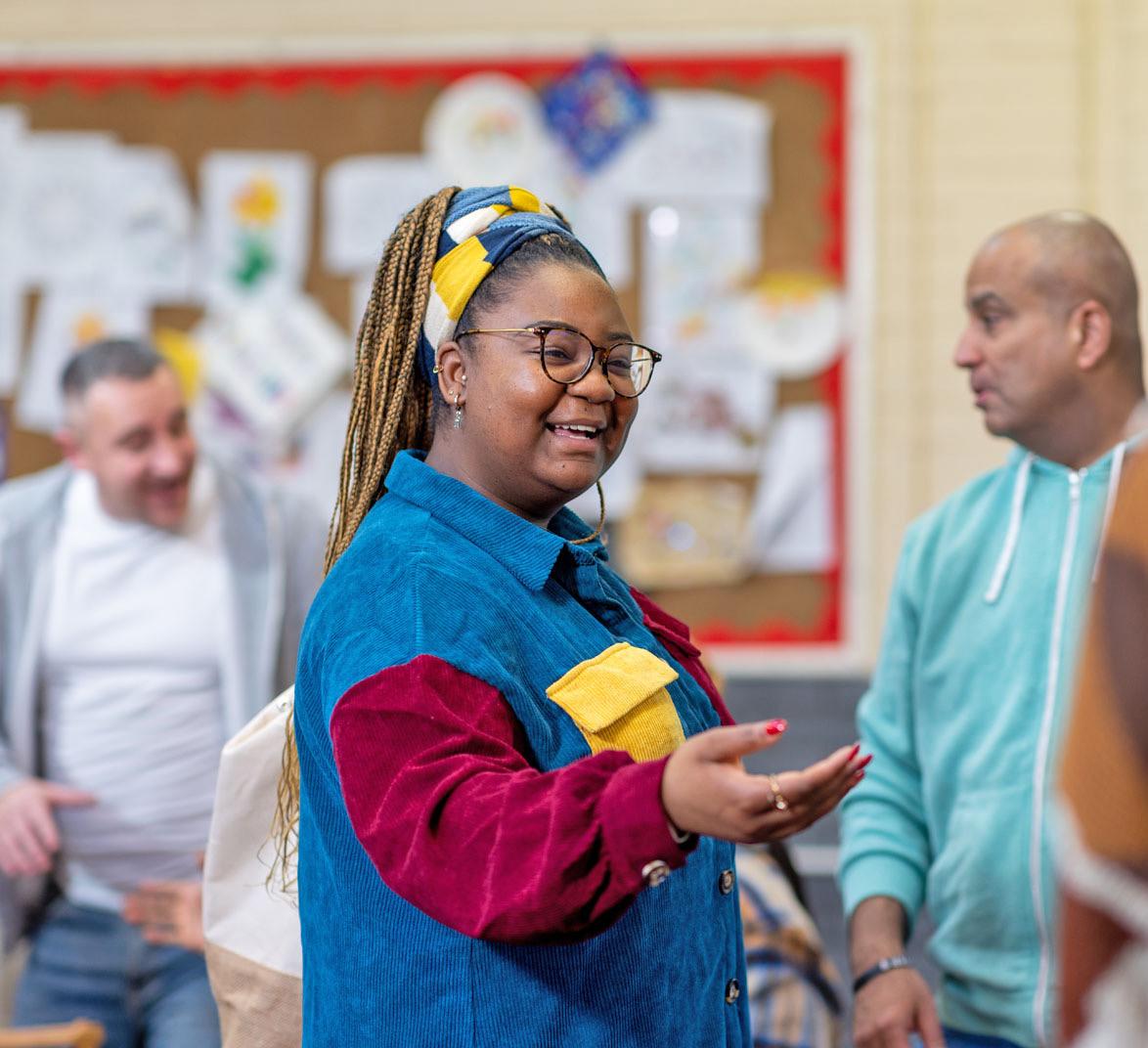
Now this isn’t a perfect solution, but I do think that at the very bare minimum, employers should be allowing staff to take their hours back for the extra work they undertake during Black History Month.
It’s a bit of a catch 22 dilemma to be honest. Especially
for those of you who, like me, genuinely really care about race equity and the wellbeing of Black staff in the workplace.
I remember when I was in my teens, and I would volunteer at different organisations. I would constantly say “I love doing equalities work so much that I’d do this as a career for free, without being paid!”. But as I’ve grown and gotten older (and wiser!) I’ve realised the real flaws in this idea. Firstly, it
simply isn’t sustainable. And secondly, why on earth should we be willing to conduct anti-racism work for employers for free, when the very same work is likely to benefit them financially anyway — especially when we think about how diversity and inclusion initiatives are often exploited and used as PR stunts.
For hundreds of years, Black people across the world were forced against their will to work for free. And now that slavery is over and we (arguably) have equal rights, we should be tasked with providing the solutions to centuries of racism… for free again?
JUST REWARD: The least employers can do is compensate Black workers for the extra hours they put in to commemorate the month sim ilar requirement for problem atic that during a month which expect with no remuneration. campaigns organisation (En act Equality) and became self-
Most people perceive being compensated for their labour as a right — a human right to be exact. Black communities deserve the same too, and let’s remember this whilst we commemorate Black History Month.
L’Myah Sherae is founder of the All-Party Parliamentary Group for Race Equality in EducationThe NHS is actively seeking candidates to fill a diverse array of roles, offering a chance to join an inspiring team and begin a truly fulfilling career in health care.
Thanks to an increased government investment in salaries and one of the UK’s most attractive pension plans, positions within the NHS have become highly desirable, often marking the beginning of a successful and distinguished career.
Opportunity: Currently, the NHS is on the
lookout for entry-level Healthcare Support Workers, Degree-level Nurses, Allied Health Professionals, and numerous other roles across England. This presents a remarkable opportunity for individuals to contribute to the nation’s healthcare system and make a positive impact on the lives of patients and communities.
If you’re passionate about healthcare and wish to be part of a team dedicated to serving others, consider exploring the available roles within the NHS. Whether you’re starting
your journey in the healthcare sector or aiming to advance your existing career, the NHS provides an excellent platform for personal and professional growth. To explore the vacancies and join this remarkable organization, search NHS Careers or visit: www.healthcareers.nhs.uk
Rewarding: Working in the NHS is a highly rewarding job, offering attractive salaries, excellent pension benefits, and the opportunity to make a positive impact on people’s lives. With
a wide variety of roles available, you can find the perfect fit for your interests and skills. To explore the diverse array of roles, visit the NHS ‘Health Careers’ website and sign up. You’ll have the chance to choose from over 350 exciting, varied, and rewarding positions, each providing a unique opportunity to contribute to the healthcare system. Nothing compares to the feeling of knowing you’ve made a difference in someone’s life. As you work in the NHS, you’ll have the chance to develop your skills, becoming an expert in your field while collaborating with a unique multi-disciplinary team. Working in the NHS is a rewarding job with various benefits and opportunities.
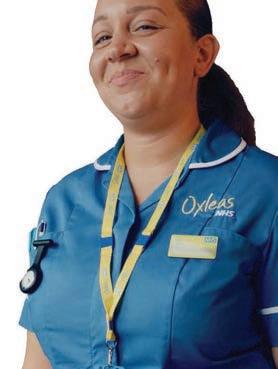
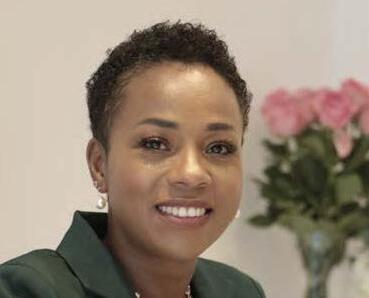
SJ: I am a qualified nurse with 15 years of experience at Epsom and St Helier University Hospital NHS Trust. Currently, I work as a Critical Care Outreach Practitioner and Independent Nurse Prescriber. My role involves-supporting nurses and doctors in assessing and treating inpatients who are acutely unwell. I had a unique opportunity to pioneer the Care Outreach Service within the trust which has been a significant highlight of my career. I studied Hospitality and Tourism in Jamaica, but when I moved to England 22 years ago, I struggled to find a job
in the hospitality sector. As a result, I started working as a healthcare assistant at the Royal Hospital for Nuro-Disability. It was during this time that I discovered my passion for nursing wh le caring for patients with cognitive problems due to brain injuries. I made the decision to switch from studying Tourism to pursuing a Nursing diploma, and that’s how my nursing journey started 15 years ago. Throughout my career, there have been both highs and lows. Pioneering the critical care outreach service and completing my MSc in Healthcare Practice as an Advanced Nurse Practitioner and Independent Nurse Prescriber are definite highs. However, the Covid-19 pandemic presented a real challenge. During this time, I felt overwhelmed, and exhausted, and struggled to cope while also experiencing personal loss. However, I found solace in expressing myself and became a Wellness champion, even gaining certification as a life coach. Regarding career advice and
•Rewarding Job: The job satisfaction derived from working in the NHS comes from knowing that you are making a positive impact on people’s lives and helping them during their times of need.
• Variety of Roles: The NHS offers a wide






array of roles catering to diverse skill sets and interests. Whatever your passion or expertise, there’s likely a role that suits you.
• 350+ Exciting
support, when I started in my Band 5 roles, It was not straightforward to get the necessary support to pursue further education and promotion. However, I am pleased to see the positive steps taken in this area, such as patient and public involvement in nurse education proposed by Health Education England (now NHS England) and the Nursing and Midwifery Council.
Over the years, I have had a fulfilling and rewarding nursing career. I started as a Band 5 nurse on a surgical ward, caring for patients before and after surgery. My curiosity about patients who required ICU support led me to work in the Intensive Care Unit. After gaining a qualification in intensive care practice, I became a band 6 senior staff nurse.
For six years, I provided care to critically ill patients requiring organ support, while also mentoring and leading teams. Eventually, I transitioned to the role of critical care outreach, where I could care for patients
on the wards and prevent them from being transferred to the Intensive Care Unit. This role also allowed me to share my critical care skills and knowledge with ward nurses.
For anyone considering a career as a nurse, I offer the following advice:
Research nursing opportunities and gain a deeper understanding of the profession. Identify what interests you about nursing and consider trying out some taster sessions in the field before making a commitment. Nursing offers diverse opportunities, so it’s essential to ensure it aligns with your passion and interests. Overall, nursing has been an incredibly rewarding career for me, and I encourage aspiring nurses to pursue this profession with dedication, passion, and a commitment to continuous learning and self-care.
Healthcare support workers also earn a starting salary of £22,383. There may also be opportunities to earn additional payment for working on-call, overtime, or unsocial hours.
of the best pension schemes in the UK with your employer contributing the equivalent of an extra 20.6% of your salary to help meet the costs of your pension benefit.
• Training Grants:
Roles: With over 350 exciting and valued roles, you can find a position that aligns with your passion and interests.
Since September 2020, a non-

repayable training grant has been available for nursing and midwifery courses, providing financial support of at least £5,000 per academic year, with additional funding of up to £3,000 per academic year for eligible students.
• Competitive Salaries and Benefits: The NHS offers competitive starting salaries and benefits, such as £28,407 for newly qualified nurses at band 5.

• Career Progression: The NHS offers fantastic opportunities for career advancement, allowing you to develop your skills and become an expert in your field.
• Excellent Pension Scheme: Benefit from one
• Wellbeing Support: The NHS prioritises the well-being of its staff, providing support and resources to ensure their physical and mental health is taken care of.
There are so many benefits to a career
Have you ever asked yourself, as the rst people on the planet were in Africa, does this mean we are all Africans? And, did their descendants populate these shores; every step on this land being a new discovery? A far-distant world from today.
Paul Reid’s career spans the areas of community and youth work, local democracy, community-led regeneration, equality, justice, heritage and the arts. He is currently completing a 2-year contract as Head of the International Slavery Museum for National Museums Liverpool.

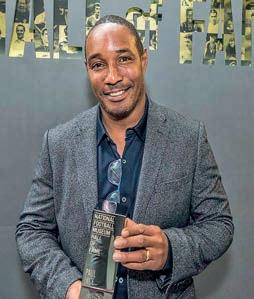
Queen Charlotte was a Queen of Great Britain and Ireland. Her origins are somewhat contested. We hardly hear anything about her.
She was the wife of King George III, who we know su ered from bipolar and possibly dementia.
What I nd interesting about Queen Charlotte is that the story of King George III completely overshadows her story. is woman, whose origins and physical characteristics suggest she was not white, yet so few people know about her.
She was Queen of this land.
Omoba Aina is another compelling story. She was an African Princess from West Africa, captured by the Dahomey, received by Captain Frederick Forbes in the British Royal Navy as a gift for Queen Victoria, and later renamed Sara Forbes Bonetta.
Queen Victoria was said to have been impressed with her intelligence and raised her as Queen Victoria’s Goddaughter.
Aina’s people lost the ght with the Dahomey, and were captured and enslaved.
Within the Royal household and later travelled to Sierra Leone; a fascinating journey.
e con ict between Africans forms a signi cant part of her story.
Have you really studied Dr Martin Luther King’s ‘I have a dream’ speech? He wanted a nation where people were not judged by the colour of their skin but by the content of
their character, but has there ever been a time of no racism? en this whole issue about race and racism continues to be the focus of heated debate.
I ask these questions because, in my opinion, history isn’t about quoting names, facts and gures. It’s about making sense of our world today and tackling the challenges we face. Let us now explore some lesserknown historical gures to have meaningful conversations.

When we think about ancient Rome and antiquity, most of us will not have heard of the Roman Emperor, Lucius Septimius Severus, who was born in Leptis Magna (present-day Libya) in north Africa. He is most known for overseeing the repair of Hadrian’s Wall, which spans the country’s width (from Wallsend on the River Tyne to Bowness-on-Solway).
During the 17th century, Europeans categorised people into races, arguing that ‘white’ people were superior, which was used to ‘justify’ slavery.

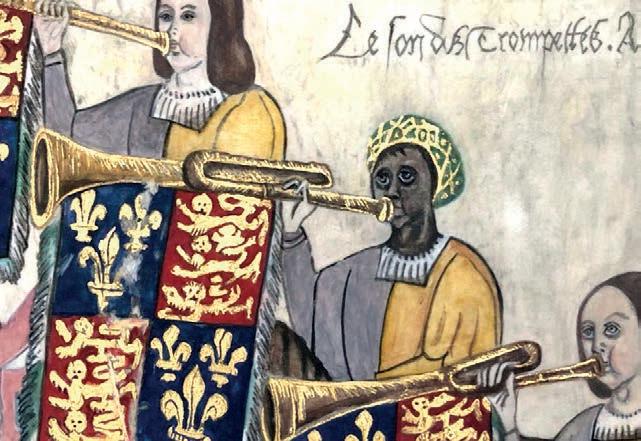
We now know this was utter nonsense and that ‘race’ is an invention used by Europeans to enslave Africans.
Yet, even though we can disprove ‘race’, we still live in a world where racism is a reality. Isn’t it ironic.
We can dismiss ‘race’ as being unscienti c but still be ghting racism?
What does this say about how far we have developed as humankind and what we know about Britain’s Black History.
Emperor Severus, who died in York, is a very understated historical gure. e same is the case of his sons Caracalla and Geta, who succeeded him.
An unblemished bust of Severus is held at the National Museums Liverpool.
present day Tunisia.

He came over the Alps on elephants with 30,000 troops to attack the Romans.
Hannibal was a brilliant military tactician, recognised as a military genius.
When I think about Emperor Septimius Severus, I connect him to Hannibal of Carthage, born in
Now to the remains of a woman in York, excavated in 1901. She was later called the Ivory Bangle Lady, who is said to have lived in the 4th century. Determining anything about her required the careful study of forensic evidence.
Her possessions, the reconstruction of her head, how she was buried, etc., provide a tiny glimpse into her world.
From the reconstruction of her head, the study of her personal belongings, her stone co n, and from DNA science, it is reasonable to assume that she was of high social standing and originated from north Africa.
e Ivory Bangle Lady makes me think about what living in this land would have been like then. What challenges did she face, and how many other people like her (like us) were here on these shores?
John Blanke is a trumpeter the Tudor period. Little is known of him, but he lived during the reign of King Henry VIII. His surname, Blanke, suggests a reference to Black. Historians report that he earned a high wage, petitioned, and successfully received a pay rise. Did his origins and skin colour play any part in the discussions in the early 1500s? Also, if John Blanke was a free man, how he may have fared, as it was the 1500s when we see the start of the European enslavement of Africans.
ese are two examples of the documentaries and lms that we should be having discussions about.
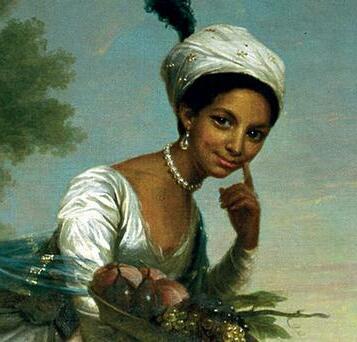
Many of us will have seen the 2013 lm Belle, which depicts the story of Dido Elizabeth Belle, the illegitimate daughter of a navy admiral who lived in lavish surroundings in London.
Still, as a Black woman, she will have lived di erently than her peers.
We will remember the famous painting of a Black woman touching her face and holding a fruit bowl in a portrait alongside Lady Elizabeth Murray.
Yes, she was a Black woman in the British aristocracy, but the records reveal that despite her social position, she still experienced the ugly face of racism.
Such strength of character gets her through to eventually
See pages 25 to 32
determine and shape her future. My thoughts of Belle leaves me to think about her privileged life, the racism she experienced, but I also ask myself, would she have identi ed with other Black people living in Britain at the time?
Paul asks...
Do you think there will always be a need for Black History Month, and what will it take for our children, in mainstream education, to turn the pages of history and see themselves and their history positively and accurately re ected for them to learn? Maybe at this point, we will see an increase in people of African descent studying (what we refer to as) British history, and the focus on Black history during 12-months of the year.
Trinity SELT, helping you to live, work and study in the UK
approved by UK Visas and Immigration (UKVI)
CITIZENSHIP, SETTLEMENT AND PARENT / PARTNER VISA APPLICATION (A1-B1)
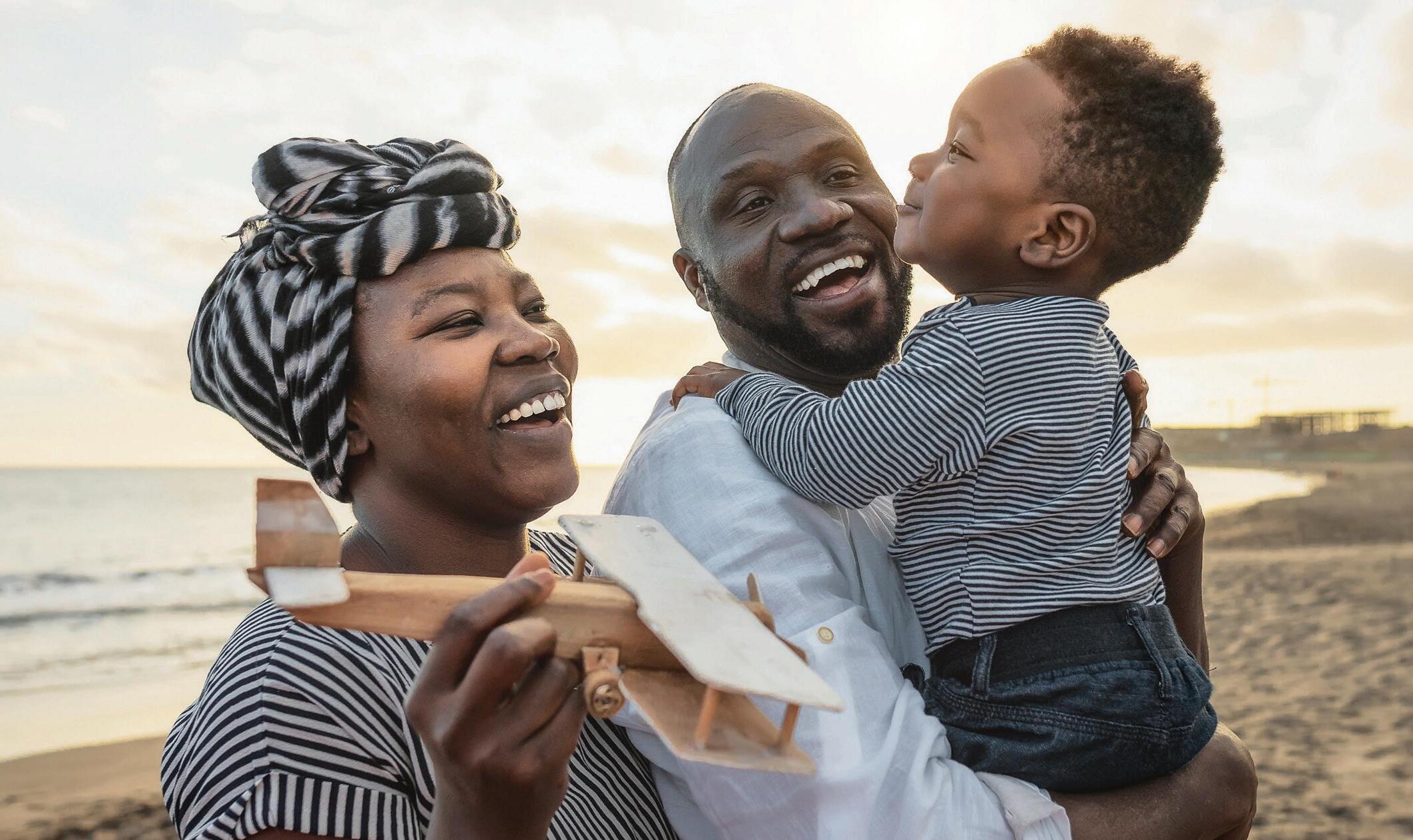
GESE: Graded Examinations in Spoken English
A speaking and listening in English test available at levels A1, A2, and B1
Tests available seven days a week at centres UK wide
Provisional result emailed by 9am the next day and certificates emailed within 7 days
Trinity College London is proud to offer free exam preparation study materials and resources to give you the best chance of passing your SELT test.
Scan the QR code or visit trinitycollege.com/SELT to find out more.
HISTORY IS a doubleedged sword. On the one hand it’s the what, why, how and where of human existence. And on the other hand it means you ‘was here… but now you gone’.
Like the true legend of Ivan O. Martin, the Jamaican gangster whose brief moment in the public limelight was immortalised by Jimmy Cliff in the movie The Harder They Come

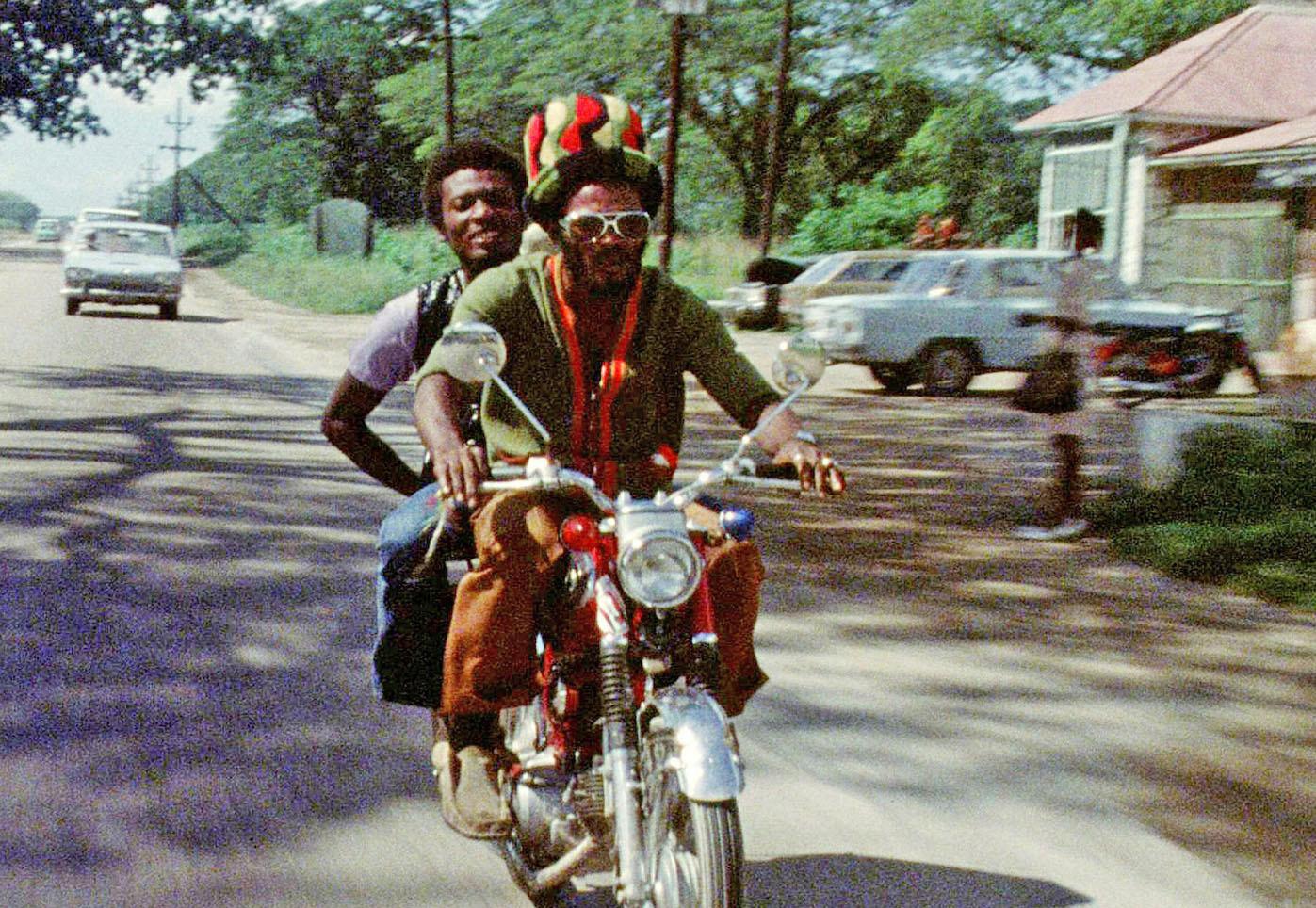
In the film, when the cops are searching Trenchtown for the bad bwoy, the camera zooms in and out of the ghetto graffiti at every turn: I WAS HERE.
The real Ivanhoe was here. And he was there. Indeed, he seemed to be everywhere. This was at exactly the same time as the 492 pioneers were making their way across the Atlantic to the ‘motherland’ for a new life, a new beginning, with hope in their eyes.
Ivan O. Martin had been on the run for a couple of months by the time that first wave of post-war immigrants sailed from Kingston on the Windrush.
He had escaped from the notorious maximum security General Penitentiary prison in Kingston two months earlier (April 1948), one of the very few inmates to have successfully mounted a jailbreak from there.
And for the next four or five months he led the Jamaican constabulary on a murderous wild goose chase while giving
the Jamaican public a running commentary of his gun-toting and shootouts through regular published letters to the Gleaner newspaper.
Now not a lot of people know this. When people see the movie The Harder They Come, how many of them know that it is based on a true Windrush era story from the rude boy streets of Jamaica?
We’re more likely to think of The Harder They Come as a musical vehicle for reggae of the 1970s than to think of it as the story of Windrush. And yet that is exactly what it is.
Because history is not just a moment in aspic. History, not least Black history, is the story of the story of the what, why, how and where of who we are/were.
How else are we to answer that recurring question of the ‘now’ generation: why did our parents and their parents — and maybe even their parents — leave the beautiful breeze and the sunshine of ‘Olde Jamaica’ where you’re rarely more than an hour from the beach as the crow flies and where it’s always summertime and the living is easy, to come to grey old Ing-
lann, the motherland, to endure the vitriol of prejudice when they didn’t have to?
It’s a good question if you simply base it on the reggae vibes of The Harder They Come but the reality is that, the privileged few aside, a vast number of Jamaicas lived in abject poverty and, let’s face it, with intraracial prejudice.
That’s the landscape in which the little short man from St Catherine (Ivan) with the effeminate lisp became Jamaica’s ‘most
It was that poverty that drove hundreds and subsequently thousands and tens of thousands of young migrants from the Caribbean and increasingly Africa to invest their life savings in a European expedition. It wasn’t because they wanted to help Britain build up after the war or any other flight of fancy.
Those first Windrushers would have talked about ‘Ivanhoe’ throughout that journey across to Tilbury Docks and no doubt for those first few months in Britain, during which time letters from back home kept them updated. Ivan O. (or Rhygin as he was known) finally met his fate in a shootout with the cops just as the Windrushians were settling down to their new lives in their new country.
If he had been a little luckier he might have been one of those onboard the Windrush. Imagine that? Remember that last shootout scene in The Harder They Come where Rhygin is swimming out to sea to get on board a ship bound for Cuba and a new life? How different the outcome of that Ivan O. ‘history’ would have been had he made it?
There would probably have been a sequel, despite the reallife shootout. Instead, Rhygin is history. But his story is forever thanks to the movie, because if no-one tells your story, you’re not even history.
Rhygin aside, it’s unnerving how quickly we become history. Unless you’re one of them lucky ones, one of them gifted ones, one of them ones who are blessed to be forever. Nothing is forever, I guess. Especially in the Black community.
wanted’. them ones seems.
just a musical vehicle for reggae of the 1970s
Brixton’ is. And unless we document it, it will be wiped out of black history and so will our stories from there.
Before that I thought the afro would be forever. Especially when Messrs Dyke and Dryden started producing their own afro combs from their factory in Wood Green, north London. I mean, how many hairstyles have their own comb? But then, I guess, a lot of soul boys thought the wet-look would be forever. And haven’t they got stories to tell?
You see, each of these moments tell an amazing story of who we were, when we were, what we were and how we were, let alone what we wore. They may not be forever but if we can pass their back stories on in writing or on film they’ll never be forgotten.
We’re here today and we’re gone tomorrow it seems. One moment we’re making history — we’re civil rights marching and Black power chanting and we’re tearing down the barriers and then we’re not.
Junior Giscombe is one of them blessed and gifted ones. You remember Junior of ‘mama used to say fame’. I saw him perform at a recent Windrush Gala in Catford, south London, and boy, he looks like he will be forever. The tune will. Of course it will.
The barriers have been torn down and our children are the beneficiaries and they confine us and everything we’ve done to this thing called ‘history’.
I used to think Brixton would be forever. But I drove through it the other day and I can tell you that it’s history. At least ‘Black
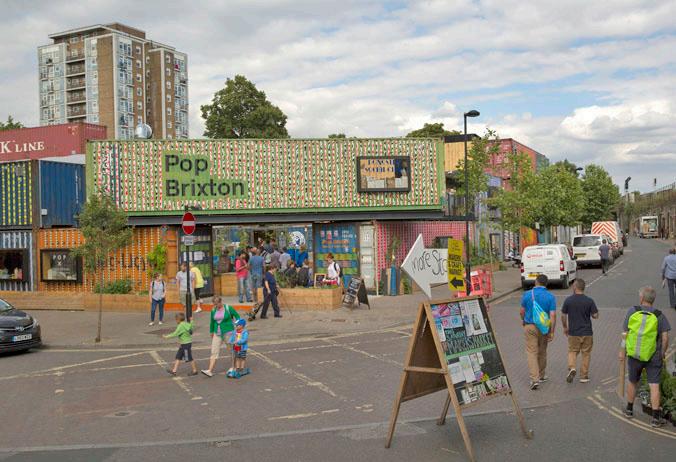
The barriers have been torn drove the other day and I can tell you that it’s history. At least ‘Black
But sixtysomething Junior hasn’t put on an ounce of flesh since his worldwide hit of the 1980s. Which makes me conclude that if you don’t want to be history in our lifetime, you’ve got to put a bit of effort into your legacy. Keep your legacy fresh.

We’re here today and gone tomorrow. Unless we document our story it will be lost foreverALL CHANGE: Brixton today is a world away from the ‘Black Brixton’ of yesteryear (photo: Getty Images) STORY OF WINDRUSH: The Harder They Come was not (photo: British Film Institute)
REPRESENTATION OF the Black British experience is at an all-time high in literary spaces, but the presentation of Black struggle has only recently fallen into our hands.
Black British Literature has seen a steady and exciting insurgence in the last decade. Authors like Jessica George, Malorie Blackman, Akala and Caleb Azumah Nelson have captured the hearts of the literary world and given the industry an insight into the creativity and ingenuity within the diaspora.
The legacy of Black British authors could be attributed to the postcolonial academic movement in the 1970s, and its products.
Poets like the critically acclaimed John Agard have featured in the GCSE English syllabus, taught to almost all British teenagers, since 2002. Plays by Black British creatives have soared in popularity due to the rise of apps like TikTok and an invested effort to tell authentic Black stories in the mainstream.
For Black Boys, directed by Ryan Calais Cameron, is but one example.
Blackness in British Literature has roots as far back as the 18th century, and the presentation of Black personhood and the marginalised experience spans as far back as the Renaissance era. Whilst an uptick of literary works can be found after the arrival of the Windrush generation, the presence of Black Britons before 1948 makes it inevitable, yet surprising at how rich Black British literature, and its reflections on British society, have been.
Although there is an abundance of literature and lore that has been produced by African descendants, in a British context Shakespeare is widely considered to be one of the first British playwrights to explore the concept of the Blackness and empire.

Caliban, the “savage” “abhorred” slave of magus Prospero in The Tempest, is a clear reference to the slave-coloniser dynamic that had been reintroduced to the English public interest via the discovery of the “New World”. The isle of which Caliban habituates has been stolen from him, his resources depleted, his status stripped and his rage demonised.
Out of all of the characters who undermine Prospero during his struggle for power, Caliban is the only one to be denied re-
pentance. Literary critique of The Tempest has varied greatly over time, as with the presentation of the play. For many decades, Caliban’s perceived otherness was divorced completely from his struggle as a suppressed and misunderstood racialised native.
However, in instances of other plays, actors of the Renaissance era would present racial “otherness” by wearing Blackface, wigs, black gloves and stockings to signify their racial difference.
Alongside Othello, the more popular presentation of Blackness in Shakespearean literature, Blackness on stage was masculinised, sexually deviant, irrational, and prone to fatal flaws. Morality plays and literature, the most popular form of literature at the time, served the crucial purpose of vilifying the existence of Blackness and warning the English of its inevitable threat to their social fabric.
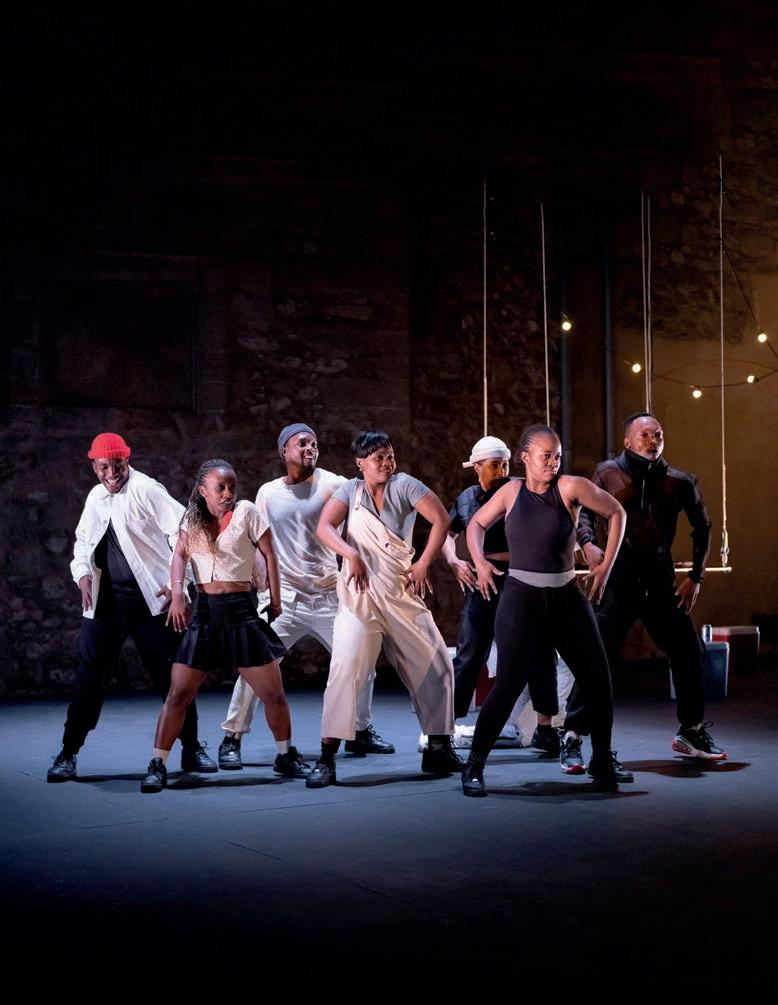
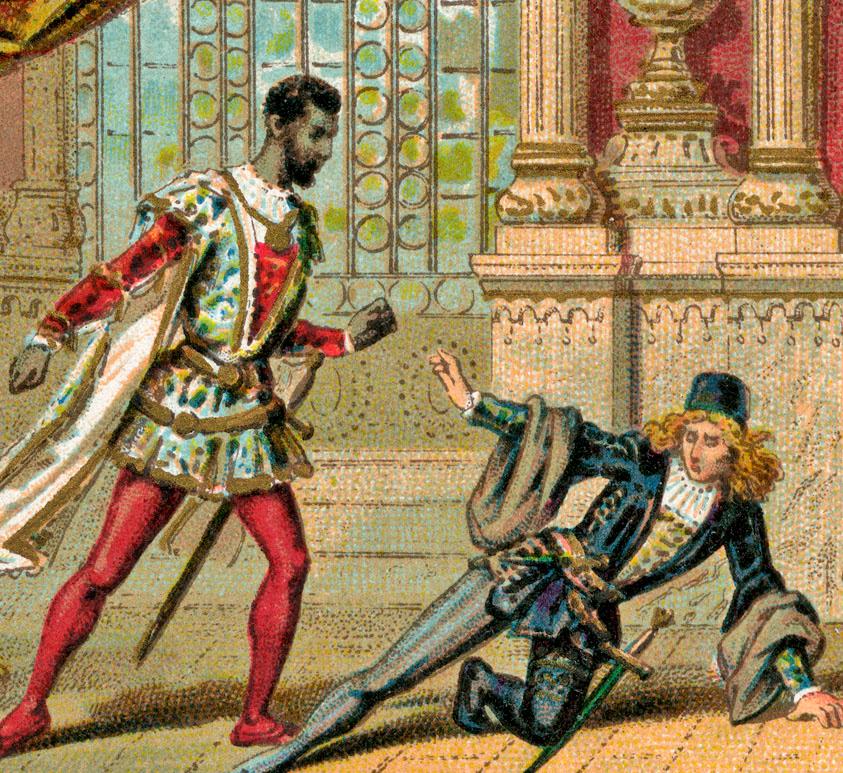
It was only until the emancipation movement when the space for literature for Black authors had even opened.
Phyllis Wheatley, born in 1753, is considered the first African American author of published poetry, although she was believed to be of Gambian and Senegalese ethnicity and published her Poems on Various Subjects, Religious and Moral when she visited London with her slave masters to seek healthcare. Her literate status was a rarity for a slave of her position at that time, but she was a gifted writer and gained notoriety for her work in her teenage years.
Her poetry was supported by the then Lord Mayor of London and she was arranged to meet with King George III, which she had to decline as she had to return to America. Despite her young age, her conviction allowed her to have considerable impact on British social change. She died in poverty at age 31.
Many writers that came to prominence, including the previously enslaved Olaudah Equiano and Robert Wedderburn, did so through their attempts to influence policy and highlight the atrocities of the slave trade.
Ignatius Sancho wrote to Irish novelist Laurence Sterne about the discrimination he faced in Britain, which gained widespread notoriety.
Boye DokuMary Prince, who told her story of enslavement in Bermuda to the Anti Slavery Society in London, had her story published in 1831 to an overwhelmingly impactful response. At the time, she was still enslaved, and slavery was still legal in the colonies and Caribbean.
In contrast, Victorian fiction maintained its ability to present Blackness as a source of fear, a symbol of corruption, and animalism. The fall of the empire and the abolition of slavery abroad represented a shift in the perception and status of England. Jane Austen, considered one of the most impactful English authors of her time, has been interpreted to reference Black characters in the context of emancipation in her most popular works, like Jane Eyre Bertha is half Creole and was raised in Jamaica, alluding to her racial difference.
Jane Austen herself was a supporter of slave abolition, so it is still widely debated today on the intention behind the often ignored racialisation of Bertha and the surrounding conversation about race at the time. However, the impact of these presentations only furthered the demonisation of Blackness that imprinted itself into the English psyche.
It is no wonder the hostility faced by the larger waves of Black migration in the early 1900s was so widely justified by the majority of the public, up until and after the arrival of the Windrush generation who were targeted frequently on the basis of their perceived sub-humanness.
The presence of Black Britons within literature is imbalanced and the narratives around what it meant to be Black have in many ways remained the same.
The “White Gaze’’ still permeates the perception of Blackness onstage. It is incredible however to explore the evolution of narrative from the mouths of early Black Britons, many of whom were denied the access to a pen from birth.
The diversity of Black British literature has surely expanded over time, but the clamour for representation and creative justice has been an underlying purpose for Black British literature from the times of Equiano to today.
WITH BLACK History Month celebrations now a fixture in the mainstream UK calendar every year, The Voice canvassed opinion from some of the most notable movers and shakers from the Midlands.
Led by Audrey Hayles-Parkes, Mykal Brown and Paulette Francis-Green, the Blackstory Partnership (BP) has produced Birmingham’s BHM brochure since 2016 and is steering the Second City’s celebrations through choppy waters given its widely reported financial issues.
Tonia Daley-Campbell (TDC) is a multi-talented artist with credits that include writing, producing, casting and directing. Currently anAudience Development Consultant at the Grand Theatre Wolverhampton, she’s been a key figure in diversifying access to the arts both for performers and viewers.
Reverend Clive Foster MBE (RCF) is the Senior Minister Pilgrim Church Charitable Trust in Nottingham. Another key figure in the East Midlands city, he’s also been involved in advocating for those caught up in the Windrush scandal all across the country.
Councillor Jackie Taylor (CJT) became the first Black person last year to become deputy mayor in the Black Country town of Sandwell, having previously served as a borough councillor since 2014. She has a long history of advocating for equality, including a defiant call against racism following the murder of George Floyd.
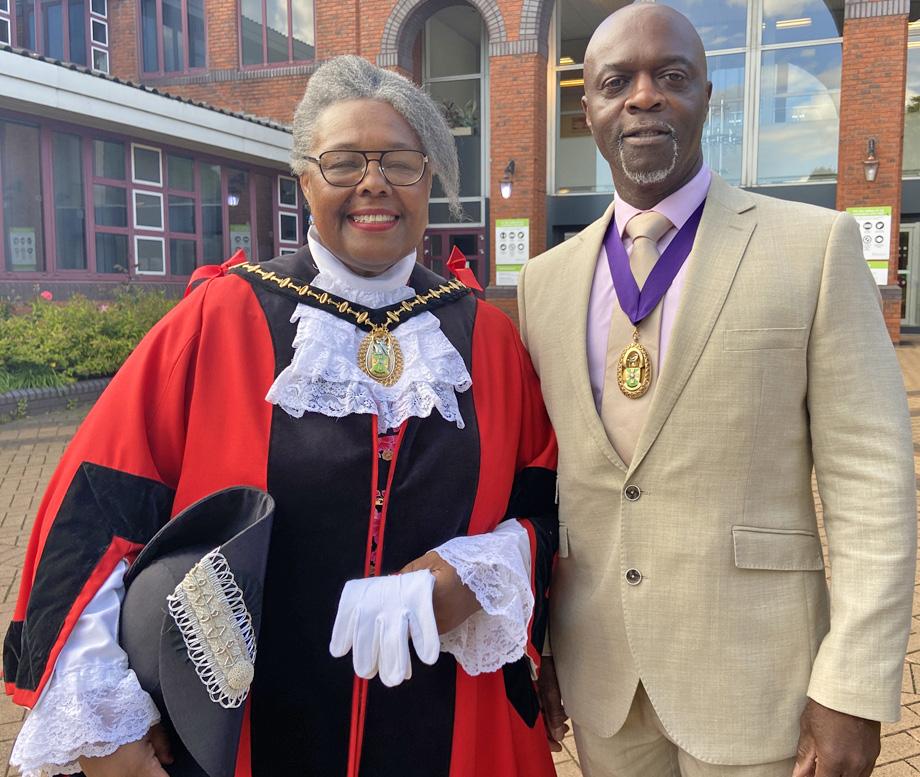
Pawlet Brookes MBE (PB) is the CEO and Artistic Director of Serendipity, Leicester’s Black arts and heritage institute which she founded in 2010. Since then, it has been lauded for its eclectic activities including the Let’s Dance International Frontiers festival, its Windrush Day Lecture and the city’s BHM activities.
VG: How have / will you be involved in this year’s BHM celebrations?
BP: We produced this year’s brochure: featuring approximately 45 events, activities and exhibitions across Birmingham plus articles about people of interest.
TDC: I have been part of a team of professionals from the creative and entertainment industry who have organised a
selection of events throughout October.
RCF: We’ll be working with community partners and organisations to deliver talks and events. We have a great opportunity, given the Windrush 75th anniversary year to talk about the impact of Black history in Britain.
CJT: Sandwell has in place activities for BHM this year. ‘Celebrating Sisters’ is our theme. As usual, my Black Colleagues and I have been consulted and will be working with officers to promote BHM in Sandwell.”
PB: BHM is really important for Serendipity in our year-round programming, coordinating the programme for Leicester, bringing together a wealth of events and activities organised by city partners. It is a really rich programme, with something for everyone.”
VG: What elements/ activities are you looking forward to in particular?
BP: “The George Saunders Reimagined Exhibition at Birmingham Back to Backson the life, legacy and work of one of Birmingham’s first Black tailors. There are also events at Aston Hall, particularly a presentation about The People enslaved by Lady Sarah Holte of Aston Hall Also an innovative Black British History Bus Tour, celebrating 75 years’ settlement of the Windrush generation.
TDC: I am looking forward to Judy Love’s show on October 27 at Wolverhampton Grand Theatre and the Music of Trojan, The History of Reggae and Black Pound Day at The Hangar.
RCF: I am looking forward to working with various institutions and young people from diverse backgrounds in sharing the contribution of Black people to the UK. Plans are in place to have discussions in particular about Black females who have inspired social or cultural change. I will also be working with our majority Black-led churches to share the importance of their spiritual direction of the UK.
CJT: I am delighted to be involved in the nomination of Sisters in the Community, celebrating them and their contribution for the hard work and dedication they have in terms of their service to Sandwell.”
name suggests, will bring together some fantastic local and international poets. Michael McMillan from The Front Room installation, leading the conversation in BlackChat: I have a Dream (October 3). Also an evening of film and discussion on the origins of 2-Tone (October 4).
VG: How has the concept of BHM changed for you in the last few years?
BP: Since the public assas
injustices presented to Black people! BHM is significant in remembering, celebrating and acknowledging our achievements.
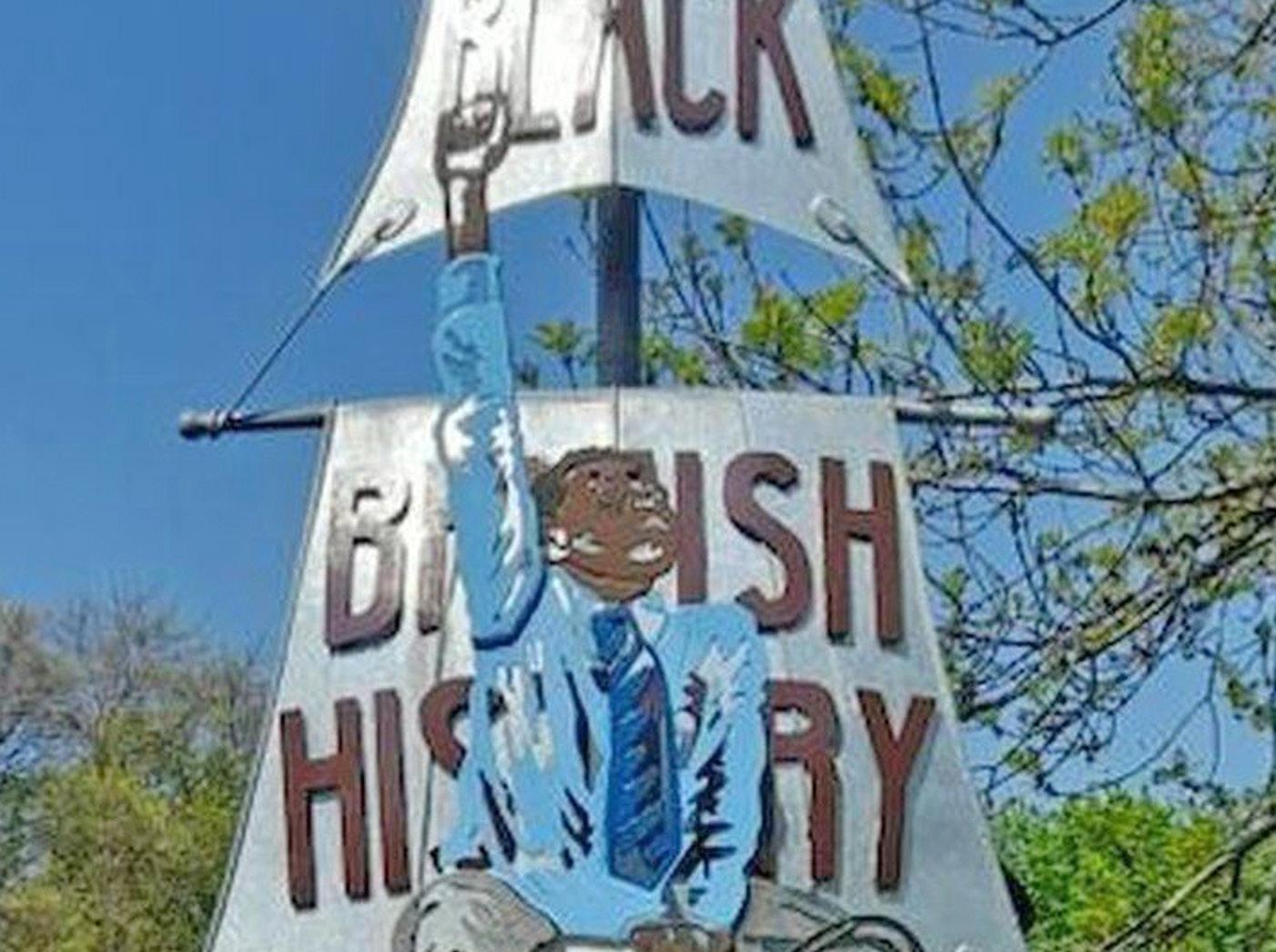
TDC: “I’m loving that we focus more on Black British History. But it’s moved away from being just about history and is more about celebrating Black culture.
RCF: I have seen a change over the years in Nottingham. Like many, I’m asking ‘Who is BHM for?’ There is also a grow-
ing acceptance that Black history is not just relegated to a month and it needs to be recognised every day. People are not accepting a rose-tinted past but looking at the historical injustices of slavery, imperialism and colonialism and asking question, ‘how far have we moved on today?’ We’ve made progress but there is still glaring racial inequality that needs to be addressed: the systemic, institutional or opaque racism which is just as harmful as the historical
Within the past few years I have noted that the concept of BHM has changed and become rather muted in comparison. I particularly reflect on the murders of Black men and women by enforcement officers. We have witnessed this repeatedly, on most occasions with no justice or peace for victims’ families. There is a disconnect with BHM celebrations and these atrocities.”
PB: I am not sure if the concept has changed, but I think it has become even more crucial as a spotlight on Black arts, heritage and culture, whilst we work to ensure that this is embedded within programming throughout the year. Serendipity started publishing an annual magazine, BlackInk in 2020. This has gone from strength to strength.
VG: How would you BHM to proceed / develop in the coming years?
BP: BHM is significant in remembering, celebrating, and acknowledging the achievements of Black people in the UK. As such Blackstory Partnership will continue to celebrate BHM for the foreseeable future by producing a BHM brochure.
TDC: I would like to see more legacy projects and events that continue beyond the month of October. We need to see Black history as just part of history.
RCF: There needs to be a growing acknowledgement and recognition of British history with regards to slavery, imperialism and colonialism. We need to have more honest conversations around these areas and to see that echoes of history still resonates with how we relate to each other today. Britain still remains uncomfortable with its past. We won’t understand how to approach the future in a way that is fair, equitable and until we do so.
CJT: Celebration should take place every day instead of one month per year; would be by way of equitable services, education and jobs and much more; would mean that all children have Black studies as part of the curriculum and mean we are not invisible for 11 months of the year.”
PB: What we are exploring is how technology can be used creatively during BHM and throughout the year. We established this first with BlackInk leading to digital content; also Digital Black Centric Week (November 6-12) focusing on artists using tech innovatively. Next year we will have portraits and stories of 100 Black British women who have been nominated by the public, culminating with an exhibition from next October.”
VG: What are the implications for African-Caribbean people/ those interested in our culture?
BP: That we are able to let them find more about us that they may not have known about without BHM. We are raising the bar, letting people know our history and our contributions to this country.
TDC: We need to keep the tradition of BHM alive as it’s
A NOTABLE omission from BHM in Birmingham will beReverend CanonEve Pitts, who has been forced to retire recently in adherence with Church of England regulations. Herself a history maker as Br ta n sfirstBlack female vicar, Rev Eve made herlastoffic alappearance at the Roman Catholic hurch s est nd an haplaincy Windrush celebration at the St Francis Centre in Handsworth.
In her 13 years at Holy Trinity, Rev Pitts reinvigoratedBlackpatrona ew th herunapolo et cpro Black
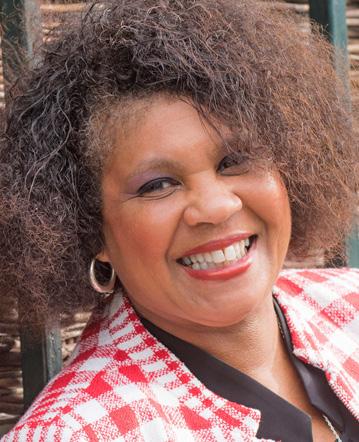
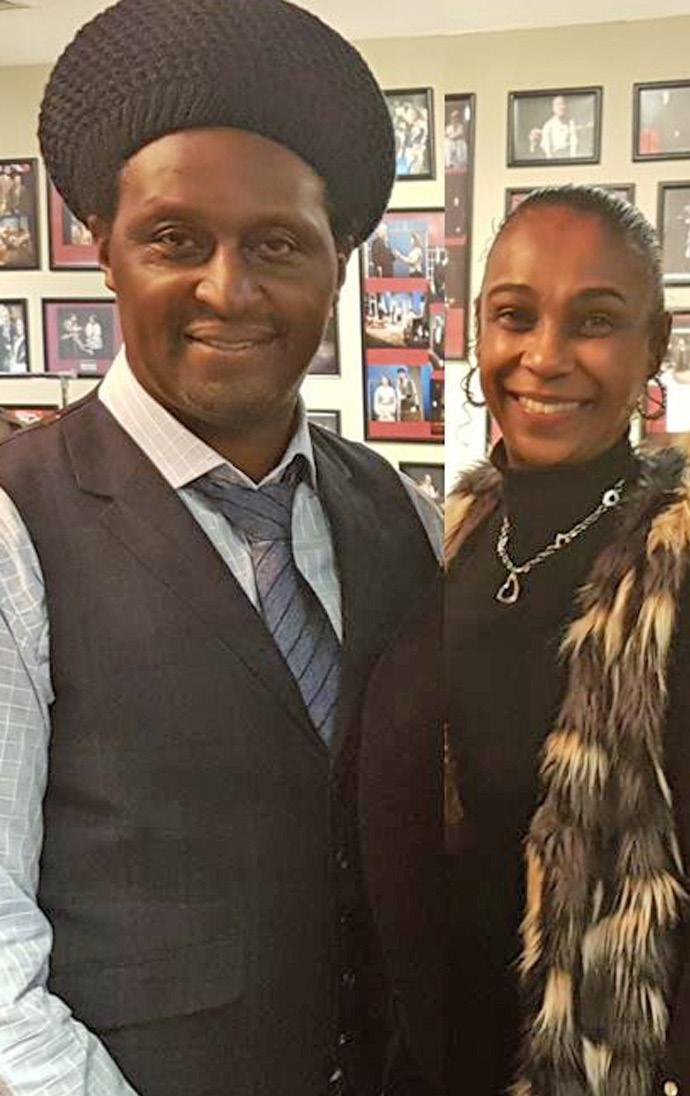
OPINION COUNTS:
Above, Tonia aley amp ellw th King star Chris J Edwards and Andrew Lindo of Black History Activity Books; far left erend p ty s ounder CEO and Artistic Director, Pawlet Brookes MBE; left, Rev Clive Foster MBE; right, Blackstory artnersh p s Mykal Brown and Audrey Hayles-Parkes
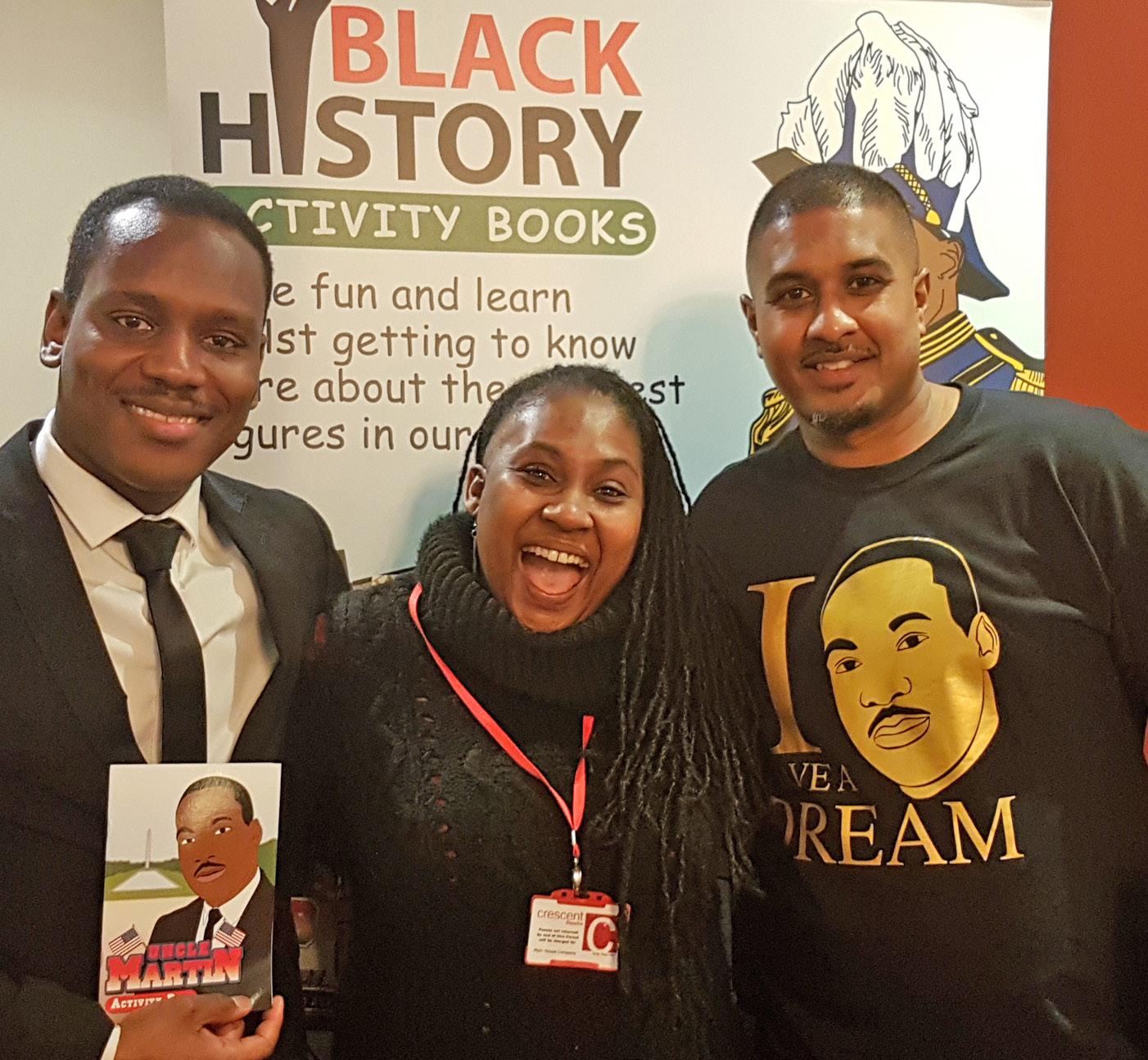
stance and fearlessness nspeak n outonmatters ofrac als n ficanceand injustice.
She commented on herdeparture wh chhas shocked locals: “Although I will be retiring and leaving from this church, I will still be serving.”
The Church of England st pulatescompulsory retirement for its vicars after 35 years’ service. To the chagrin of many, this includes Rev Pitts, who was born in Jamaica, joined herparents n ott n ham aged 12 and was ordained in 1989.
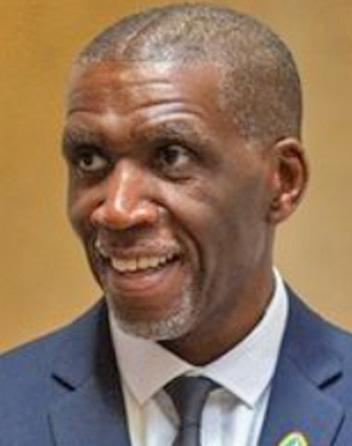
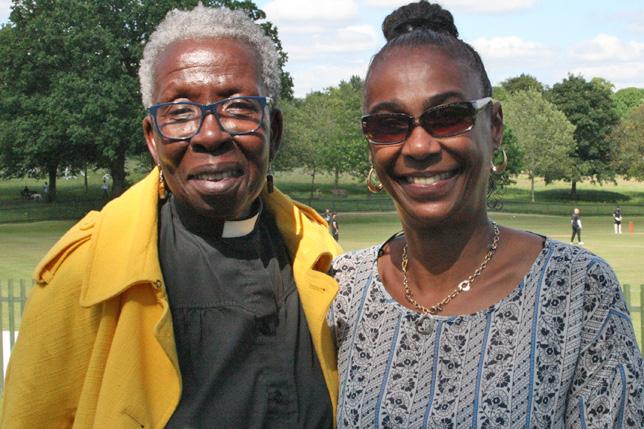
in danger of being sidelined by other things happening in October.
RCF: ‘I am concerned that the voice and heritage of African-Caribbean people is being lost in mainstream society especially given the tremendous contribution that we have made and continue to make to the UK. We need to see sustainable investment and succession planning for capturing, archiving and showcasing African Caribbean history in the UK. The African Caribbean people need to be supported to tell that story and to share the rich culture that it has brought to the UK.’
CJT: COVID-19 highlighted just how disproportionately Black people were affected. Usually on
the front line of any work we do going forward, I would like to see the theme of BHM to acknowledge this. I would like for Black people to have the confidence to speak out in situations that are of a racist nature. Difficult to do I know especially when you are isolated and on your own. However, for me – difficult not to do.
PB: “BHM provides an opportunity for learning, reflection and celebration. It is important everyone engages and supports BHM, using it as a catalyst to support Black-led organisations and businesses, whether this is a theatre production, artisans or local Black-owned bookshop.
VG: Where can we find more
information on BHM events locally?
BP: In the BHM brochure at the launch at the Legacy Centre September 30, also from various venues including libraries, community centres, Black venues, and churches. An interactive digital version is on birminghamblackhistorymonth. co.uk plus further events that did not (beat the print) deadline.
TDC: There is a brochure produced by the Wolverhampton Council. Also check grandtheatre.co.uk.
RCF: Search for Nottingham on blackhistorymonth.org.uk.
CJT: On sandwell.gov.uk.’
PB: In the BHM brochure onissuu.comandserendipityuk.com/events.
HISTORIANS AGREE
that by the 19th century Black demographics throughout Britain ranged from 10,000 to 20,000 people, out of a general population of nine million. Estimates are that at least 10,000 lived in London, with a further 5,000 across the country.
Their numbers would have swelled when Black soldiers and seamen settled in London between 1792 and 1818 after being discharged following the Napoleonic wars.
Black soldiers based in Britain were a component of the British army for a long time and, during the late 18th and early 19th centuries, the army actively sought them.
Individual Black soldiers fought in many of the Napoleonic war campaigns, including the Battle of Toulouse, the Peninsular War, Quatre Bra, and the final battle to defeat the French emperor Napoleon at Waterloo in June 1815.
rica to Liverpool. Shipping companies like the Elder Dempster Line in Liverpool began replacing white British sailors with West Africans during these voyages, eventually using wholly West African crews on voyages between Liverpool and West Africa.
They were employed in the engine rooms as firemen, donkeymen and greasers, and were also used on deck to load and discharge cargoes in West Africa.
Various different groups of West Africans worked on Liverpool ships, including Gambians, Gold Coasters (now Ghana), Sierra Leoneans, and Kru people, originally from Liberia. Many of these West African seamen who arrived in Britain between the 1880s and 1920s settled, became permanent residents, and married local British women.
Private of the 5th West India Regiment, c1800 (photo: National Army Museum)
reflect-
While most came from the West Indies, reflect ing the slave trade, others came from Africa, the US and Canada, the East In dies, Britain and Ireland.
In 1919, a series of race riots broke out in some of Britain’s port cities, including Liverpool, Salford and Cardiff. The race riots took place between January and August and were sporadic throughout the year.
had lived and
Black soldiers

Black soldiers served in the 88th Regi ment of Foot in the Peninsular campaign, and even after the Napoleonic Wars the regiment continued to recruit Black soldiers.
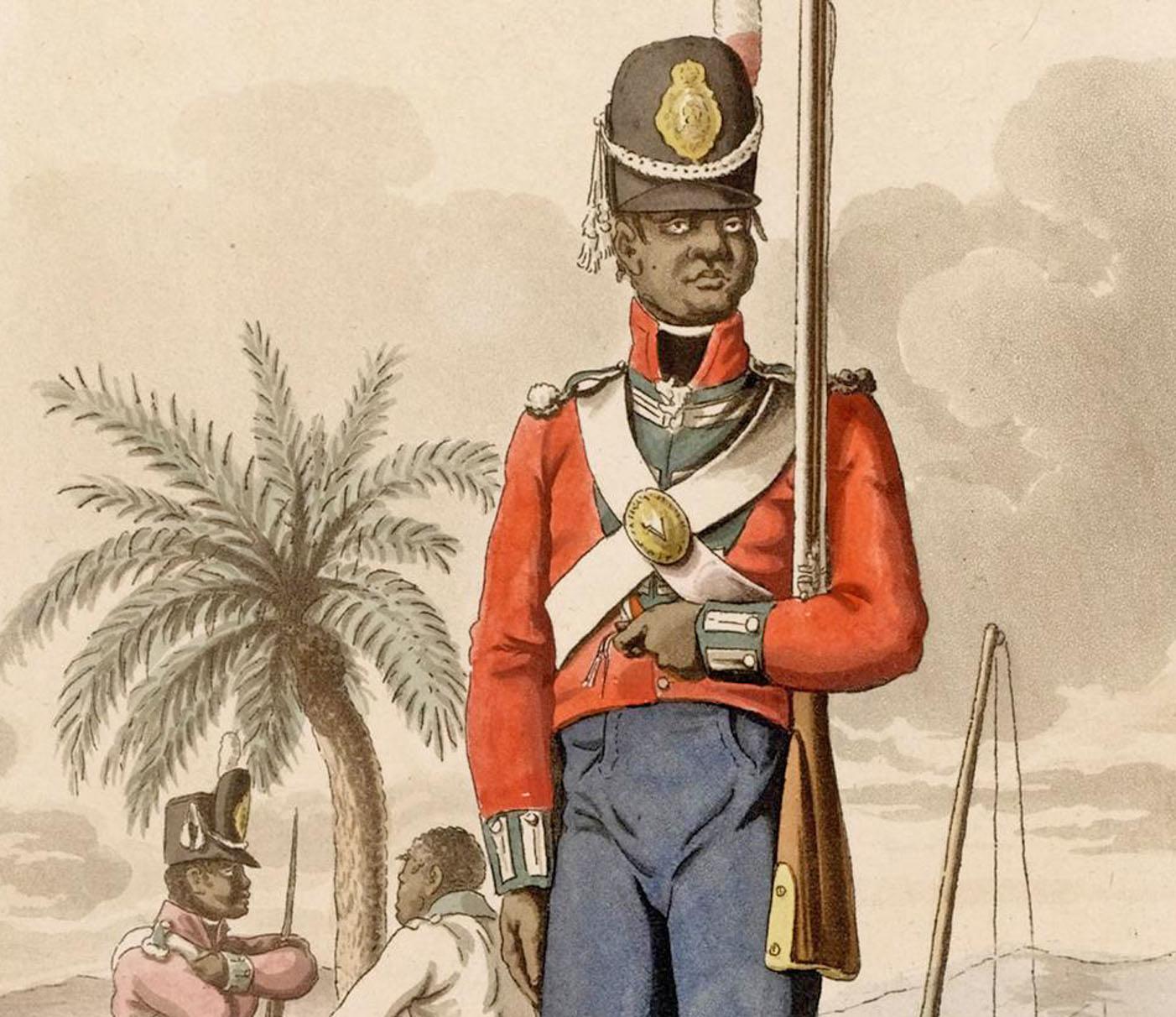
Some were British born, as Black people were being born in such ports at Liverpool at that time. Both before and after the Battle of Waterloo, amongst other regiments, Black individuals were in the 13th Light Dragoons, the 10th Hussars and the 88th Foot.
During the late 18th and 19th century, Britain’s maritime ambitions caused dockside communities of West African sailors to spring up in Liverpool.
These sailors were crews on merchant ships which Britain relied on to transport goods and people from colonised West Af-
West Africans and West Indians who had lived and worked in the country for many years and served in World War One were attacked by angry white mobs of unemployed sailors and servicemen. Black people bore the brunt of the blame for the violence of 1919 even though they did not initiate the violence and merely tried to defend themselves.
Liverpool, well known for its Black population, experienced the most ‘ferocious and sustained’ rioting in June 1919. Police arrested dozens of rioters.
White rioters killed Charles Wotten, a young Caribbean man. Liverpool’s rioting crowd reached up to 10,000. Out of fear for their safety, 700 ethnic minorities were temporarily removed from their homes and sought police protection.
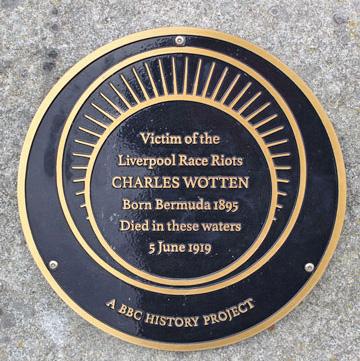
Black workers were fired during the riots and their homes and businesses damaged or set ablaze
by rioters. The government often did not reimburse victims for property damages and did not challenge the attitudes and violence of those who attacked them. Instead, the uprisings of 1919 led to government calls for legislation to repatriate Black people back to West Africa. Racism, post-war economic hardship, and the reclassification of Blacks and others along with the 1920 and 1925 immigration mandates, all made life difficult for Blacks particularly in seaport areas after the 1919 riots.
Despite these huge challenges and opposition, some 19th century Black people living in England achieved great success.
Born William Darby in Norwich, Pablo Fanque, whose father was African, rose from abject poverty to become an equestrian performer and owned one of Britain’s most successful circuses during the Victorian era. He is immortalised in the lyrics of The Beatles song Being for the Benefit of Mr Kite!”
Another famous Black Briton was William Davison, a conspir-
ator executed for his role in the Cato Street Conspiracy against Lord Liverpool’s government in 1820.
Nathaniel Wells, the son of a slave from St Kitts and a Welsh slave trader, became Wales’s first Black high sheriff in 1818.
Montaz Marché, a historian and researcher at the University of Birmingham, has uncovered over 100 Black women in London and the southeast in the 18th and 19th centuries, including Chichester, Bristol, Westminster, Middlesex and Southampton. Women held diverse roles in society, including as servants, property owners, wives, and traders.
Marché estimates that Black women would have numbered around 5,000 in the country at this time. Among them were Mary Prince, who became the first woman to present a petition to the Houses of Parliament in 1829.
time workers and servicemen in the British army, navy and air force. Recruits from the West Indies numbered in the several thousands. Almost 6,000 Caribbean people served in the Royal Air Force, with around 350 employed in munitions factories.
Around 700 lumberjacks from British Honduras (modern-day Belize) were employed in the forests in Scotland. Separately, 40,000 people from the Caribbean were recruited to work in the US during World War Two .
Over 370,000 Africans also fought for Britain. They came from West and East Africa and served in several locations in World War Two . Large numbers of troops from both East and West Africa served as part of the South East Asia Command fighting the Japanese.
ON THE FRONTLINE: Black soldiers during World War One
Some of these Caribbeans and Africans would have settled in Britain and contributed to the country’s substantial Black presence well before HMS Empire Windrush docked at Tilbury in 1948.
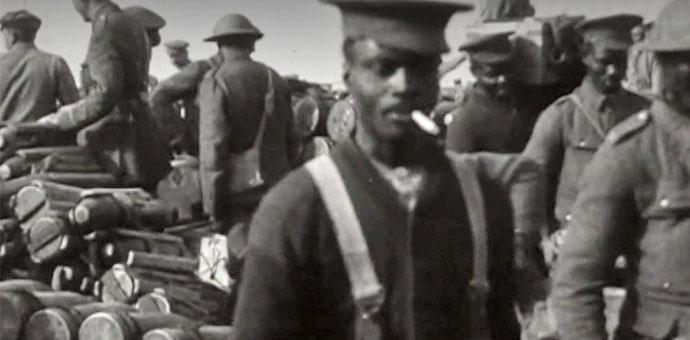
MAJOR CONCERN: Young Black people are the most likely group to be waiting more than a year for access to mental health support
EVERY YEAR since 1992, October 10 has been recognised as World Mental Health Day by The World Health Organisation.
This year’s theme, set by the World Federation for Mental Health, is ‘Mental health is a universal right.’
Yet, if ‘mental health is a universal right’ then why are young Black youth still being failed here?
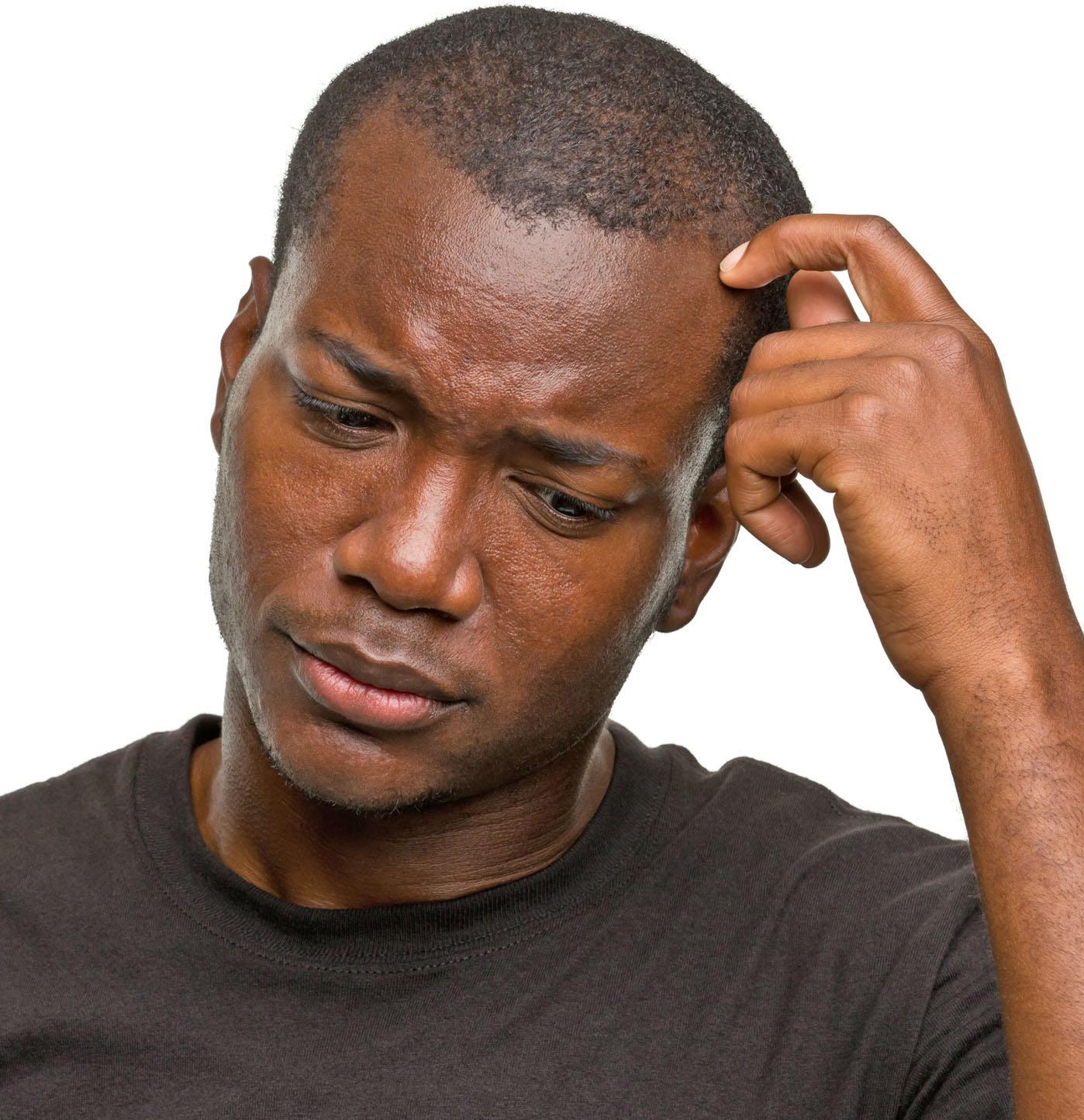
According to NHS figures a record 1.4m children and young people sought NHS help for mental health related issues, a 76 per cent rise since 2019, with the current cost of living crisis, education and the continuing impact of COVID-19 being cited as some of the main issues negatively impacting on young people’s mental health and wellbeing.
Further analysis of NHS Digital Data by Young Minds — a charitable organisation which advocates and fights for young people’s mental health — makes for stark reading.
In separate data collected by Young Minds, 52 per cent of young people said that their place of education negatively affects their mental health and 50 per cent of young Black people said that the police and law enforcement negatively impact on their mental health.
This revelation immediately brings to mind the case of Child Q — the 15-year-old Black
girl who in December 2020 was stripped searched whilst on her period by the police on school premises in Hackney on the suspicion teachers held of her carrying drugs which was to later be proved unfounded.
Not only was there a failure in safeguarding on the part of the school in question, but also racism as an influencing factor according to the review into the case.
According to the child’s maternal aunt, the traumatic event had turned her niece from a “happy go lucky girl” to a “timid recluse,” hardly speaking to her resulting in self-harm and with her now requiring therapy.
According to research carried out by Young Minds, young Black people are the most likely group to be waiting more than a year for access to mental health support, an indictment on mental health services and Government.
When it comes to looking to the Government for help there are understandably some apprehensions, with only seven per cent of young people believing the Government will make the right decisions for them and only 12 per cent of young people think the government takes young people’s mental health seriously.
A common rite of passage in African Caribbean homes passed from parents to children is the knowledge that we have
to work twice as hard in order to progress in life and we are told that this counts not only in the classroom but also in the place of work.
Having already taken on this extra bit of pressure from home to then in the case of many young Black boys in particular, experience repeated discrimination from teachers based on stereotypical views held of them, it’s little wonder that young Black people experience mental ill health at disproportionate levels in contrast to those of other racial backgrounds.

That’s why the championing and advocacy of young people’s mental health by charitable organisations such as Young Minds matter as they make it a point of importance in speaking truth to power and holding such to account as a means to bring about the changes needed to ensure the
fulfilment of mental health truly being a universal human right. Last month (September) Black Minds Matter UK — a charitable organisation set up during the height of the pandemic which provides Black individuals and families with free therapy by qualified and accredited Black therapists, held their first youth focused mental health project which included one-to-one therapy sessions, live guided mental health check
in, panel talk and roundtable discussions, breakout sessions and spoken word. The building of more such organisations would go some way in helping to alleviate the pressures often placed on our young people to conform to cultural pressures at home as well as those in the classroom which can in the long term prove detrimental to both their mental health and well-being.
All young people should have the right to a safe space in which they can freely express themselves on any issues which concern them and that those whom they trust and confide in listen without judgement, preconceived ideas, unconscious bias and stereotypes.
The recruitment of more Black teachers in our education system including those at senior leadership levels is highly recommended alongside unconscious bias training to all
educational professionals as an added measure of improvement in safeguarding policies and the teaching of our young Black students.
Wherever possible, on-site qualified school counsellors that young people can turn to for support could go some way in preventing a mental health crisis. Each of us can and must play our part in letting our young Black boys and girls know that their minds do matter and so too their voices. We can each be a part of the solution by offering a listening ear and positive praise when we see them doing well.
For more information and resources on how you can support young people’s mental health please visit: Young Minds www.youngminds.org.uk/ and Black Minds Matter UK www.blackmindsmatteruk.com/
If mental health is a universal human right, then why are Black youth still being failed?(photo: Getty Images)
We must let Black boys and girls know that their minds do matter
IT’S BLACK History Month, or perhaps more accurately, “Free Emotional Labour for Black People Month” where employees of colour are often expected to relive trauma and educate white colleagues on goodwill alone.
How are you celebrating? I’m digging into the Black British Voices (BBV) report.
e ndings, whilst in tune with my own past experiences and what I witness on a regular basis, are shocking in their scale. As a Black woman with career aspirations in a white, male-dominated industry — recruitment — I’ve experienced my share of discrimination.
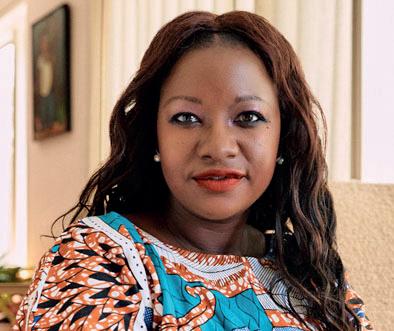
Some 88 per cent of BBV participants reported experiencing racial discrimination in the workplace. And ironically, the Diversity and Inclusion (D&I) pledges and policies that we’ve seen highly publicised over the last three years have amounted to little in the way of actual progress.
Survey participants suggested that initiatives such as workshops are exclusionary in themselves and do little in the way of improving working conditions for marginalised employees.
As a D&I professional, I saw this coming. Super cial and performative measures to address racism at work were never going to stick.
After the racial reckoning in the summer of 2020, we saw every company, big and small, race to make big declarations about their commitments to anti-racist workplaces. Like many of my peers of colour, I thought, I’ll believe it when I see it. And have we seen it?
As the Founder and CEO of a D&I services company, I see this tokenistic behaviour far too often. On exploratory calls with
new clients looking to recruit for a new role, we’ll often hear remarks such as “we just need to hire more Black people” or “we need a diverse shortlist.”
What this often translates into is: we need to tick the diversity box so we’re being seen as doing the right or ‘woke’ thing. You can smell the genuine or performative companies a mile o , and we will always challenge the latter.
In the BBV report, multiple participants cited an assumption in the workplace that Black employees “cannot deal with responsibility” or “lack leadership skills.”

Our presence in work environments can be seen as just a tick box exercise, when in reality we know we’ve worked twice as hard to get our foot in the door. I see time and time again the misconception from employers that to hire employees from a minority ethnic background means lowering the standard of candidates.
In truth, Black talent represents a hugely underutilised segment of the UK labour market. In many cases, merely hiring more Black people meant bringing individuals into hostile and toxic work environments where they were subject to further discrimination.
e report found that a massive 98 per cent of respondents said they ‘always’, ‘often’, or ‘sometimes’ had ‘to compromise who they are and how they express themselves to t in at work’.
I remember this feeling all too well. In periods of my career, I’ve been the only woman of colour in a team of close to 100. I faced ‘banter’, microaggressions, and straight up racism. I see my experiences re ected closely in the accounts from the BBV. Lit-
tle seems to have changed in the decades since I was subject to the same abuse, except perhaps the more covert ways of disguising it.
Perhaps there is more diversity in hiring, but for genuine longterm change this needs to be carried through to appointment, retention, and promotion.
Poor workplace inclusion is causing a self-ful lling prophecy where ethnic minority candidates are deemed to be unreliable hires, as they are recruited into a toxic work environment which, of course, they do not want to remain in for long. Often, candidates are being deceived by organisation with claims of an ‘inclusive recruitment process’ before being on-boarded and nding nothing inclusive about the workplace whatsoever.
Progression for Black employees is notoriously sluggish, compared to their white counterparts. Moreover, BBV noted that where progression does occur, it is viewed suspiciously by others as part of inclusion initiatives, and Black employees feel the
need to justify their right to be in the room.
We can often be the most quali ed candidate for a promotion but somehow still
CONSTANT STRUGGLE: The report found a massive 98 per cent of respondents said they ‘always’, ‘often’, or ‘sometimes’ had ‘to compromise who they are (photo: Getty Images)
employer, identify the red ags when they come, and ask the tough questions around D&I.
How many people of colour have been promoted in the last year? What is the diversity of their leadership team? People, in my experience, are more empowered to speak up when something doesn’t feel right now.
who are willing to share their authentic experiences and bring in external experts and auditors.
looked over. I was repeatedly told it just ‘wasn’t my time’ to move up in an organisation, only to have to train the underquali ed colleague in how to do the job. It is implied we should be grateful for what we are given.
Now I run my own Diversity and Inclusion company, and advise other companies on what NOT to do, so their marginalised employees don’t end up feeling as I did.
I still have hope for the future. Employees now feel validated to take back the power from the
ough I come up against prospective clients who are clearly being performative in their D&I work, most of the people I talk with today do have a genuine desire to be better, they just need a guiding hand and the right approach.
is is where we come in, supporting organisations who are genuinely seeking positive change and willing to put in the hard work to create long-term impact for their employees.
Mandatory D&I training is not the answer however. is becomes a tick box exercise very quickly unless you bring everyone along on the journey and really work at changing hearts and minds. Consult with colleagues
Crucially, put your money where your mouth is. Would you ask a white CEO to deliver a keynote speech on their experiences without compensation? en don’t ask Black leaders to perform this same free labour, on top of reliving trauma.
To organisations who are genuinely looking to become more inclusive, I say, be realistic and transparent. Set achievable goals for the shortterm and long-term, be honest about where you’re at with your D&I journey and know that there should never be an endpoint.
Equality, Diversity and Inclusion at work is a continual journey of self-re ection and improvement; and you cannot just stop at race or gender. Sexual orientation, disability, gender identity, religion — whatever the characteristic, we all deserve to be our authentic selves at work, to succeed and thrive.
Little seems to have changed over decades
BRITAIN’S BLACK community has a keen interest in UK politics despite feeling disconnected from Britain, our new Black British Voices survey shows.
A total of 73 per cent said they were interested in UK politics, but an even higher proportion, 76 per cent, said the government was not addressing issues impacting Black people.
e contrast between the community’s interest in politics and politicians’ failure to deliver on race equality was not contradictory, according to Lord Simon Woolley, a founder and director of Operation Black Vote for 25 years.
Lord Woolley said the poll results showed Black communities were “profoundly interested in how politics a ects their lives” but there remained deep distrust of the political process, which manifested in lower voter registration rates.
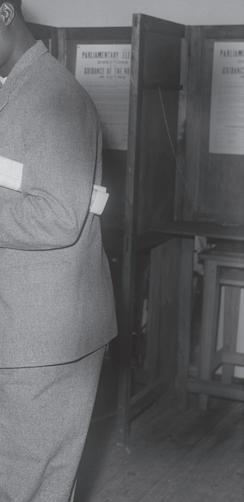
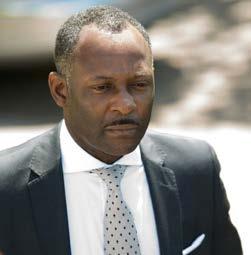
He said: “ ese ndings are an absolute wake up call for the political class in this country. Democracy is undermined when people do not have faith in politics.
“ e community is political with a small ‘p’, but in the same breath not trusting the political processes.

“In my work over three decades I’ve seen that too many don’t trust the political ecosystem to take action or tackle issues that a ect the Black community, so there is a disjunct.
“In a healthy democracy we’ve got to deliver equality and justice.”
Lord Woolley added that there was a greater onus on Labour to convince the Black community to register and vote, given the historical voting
Black support for Labour at the 2019 general election was 67 per cent, according to the British Election Study.
While this fell
six points from 2017, it was still over twice the rate of white voters (29 per cent).
at means being Black is the greatest determinant of how a person votes, and theoretically if only Black people voted every MP in the country would be Labour.
e new Black British Voices (BBV) survey, conducted by e Voice and Cambridge University, found that 94 per cent of the 8,870 Black Brits who responded to the politics questions believe ‘de nitely’ or ‘somewhat’ that the government is failing to address Black people’s priorities.
at is certain to mean tackling systemic racism. While the former Conservative prime minister eresa May set up a racial disparity unit that published a slew of statistics about how bad things were, both her government and subsequent prime ministers have failed to put in place policies to address the disparities, critics say.
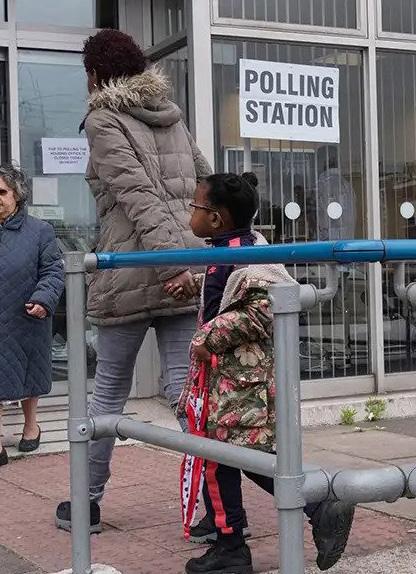
In 2021, Boris Johnson’s government published the ‘Sewell Report’, led by now Lord Tony Sewell, which was widely condemned after it sought to minimise the existence of institutional racism. Historian David Olusoga branded it “poisonously patronising and historically illiterate.”
Labour’s equalities shadow minister Anneliese Dodds has pledged to tackle “systemic racism” in government, but the party has yet to reveal how they would do that.
Labour commissioned Baroness Doreen Lawrence to lead a race equality policy group to esh out the promise by Sir Keir Starmer to introduce a ‘Race Equality Act’, but it is yet to report.
e new BBV report noted: “A strong message is that [interview participants] perceive government commissioned reports… as inauthentic and unreliable, and as contributing to the failure to more
We found that one in every four Black voters lives in Conservative-held marginals. Overall, there are 21 battleground seats where the Black electorate is larger than the majority of the sitting Tory MP, and a further 17 such seats where Black votes could still make a real di erence.
Almost three quarters (74) of the top 100 seats where the Black community live, can be swung one way or the other. In London, 35 of the 73 constituencies have a black population larger than the majority of the sitting MP.
In the towns of Milton Keynes, Luton, Wolverhampton and Coventry — which all have two MPs each — the Black vote towers over the MP’s majority in every single seat.
e ndings make it even more crucial that the Black community is registered to vote.
However, a Joseph Rowntree Reform Trust poll in 2021 found that almost 20 percent of Black people did not know if they were on the electoral roll.
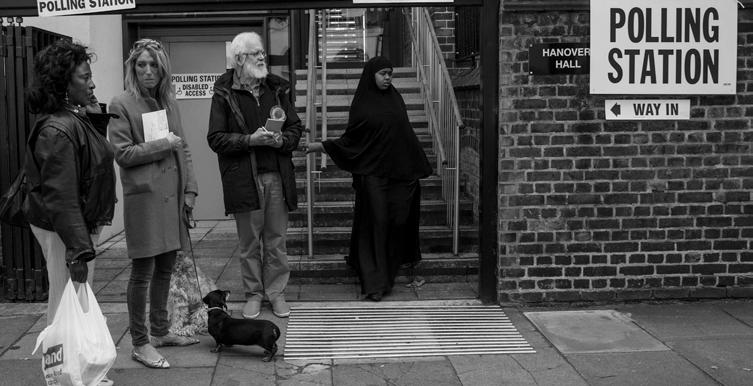
substantially address the deep social, political and economic roots of racial strati cation.”


e report quoted one of the 40 in-depth interviews as part of the study: “ e government is saying we can’t even talk about historical issues that had an impact on us as Black people.
“But one of the things I’m delighted about is this new generation of youngsters coming through. ey’re more brave and bold than what we were.”
Analysis of election data by e Voice in February found that the relative power of the Black vote had increased because there were more marginal seats where the African and Caribbean could make the di erence if they all voted one way.
Black voters were four times more likely to be turned away from a polling station at the May local elections as a consequence of the controversial new voter ID law. Polling by Omnisis found that over half (53 percent) of all would-be voters who were refused a ballot were non-white, despite making up 18 percent of the population.
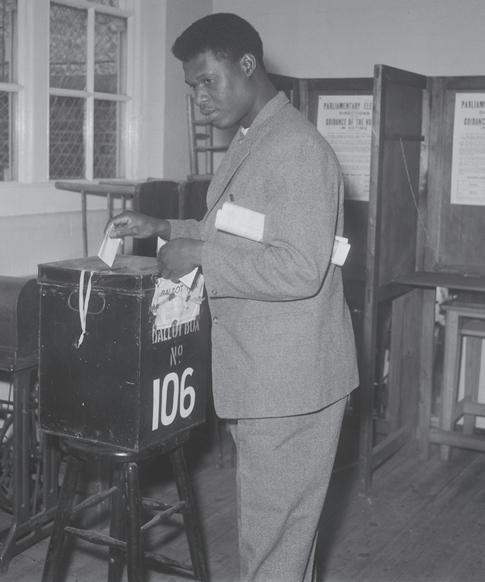
e ‘voter suppression’ law makes it even more important to have a successful voter registration drive in Black communities, campaigners believe.
Dr Floyd Millen, a political scientist and management consultant, said that Black people were paying attention to politics because the issues often mattered more. “ e issues we are experiencing are similar to the rest of the population but their e ects are worse. We don’t vote as a bloc so the power [of the Black vote] is dissipated.”
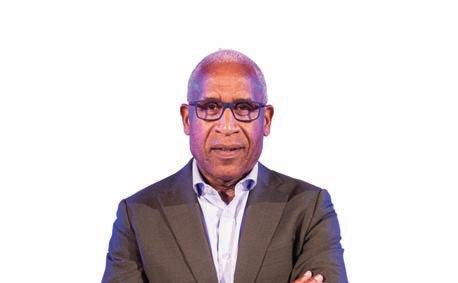
Do you believe the UK government is taking sufficient action with regards to issues faced by Black people?
BLACK consumers are overwhelmingly choosing to support companies whose products and services re ect their cultural heritage and dedication to race equality.
at’s according to e Voice’s Black British Voices survey which questioned over 11,000 Black Britons about their attitudes to business and money.

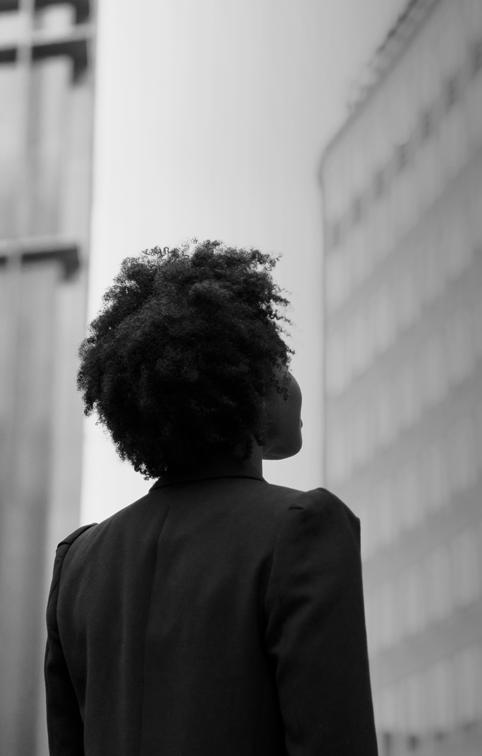
It found enthusiasm for support of Black-owned businesses is high: 94 per cent of respondents answered that they ‘Always’ (25 per cent), ‘Often’ (36 per cent) or ‘Sometimes’ (32 per cent) ‘make an extra e ort to support businesses that are Black owned’. Fewer than 6 per cent claimed either ‘rarely’ (4 per cent) or ‘Never’ (1 per cent) to do so.
African Caribbean consumers are typically overlooked by major UK businesses, even though they make up a sizable portion of the market for a wide range of products services in elds like fashion, technology, hair and beauty and food.



And many have been slow to adjust their product creation and marketing e orts to re ect the growing size and cultural in uence of this group of consumers.
25
However, e Voice’s survey has revealed an important new trend.
Black British consumers, with an estimated £1 billion in disposable income, are becoming increasingly vocal about prioritising goods and services produced by Black-owned brands which re ect their cultural heritage.

e practice of ‘buying Black’ is not as well established in the UK as it is in the United States. However, as the BBV survey seems to indicate, this could be quickly changing.
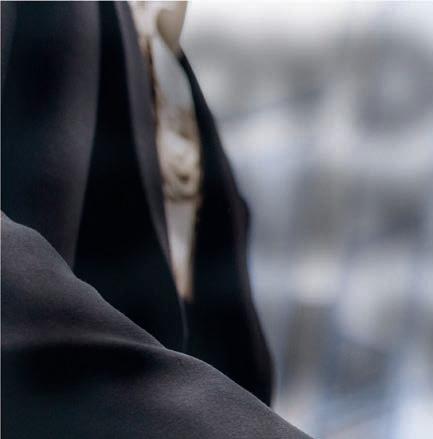
A number of observers have attributed this change to the global
protests that followed the death of George Floyd in May 2020.
Commenting on the BBV survey ndings, Esenam Agubretu, Parliamentary and Regulatory A airs Manager at the London Chamber of Commerce and Industry (LCCI), says: “Since 2020, there’s been a signi cant shift in the Black community’s response to issues around racial inequality. A big part of this response is that many are now choosing to buy from Black-owned enterprises as a way of directly addressing inequality.”
According to Agubretu, technology has played a key
36% Often
Never

role in the Buy Black movement continuing to gain momentum long after the protests that followed Floyd’s death hit global headlines.
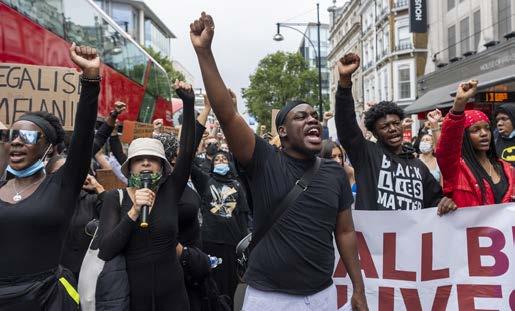
“Issues that were previously discussed within Black communities have now been ampli ed to a wider audience, thanks to the power of the Internet and social media. And because of the Internet, Black-owned enterprises now receive more support from the community because of the rise of online marketplaces.”
One initiative which has highlighted the way in which

% of respondents said they ‘Always’ shop with Black owned businesses
94% of Black Brits make extra effort to support Black-owned business, our survey finds.
technology has underpinned the growing activism of Black consumers is Black Pound Day.

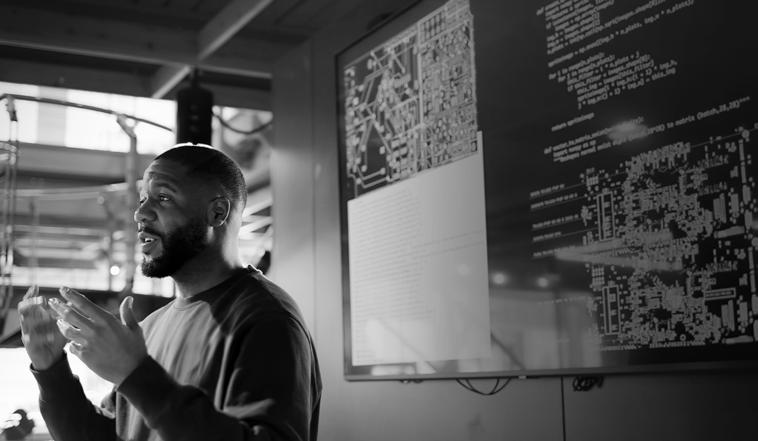

After the global outcry over Floyd’s murder, its creator, So Solid Crew rapper Swiss said he wanted to create a festival that would honour black-owned companies and provide the community a nancial and emotional boost.
“It’s a great time to be a Black business owner because of the support from the ‘Buy Black’ movement” he says. “People can see and understand instantly the impact they have as conscious consumers on social media. ey can see the comments, the likes, they can post videos about the products they buy. It’s a national movement on social media.”
Hundreds of black business owners have revealed on social media that they have experienced their biggest growth in sales following the initiative’s launch three years ago.
Speaking about the impact on her business of the inaugural event in June 2020, Natalie Dinning who runs London-based company e Jerk Kitchen, incorporating sauce brand Lesley’s Sauces, told e Voice: “ e night before, I took the time to research other Black businesses and I was amazed at how many there are out there.
“ en, at quarter to ve in the morning of Black Pound Day, we got our rst order. I was amazed and to be honest, that day was a whirlwind for me. I was either answering a message on social media or replying to someone reposting us which was amazing. at day we sold our biggestever number of sauces. Even
on the part of nancial institutions.
“ e typical UK Black entrepreneur earns around £26,000 annually, often struggling to make a pro t or even reach minimum wage after expenses” he says. “ is often means a lack of assets. If you don’t have assets, banks see you as a greater risk and consequently won’t lend.
“Also, Black business owners face barriers in forming the kinds of relationships with each other that could help them leverage funding and business opportunities. So, there are a few things that explain why we struggle to get access to nance.”
though we have a lot of dedicated customers it’s been hard to turn that into tra c to our website. It was incredible.”

It would seem as though Black-owned businesses are set to thrive as consumer demand grows. e success of events like the Black-owned Business Expo, and the Birmingham Black Business Show underscores the ndings of research from the Federation of Small Businesses which show that these enterprises contribute an estimated £25 billion to the UK economy.
Black-owned businesses seem poised to ourish given the rising consumer demand and their economic prominence – research from the Federation of Small Businesses show that these enterprises contribute an estimated £25 billion, to the UK economy.
But despite high demand they face signi cant hurdles. Challenges include accessing capital, the ability to scale a business, building brand awareness, and the lack of access to networks that help secure signi cant contracts.
When asked whether ’Black entrepreneurs are taken seriously by investors and nancial institutions’ three-quarters of the respondents (74 per cent) said that they either ’de nitely’ (31 per cent) or ’somewhat’ (43 per cent) were not.
And 41 per cent of respondents felt Black-led businesses face disproportionate di culty in securing investment from nancial institutions or accessing other sources of funding.
It’s a view that one entrepreneur, Kameese Davis, founder and CEO
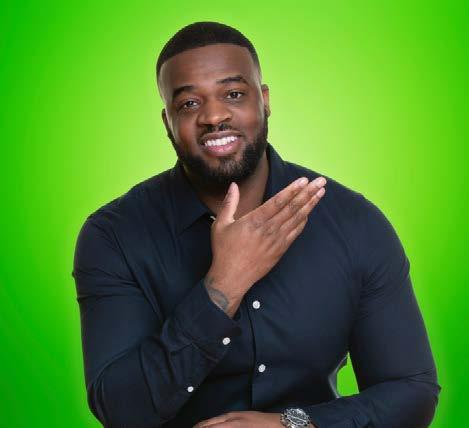
and of Nylah’s Naturals, agrees with. Davis, who won investment on a recent edition of Dragon’s Den, said: “Historically white people get working capital to prove their concept. Black people have to prove their concept to get working capital so we’re already at a disadvantage.”
“A huge barrier is that banks often don’t understand our markets and our business models. Unconscious biases do come into play and I think it would be naive of us not to think that’s the case.”

A 2021 Lloyds-commissioned report revealed that many Black entrepreneurs lack trust in UK banks for nancing, impacting their growth. As a result, they prefer to rely on self-funding or family and friends.
Dr Carlton Brown, author of the Black Entrepreneur Report, published in 2021, said he is not surprised by the BBV report ndings. However, he believes that Black entrepreneurs’ lack of access to nance is not just down to bias
However despite the challenges of running a business, selfemployment has surged among Black Britons in the past decade. Over 50 per cent of BBV respondents view entrepreneurship as a path to escaping workplace discrimination and career limitations.
Responding to this nding, James Watkins, the Head of Policy at LCCI, believes new Black entrepreneurs can look forward to a bright future because of the campaigning work that his and other organisations are doing on public procurement, a crucial area for small and medium Black-owned enterprises, as it o ers access to stable government contracts that provide a steady revenue stream, enhance credibility, and foster business growth.
“ rough our procurement campaign with the Greater London Authority, there’s been a signi cant shift. e Mayor of London Sadiq Khan has now pledged to monitor contracts awarded to ethnic minority-owned businesses, marking a major step forward in diversifying procurement opportunities across various entities.
“Understandably, Voice readers may be sceptical but these tangible changes mean that money is being directed towards Black-owned businesses.
“Signi cant progress is occurring in London and some at the national government level, albeit not as much as we’d like but they are steps forward.
“Our next campaign will focus on improving access to nance. MPs from all parties acknowledge the nancial sector’s potential to do more and we’re challenging them to take action in the coming year.”
BLACK businesses in the UK have made significant progress since the 1980s, when barriers such as acquiring good premises, a skilled workforce, access to capital, and mainstream markets were prevalent. However, these challenges persist, and the issue of race still
IN recent years, Lloyds Bank has developed a number of initiatives to help it better engage with Black entrepreneurs.
The Voice spoke to Khalia Ismain — Black Entrepreneurs Manager, Lloyds Banking Group, and Mahari Hay — Co-Chair of the BOLD Network and Director, Solution Development, Lending, Trade and Work Capital, Lloyds Banking Group to find out more.
What were some of the factors that led Lloyds to start looking into the challenges Black entrepreneurs face?
Khalia Ismain (KI): In response to the Black Lives Matter Movement and the challenges brought about by the pandemic, Lloyds Bank launched the Race Action Plan in July 2020. This plan was specifically developed to address the unique challenges faced by Black colleagues and customers. Expanding on this commitment, Lloyds Bank partnered with the Black Business Network and sponsored the Black, British. In Business & Proud report). This guides the bank’s e orts
to create a more inclusive and equitable business landscape, ensuring that their actions align with the specific needs of Black business owners and provide them with the opportunities to thrive.
Could you provide an overview of these initiatives and how they are specifically tailored to meet the needs of Black-owned businesses?
MH: Building trust with Black business owners is crucial, according to our research, less than half (43%) of Britain’s Black business owners trust banks. In 2022, respondents identified persistent discrimination as the biggest obstacle between them and financial institutions. It’s understandable that many Black entrepreneurs lack trust in banks and seek financial support elsewhere – usually from friends and family. Although progress has been made through our Race Action Plan, there is still work to be done. Over the next two years, we will continue our e orts to address the remaining challenges and promote diversity and inclusivity within the organisation.
a ects entrepreneurship. Access to finance remains a concern despite the presence of numerous financial products and intermediaries.
Nonetheless, there is optimism as the Black population grows. More Black individuals are considering entrepreneurship as a career
option and supporting Black-owned businesses.
Some are entering business ventures after gaining capital from years of work. Although access to capital remains an issue, innovative Black entrepreneurs are partnering with others to create successful
businesses, challenging stereotypes.Support initiatives like the Black Equity Organisation F100 Growth Fund o er financial backing, pitching assistance, mentorship, and investment access.
Yet, a crucial question remains: will Black businesses achieve equal
access to networks and markets?
As the Black business community continues to grow and succeed, there is hope for a more equitable future.
Success stories inspire others, and with ongoing support, Black entrepreneurs can navigate the
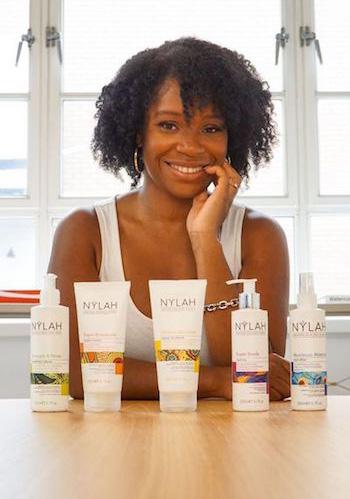
challenging landscape of starting and sustaining businesses while striving for equal opportunities in networks and markets.
Ade Sawyerr, is a communityfocused management consultant, activist and social commentator. He is the founder of Equinox Consulting

Poll could be evidence of a post-George Floyd awakening among Black people of faith, experts say.
By Lester HollowayRACE IS more important than religion for the majority of Black Britons, our new study has found.
e nding that 51 per cent of those polled picked the identity as a Black person over their faith will come as a surprise to some religious leaders who preach that their identities as children of God should come rst.
e Black British Voices (BBV)
survey, the largest study into social attitudes in the UK’s Black community, also found more respondents saying they were ‘spiritual’ than ‘religious.’
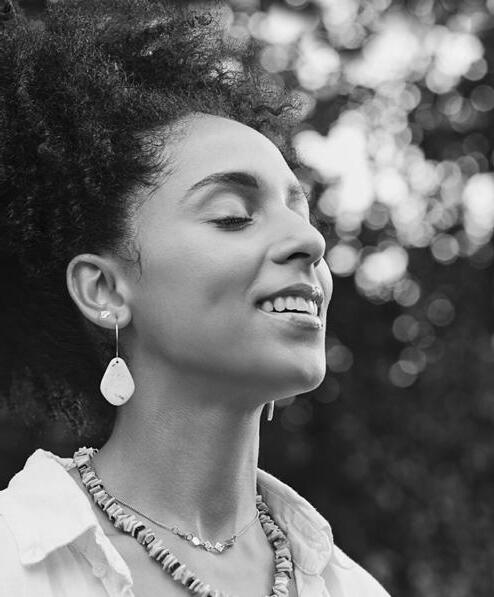
at may be an indication that ‘Black consciousness’ emphasises the spiritual connection with the earth and ancestors, and the belief in a ‘higher power’ is not always limited to the God of a particular faith or denomination.

e widespread belief within Black communities that we are a more ‘spiritual people’ is underscored by rising attendance in the expanding evangelical churches, and increasing numbers converting to Islam.

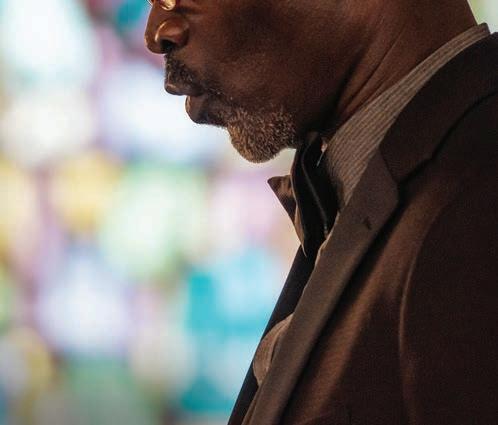
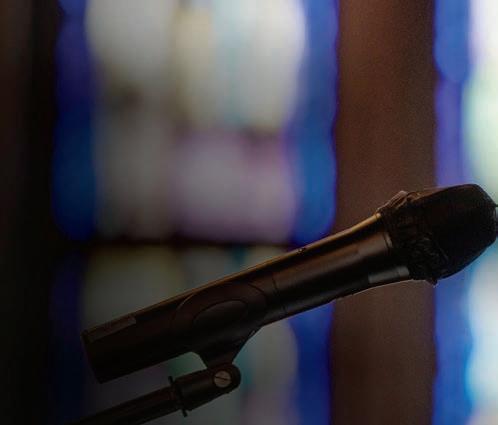
One interviewee told the researchers: “Honestly, I would say my race because people when they look at me see a Black man before they see a Christian.”
Another said: “I can’t turn o my race. Whereas I can go a day without talking about sort of God publicly but I can feel my Blackness when I enter a room sometimes.”
e ‘Windrush’ generation from the Caribbean held their faith close to their hearts, and the growing African community, which now makes up the majority of the British Black community, are known to often have strong faith.

Of the 8,981 Black Brits who answered the questions on religion, we found people were seven times more likely to say they were religious and/or spiritual (84 per cent) than not.
Pentecostalism and Adventist. A minority identi ed themselves as agnostic, atheist or humanist. Islam and Rastafarianism provided “more supportive spaces for race and social justice issues”, some participants told us. ere was also criticism of religious intolerance within some Christian denominations towards LGBTQ+ people.
One interviewee told us: “I used to go church when I was young. But I kind of fell o any religion. I’m a spiritualist. So I take bits out of each book and I just believe and do me and do good. Because all religions they all talk about love thy neighbour. As long as I have that in my heart and I live by morals, I don’t really need religion.”
Marcia Dixon MBE of Keep the Faith magazine, and who wrote
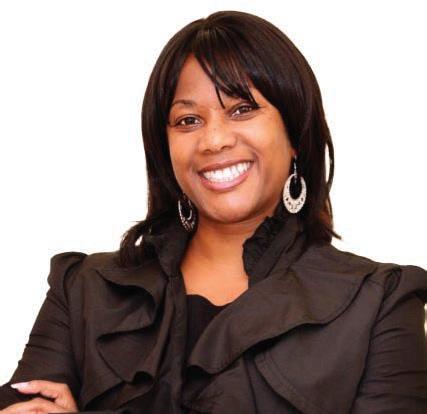
the ‘Soul Stirrings’ column in e Voice for many years, said the BBV poll showed a growing “realisation that race can have an impact on how we interpret our faith.”
She added: “ is relates to our experience of God and in the wider world, and even in church.
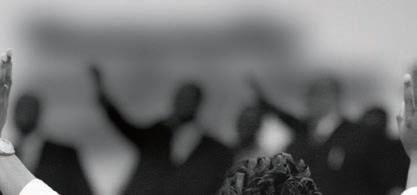

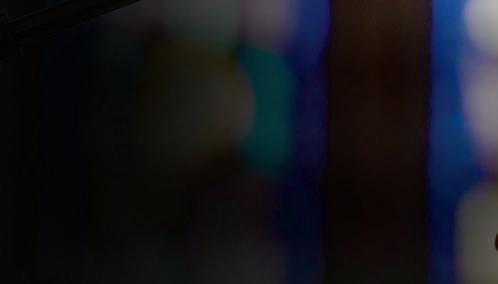
picked ‘race’ over ‘religion’, saying that this ecinter-


eologian Dr Robert Beckford welcomed the ndings that the majority of those surveyed picked ‘race’ over ‘reli gion’, saying that this was likely not a re ec tion of declined inter est in organised religion but instead evidence of a rejection of colonial mindsets.
He said: “ e fact
that over half did not con ate faith with identity is really positive. Historical European Christianity has always sought to separate the two [race and faith] so that people [of faith] see themselves as neutral on the matter of racism.
the two [race and faith] so genera
“My parents’ generation were brought up in the church to see them as ‘Christianrst’ but recognising your Black identity does not conict with your
faith. e survey is evidence of a conscientisation of Black Christians post George Floyd.”
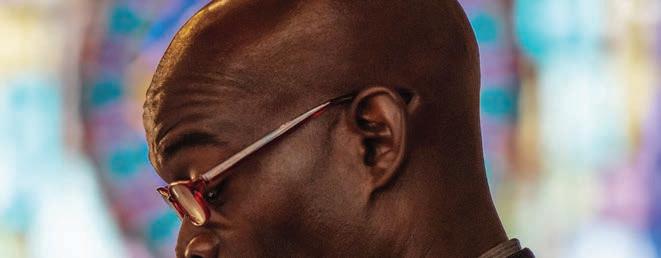
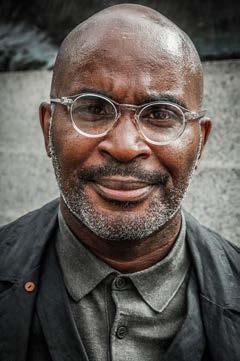
Dr Beckford added the question of picking between spirituality and religion was a “false dichotomy” because the African sense of faith was a “rich tapestry” bound up in our connection to the earth, which made faith more spiritual than religious. But that did not make people who chose spirituality any less religious.
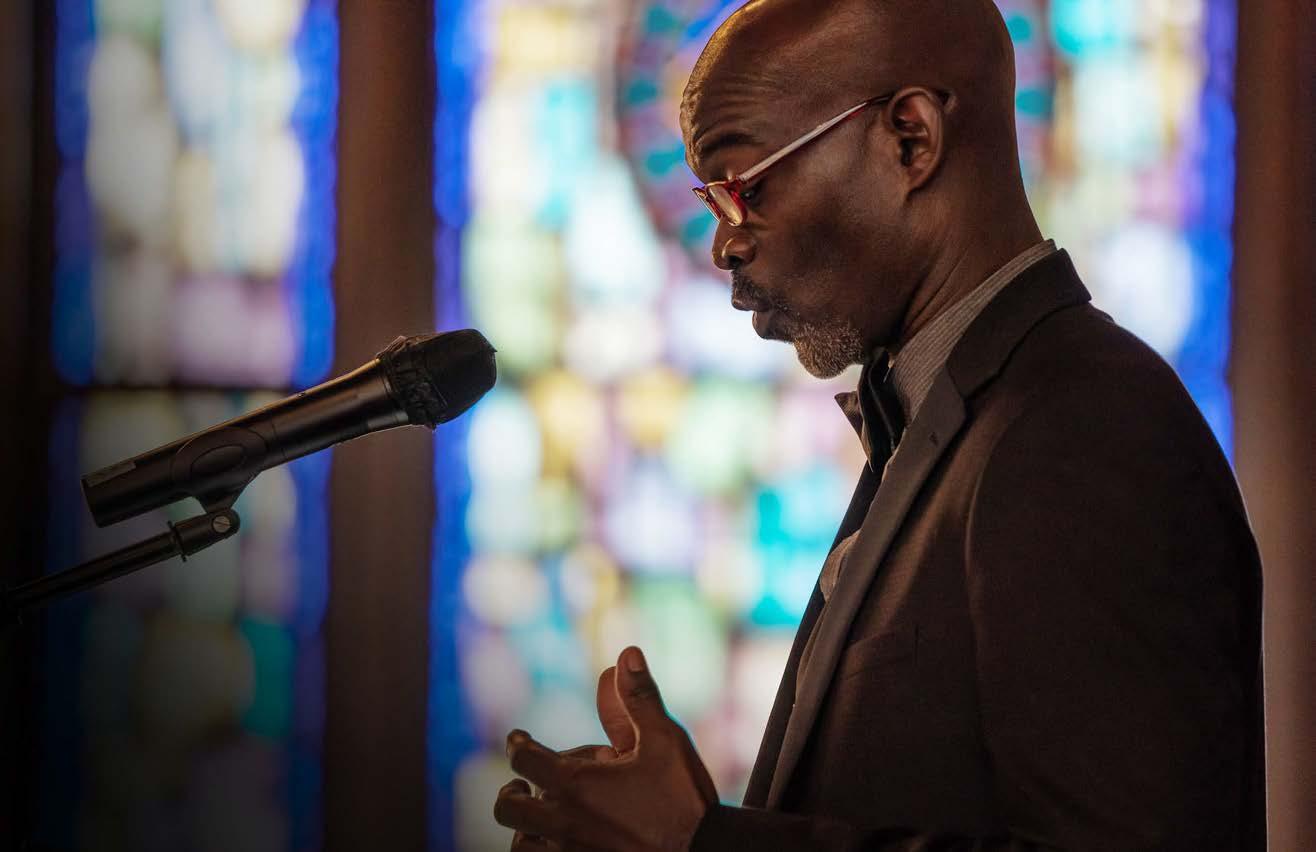
Christianity was the most popular faith practised by BBV participants, including Catholicism,
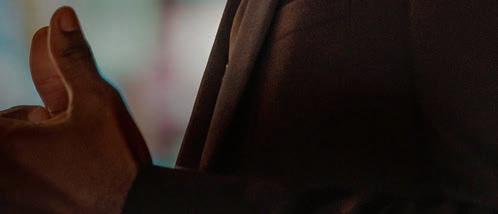
“It is no surprise that people responded describing themselves in racial terms rather than religious terms. I would describe myself as a Black Christian woman because my race does in uence how I interpret the Scripture.”
She said it was common to hear testimonies in church which related to experiencing racism in society.
On the question of spirituality or religion, Dixon added that organised religion can be associated with “rigidity” whereas spirituality speaks more to an individuals’ relationship with God.
“What is more important to your sense of identityrace or religion?”
“Do you consider yourself to be religious or spiritual?”Dr Robert Beckford
“The fact that over half did not con te it with identity is really positive.”
e l i n
Dr Robert Beckford
AGAINST Black gay, lesbian and trans people has decreased, with the the majority of Britain’s Black community believe, according to our new Black British Voices survey.
Fifty-six per cent of 9,272 Black Brits who answered the question say acceptance of the Black LGBTQ+ community is de nitely or somewhat better than it was a decade ago.
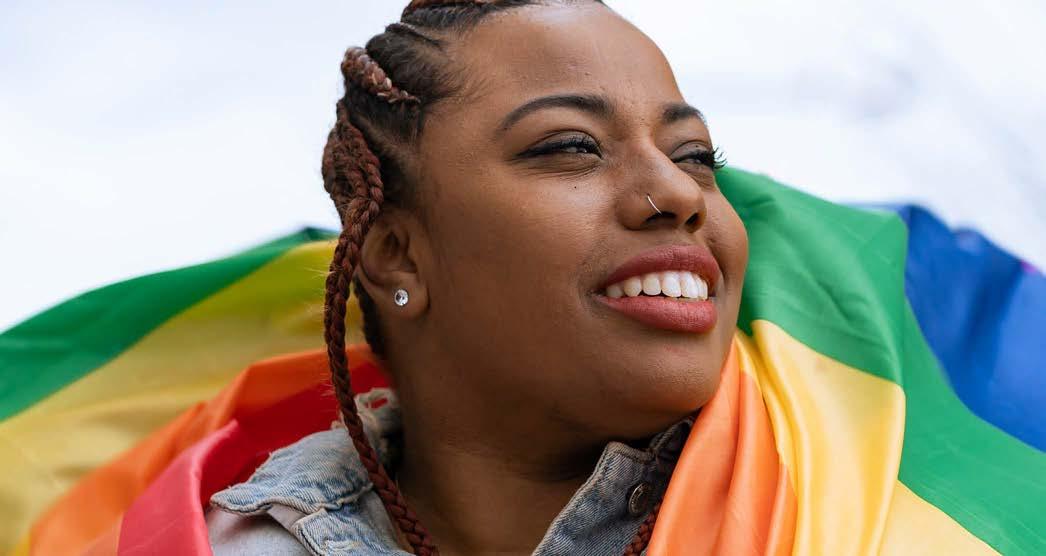
But testimony in interviews carried out as part of the Black British Voices (BBV) study — by e Voice and Cambridge University — found harrowing examples of homophobia.
One Nigerian participant said he “felt alone as a gay Black man”, while another described being excommunicated from their church.
By Leah MahonAn interviewee said they felt “scared and isolated” in white gay spaces, while another commented: “I don’t think that the LGBTQ community is even for Black people.”
e lives of Black LGBTQ+ people have long been a forgotten chapter of the Black British story, facing multiple discrimination and being dubbed “double-trouble”.
e BBV study reveals that a disappointing 84 per cent of respondents agree that Black LGBTQ+ people continue to experience discrimination in

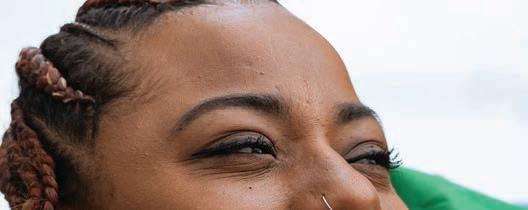
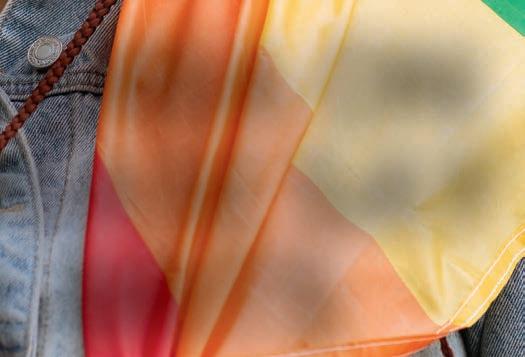

Black communities. Just three percent disagreed with this.
Marc ompson, an LGBTQ+ activist, told e Voice that response was “disappointing” and though acceptance had improved it was still “not good enough”.
“ e real concern for me is what does that mean for individuals in their day to day experience of


living their lives and being their true, authentic selves.
“ ere’s talk particularly in the workplace about people being unable to present themselves at work or having to hold back on who they are, and I think that can be applied to Black queer people who are unable to be themselves in a variety of places,” he says.
ompson believes that some of the anti-LGBT sentiment is linked to the relationship that Black communites have with religion, spirituality and the church being a focal point of their lives.
For many African and Caribbean communities, as they were refused fellowship in white churches, the Black church became a cornerstone — even at times to the detriment of others.
One BBV participant recalls when he discovered a verse in the Bible from the book of Leviticus describing a man having sex with another man as an “abomination”.
“At least for a good, almost 15 years of my life, it bothered me a lot. It bothered me that this is so true about my sexuality. But as someone who’s Black and gay, and has reconciled my faith and sexuality.
“I just think that, you know, a literal interpretation or understanding of those scriptures is dangerous for young people to read or see,” they said.
is dangerous for young people to Kim Taum, a transgender activist and performer, told e Voice when LGBTQ+ people are struggling with acceptance,
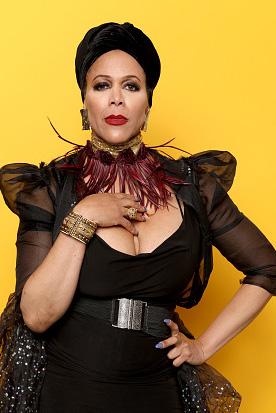
activist and performer, told e Voice are struggling with acceptance, it’s about nding spaces that let them in instead.
“Growing up in a Christian household, in a town that had
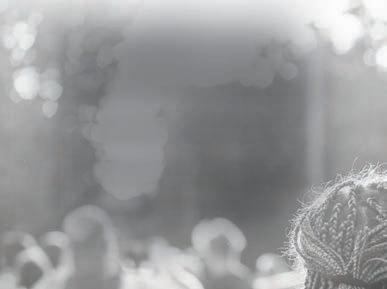
household, in a town that had a church on every corner, being around predominantly Black people, it was very di cult
history. But more than 30 years later, where are we today?
ompson says e Voice and the Black community has indeed improved. In 2021, this newspaper ran a series celebrating Black LGBTQ love and we regularly have LGBTQ+ guest columnists.
“ e Voice was very clear about including a Black queer voice in that narrative. ere’s always room for improvement. I don’t think e Voice any longer puts out negative stories about Black queer people,” he says.
One aspect of LGBTQ+ that gets lost in the Black British story is that of transgender lives. Kim Tatum, a proud trans activist, says she still doesn’t feel 100 percent safe in Black or white spaces, adding that a lack of understanding perpetuates transphobic hate.
“People are not really educated [about transgender people]. We don’t know each other as a society. Some people don’t step out of the box and, and talk to someone from a di erent religion, a di erent race or a di erent background and really get to know each other,” she says.
ese themes ran deeply through the research with many Black LGBTQ+ identifying with feelings of fear, loneliness and rejection due to prejudice from society, the church and even other LGBTQ+ spaces.
when I was a kid,” she recalls. “Now that I’m older, I mean, things have gotten slightly better. But I also think it really depends on where you socialise and who you socialise with.”
ompson believes that toxic views on masculinity fuels homophobia in the Black community, which he believes stems from slavery and beyond.
For the Black gay community, this form of discrimination occurred when Justin Fashanu became the rst gay professional footballer to come out, in a front page splash with e Sun in 1990.
e Voice shamefully printed a series of homophobic articles aimed at Fashanu at the time, taking the side of his brother and fellow footballer John, who e ectively declared him an outcast for being homosexual. Our paper issued a weak ‘apology’. Eight years later, Justin was found dead in a garage after taking his own life.
Our new study found that 59 per cent of those surveyed felt that Black LGBTQ+ people faced additional layers of discrimination, because of their sexual orientation in conjunction with their race. e report states that LGBTQ+ culture is “predominantly white and contains many of the same forms of anti-Black racism as dominant British culture”.
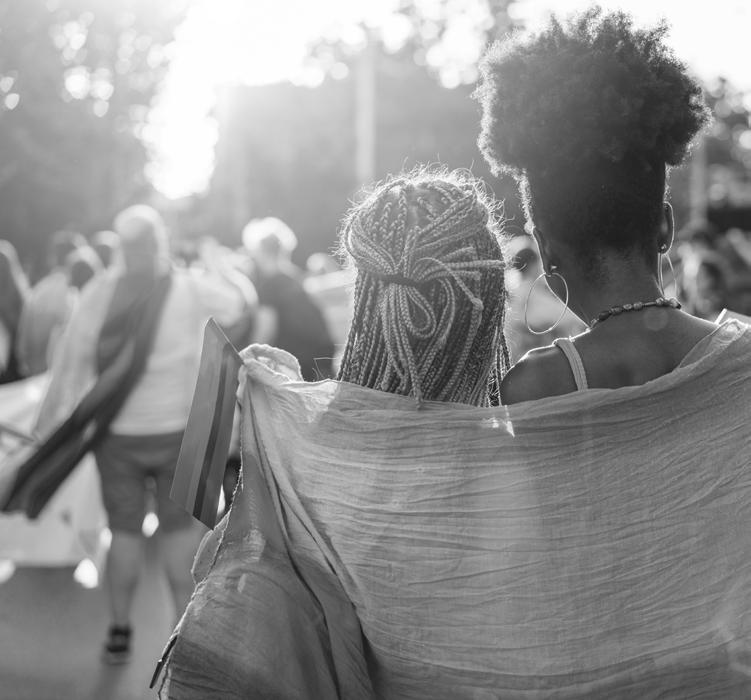
Phyllis-Opoku Gyimah, also known as Lady Phyll, is the cofounder of UK Black Pride.

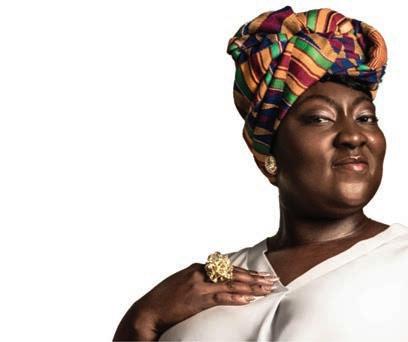
For a Black newspaper born out of struggle and injustice, this episode is remembered as a key moment in
For a Black born out of gay Black British
She tells e Voice: “As a Black woman as a whole, we know that Black women are disproportionately impacted by so many di erent things.
disproportionately impacted by so many di erent things.
“If I’m talking about Black, queer women or Black disabled women or Black young women, or Black working class women, we’re often not spoken about enough or we’re not given the opportunities to speak to particular subject of priority or importance placed on us.”
“If I’m talking about Black, queer women or Black disabled women or Black young women, or Black working class women, we’re often not spoken about enough or we’re not given the opportunities to speak to particular subject matters, because there’s not a level of priority or importance placed on us.”
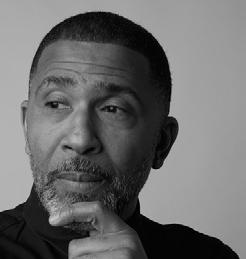
Majority of those surveyed say Black LGBTQ+ community more accepted than ten years ago.Activist Marc Thompson
acceptance of the Black LGBTQ+ community better or worse compared to 10 years ago?
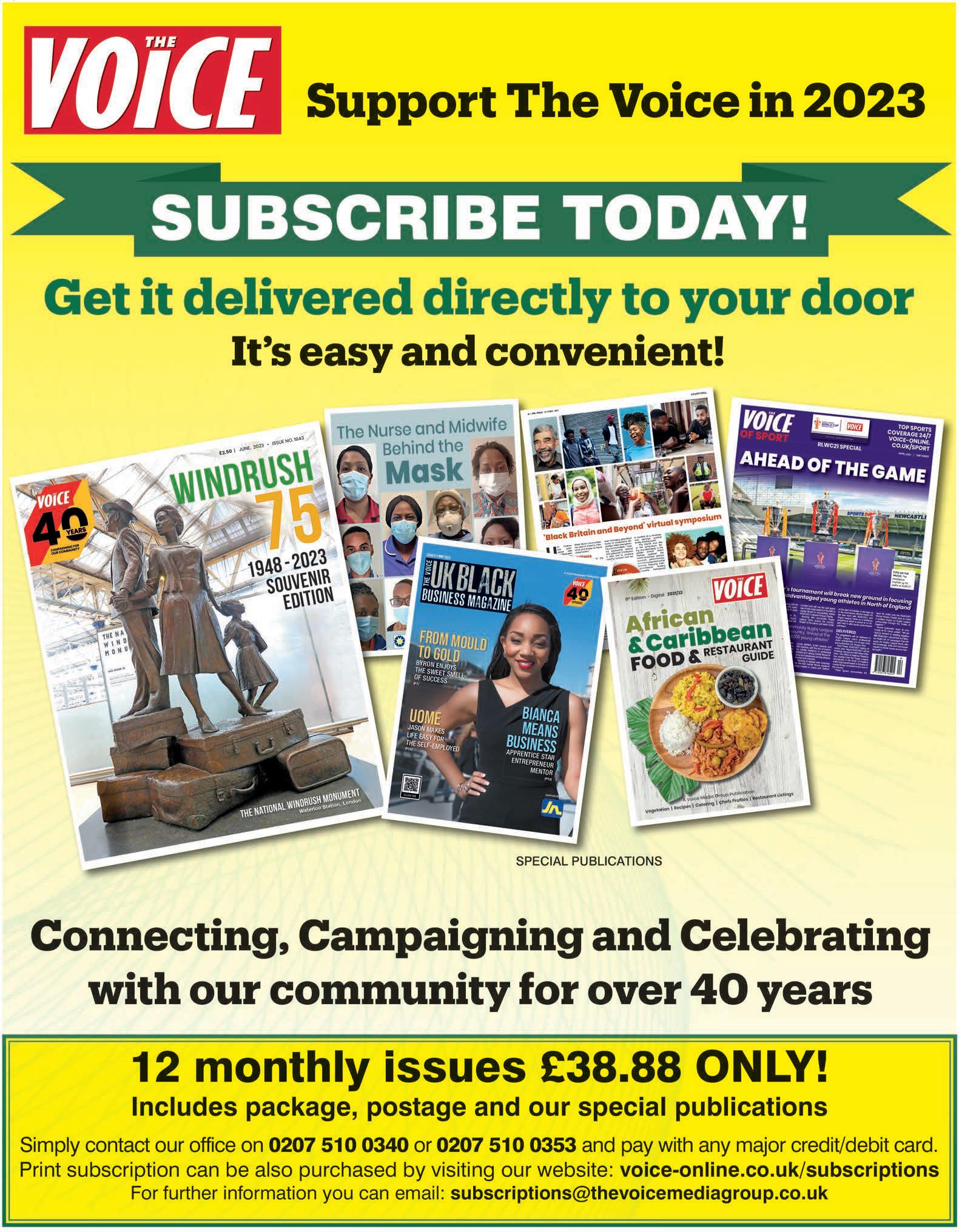
Brits believe that Black disabled people face an additional layer of discrimination in society.

e Voice / Cambridge Black British Voices (BBV) study found that 75 per cent of 9,633 Black respondents felt that Black people living with disabilities were adequately considered by other people.
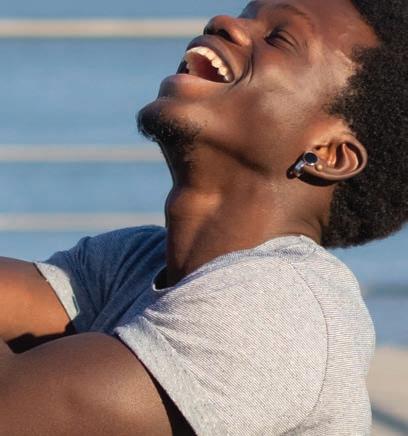
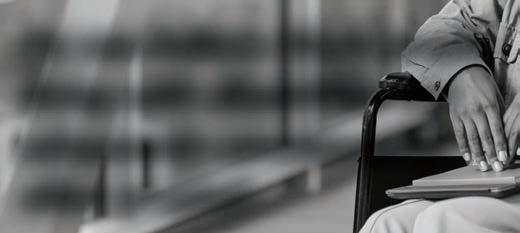
One interviewee commented: “It’s something that people will abandon you for, or you will die. ose are the messages that I had about disability and illness.”
Black people living with disabilities face the added pressure of navigating a society which often treats them as invisible, dealing with the intersectionality of both disability and race.
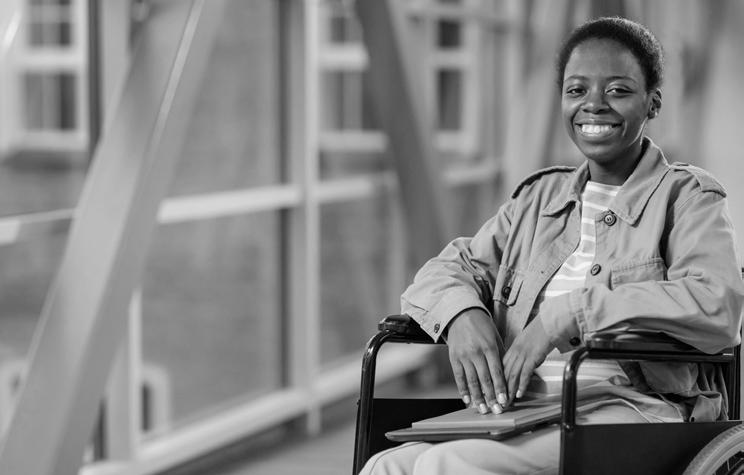
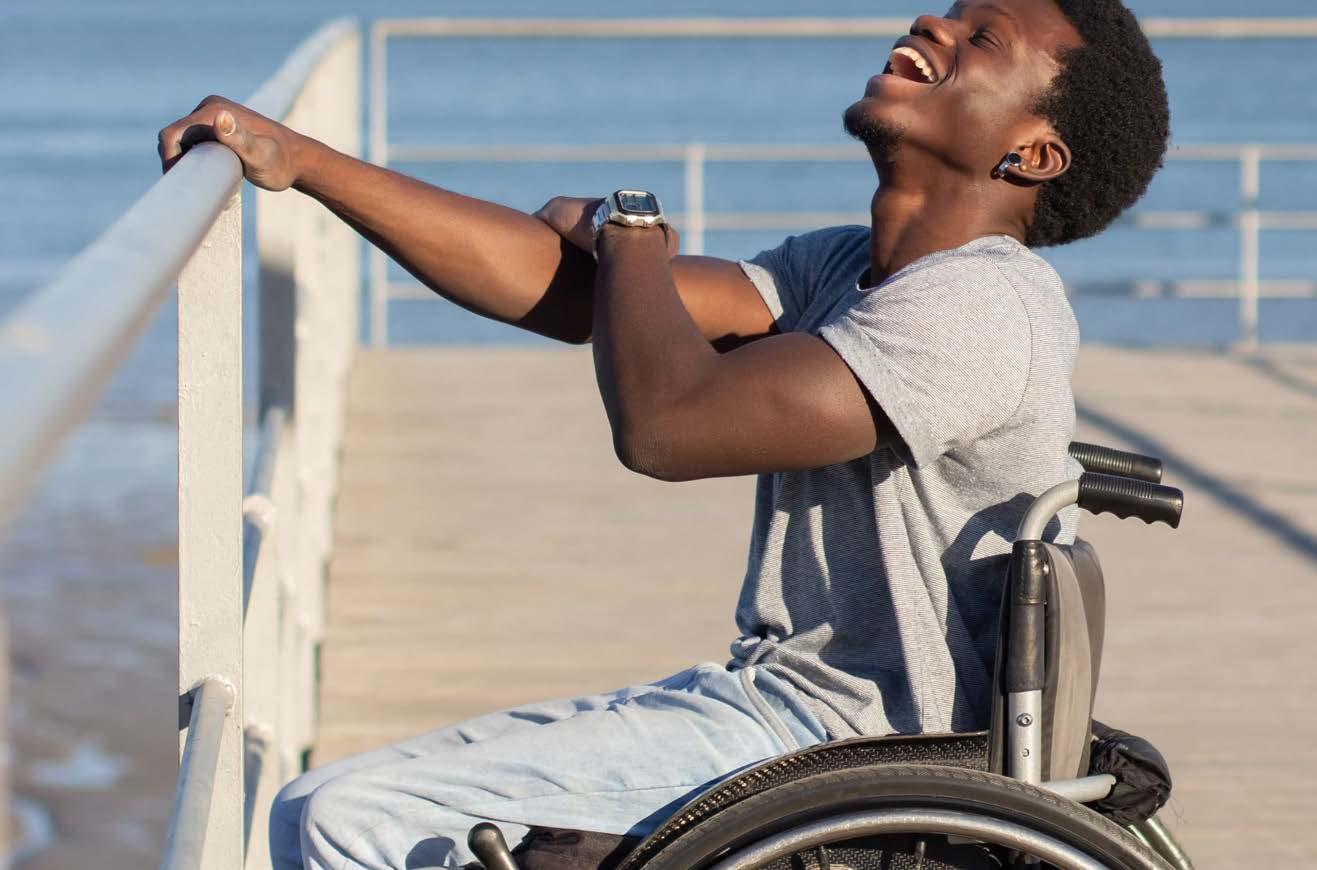
A large majority of those surveyed believe the needs of Black disabled people in Britain remain side-lined.
Dr Clenton Farquharson, CBE, is a distinguished disabled advocate and social justice leader.
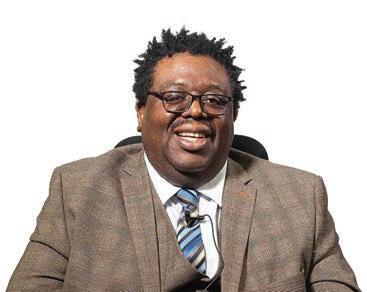
Speaking to e Voice Farquharson, who is Black and disabled, agreed that disabled people’s needs remain left unconsidered.
“When I hear those gures I think about people and I think about the human cost,” he said.

“I also think about how inequality of access and inequality of experience and inequality of outcome has a massive impact on Black and ethnic minority communities in the UK. But I get angry. I think we need more than good intentions. We need change.”
Although some might be encouraged by the fact that high numbers
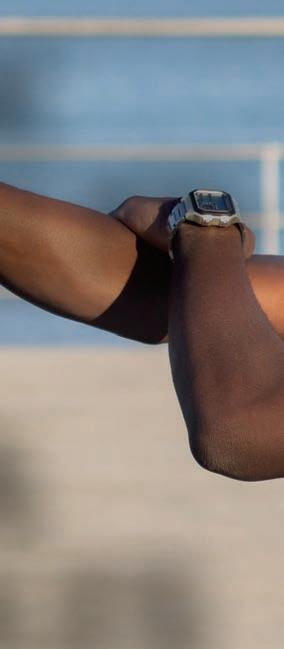
of people are aware of the problem, ultimately says Dr Farquharson, changing the landscape is what’s necessary which directly impacts visibility.
“For most Black and minority ethnic communities we are more and more on the edge and are on the margins. So the power we have

to representation and power, only 11 per cent of respondents described themselves as de nitely unaware of the challenges facing Black disabled people. For Dr Farquharson, this shows that as a community we also need to face some hard truths and take responsibility.”
“For me, we need to take some ownership in our communities. ose who have this information need to share it, encourage others and take action. We have a duty to help each other and care about each other in all aspects of our lives.”
Kamran Mallick, CEO of Disability Rights UK, says that although many more people are aware of the plight of Black disabled people in Britain, stigmas
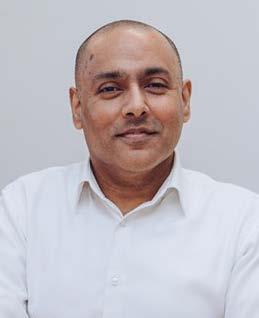
around disabilities could explain the lack of awareness translating to solid action.


“People recognise and have said we want a society that’s fair for everybody. When you went on to ask if disabled people should be in work, people said of course. But when asked if you’d want a disabled person in your team, overwhelmingly people would say no. So it’s like yes, but not in my garden. Yes, but not in my town. Yes, but not in my business.”
He went on to add that “each and every one of us has a role to play in creating a better society.”
According to data compiled by the Joseph Rowntree Foundation,

between 2017 to the present day, excluding Covid in 2020/2021, homes with a Black head of household with a disabled family member are more likely to experience poverty and deep poverty. is trend has remained consistent over the years, with Covid likely worsening the impact.
Isabel Taylor, Analysis Manager at Joseph Rowntree Foundation, explained:
“ e risk of living in poverty for Black disabled people in the UK is unacceptably high. Black people are more likely to experience inwork poverty, to be employed in insecure work and to face housing costs that are una ordable.” she said.
“For Black people with disabilities, these di culties are likely compounded by barriers to work and the additional cost of being disabled, which includes the cost of vital medical equipment and medicines.
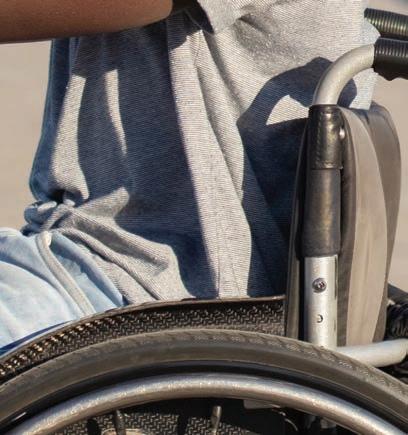
“We don’t fully understand the scale of the problems facing Black people living with a disability
because there isn’t enough data. Policymakers need to treat this seriously.
“We need more and better data to understand the challenges facing Black people with disabilities living in poverty and how we can solve them. We must also urgently address the inadequacy of our social security system which currently leaves people on bene ts unable to a ord basic essentials.”
Taylor added: “For someone to experience poorer life chances simply because of their background or other circumstances is unjust and unfair.”
e BBV survey seems both clear, but also ambiguous on two main points. First, there is clear consensus and acknowledgment that Black disabled people’s needs lack the attention they deserve.
Second, when asked if Black disabled people face more or less challenges than 10 years ago, the answers ‘much more’, ‘somewhat more’, ‘somewhat less’ and ‘don’t know’ hover at between 18 per cent to 24 per cent presenting a much less de nitive answer compared to the other ndings.
Much more needs to be done to connect growing awareness of the needs of Black disabled people to the practical steps required to do something about it Representation and visibility in the corridors of power matters, but hard and honest conversations must take place in our communities about how we can better support each other, which can lead to concrete action and change.
“When you went on to ask if disabled people should be in work, people said of course. But when asked if you’d want a disabled person in your team...it’s like yes, but not in my business.”
– Kamran Mallick, CEO, Disability Rights UK
ur sur ey finds 75% believe lack disa led people are not ade uately considered y others
 By Joel Campbell
By Joel Campbell
Wsurvey revealing publishing houses were viewed by a majority of 59 per cent as failing to su ciently secure and promote Black authors, Lifestyle sat down with Marvyn Harrison who o ered his experience as just one of the reasons why.
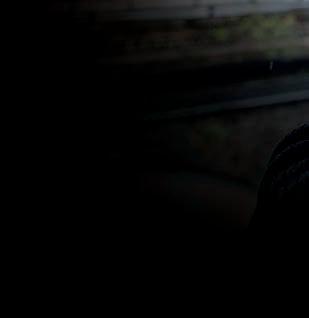
Harrison is a Diversity, Equity and Inclusion Consultant and the founder of Dope Black Dads. e father of two has produced two children’s picture books, I Love Me! and e Best Me!
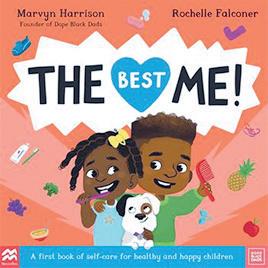
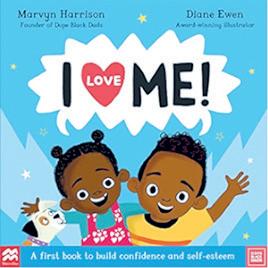
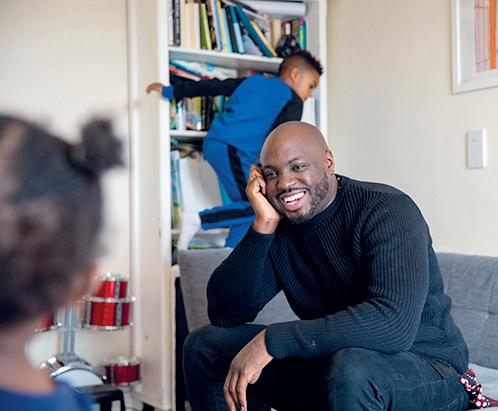
Harrison said: “In my experience of publishing houses, I have had a horri c time, to the point I just pulled my book.
“It was so bad. I had no faith in them delivering the work. ey didn’t have any care for the Black experience, me as a Black man, or the impact on my family.
“ e Black community is so di erent in the fact that we’re interconnected because there are so few of us, that there is a relationship, so what happens to me, happens to others. at relationship doesn’t exist in whiteness in the same way.
“So when they’re trying to go through my book and I’m talking about stories about my family, they are just seeing it as fodder. It was like, ‘Oooh, can we lean into this more?’.
“I appreciate it’s a commercial environment, but not at all costs.
“Allowing us to tell our own stories where we are comfortable is a really important part of the publishing process and without it, it will always be a predominantly white, middle class space.”
He added: “A lot of people have asked me about the path into children’s books and I tell them it took almost two years to nalise an approach for how to work with someone like myself, because they had never done it and there was no precedent on how to do it.
“I also think that getting a



Black man to front a children’s book is almost alien to them. So there were a lot of new worlds to uncover in the ideation, delivery and marketing of my book and it’s really sad to observe.
“ ere is no platform for Black men who care to be elevated at this particular time. ere is no infrastructure for it.”
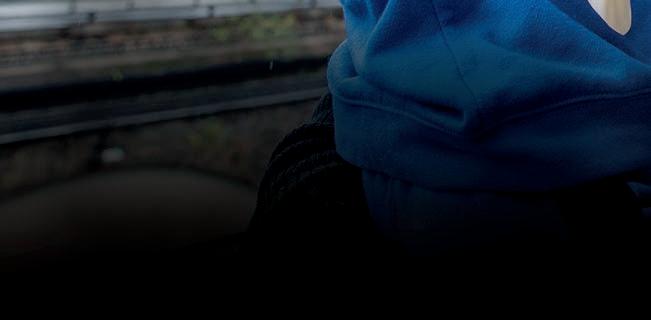
Giving his views on what resonated with him most from the results overview in connection to Media and the Arts, Harrison, who started Dope Black Dads on Father’s Day 2018, when it was made up of him and his friends sharing their experiences and challenges as Black fathers in a WhatsApp and Facebook group, said: “One of the biggest things for me is how much the Black Arts and Black Media industries are not considered a part of the mainstream. “ at was one headline that was really loud to me. ey’re seen as fringe parts of it.
“And so, inherently, we do all the work that we do, whether it’s in theatre, music or anywhere across the arts and it’s almost as if we’re doing our thing over there.
“And it’s like, ‘It’s nice and it’s cool, but it’s not us, it’s not our thing and we don’t see it in the same way’.
“I think that very much devalues the artistic and media contributions of Black people in this country but then also that has an impact in terms of how things are funded, how things are presented and spoken about.
“Black art is often really simpli ed to violence or sex and really ignores all of the nuance that goes on in between.”
Responding to one of the positive ndings of greater con dence in the media, in relation to advertising. which
77 per cent of the survey sample described better at portraying Black culture, Harrison said: “People are noticing that in their adverts they are seeing a lot more

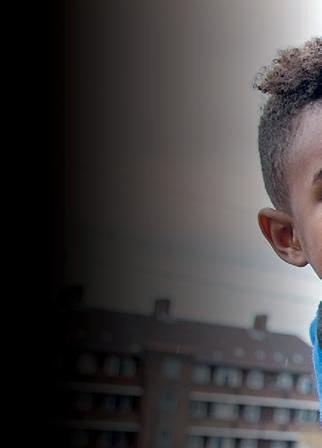
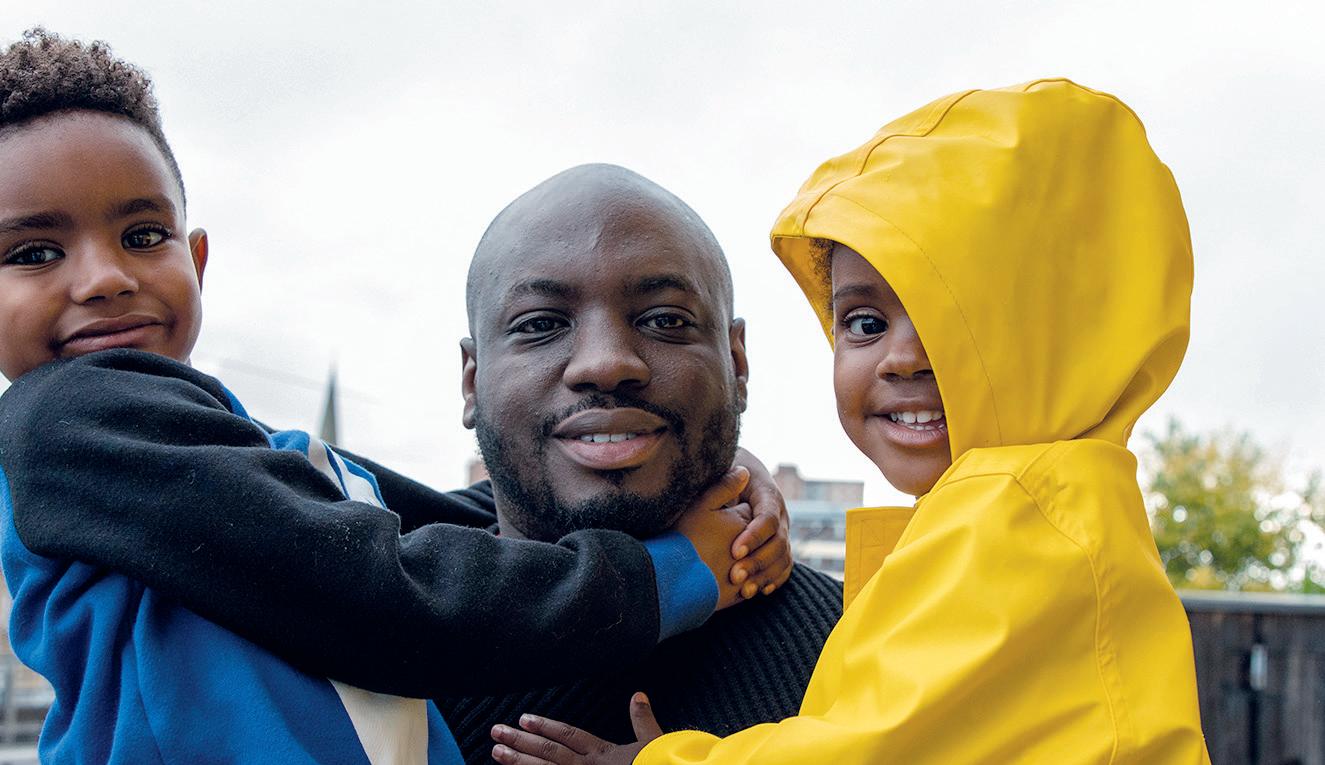
Black people being represented, which on the surface is good.
“But also, how they are represented is very narrow and that then makes it not so great.
“So it’s still not accurate but people are noticing there are Black people in advertising, and I think the advertising industry will be happy about that to a degree, but that does need to be contextualised to them as to what that is, it’s still not authentic. But great that we are there.”
He added: “I think that how Black men and women feel about how they are represented as a whole in media, in terms of not being accurately depicted, is absurdly high.
“I feel a really good reference point is around how we are in our nuance.

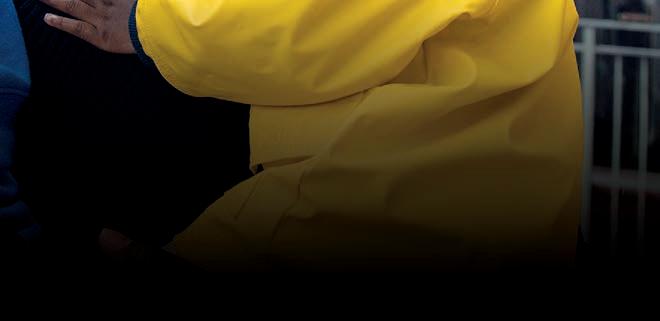
“ ere is so much joy in celebrating us in our ghetto isms, we don’t talk about us in our nuanced excellence and the context of us being here, doing amazing things, doesn’t get written into scripts in TV and lm appropriately.
“So, it creates quite a skewered existence of what a Black man can actually be.
“It’s like, we herald Dushane (Top Boy character) and then we’re so thirsty for a nuanced opinion of a Black man on TV, that we’re expecting Dushane as a character, to be more considered as he goes about his crimes, it’s like that’s the level of absence of real representation for us.”
THE issues Marvyn eludes to surrounding publishing aren’t a new phenomena, neither are they a gripe that isn’t repeated in some shape or form in emails I receive weekly.
Accompanying those said emails, however, is a desire from aspiring and current authors to push through, either by doing it themselves or hitching to big publishing house vehicles, initiatives and diversity drives that are actively pursuing talents from further afield than they are traditionally used to.
It’s hard to dismiss the e orts of mainstream publishing houses in the past few years to engage with, develop, market and generally better understand Black authors – however, in that regard, the
marathon continues. While the landscape of acceptance shifts within the mindset of mainstream publishing houses and the highly revered and distinguished agencies, as well as universally recognised prestigious literary awards, where Black authors and their works are concerned, it’s worth highlighting the e orts of Black owned entities in the space already doing the work that might just better inform the wider industry on how to first identify Black talent and secondly embrace the nuance.
Yes, it’s a commercial endeavour, but each one, teach one.
Read further reactions to the areas covered on our website.
“Black art is often really simplified to violence or sex and really ignores all of the nuance inbetween.”
– Marvyn HarrisonMarvyn says publishers in the past have not considered the impact his work has on his family life. Author Marvyn Harrison with his two children. Photos: Serena Brown
speaks as survey reveals Black people feel publishing industry is ‘a white middle class space’.
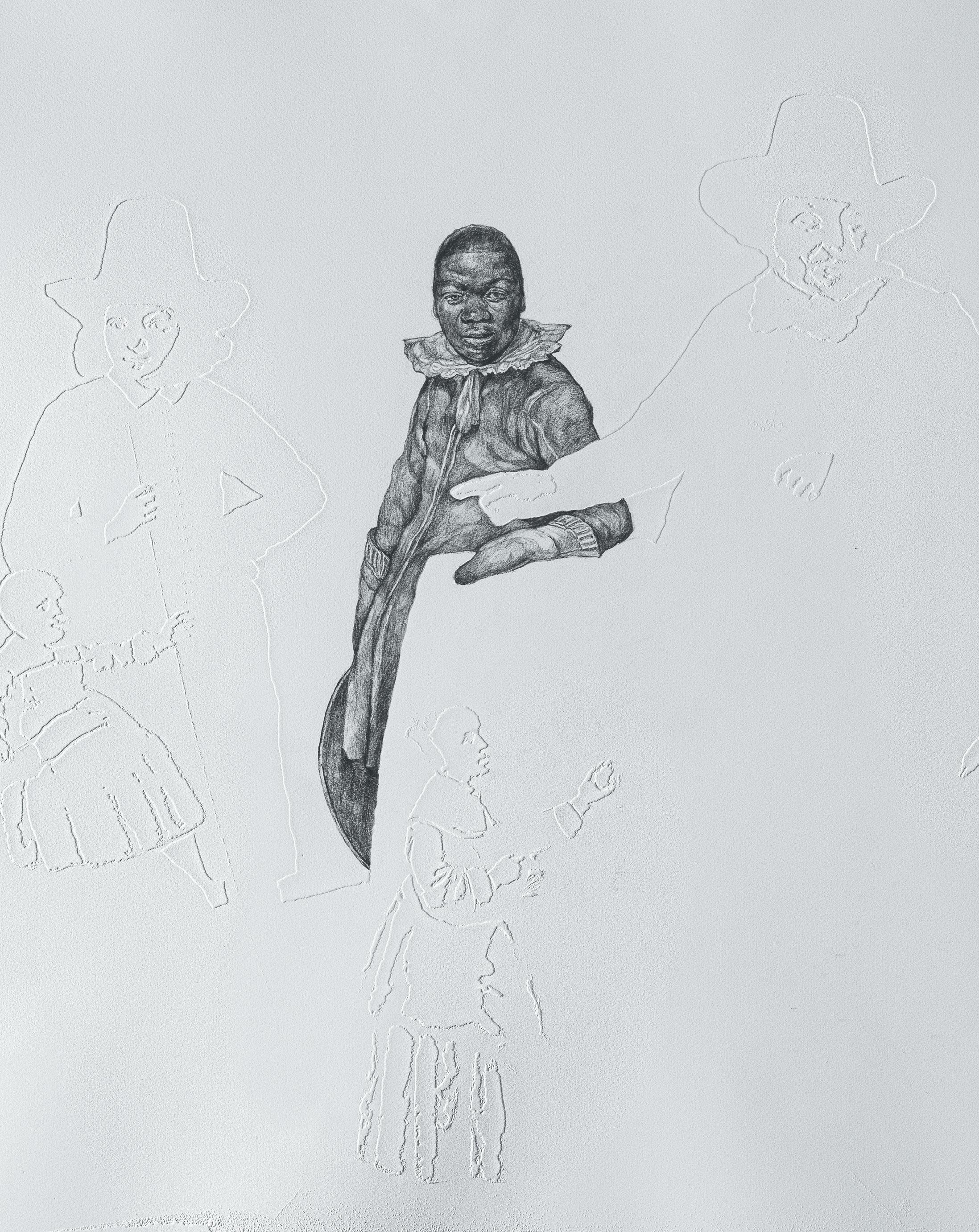
THE BBV survey revealed widespread disappointment in the inability of mainstream media, television, lm, theatre and publishing to adequately promote Black talent or represent Black lives and experiences.
Marlon Palmer, Director of Kush Films says it’s time to look elsewhere.
“THANK YOU to e Voice newspaper for conducting this report; as a pioneering business owner in media ( lm), over the last 25 years it has been my job to be alert and watch for change but also to bring about change as I wasn’t one to take ‘No’ for an answer, wait on others to open doors or begrudgingly just accept me and my proudly ‘Black owned’ business.
ere is much that I agree with in the survey from the various participants but also would like to say that location, slanted perceptions and even access can lead to di ering views.
How much has changed in broadcasting since the days of Desmond’s?
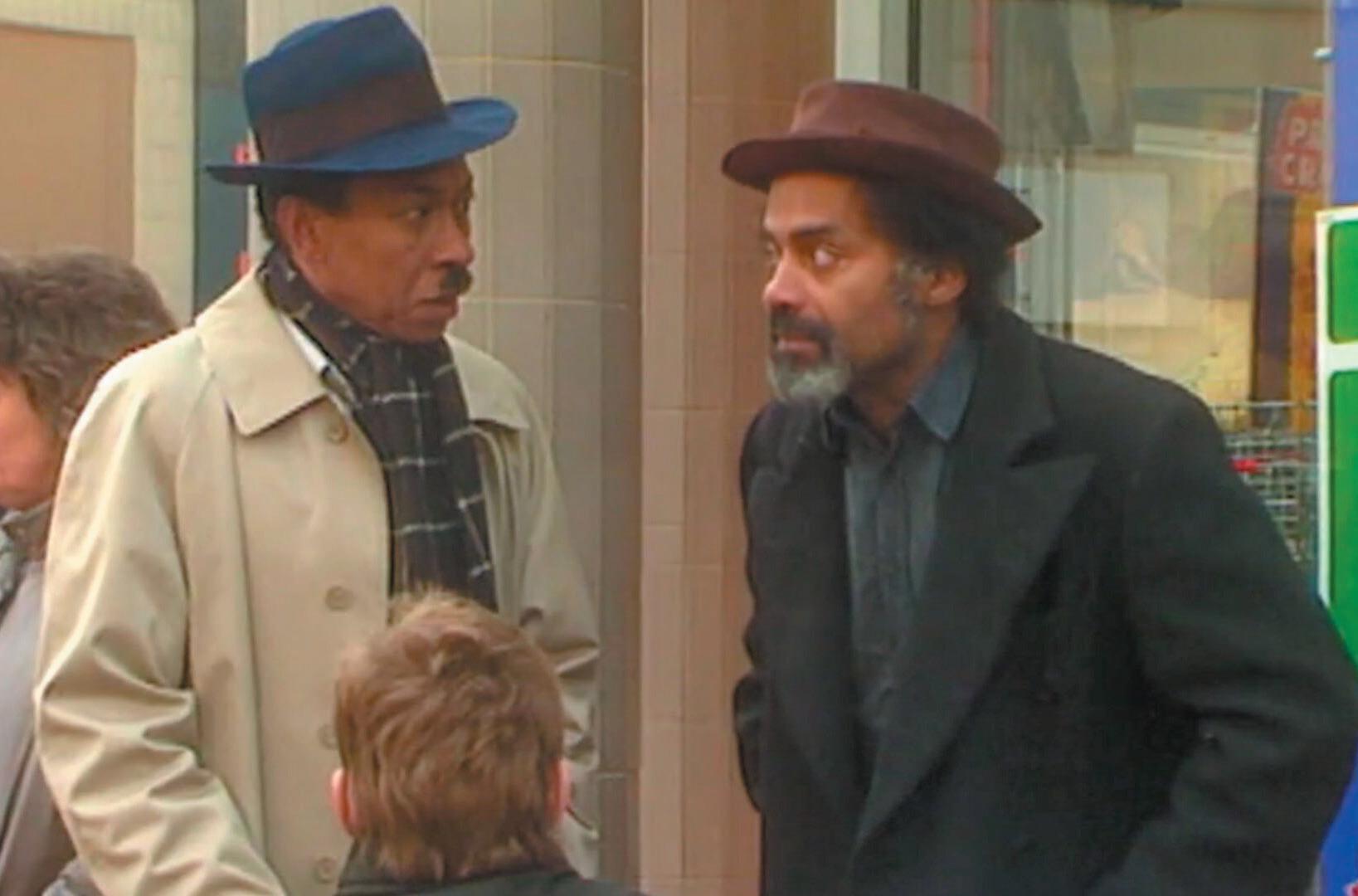
In my regard, looking closely at and working independently in the media, I must say that I have seen some change since the murder of George Floyd in 2020 but there still is a long, long way to go.
Advertising on TV has de nitely changed where Black and brown people are inclusive and I saw exactly when this change happened after the murder; now I have colleagues making a living appearing in regular adverts.
Currently I see TV as somewhat similar
to the 1980’s when we had a swathe of black TV shows, then they all disappeared; currently it is much better on TV in terms of Black cultural representation but with the amount of choice we have these days who really is even watching terrestrial TV.
Even the once loathed BBC has also become more diverse over the last two years in their o erings and now includes
Black talent in many period dramas and has various o erings for young people on BBC ree.
In my opinion, there is currently much more opportunities in TV for Black British talent in front of, and behind the scenes; we just still have no say in the corridors of power, and young Black people in these institutions still su er disheartening and limiting discrimination.
Unfortunately, I do not believe some things will ever change because the

THE PUSH to see Black people better represented across mainstream media is as much on the Black community as it is on wider industry. e subject is a ‘complex’ one.
Delroy Constantine-Simms, Dubai based Counselling Psychologist and Author, shares his thoughts.
“ e representation of Black individuals and communities in British media and arts institutions has long been a topic of discussion and concern.
“ e BBV results shed light on the widespread disappointment and frustration among Black British individuals regarding their portrayal and participation in these sectors.
“While there are valid concerns and criticisms, it’s essential to explore the
complexities of this issue, including the collaboration behind some portrayals, the portrayal of Black men, the perception of success, the denial of institutional racism, and community-driven solutions.”
He added: “ e argument that Black men are consistently portrayed negatively in the media is a complex one. While it’s true that media often highlights issues related to gang crime, it’s essential to recognise that this portrayal does not represent the entirety of the Black male experience. e media tends to focus on sensational stories, overshadowing the stories of Black men who have achieved
success, particularly those whose achievements are not shared with a non-Black partner.
“ is lack of representation can contribute to the perception of Black men as being solely associated with crime and adversity.”
Summing up he said: “While there are valid critiques of the media and arts sectors, addressing these issues requires a multifaceted approach that includes community support, nuanced discussions, and collaboration within and outside the Black community. Ultimately, achieving more positive and accurate representations of Black experiences in British media and the arts is a collective endeavor that requires ongoing dialogue and action.”
Author Delroy ConstantineSimms shares his thoughts about on-screen representation
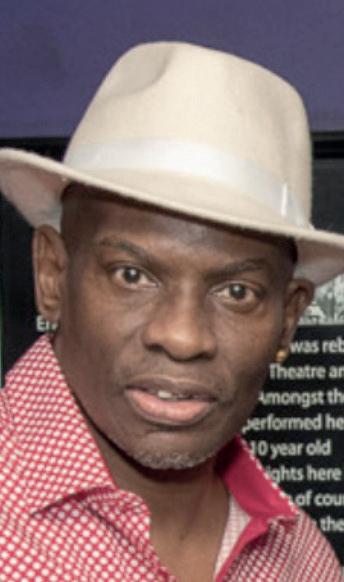
root cause is embedded in wider society and those that make and preserve UK governance and laws.
I strongly believe that we have to stop begging for access, change the game ourselves and seek a growing ability to nance opportunities, develop business and be the ones in control of our future destiny, with the intention of greater Black ownership of striving companies in all elds that one day will be respectably comparable to others.
DIALOGUE: Delroy Constantine-Simms
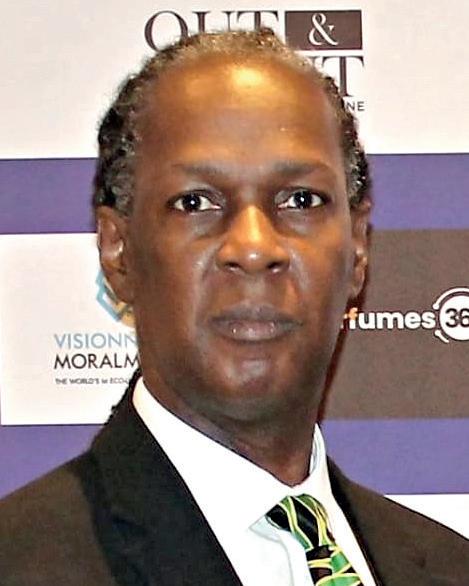
Marlon Palmer writes that TV hasn’t changed much since the 1980sALERT: Marlon Palmer


THERE’S A lag in the dissemination of information where the perception of how the UK theatre industry has progressively moved forward over the last couple of years and Clint Dyer, Deputy Artistic Director of e Royal National talks to us about it.
Dyer, 54, told the Voice he was saddened to see some of the results from the Black British Voices Survey, especially pertaining to the perceptions that fewer than 10 per cent of BBVP participants believe theatres and publishing houses are doing enough to encourage Black participation in their sectors.
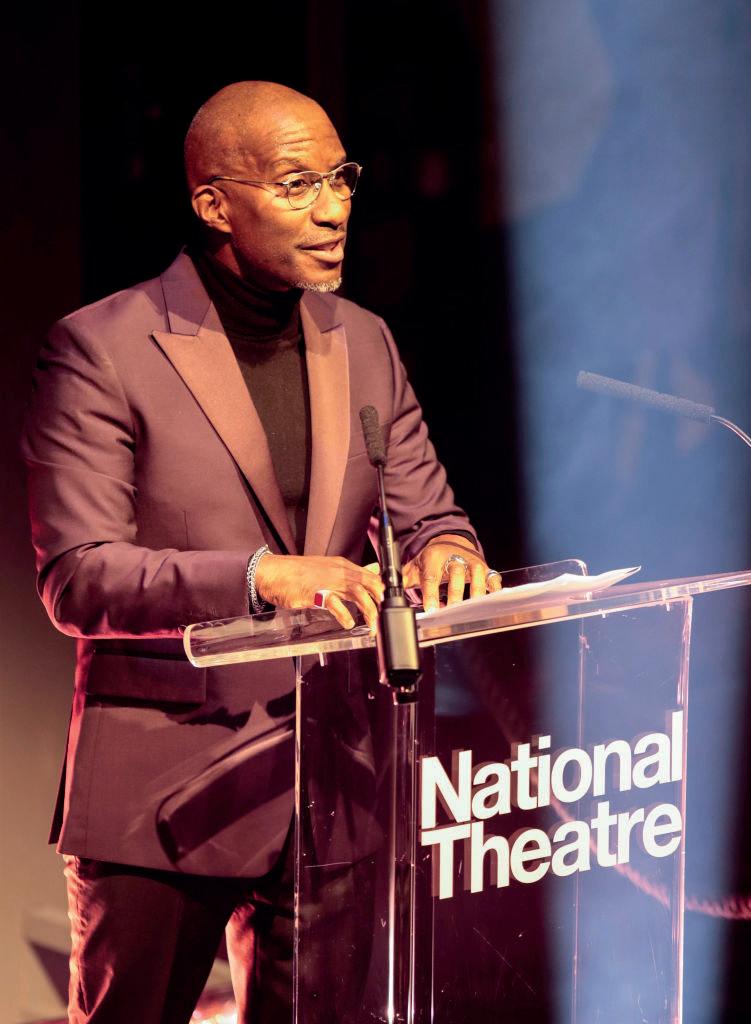
“ ings have moved forward since the killing of George Floyd,” Dyer pointed out, giving context
to the feelings that many may have had at the time of responding to the Voice newspaper’s Black British Voices Survey in 2021. He added: “I think there is a lag but also a lack of data at industry level showing what positive changes are happening – so we feel nothing is moving on but even ve years ago it was unthinkable that someone like me could be in this position at the National eatre”
Over the course of his awardwinning career Dyer has worked across theatre, lm and TV as an actor, writer and director.
He was a longstanding board member and an Associate Artist at eatre Royal Stratford East, where he acted in and directed work. His work at the National eatre includes the role of Cutler in Ma Rainey’s Black Bottom in 2016, and co-writer and director of Death of England and Death of England: Delroy, which played in the Dorfman and Olivier theatres in 2020, the Bafta nominated lm Death of Face to Face, and a ground-breaking, award winning production of Shakespeare’s Othello earlier this year. He is one of only a very small number of people, and the only Black British artist, to have worked at the NT as an actor, writer and director on full-scale productions. His experience of the industry across the board is extensive.
His job is not an easy one and nding the balance is a challenge.
“As anybody will see from my
work, whether it’s Get Up Stand Up! celebrating Bob Marley or my new project Ali about
the life of Muhammed Ali which opens on Broadway next year, I’m always trying to represent how we feel,” Dyer said.
“I feel part of my role is to change how people feel. Anyone in this building will tell you that’s what I’m trying to make us all work towards, how Black people feel inside the building. And that’s employees as well as the punters.”
For a more accurate perspective on how the landscape in British theatre is changing and has changed already, Dyer says people only need to look at where he works as an example of the fact that things are evolving.
He enthused: “It is disheartening if people still feel the same, that they don’t feel that things have moved because, things have...things are not perfect by no means but if you look at our building right now, we’re talking the National eatre, OUR National eatre, one of the biggest theatre’s in the world, in the Olivier eatre, we’ve got a whole cast including, Director, writer and designer who are all South Asian, 24 people. “In the Lyttelton eatre we have a whole Black cast. Two playing psychiatrists, one a Canadian student and one a working class Black Brit. All Black.
“In the Dorfman eatre, where the nal instalment of the Death of England series has just opened, there are two Black writers, a Black Director, Black Associate director, Black co-designer and two actors, one Black one white.
“So that means the only actor in three theatres, in the biggest theatre in Britain, has one white actress in it. ere are no white men acting at the National eatre at this speci c moment. At the time of this interview, that is what is going on.
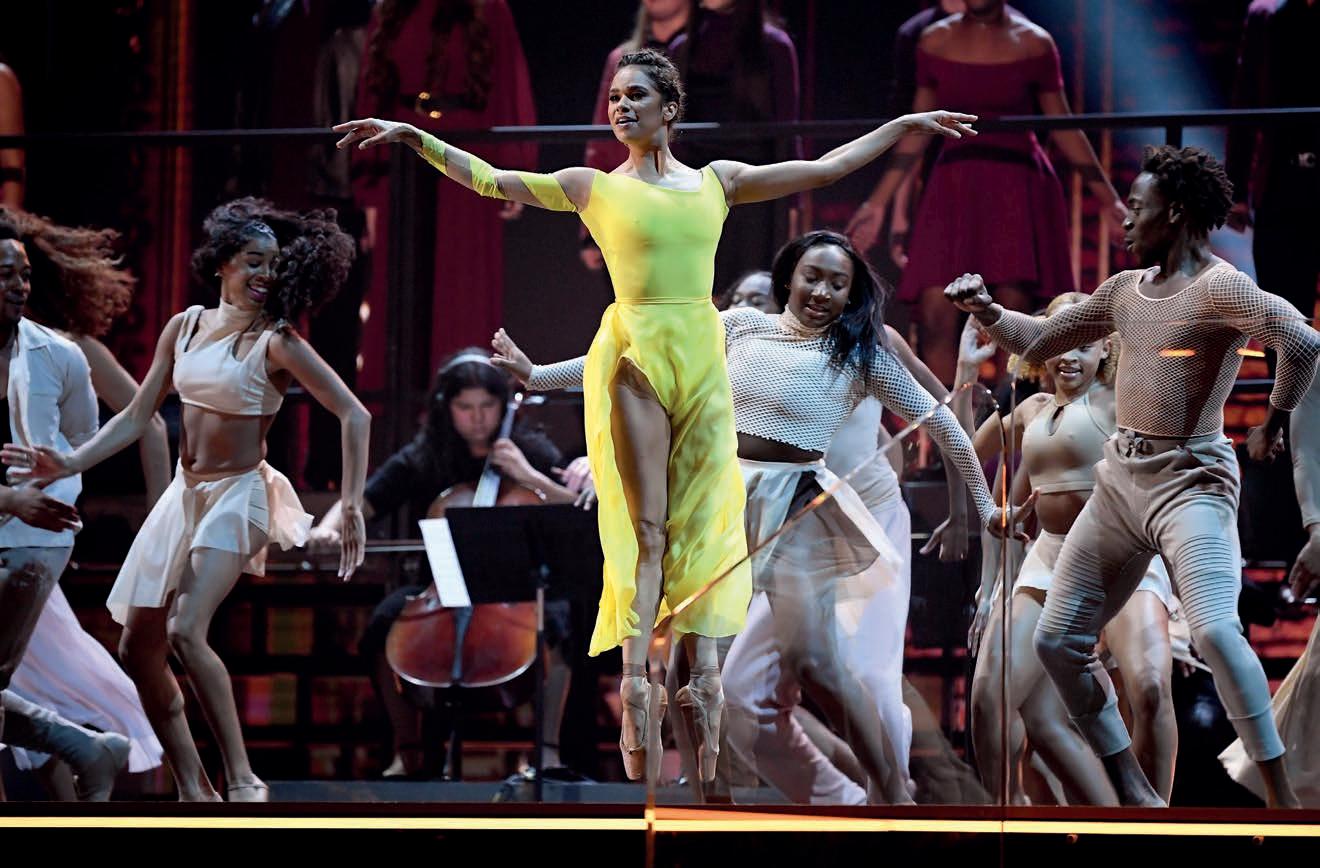
“So it’s a shame and makes me sad if people still don’t feel that things are getting better. But you can’t argue against it, that’s how people feel. Our next challenge is to make sure people see that things are moving forward and feel positive about the possibilities in this sector.
“You’ve got Kwame over at the Young Vic doing amazing work. You’ve got Lynette Linton and Daniel Bailey at the Bush doing amazing stu over there....Indu at the kiln proving herself as one of the best AD’s in the country.
“You’ve got lms out like Pretty Red Dress and Rye Lane, yet people feel like things haven’t moved forward.
“For somebody my age, I know
that things have...and I am heartened by it. ere’s loads more to achieve, of course, but we’re on the journey...and we have the talent to make it happen.”


In order to continue the good work which has been seen, over the last two years, multiple theatres up and down the country hire Black talent in signi cant roles and carry more Black productions which in turn facilitate the growth of more Black people in the sector, Dyer said it’s important that WE support the work.
“It’s a numbers game. One of the things that really changed the dial at the National eatre in terms of having Black pieces at the big houses, in this case the Lyttleton, was having Inua Ellams doing ree Sisters, it sold like crazy.
“And so, Rufus was able to go to boards and meetings etc and say, look, the numbers prove it.
“So, the point I’m getting to is, WE, have to support OUR OWN work.
“I recognise that perhaps there are still issues in terms of the way that we hear about the work, the marketing and where we go to hear about it , to nd out if it’s on etc, there are still massive issues there, but we have to support our work if we want to see our work. at is fundamental.”
Thingshave moved forward since George Floyd, says artistic director building will tell you that’s what JOURNEY: Clint Dyer
FEW ARE better placed than Jonzi D to respond to the results in the BBV survey which alluded to attitudes in the music industry fairing better than theatre or publishing, with 38 per cent of respondents describing it as a positive medium for Black cultural expression, as opposed to 31 per cent who believed it was negative.
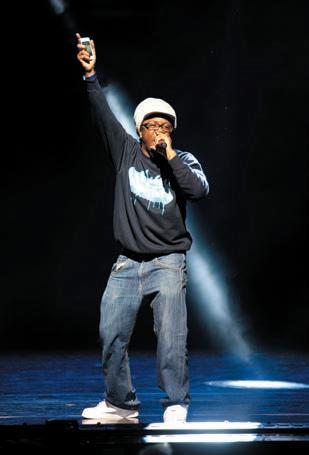
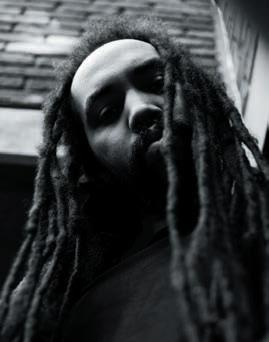
e Associate Artist of Sadler’s Wells has been actively involved in British hip hop culture, rapping and b-boying in clubs and on the street since the early 1980s. Since graduating from London Contemporary Dance School, Jonzi has been committed to the development of hip hop theatre.
“I think that the music industry has de nitely presented a variety of images about Black people. I think the main one that people have responded to, is success.

“ ere are lots of images of Black success. I think that’s di erent to Black excellence.
By Joel CampbellAPEX ZERO, AMultidisciplinary Artist provides his thoughts on the Media and the Arts as sectors that are perceived by a majority
“ ere’s lots of examples of Black people doing well but I think some of the artistic output is questionable. And I think some of the artistic output is walking in stereotypical areas that I think the music industry is most guilty for that.
“Right now, there is a two-fold thing I think, with the presentation of very amazingly talented Black women, but the agenda tends to always be sexual. And it’s the same for men.
“And in relation to the party thing, when it comes to certain artists like Kendrick Lamar, he will bring a much wider perspective to his lyricism.
DIALOGUE: Apez Zero
(pic: Ty Faruki)
of Black Britons to be not only failing Black communities and promoting negative stereotypes of Black men and women, but as particularly hostile and exploitative institutions to work in as well.
“My initial response to the survey is that a lot of it are things that I would expect to have heard.
“I think the issues that are being raised from the responses bring to the fore things that have been dealt with for a long time, I don’t think that these are new conversations.
“I think that given the nature of the response, the same questions
“So in relation to theatre, I think we have a much better opportunity to present a much wider variety of images of Black people, it’s just that we don’t have the marketing that lm does, and that music videos do, and that link to celebrity.
“I think that celebrity status has become more important than artistic quality.” Giving his views on the report highlighting negatives about the theatre world in general, he said: “ e survey is quite damning but very familiar.
“ ere was nothing in there that really surprised me. Being part of the theatre world I am very aware of its failings. Which is the reason I am so focused on what we are doing by presenting Black imagery in the context of Breakin’ Convention.
“By me being a Black Artistic Director and the responsibilities that come with that, the type of people that I work with in my team, my Director is Black. To be honest, we have a diverse team but Black people are leaping, and I think that’s a very important thing when we look at images of diversity in company set ups.
“Sadlers Wells de nitely have a white
are relevant and being asked that I feel have been being asked for a generation or two. I’m 36 and have been hearing these conversations since childhood, it doesn’t feel like much has changed in that time and it feels like a lot of other people feel the same way.”
He added: “I’d agree that this idea that we need to do our own thing is important, I don’t think that has to be small or ‘community’, or ‘local’.
“I know that there are people creating organisations who are linking with the African
Caribbean diaspora globally and that are linking with other parts of the world. ey are no longer just thinking Britain or Europe, or even the USA in order to do immensely powerful things.
“A platform like RepDatTV for example is the biggest Black owned organisation of their type in the UK and the majority of their programming comes from Africa. ey are an organisation that champion what’s happening with the African Caribbean people in Britain and want more homegrown content.
“I think there are organisations like that across the sectors where such work is being done.
“I know money is often an issue here, I know being able to be
man who is running it but a second to him is the associate Artistic Director, Robert Jones. So at Sadler’s Wells I’m seeing some changes.

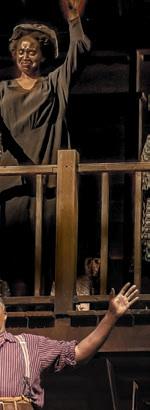
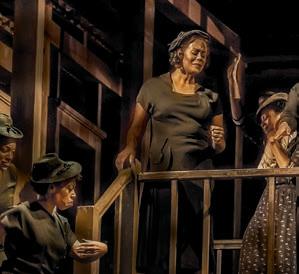

“When I look at the whole scene, generally, it does feel like it’s not for me.
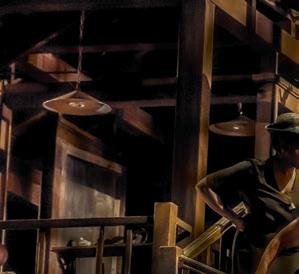
“If we’re looking at dance as a theatrical culture, we are creating our own little environment, that is for us, by us. And that’s just getting bigger and bigger and as you can see with Breakin’ Convention, we sell out the ting.
“Again though, it’s about Black people being able to know that, is their home. We still have challenges with that.”
not on a major, mainstream platform in England or America, that it’s somehow not successful.
sustainable is about generating funds a lot of the time and those major corporations have machines and industries behind them with an ability to generate those funds.
“But, judging the work as the work is very important to me, and the quality of the work being seen in it’s true worth, to me, is more important than making it on any platform.
“I think a mindset shift is needed to stop only seeing things in terms of Western, economicals, capitalist mindsets, that if something is
“ ere are all kinds of people making all kinds of lms, and writing all kinds of books and making all kinds of music and putting on all kinds of performances across the arts and the work is often exceptional. I know about these because I’m part of them, or because I’m recommended by them, by people in my network, and because I make e orts to seek them out. If we make a conscious e ort to pay attention to these things, we won’t be disappointed.
“If we sit in a space of relative apathy and want those things to be brought to us by our TV’s, then we are going to continue to be disappointed.”
Donna Fraser, the Professional Cricketers’ Association’s Director of Equality, Diversity & Inclusion, talks to the Voice of Sport’s Matthew Chadder about the Black British Voices survey and says that there has to be stricter penalties in place for those that abuse sportspeople

MC: We need stricter penalties. Is this something you agree with?
DF: De nitely, more penalties need to be put in place and penalties have got to be stricter because people are not really adhering to whatever has been put in place. What this means is sooner or later, we’re having the same conversation, which clearly is what is happening now, hence the responses from your respondents.
Why do you feel that people aren’t adhering to the penalties being put in place? ey might pay a ne, and then it’s forgotten about, and they’ll continue with the inappropriate behaviour. A complete ban, which was mentioned in the report, is de nitely something that needs to be put in place. If they know that they’re not going to be able to come back, then they will learn how to behave appropriately.
95% of respondents in the survey felt that social media companies are not doing enough. Is this something you agree with?
I de nitely agree with it. I’ve been saying it for a number of years, social media has a lot to answer for, it is a huge in uencer, especially on our young people, and I do think that some of the positive messages are not coming through as much as the negative messages.
Donna Fraser, director of Equality, Diversity and Inclusion at the PCA
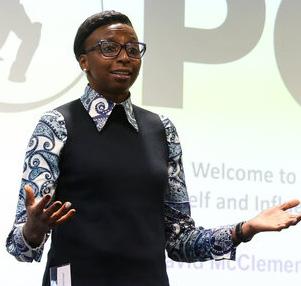
I think social media companies should be working closer with national governing bodies in sports. It’s getting to the point where I don’t even really listen to the news, because there’s nothing positive to listen to, when I know that on the ground in communities, there is some really good work being done. ose are the stories that we need, in order to uplift people.
Just how signi cant is this survey?
I doubt that this will be the last survey that’s done. At this moment in time, it’s the same answers that
we’re hearing, and things are not changing, and they desperately need to change.
Something that really stood out for me, and something again that I’m trying to do in my role, is around representation. If you look at di erent sports, they’re all di erent shapes, shapes, sizes, colours, backgrounds, religions, etc. But when you look at the management, does that re ect that? e answer a lot of the time is no. at’s where the barriers are.
e report mentions talent pathways as well and that’s where it starts. ere is a huge amount of talent out there from all
backgrounds, and we’re not quite tapping into that.
What does cricket need to do?
We’ve got to listen. e ICEC report was de nitely a step forward to formalise what a lot of people probably knew was happening. Unfortunately, those stories where people were impacted, they’re not pleasant, how they’ve been dealt with, probably not as well as they should have been dealt with.
As a sport, we really need to look at ourselves, and what we’re going to do next. It is great having a report, but it’s the action that follows. at’s important to us, and especially at the PCA, we can absolutely support the ECB in delivering against those recommendations that have been put forward as part of the report.
My role primarily is at the professional level, but we also need to think about the talent pathways, the great work that’s been done with the ACE programme, and really diversifying the sport.
as sport, and stop working in silos. Our message is so much stronger if we’re working together as sport as opposed to in our own little bubbles. If we’re working together, I think something could really change down the line.
How do you hope that people react to the survey?

I’m all for getting evidence, because that helps conversations, but it’s action that we need. It is about working with those NGBs, identifying the areas and what actions can be taken and they will be short-, medium- and longterm actions, but as long as we’re moving forward. is is a big piece of work which is going to take some serious e ort and some key people being part of those conversations.
I always have hope, I wouldn’t be doing what I’m doing if I didn’t have hope.
It’s going to take some time, but it’s the e ort that is key for me.
If we’ve got the buy in from those decision makers to make those sometimesradical
decisions, to make that fundamental change, then that’s what’s going to have to be. We just need to keep going forward and talking about the results of what’s being said and highlight what’s happening because some people are still blinkered as to what’s happening in sport, unfortunately.
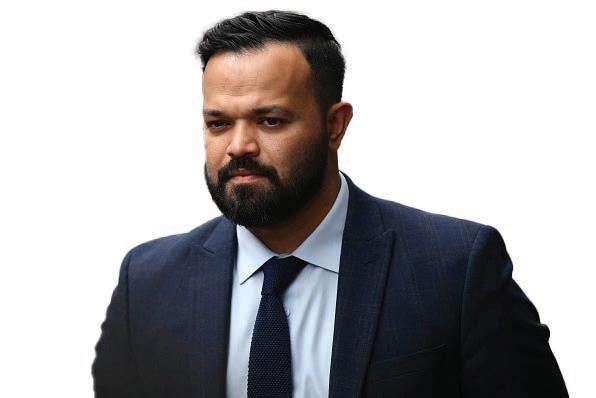
What must sport in general do?
What must sport in number of years, and there are pockets of people


e PCA has championed the ongoing interests of professional cricketers in England and Wales since 1967.





I’ve been in this this eld for a number of years, and there are pockets of people who really want to make that fundamental di erence, so we need to collaborate as one,
di erence, so we need to collaborate as one,
e PCA and e Voice will be working in partnership to bring readers news and views from professional cricketers from the British African-Caribbean community. Azeem Rafiq
“I’ve been saying it for a number of years, social media has a lot to answer for, it is a u e in uence especially on our young people...”
– Donna Fraser
APREMIER League player has endorsed the Black British Survey.
e top- ight star, who wished to name anonymous, told the Voice of Sport that there is growing concern amongst footballers by the lack of action by social media companies in regards to online abuse dished out to Black sportspeople in general and footballers in particular.
e player, based in London, said: “First of all it’s great to have a survey based on Black opinion. ere’s too many surveys from the likes of e Guardian, etc. which really doesn’t understand our viewpoint.
“At last our community can give our opinion to an organisation that understands the issues.
“ ere is always talk in dressing rooms, at every level, about the lack of action by social media companies.
“Yes, there has been progress, but it’s not enough. We talk about it all the time as players.
“Everything came to a head after the abuse of Saka, Sancho and Rashford. We knew it was coming.
“When England were doing well at the start of the Euros, those three were heroes but you always got the impression that as soon as anything went wrong for England, a Black man would be the fall guy.
“ e racists took to social media and killed those guys. If they had scored three penalties they would have got knighthoods.
“Can someone explain to me why Rashford still gets abuse? He helped feed millions of kids up and down the country, from all backgrounds, and is still a target for the nutters.”
e Premier League striker was desperately keen to share his views of the Euros.
“England manager Gareth Southgate and the players said
they would take the knee before the matches in support of Black Lives Matter and the whole George Floyd scenario. And what happens? England fans boo their own players in the rst match against Croatia at Wembley.
“How nuts is that? What that did was give fuel to the online racists at home and abroad.”
Like Rashford, Chelsea and England star Raheem Sterling has often been a target of online abuse. Sterling, however, hit back and in many ways changed the game.

e PL footballer added: “Raheem is a hero to many of us. He used is own social media platform to give his own, and very eloquent, point of view.
“Going back to the Euros, he was the star man for England in that tournament, but if you read the headlines after the matches, Harry Kane was the only player doing well for England. at was yet more fuel for the racists.

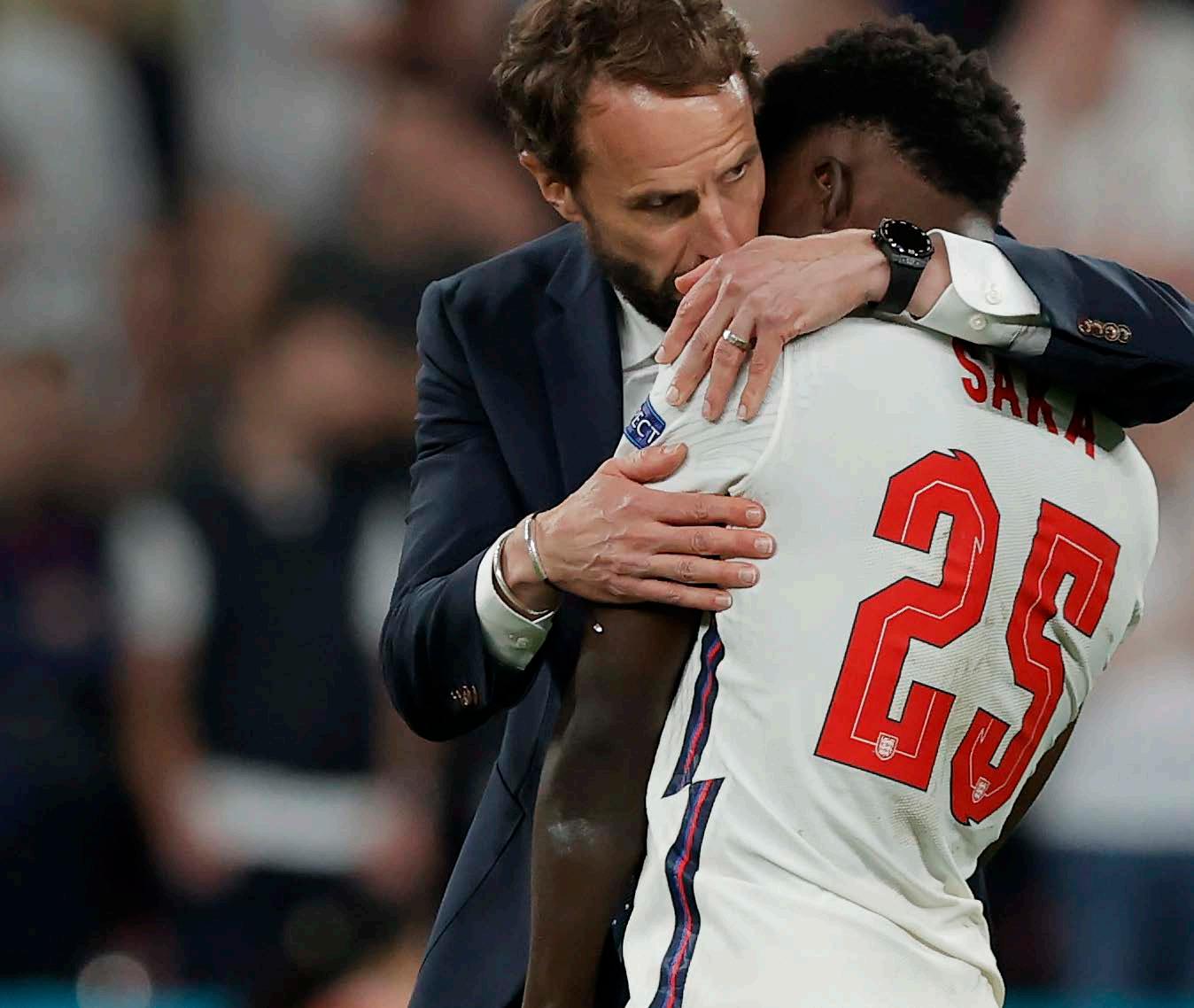
“I remember the penalty shootout and Raheem, a senior England player, did not take a penalty in the
– Premier League player
country’s biggest game since 1966. Why?
“He probably did not want the ak if he missed.”
e Premier League star, who said he hopes there are further BBV surveys, said he also has an issue with football’s authorities including the Premier League and e Football Association.
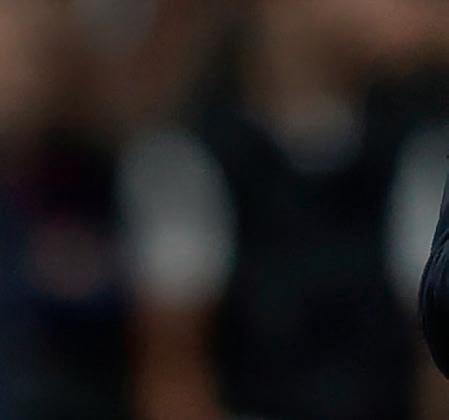
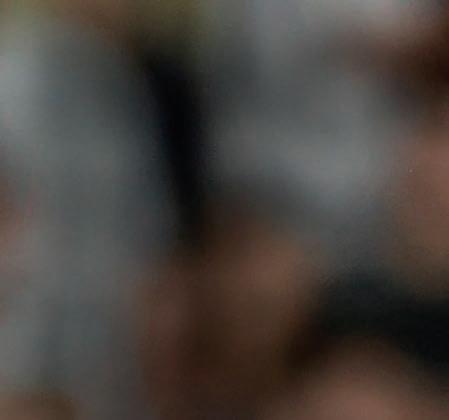
“Players were happy to take the knee in light of the killing of George
Floyd and Black Lives Matter. We did it before every game and were happy to do so. Now the Premier League have decreed that we only take the knee on certain occasions. Does racism, in person or via social media, only take place on certain occasions? No! It happens all the time.
“ e race issue has fallen well behind other causes, it is not a priority.”

What about solutions?
“ ere needs to be more Black people in decision making positions on boards, etc. Only then will we see empathy towards important issues.
booed by fans and then cheered Sterling when he scored a goal. at to me shows total confusion, and absolute cognitive dissonance. All he is to them is the vehicle that scored a goal because that’s more important to them than his identity and humanity.”
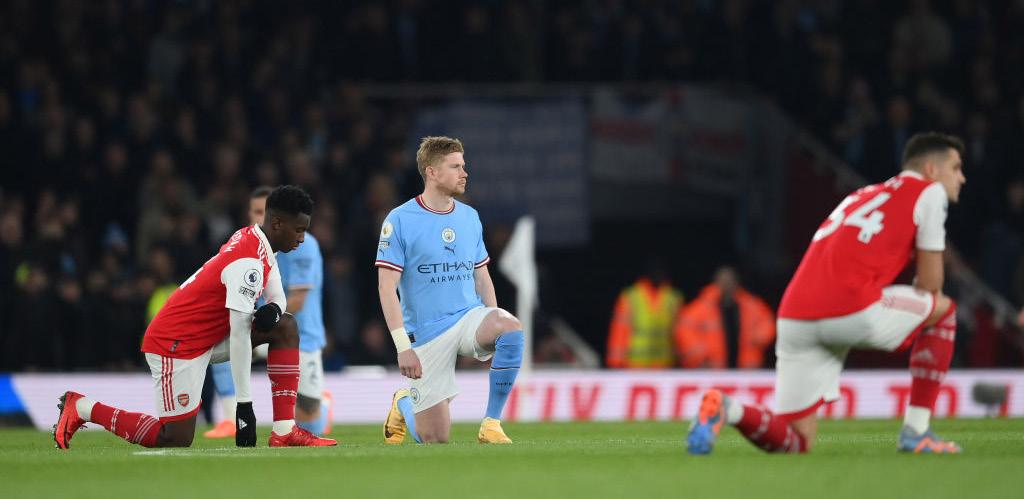
“Just look at the hypocrisy in the recent England football match. ose taking the knee were
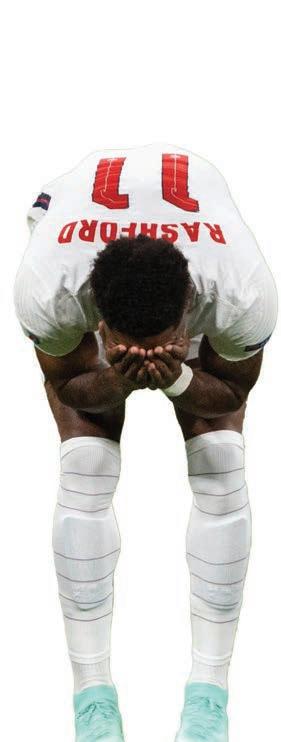
hypocrisy in the recent England taking the knee were
at lax ‘compounding e ect’ familiar from other sectors, whereby scant solutions or even more deeply entrench, the problems they are intended to


Survey says: e problem of systemic racism within sport, its overtolerance by authorities, and its perpetuation by social media companies’ lax procedures recapitulate the ‘compounding e ect’ familiar from other sectors, whereby scant solutions tend to exacerbate, or even more deeply entrench, the problems they are intended to mitigate.

“It’s great to have a survey based on Black opinion...
At last our community can give our opinion to an organisation that understands the issues.”
Anonymous Premier League ace tells Rodney Hinds that much more needs to be done to stamp out racism in the modern gamePremier League players taking the knee Rashford after the Euros penalty miss Raheem Sterling


PROFESSOR Geo ompson
has hailed the Black British Survey.
ompson, the highly respected independent deputy chair of Birmingham Commonwealth Games 2022, has said that the survey is the “most important report of recent times”.
e former karate world champion and now sports administrator, told the Voice of Sport: “When I read what I read (the survey), I realised that this is now the most important report in recent times, as e Voice continues to be the voice of the voiceless, and the voice of the streets.
“In the year that we celebrate Windrush 75, and the contribution of sports men and women of the Caribbean diaspora, we should acknowledge that our community has used sport to overcome our social, cultural, and economic disa ection and disadvantages.
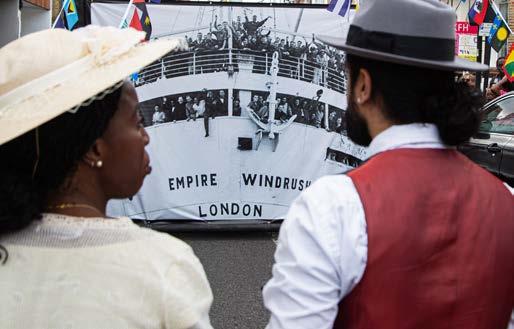
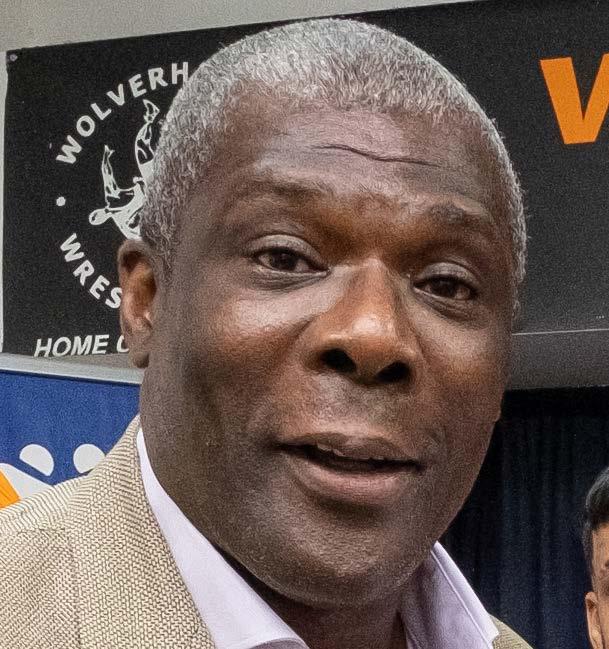
“If we look at the lack of accelerated progress that George Floyd promised, I’ll go strongly to say
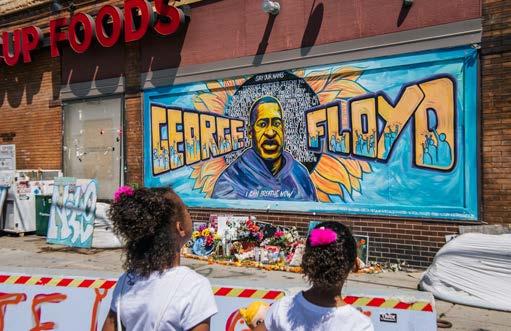
that the promised acceleration of Birmingham 2022 Commonwealth Games, we are not where we need to be, or where we should be.
“I come from a unique journey post-war to where I respond to this report and what it is proposing.
“In that time, we have seen governing bodies, and I have been in receipt of so many chair role opportunities that would see me be the representative and credible face of that institution. But that is not enough.
“We need to see, on merit, representation of what is a considerable currency of achievement, not only in the winning of medals, but in those who have coached athletes to those medals, such as the late Lloyd Cowan and Mike McFarlane.
“ ere seems to be a lack of genuine, honest discussion.
“At every level, we cannot have Black organisations, and I’m putting this on the record, like Black Swimming Association, or Black triathlon associations is not the way forward, that is sporting apartheid.
We’re falling into the trap of being isolated while the institutions continue with little change and with little transformation.
“We’ve achieved so much and achieved enough to be at the top table, making signi cant progress
and having the impact and having the watchful eye to challenge for all the right reasons.
‘I agree with the survey respondents. I have spoken to a number of others who are in public life sports administration and it’s almost therapy sessions.

“We talk about what we’ve experienced, we look at ways on how we navigate and negotiate the situation.
“Sport is a microcosm of society. It is not and it would not be, a naive proposition to suggest that all issues on immigration and race, the Windrush Scandal, the notion that the Birmingham 2022 Commonwealth Games, or the Plantation Games, had connotations to slavery, and Empire, and all the negatives.
“ en you look at the positives, when you saw that diversity in Birmingham, when you saw that power of sport for good cancel out the negatives.
“In my humble opinion and experience it’s become more sophisticated, more nuanced and
that’s why it becomes so crude in the stark reality of progress, that I believe we have regressed.
“I know, those who have retired from sport are saying I’d love to be onboard, I’d love to be leading this, I’d love to be leading that.
“ ere are equality and diversity action plans and governance requirements placed on governing bodies. But then the question is, do we have the talent pool? So where is the talent pool?
“Wouldn’t it be nice to know where the talent pool is? Sporting Equals undertake some of this work, but it’s got to be more than that.
“Where’s the diversity on the British Olympic Association as we get ready for the Paris Olympics 2024. What are we looking at in representation terms? What will be the representation and look of Great Britain?
“Well, that’s going to be the re ection of society. And where we are at the moment is where society is at, is where sport is at?
“I genuinely believe that unless we take responsibility, I mean, we in that collective diaspora of interest, take responsibility with a plan, with a timeline and with the role of responsibility to advocate and challenge what it is we want to see happen, change will not happen.
“ is country is becoming more polarised as a result of a whole sequence of not only events that re ect our everyday lives, but the global events that have in uenced our lives.
“If lockdown did not provide the evidence, we’ve got enough research, we’ve got enough evidence, we’ve got enough facts,
we’ve got enough gures. I don’t think it could be a better legacy for all that our diaspora is supposed to look for, and now expect because our past and present is informed by our future young citizens.
“ ey do not believe in today’s sporting administrators who they do not relate to. And they are impatient, too. ey’re not going to put in the hard hours and years, as I’ve put in, they’ve told me that, they want positive action now.
“ at’s the immediacy of the 21st century interactive mobile lifestyle that they live because they’re getting knowledge, and that’s empowering them.
“What they’re saying is we’re not going to continually bang our talents and potential against a door, that, quite frankly, doesn’t want us.
“We invite the institutions to come and give us evidence, and to present to us why things are not improving. And then that, in turn, sees us not only make a recommendation, but make an ask on the strength of that recommendation.
“If we’re serious about this, we should be aligned. So, I’ve got to be honest, I’m exhausted by the journey at this moment and very much focusing on my family and my drive.
“We have had all the reports, this is going to take the good old fact we’ve forgotten what it took from the 60s 70s 80s right the way through to the 20th century and 21st century. Many have said we’ve become gentri ed.
“We’ve also become exhausted. ere are lots of excuses.
“ ere are lots of reasons we have to look at where are we now.”
“I’ll go strongly to say that the promised acceleration of Birmingham 2022 Commonwealth Games, we are not where we need to be, or where we should be” ess e s nLeft: Accelerated progress was promised following George Floyd’s death. Right: Professor Thompson says the Windrush generation’s impact should be acknowledged By Rodney Hinds
AS MANY have stated in this very special edition of e Voice, so much still has to be done in regards to listening and respecting Black British Voices. e survey, the biggest of its type, is to be applauded and the hope has to be that it is the rst of many. But what’s the point if the authorities, the key decision makers, continue to drag their feet over the various issues?
I’ve been in post at e Voice for 23 years now and it remains clear that racism in sport in particular, and society in general, will remain a challenge unless stringent punishments are in place.
e ordinary, and man and woman in the street cannot do too much about it. Yes, there are better reporting lines and countless documents published on the subject, but it is the descisionmakers that can a ect change.
I started my sports journalism career in the 1980s. My edgling writing career chronicled the issues of race that the likes of Maurice Hope, Vince Hilaire, Roland Butcher and Tessa Sanderson et al had to face.
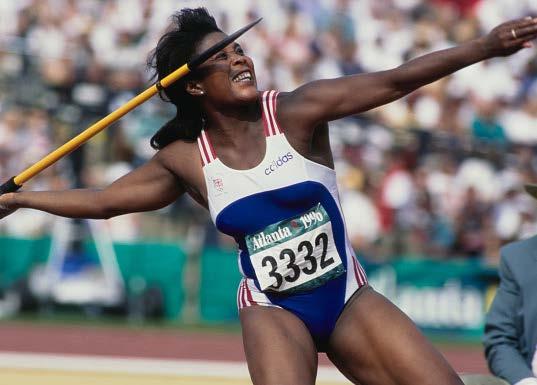
e names have subsequently changed to Chris Eubank Jr, Bukayo Saka and Michael Carberry and Ebony Rainford-Brent.
e issues then are the exactly the same as they are now –members of the Black sporting fraternity remain targets of the racists.

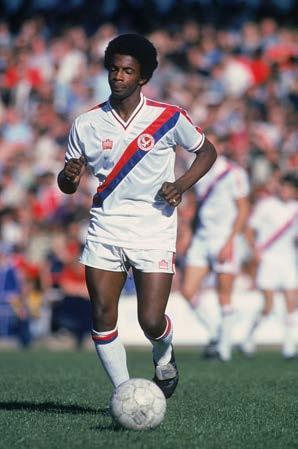
A plethora of footballers over the decades have told me (I started

my writing career at the West Indian World) of the horror that they su ered. ere was no social media back then but there were bullets in the post and excrement through the letterbox.
Today’s trolls are apparently more sophisticated — they sit at home and just hit keyboards while destroying the mental health and con dence of their victims. Sport has endured so many changes during my career. ere’s Hawkeye to take any doubt away from decisions in cricket and tennis.

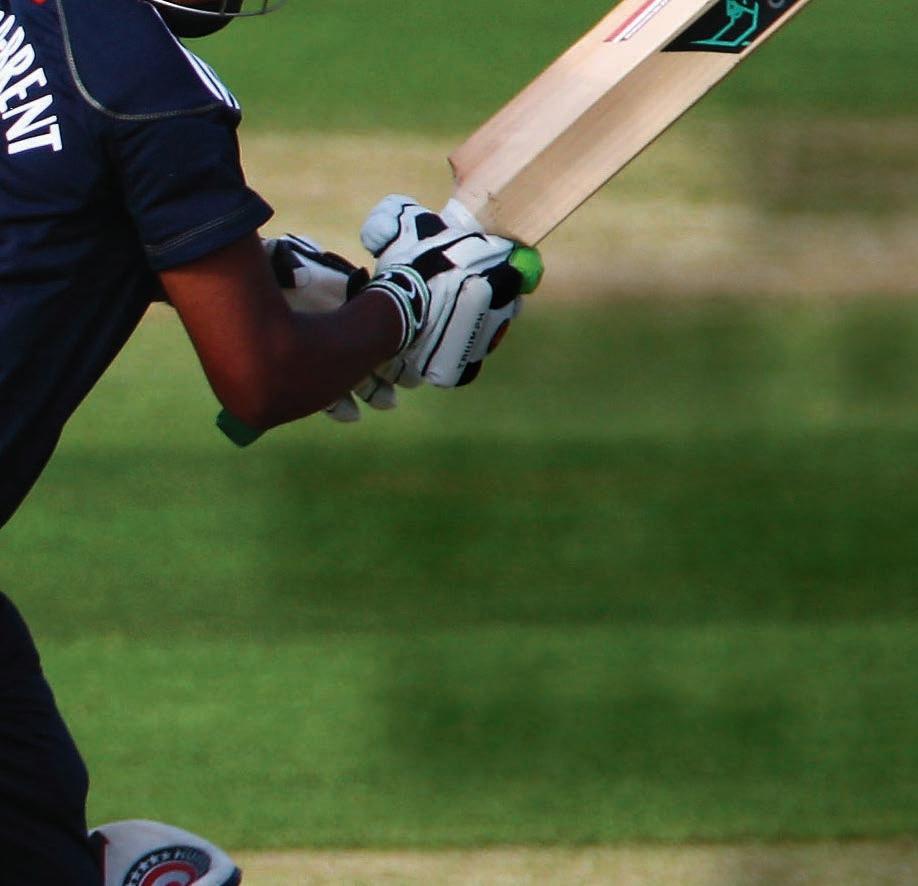



In football, there’s now three points for a win, VAR and a fancy
watch for referees to con rm that the ball has gone over the goal line. e point I’m making is that if there is a will to do something new in sport, things change. However, when it comes to the race agenda it remains the hot potato that authorities fail to handle properly.
Why?
ose very same authorities are dominated by white people whose power and pay packets may take a dip should they push the boat out.
Why interrupt the status quo?
One of the only ways to garner
change is allyship. In 2020, during the height of the outrage over the killing of George Floyd and the subsequent Black Lives Matter demonstrations, a longstanding friend of mine put in a very important telephone call to me.
is white associate wanted to know how I was feeling over the aforementioned subjects. I spoke for an hour — and he listened.
ereafter, he was honest enough to admit that he was not aware of some of the key issues a ecting the Black community at that horri c time.
He wanted ‘to do his bit’ and was candid enough to arrange for this correspondent to talk, via Zoom, to his all white sta in order to give them greater understanding of the Black Lives Matter movement.
It was a case of positive leadership and a bid for greater allyship. It is the only way that historical problems will be eradicated to some extent.
e Black sports fraternity, and community in general, are fed up to the back teeth with having to su er because of their skin colour. My intention moving forward is to ensure that every sporting national governing body (NGB) gets a copy of the Black British
Survey. Once they have digested, if they can be bothered, I will probe to nd out what they will do next — if anything.
I implore Cambridge University, and the survey’s conduit Paula Dyke, to continue to give Black British Voices a forum to be heard. is ground-breaking rst edition cannot be a one-o as the subject matter is far too important.
To those aforementioned governing bodies, I say hear and now, I welcome any feedback. Go on, be proactive!
Some in power are of the opinion that the George Floyd and BLM issues are done and dusted. As BBV respondents have indicated there are more questions than answers.
Many an organisation threw millions of pounds at ‘race’ when Floyd was killed and BLM to the world’s streets.
Why?

Because they knew that had failed the Black community and guilt was now taking over and they had to get there house in order.
e truth is they never really cared until a Black man was killed in full view of a global audience.
BBV respondents have indicated that, in the main, they still don’t care.

“I do think that in light of the Black Lives Matter movement, sports are thinking i e ently out representation. ut nt t t to
e ee e t n ust representation. o e out t e syste s t t you use t e ocesses you use o t e t lent t ys operate [and are] e su o te –
RespondentOlympian Tessa Sanderson
If there is a will to do something new in sport, things change, but the race agenda remains the hot potato that the authorities fail to do anything about
ny participants expressed t e elie t t initiatives aimed at tackling racism in s o t ilst elco e e e too sFootballer Vince Hilaire Ebony Rainford-Brent
